theirfuture
Service Parents’ Guide to Boarding Schools

#ILOVEBOARDING
Find out why pupils enjoy school life, from page 4
WHAT ABOUT BOARDING SCHOOLS?
Barnaby Lenon, former Headmaster at Harrow School, explores this question on pages 18 and 19
WHAT MAKES A GOOD BOARDING SCHOOL?
James Johnson, Headmaster of Taunton School, discusses integrity, humility and independence on pages 20 and 21
WILL MY CHILDREN BE HAPPY?
Barney Durrant, Head of St Lawrence College, describes how the best pastoral care is fundamental on pages 54 and 55
SPRING 2024 | ISSUE 1
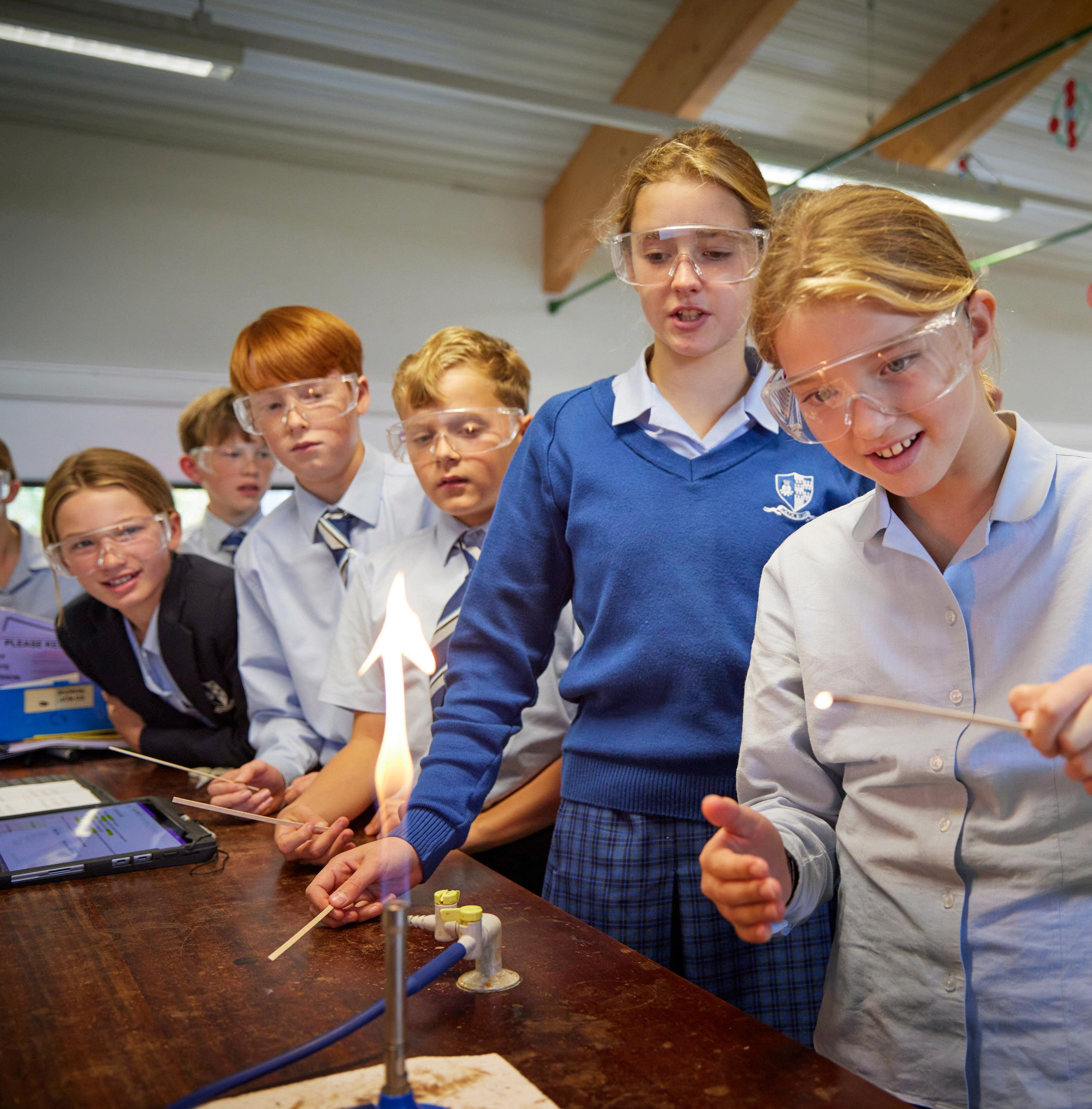
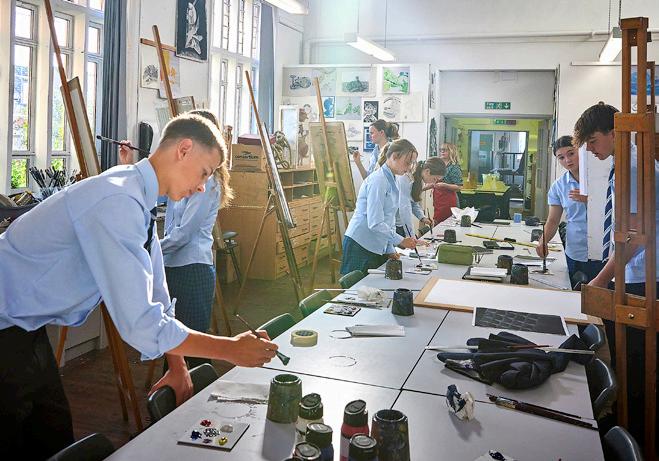
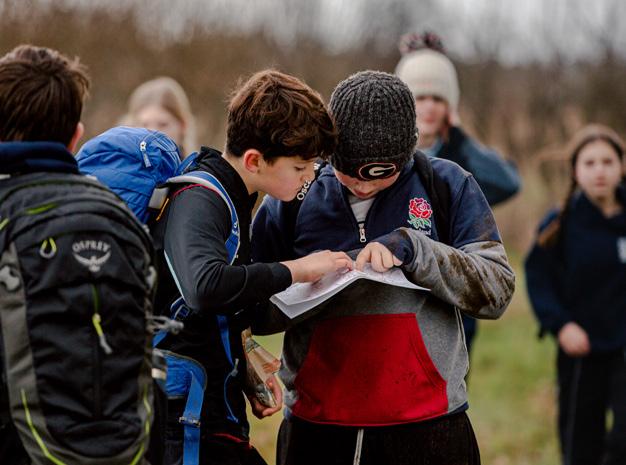
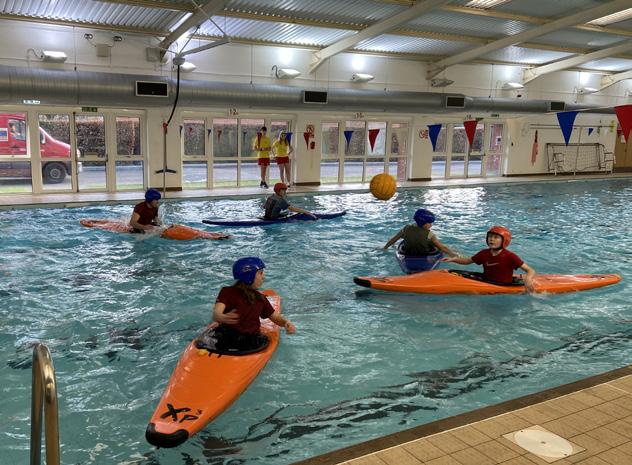
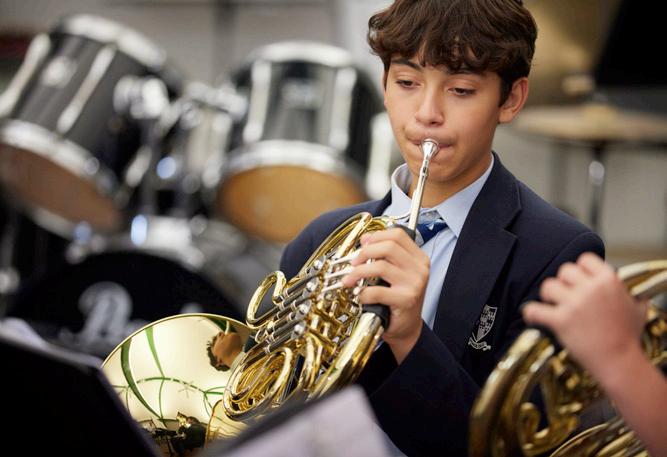
www.dauntseys.org BOARDING & DAY SCHOOL CO-EDUCATIONAL 11-18 WILTSHIRE, ENGLAND OPEN MORNINGS 11 May 2024 5 October 2024 An adventurous education


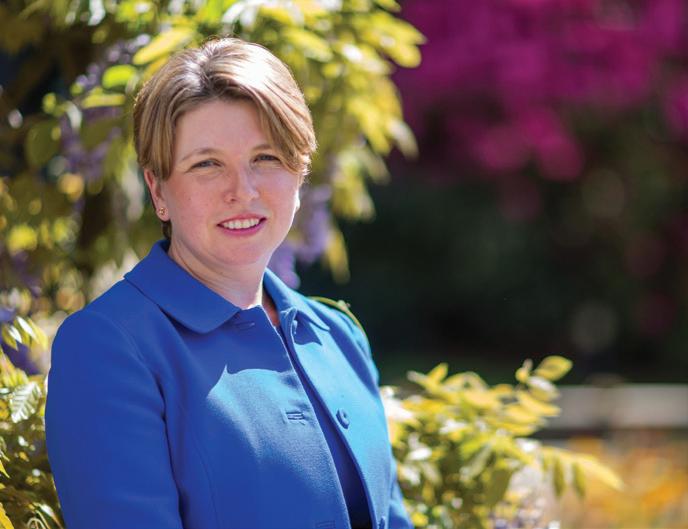
Foreword
Jo Cameron, BSA Chair 2024 and Principal, Queenswood School
It can feel overwhelming at the beginning of your search for the right school for your child. Understandably so, as it’s a significant decision and essential to consider several factors to ensure a school will match your child’s individual, educational and personal needs.
If you’ve read previous editions of this publication, you will have noticed the introduction of TheirFuture as the new cover title. Aptly named, since this is what is at the heart of every parent’s decision making when selecting the best boarding education. Boarding offers a strong and reliable foundation which inspires exciting futures.
One of the first things to do before diving into your search is to define your non-negotiables: what are the most important things for your child? This could be location, school size, or specialisms. Priorities might also be the academic environment, sports facilities, or varied extra-curricular programme. You name it, there’s a boarding school out there that does it.
As well as this fantastic Guide, the recently updated UKBSA website (www.ukbsa.com) has a dedicated boarding school finder tool allowing you to filter your search results. There’s also a helpful map should you be focusing your search around a specific area.
Each edition of the Guide now contains a special supplement to spotlight different boarding specialisms. In this issue, the focus is girls’ boarding. I hope you find it as interesting as I do.
I hope you will enjoy browsing the pages of this Guide which are full-to-bursting with helpful information, boarding insights, and pupil voices.
□ Jo became Principal of Queenswood School in 2016, having previously worked as Deputy Head at Ipswich High School for Girls. She began her teaching career as a Science teacher specialising in Biology at St Mary’s, Wantage, before becoming Head of the Science Department. She has extensive experience in all girls’ schools and champions the unique opportunities that single sex education offers.

Dear parent
David Walker Director, BSA
Welcome to TheirFuture, the Service Parents’ Guide to Boarding Schools. I spoke to a parent recently who told me about her wonderful experiences in her boarding school as a pupil almost a quarter of a century ago.
When I asked how she had ended up there, she described how she had read Malory Towers as a child and badgered her parents daily until they sent her to the local boarding school.
I wonder how many of the current generation of boarders were first introduced to the concept by Harry and Hermione at Hogwarts!
Whatever has piqued one’s interest, the next stage of choosing a boarding school for your child should be more rigorous. Boarding schools are a diverse and varied group; often it can feel the only things two schools might have in common are that they offer a residential facility.
Dig a little deeper and you will see more similarities than were at first obvious, particularly how they take advantage of the extra hours pupils are attending school for.
Whilst the activities may vary, there will be an ambition to use this time to offer an education that transcends academic study and adds breadth and depth to what is already likely to be a deep well of knowledge acquisition.
This is where this Guide comes in. I hope that it helps you take the crucial second step that bridges the initial interest in boarding education and the equally important third step – going to visit a boarding school. Enjoy the journey!
□ David joined BSA Group in August 2023. He has over 20 years of experience in boarding schools and has worked in a range of schools in the UK and Africa, alongside being a prep school governor and a trustee of a multi academy trust. Before taking up his BSA post, David was Deputy Head Pastoral at a large co-ed independent school in the south-east.
Spring 2024 | 1
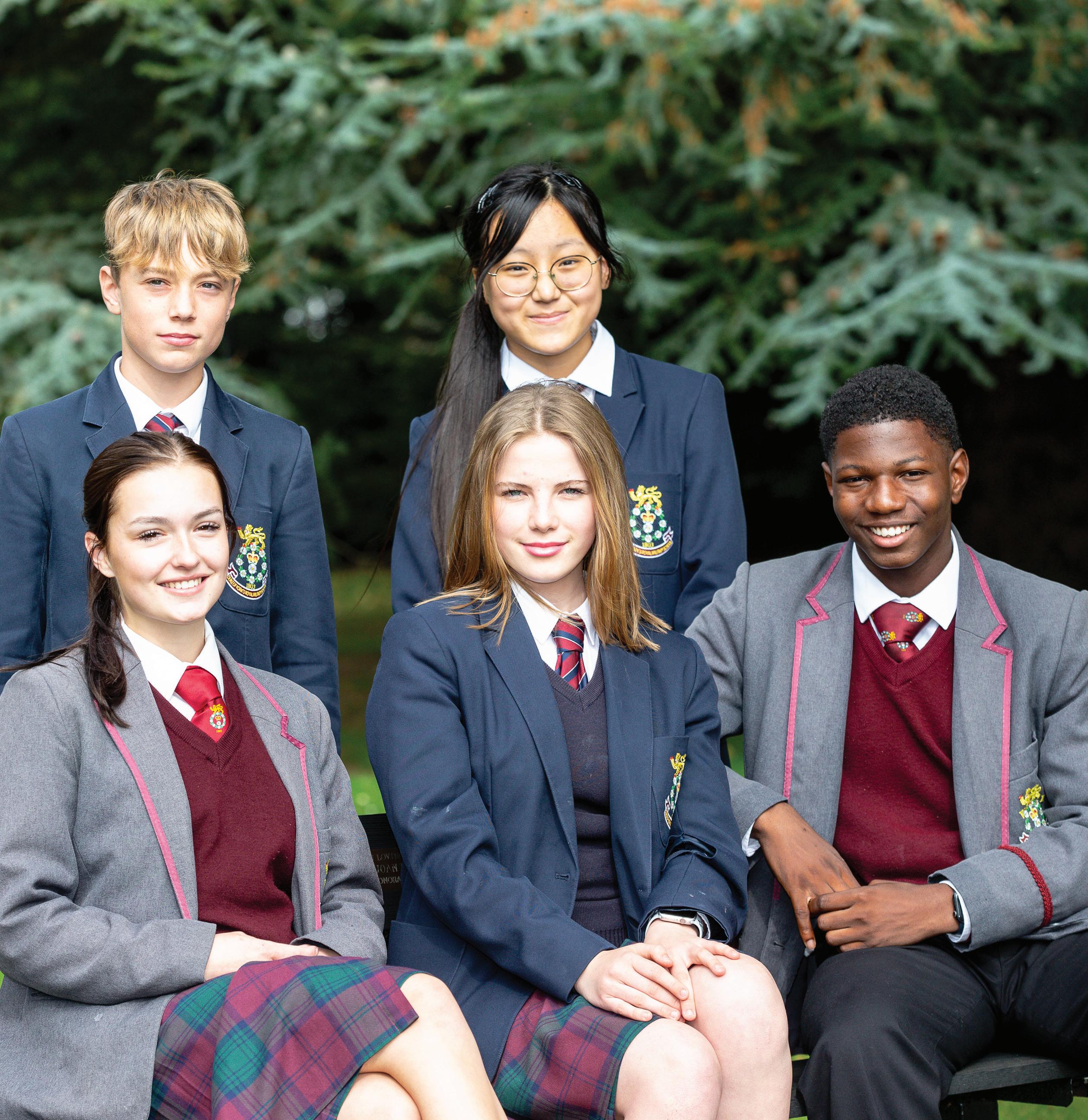







































































Welcoming students from Forces families since 1803
The Duke of York’s Royal Military School is committed to supporting the British Forces and is sponsored by the Ministry of Defence. In recognition of this, parental contribution for those eligible for the Continuity of Education Allowance is only £506 per term (£1,517 per annum).
Students make outstanding progress academically, students from Forces families achieve over ¾ of a grade high than the national average. Our full-boarding community, offering continuity of education, is home to over 200 students from Forces families. We pride ourselves on offering outstanding pastoral care, ensuring students feel relaxed and happy in their home away from home.
www.doyrms.com
| admissions@doyrms.com | +44(0)1304 245073

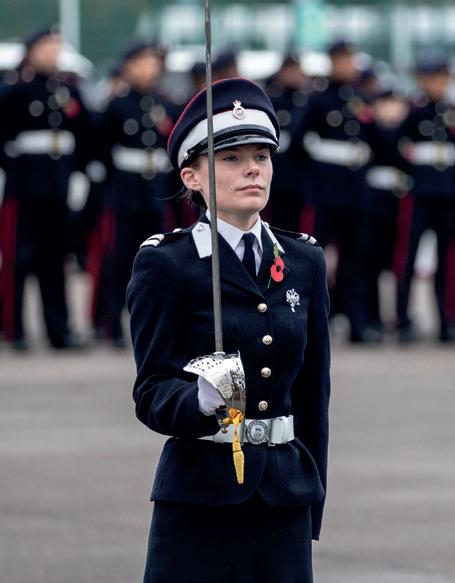
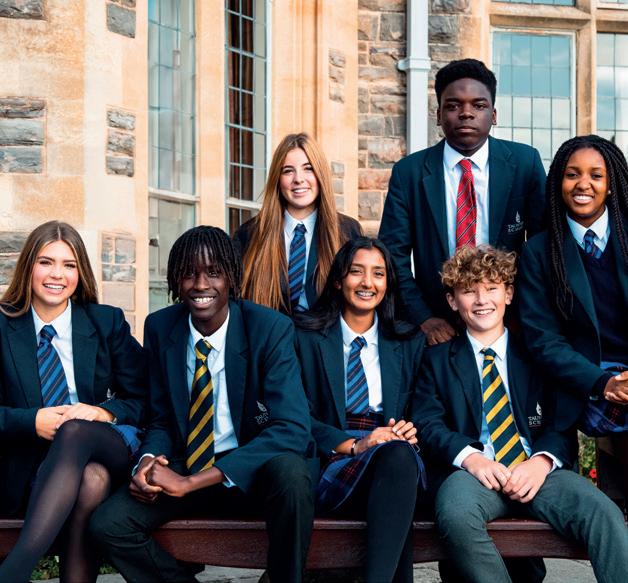

TheirFuture, Service Parents’ Guide to Boarding Schools is a trade mark owned by BSA Group.
Published by: BSA Group
167-169 Great Portland Street 5th Floor London W1W 5PF
+44 (0)207 798 1580 bsa@boarding.org.uk www.ukbsa.com
Chief Executive: Robin Fletcher
Editor: Steve Dyson editor@boarding.org.uk
Head of Commercial: Neil Rust
neil.rust@bsagroup.org.uk
Senior Commercial Consultant: Laura Brain
laura.brain@bsagroup.org.uk
Contents 04 #ILOVEBOARDING 08 Latest news Choosing schools 18 What about boarding schools? 20 What makes a good boarding school 22 How boarding schools are inspected 26 Questions for school visits Schools founded by the military 28 The Duke of Yorks Royal Military School 30 Royal Hospital School 32 Gordon’s School State boarding schools 35 Lancaster Royal Grammar School 37 Choosing State Boarding 40 The benefits of sixth-form boarding Independent schools 43 Schools together in partnership 45 Building character and future success 47 Philanthropy, kindness and compassion 50 Making a difference to young people’s lives 52 Full STEAM ahead 54 Will my children be happy 56 Choosing a football academy 58 Supporting military families 60 BSA Certified Agent and Guardian schemes Music in boarding 62 How boarding helps music practice 65 Specialist music schools 68 Comforted – by music Preparatory schools 70 Exciting, dynamic and energetic 72 Embracing the wild 74 Developing life skills and resilience 76 Responsibility versus maturity Senior schools 78 Preparing for 21st century life 81 Individual nurturing and development Special educational needs 84 Providing for special educational needs 86 How CReSTeD helps boarding families Curriculum choices 90 Studying the GCSEs and IGCSEs 92 Sixth form – future ready, set, go! Appendix 95 School fee planning 97 Useful contacts 98 BSA member schools The information and views in this Guide were correct to the best of the Editor’s and Publisher’s belief at the time of going to press and no responsibility can be accepted for outof-date information, errors or omissions. While every effort has been made, it may not always have been possible to trace all copyright holders. If any omissions are brought to our attention, we will be happy to include appropriate acknowledgements in the next edition of the Guide. The Service Parents’ Guide to Boarding Schools is published twice a year by BSA Group, a company registered in England and Wales. Registered number: 4676107. All rights reserved. No part of this Guide may be reproduced, stored in a retrieval system or transmitted in any form without written permission from the Publisher. 04 65 Designed and Printed by Shelleys, Sherborne Spring 2024 | 3
20
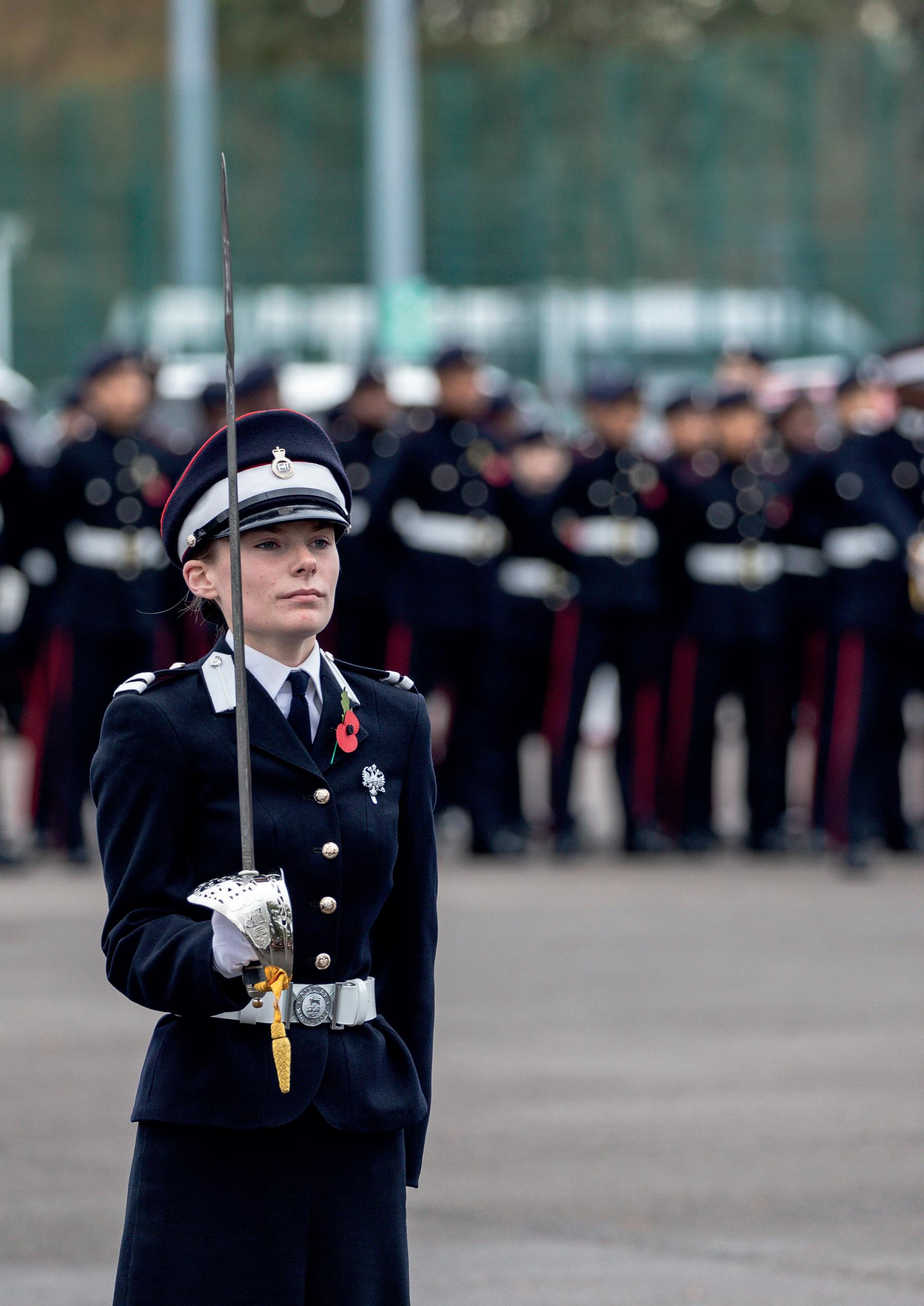
Opportunities are vast
In every edition of TheirFuture, we’re going to highlight pupils who love their boarding education … and some of the reasons why.
ILOVEBOARDING
#
TO
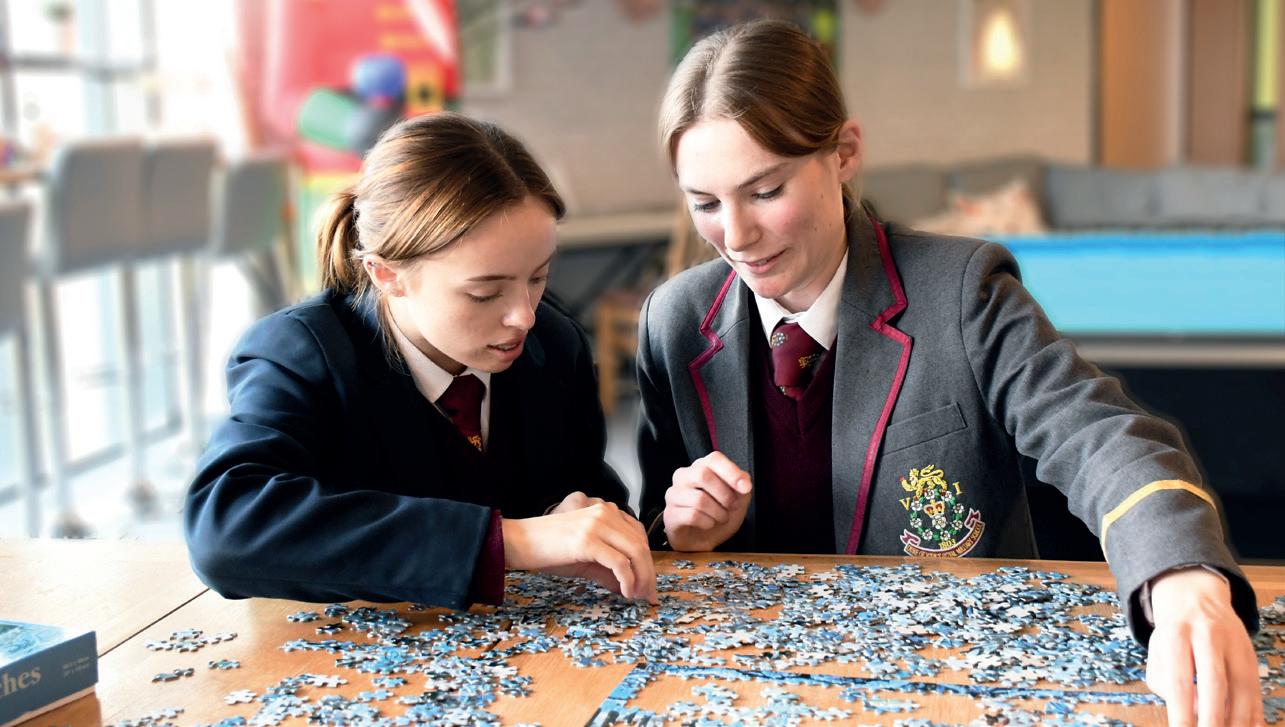
Joanna B.
“I am a Year 13 student studying A levels at The Duke of York’s Royal Military School, my 7th year of being a Dukie. As everyone here is a boarder, the boarding houses becomes your second home, and staff are incredibly supportive, going the extra mile to take care of every single one of us.
“You get to make friends for life, and the people I’ve boarded with have become like my sisters, which means that I love every single one of them.
“Opportunities are vast. In the last two years, I’ve had the honour of captaining Girls’ Hockey and with the school’s support I pushed myself to becoming the Senior Under Officer (SUO) of the school.
“Academically, I never thought I would achieve much. I came to school with 6s predicted for my GCSEs. I surpassed my targets a long way and achieved nothing below a 7, increasing some by three whole grades. Now I am heading towards my A levels with predicted grades of three A*s and have an interview booked with the University of Cambridge.
“My parents believe, and I agree, that I would not have achieved the results I did or be anywhere near where I am now if I had been anywhere else. I am incredibly proud to be a Dukie and I love this school, the facilities, the boarding experience, but most of all the people.”
Saffron B.
“Boarding – as one might imagine – comes across as the more daunting form of schooling, particularly when partnered with the idea of the military.
“Growing up in a force’s family, I was in and out of different primary schools and moved frequently and as a freshfaced Year 7 student, with no clue what to expect from boarding. However, whether military or not, The Duke of York’s Royal Military School provides an open opportunity for all to develop their independence, learn, gain connections and, most importantly, to grow.
“On my first journey to the school as a student back in 2017, I was repeatedly told of the ground-breaking friendships that you’d make throughout your ‘Dukie journey’. This remains true to me today, as well as for many others who have been here. A combination of friendship, education, opportunity, and experience provides the definition of this boarding school.
“So, the answer as to whether I love boarding or not is a resounding: ‘Yes!’ On a personal level, the school has helped me work to enrich my social life, acquire a level of independence I thought impossible at this age, all the while providing the highest level of academic assistance possible.
“At present in Year 13, I can see the positive benefits that pushed me and my eldest brother to flourish. The school is also seeing my youngest sister and brother through, and I can say with confidence that they will thrive just as much as I have here.”

Casper B.
“With both parents having been in the Army, ‘home’ has changed frequently. In the four years since I joined Sherborne, I have lived in four different houses in three different countries. During my GCSE year alone, I moved house (and country) each term: Christmas term –UK, Easter term – Italy; Summer term – Germany.
“While my family has moved across Europe, Sherborne has been a constant. Full boarding has meant that my educational experience has been uninterrupted by moves that might otherwise have severely disrupted my progress.
“As an overseas boarder, full boarding at Sherborne is perfect as everyone is ‘in’ on the weekends thus there is a fantastic communal atmosphere. This means that despite living a great distance away, I feel that I don’t miss out on not having my family nearby. It is great also not to be in an Army environment all the time.
“As an all-boys school, the link with the nearby Sherborne School for Girls gives balance and allows me to see my sister, while simultaneously giving us distance (so that I do not always need to see my sister!).
“I’m now in the Sixth Form at Sherborne School in Dorset. The proximity to the train line is also great as it allows me to commute to London and gives access to airports, allowing me to travel to and from Heathrow and Gatwick with ease when travelling home.”
Spring 2024 | 5 #Iloveboarding
PROUD
BE A DUKIE SHERBORNE ALLOWS A SENSE OF PLACE
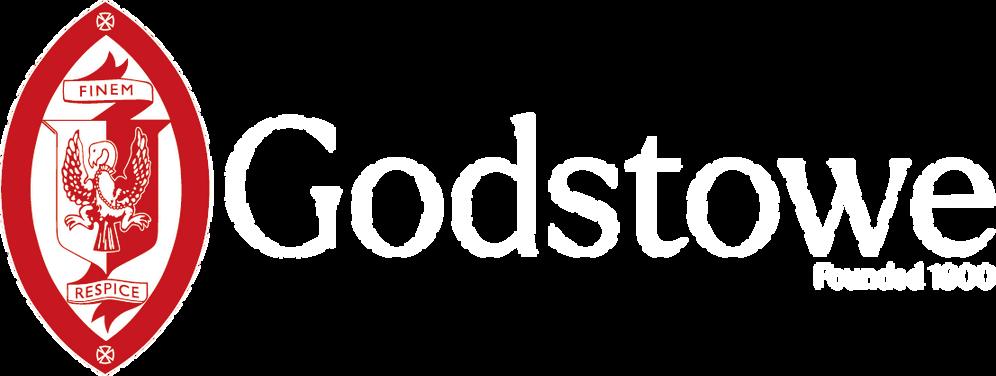





Discover something special Discover something special godstowe org godstowe.org Forces Fee Discount available Forces Fee Discount available BOARDING IN SURREY GORDON’S SCHOOL YEARS 7, 9 AND 12 BOARDING PLACES AVAILABLE Students who attend the boarding school provision exceed their predicted outcomes and consistently reach, and further, their potential OFSTED BOARDING INSPECTION REPORT 2019 www.gordons.school BESPOKE RESIDENTIAL BOARDING HOUSE FOR YEAR 7 STUDENTS NON-SELECTIVE LOWER SCHOOL PRIORITY PLACES FOR FORCES BOARDING FROM UNDER £800 PER TERM WITH CEA
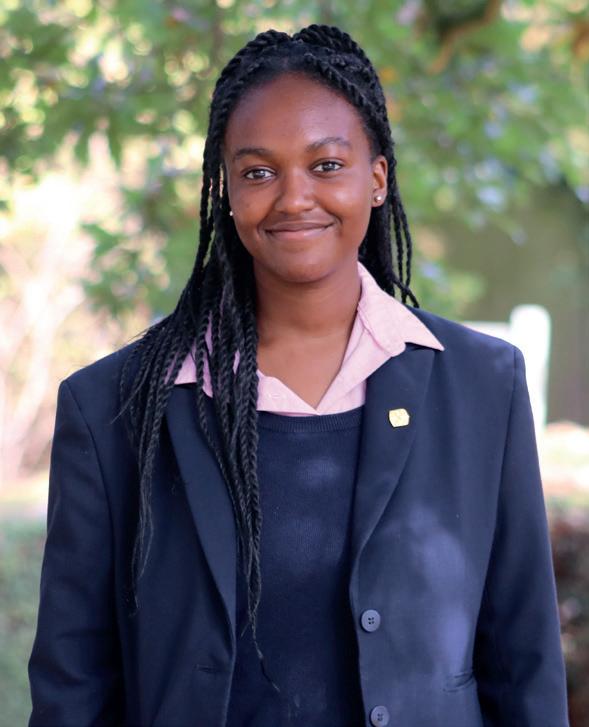

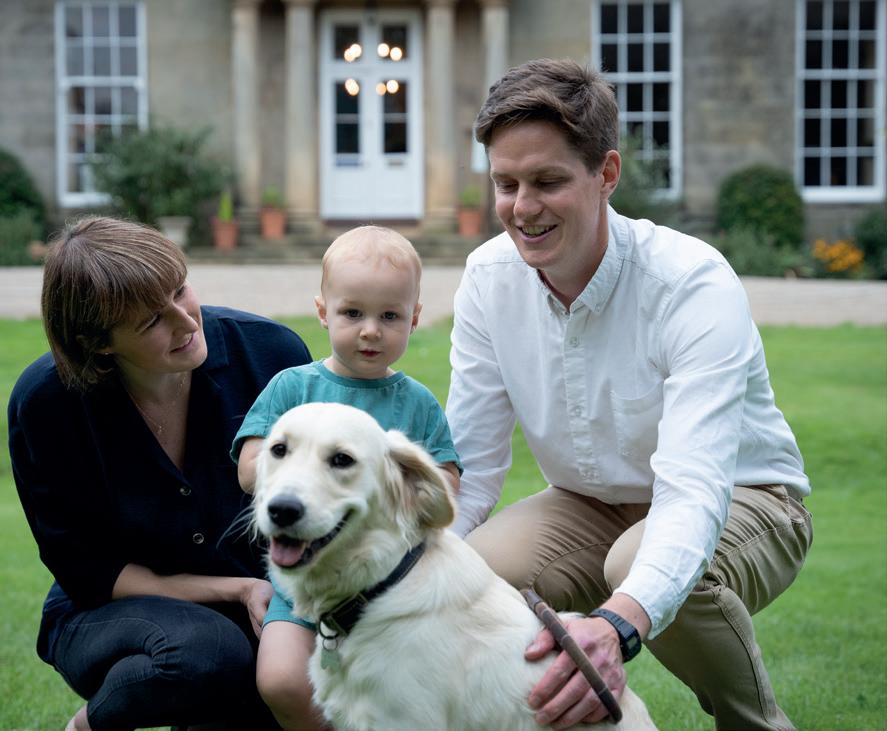
“I would never have been able to experience boarding school life without the support of a bursary and receiving a scholarship to the Royal Hospital School.
“Having been placed into a new boarding environment as a small Year 7 was admittedly an overwhelming experience, but one I quickly grew to love. Boarding allowed me to foster new friendships, to learn to do things for myself and become a more independent person.
“I experienced the school grow and me grow with it. I have now come out at the top end of the school as an improved individual with so many amazing memories and incredible opportunities. These include being part of the prefect team, peer mentoring team, leading squads and occupying leadership positions such as Head Scholar. This truly is such a full circle moment for me.
“I have fulfilled my ambition to study International Relations at the London School of Economics, which I’m very excited about and feel well prepared for. I cannot thank the school enough for the support that they have provided me. The motivation to continue to achieve my dreams will continue long after RHS.”
Toby C.
“I joined RHS in year 9, as my schooling in Kenya finished when I was 13. One thing I’ve certainly developed during my boarding life at RHS is my confidence and social skills.
“A part of that has come from being involved in so many activities since joining the school and having the opportunity to be part of the prefect team. Debating club and Model United Nations (MUN) conferences are something I love, and think are incredibly useful to apply to any career path you want to go into.
“The school will always be such a big part of my life, right down to the alumni community. They really take the time to visit the school and are invested in your education. I don’t have a specific goal after leaving RHS, but I think medical research is a path I’ll go down. I’ll be in education for a while doing various medical research projects and I have my boarding experience to thank for that.”
PUPILS AT TERRINGTON SAY HELLO TO FLOSSIE!
CHILDREN at Terrington Hall Prep School in North Yorkshire have a new pal in the form of Flossie, a young Golden Retriever who is full of love and energy.
Flossie had already got to know children in Year 4 teacher Mr Sigsworth’s class, where she enjoyed snoozing under his desk during lessons – waking up to play at break-time.
Now Flossie has moved into the boarding house, along with Mr Sigsworth, his wife Tori and toddler son Monty, where she gets lots of love and attention from boarders every day.
Dogs are very much a fixture at Terrington Hall School. Headmaster Simon Kibler has two black Labradors and a Dachshund, which children often take for walks. Other teachers bring in their dogs for day visits, too. Their ability to calm children down and to offer comforting cuddles if they’re feeling out of sorts is very much valued.
Spring 2024 | 7 #Iloveboarding
Ayoola O.
BUILDING CONFIDENCE AT ROYAL HOSPITAL SCHOOL
New developments at Abingdon School
ABINGDON School has opened a new dining pavilion and two extended day and boarding houses on its Oxfordshire campus, with a third renovation due for completion next year.
Abingdon’s eye-catching dining pavilion adjoins the school’s 450-seat Amey Theatre and will house a cafe, as well as being used as a dining hall, event and function space.
The extension and renovation of Austin and Crescent Houses means each is now approached from within the school site, providing easier access to sports and recreational facilities.
Internally, the communal house rooms and kitchens have been arranged to maximise student interaction during downtime by hosting social events. Dedicated ‘quiet’ study areas will enable students to concentrate on academic work.
Boarders will also have use of their own kitchenettes, modern shower and washrooms, and spacious bedrooms with plenty of storage. These have space for between two and three students, or can be single rooms for sixth formers.
Each of the developments has been constructed using sustainable materials where possible, maximising insulation and using renewable sources of energy for heating and lighting.
Mike Windsor, Head of Abingdon School, said: “I am proud of the quality of our provision. The opening of our renovated boarding houses and dining hall benefits all and will significantly enhance the Abingdon experience for many years to come.”
Stonyhurst secures military bronze
STONYHURST school has received a bronze award for its ongoing commitment to families who serve or have served in the British military.
The school received the award from Gary Oakford, the Ministry of Defence’s regional employer engagement director for Lancashire and Cumbria in a presentation at the school. The award comes after Stonyhurst officially signed the Armed Forces Covenant (AFC) in June this year, an official agreement that veterans, reservists and their families are treated with fairness and respect in their communities, economy and society. Stonyhurst has been commended for upholding the principles of the AFC, such as being military friendly, enabling bursaries for children of active personnel, supporting employment of veterans and reservists.
Another principles include encouraging members of staff to volunteer in military cadet organisations, supporting Armed Forces Day, Reserves Day, the Poppy Appeal and Remembrance activities. Mr Oakford was taken on a guided tour where he heard more about the
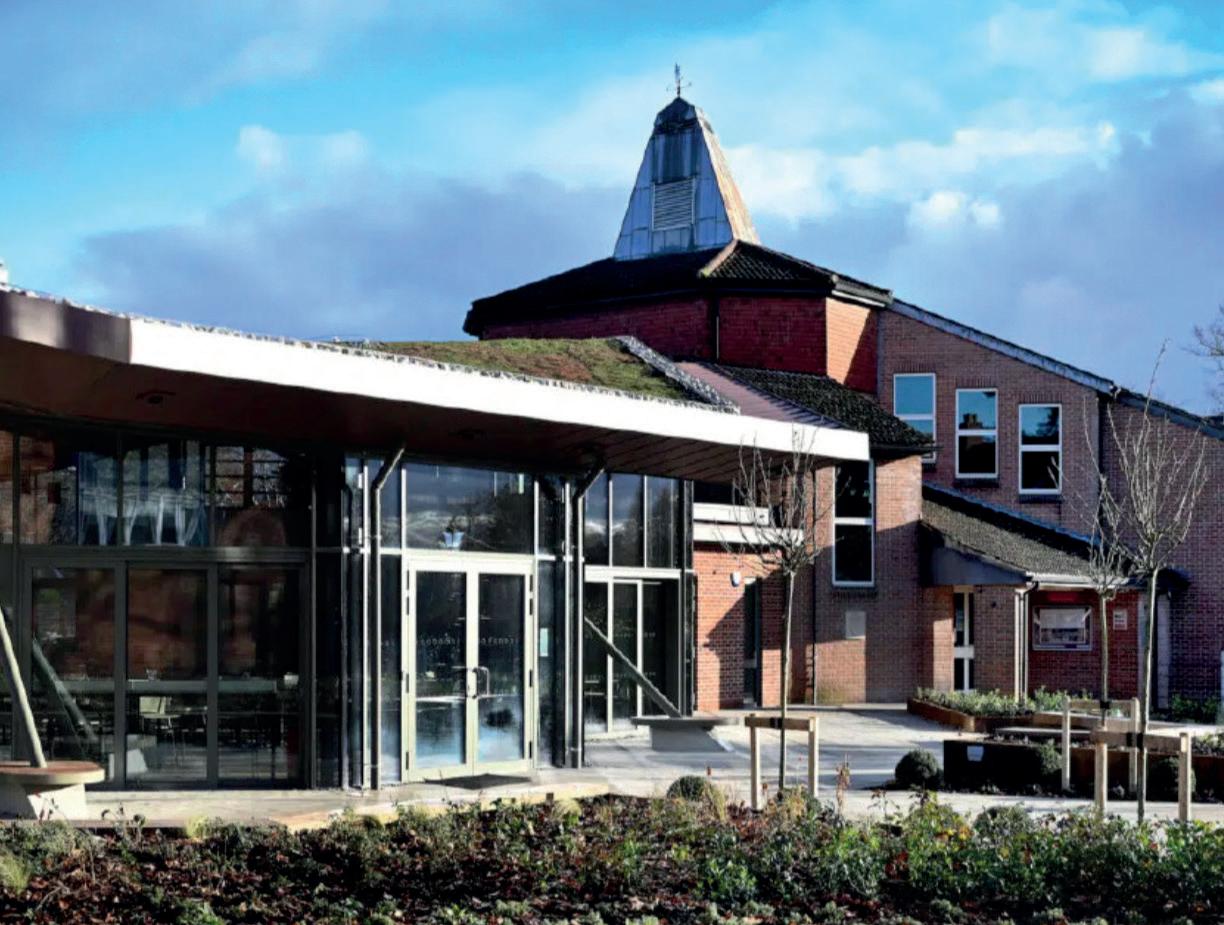
school’s commitment to the AFC. Stonyhurst has a rich military and cadet tradition that goes back to the 1800s. Its dedicated Combined Cadet Force was formally on parade in 1900, which means its 125th anniversary is now on the horizon.
Every year group is represented, with the platoons named after Stonyhurst’s seven Victoria Cross winners. Pupils plan operations and camp in the local area, also staying on a military base and joining exercises overseen by serving military personnel.
The school has a proud history of welcoming military families, recognising that their lives can disrupt the continuity of education for children. John Browne, Headmaster at Stonyhurst, said: “We are delighted to have won this bronze commendation. This is testament to our commitment to our Armed Forces families and recognises Stonyhurst as an armed forces-friendly employer.”
Concord College celebrates double success
THE 73-acre Concord College in Shropshire ended 2023 on a high after picking up two prestigious national accolades.
The school in Acton Burnell, near Shrewsbury, has been named winner of the Independent Schools of the Year Award for best International Student Experience, and the West Midlands Independent School of the Year in the Sunday Times Parent Power Guide. Concord provides education for >>>

NEWS
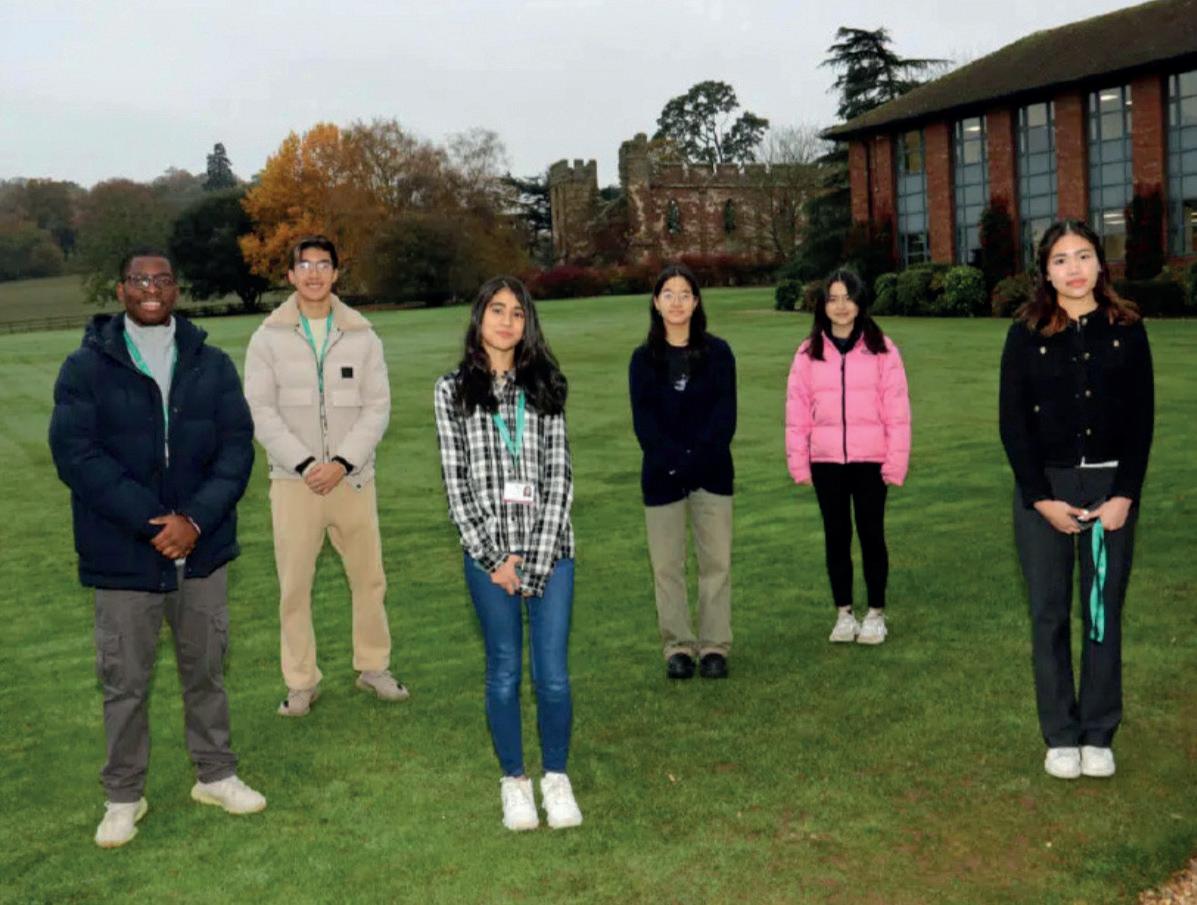
<<< learners from around the world and is home to young people from the UK and 40 other nations.
Principal Dr Michael Truss said: “International boarders appreciate the way the college understands their needs, whilst the college’s British students also thrive on the opportunity to become part of a global community in the UK.
“We strive to deliver a full British curriculum, but with an eye on international perspectives. The aim is to draw on students’ knowledge and backgrounds to give each a fuller and more rounded view.
“It is wonderful to be recognised in these latest awards specifically for the added dimension that being an internationally-focused community brings to a school.”
One of the successful students at Corcord is Quinthara Rivai, from Indonesia, who is developing as a top golfer.
The 17-year-old is studying A levels in biology, chemistry and maths before reading medicine, with Exeter University one of her potential targets.
With a handicap of just three, Quinthara has won competitions in Thailand, Malaysia and America, but sees her future in surgery rather than golf.
She said: “Concord College is great and the teachers are very supportive My aunt was a doctor, which left me
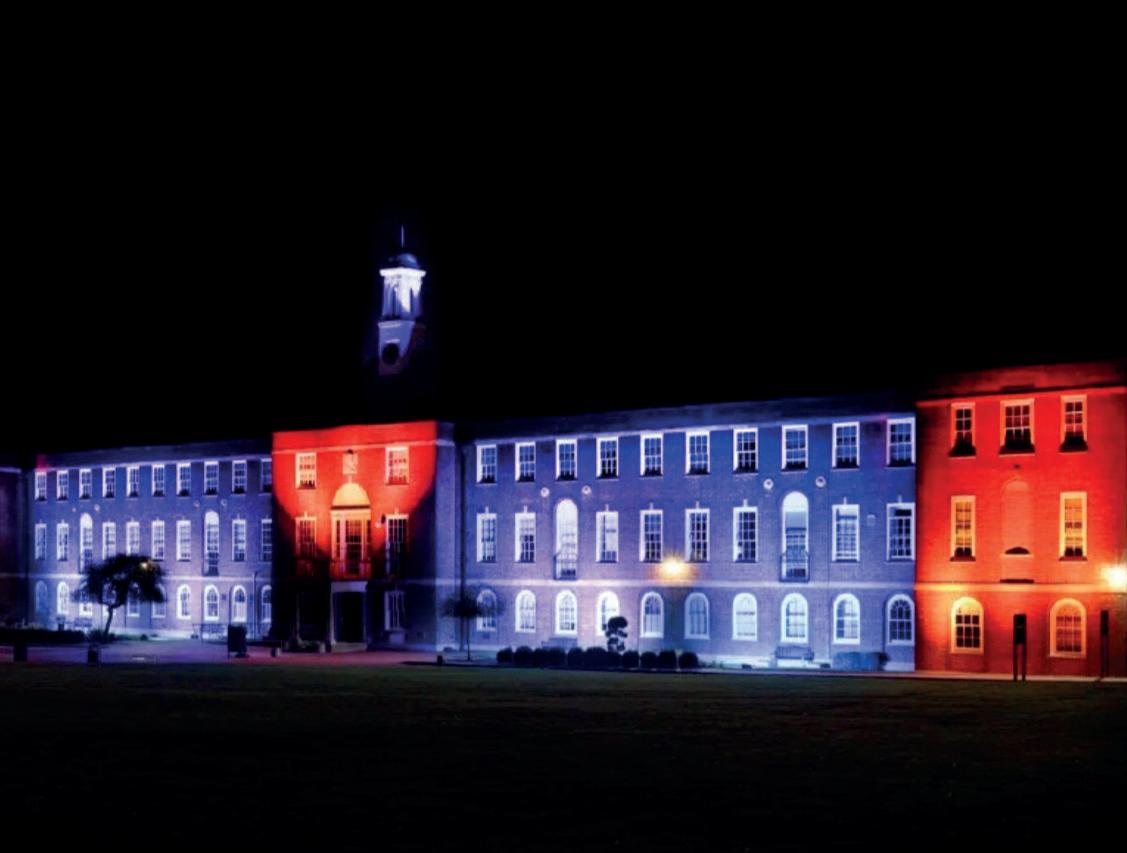
attracted to the hospital environment. I fancy trauma medicine or general surgery and had some amazing experience during an internship in Jakarta. “I shadowed a surgeon who is also a pop singer and a photographer who would sing as he performed eyelid surgery, which helped as we could be in theatre for up to four hours.”
Another star pupil is budding dentist Fuad Shitta-Bey, a 17-year-old from Hertfordshire studying A levels in biology, chemistry and economics, and hoping to go to university in Manchester or Cardiff. He said: “I’m attracted to dentistry because of the conversational aspect of the job and to help improve people’s self-esteem. My sisters came to Concord College and I decided to come here in 2018 and was amazed how kind everyone was.
“Because it’s not the biggest school, it’s like a family, where everyone knows everyone and is friendly. I also like the school ethos of kindness, creativity and rigour.”
St Swithun’s lights up to celebrate 140 years
ST SWITHUN’S School in Winchester lit up the front of the school to celebrate the start of its 140th birthday celebrations.
St Swithun’s was founded in 1884 by Anna Bramston and has been inspiring girls ever since.
The all-girls school has a range of activities planned throughout the year
to celebrate the milestone and look towards the future.
In March, the school community will enjoy an evensong at Winchester Cathedral and drinks reception. Current students will then celebrate with a birthday lunch and party on 3 May before the Founders’ Day Concert that evening.
Students across both the senior and prep school will come together on 4 July to take on St Swithun’s challenges to raise vital funds for the Bramston Bursary Foundation.
Finally, pupils are researching the history of the school and its links to Winchester and the wider local community.
Jane Gandee, St Swithun’s Headmistress, said: “We are proud of the positive impact the school has had on generations of girls since its inception in 1884. Anna Bramston set about forming the school because she saw a lack of appropriate education for young women.
“140 years on we are passionate about ensuring that all of our students have opportunities to learn who they are and what they can aspire to be without being laden with lazy gender-based stereotypes.”
When the school marked its centenary in 1984, the Princess Royal visited and opened the new sports hall on 5 May that year.
Spring 2024 | 9 NEWS
Angus’ Army raises £18k-plus STUDENTS in a boarding house at Gordon’s School have raised more than £18,000 for a cancer charity after one of their classmates was diagnosed with Hodgkins Lymphoma.
Angus found out about his cancer in the summer and has been receiving chemotherapy treatment at the Royal Marsden Hospital.
His peers immediately formed themselves into Angus’ Army to offer support, fundraise and raise awareness of the disease.
They enlisted teachers and boarding house staff on their first mission raised £16,000 by completing the Oxford Half Marathon, cheered on by Angus’ parents and armed with motivational messages on posters made by fellow boarders.
No sooner had they returned to the school in West End, Surrey, they were planning and training for their next event. This saw 14 students and staff split into two groups, one setting off from Winchester and the other from Eastbourne, to run 100 miles of the South Downs in just under ten hours.
To date Angus’ Army have raised £18,050 for the Royal Marsden Cancer Charity. Founder member Frankie Lewis was recently presented with a certificate from Gordon’s Headmaster Andrew Moss on behalf of the charity in recognition of their fundraising.
Gordon’s School supports a number of charities and students are encouraged to give back both inside and outside the school whether in leadership roles, volunteering or service.
This year marks the end of a threeyear fundraising effort for the Ngamo School in Zimbabwe, to build a girls’ boarding house. Students also support Cardiac Risk in the Young and Papyrus (prevention of young suicide).
Gordon’s star netball player picked for Scotland
RISING netball star Charlotte Lill has a bit of a juggling act between training and studies at Gordon’s School in Surrey.
As well as studying for three A levels, the 17-year-old has been picked for both the Surrey Storm U21 squad and the Scotland U19 squad.
Charlotte said: “It’s a lot to find balance between A levels and sport but I’m slowly getting there.”
The teenager was playing club netball when she caught the eye of a Scotland Pathway coach. An invitation to a training camp followed, culminating in her selection for the squad last autumn. Her schedule now includes monthly camps in Scotland, twice-weekly sessions with Surrey Storm, plus schoolbased practice, skill sessions, and strength and conditioning both in and out of school.

She said: “Balancing A Levels with sport requires a lot of time management, but I’m gradually finding my rhythm.”
Since September, Charlotte has been a Gordon’s weekly boarder, adjusting to the school’s routines and living among fellow students in the Sixth Form annex. Despite missing her family, she said values the independence and the preparation for future university life that boarding offers.
“I could not imagine not boarding now. I just love it. I miss my family but I’m quite an independent person. This gets you prepared for university and living on your own. It’s been great”. A seasoned goalkeeper, Charlotte’s has been playing netball for eight years and yet is amazed at her recent success. Initially uncertain about her U19 trials for Surrey Storm, she was astounded when asked to trial for the U21s and even more so when told she had been selected!
She credits Gordon’s netball programme and training for playing a role in her progress, and added: “The training is fantastic, and our team is made up of the most amazing girls.”
While she aspires to pursue studies beyond sport at university, Charlotte said she is also keen to explore the limits of her netball career. “I’m still wrapping my head around being selected to represent a country. I’m still trying to process everything that’s happening right now and keep focused.”
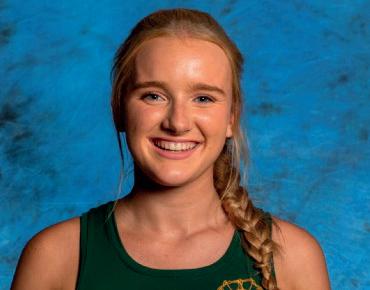

Harrogate pupils enjoy art and design adventures
A NEW range of adventures available to pupils at a Harrogate school is proving a big draw – quite literally!
The creation of working 4ft-long pencils at the Design Technology Giant Pencil Club at Ashville College is just one way pupils are embracing new challenges. Twelve pupils from Years 7 and 8 signed up to the club and have developed their woodworking skills using a raft of traditional tools.
The school has an impressive academic track record, with 94% of pupils who sat A level exams offered places at their first-choice seats of learning around the globe in 2023.
But the school also places equal importance on life experience, with a detailed co-curricular programm. Anna Wilby, Ashville’s Deputy Head (CoCurricular and Outreach), said: “What I have observed throughout my career is the pupils who are the ‘busiest’ in terms of co-curricular pursuits often achieve the best academic outcomes.”
Choices for youngsters from every age group include the opportunity to indulge in their favourite topics including music, dance, drama and sports.
The mix also includes sessions for fans of board games, books, fashion and design, languages, current affairs, environmental issues, nature and the great outdoors. There’s even a Lego Club for younger pupils, while the older years have
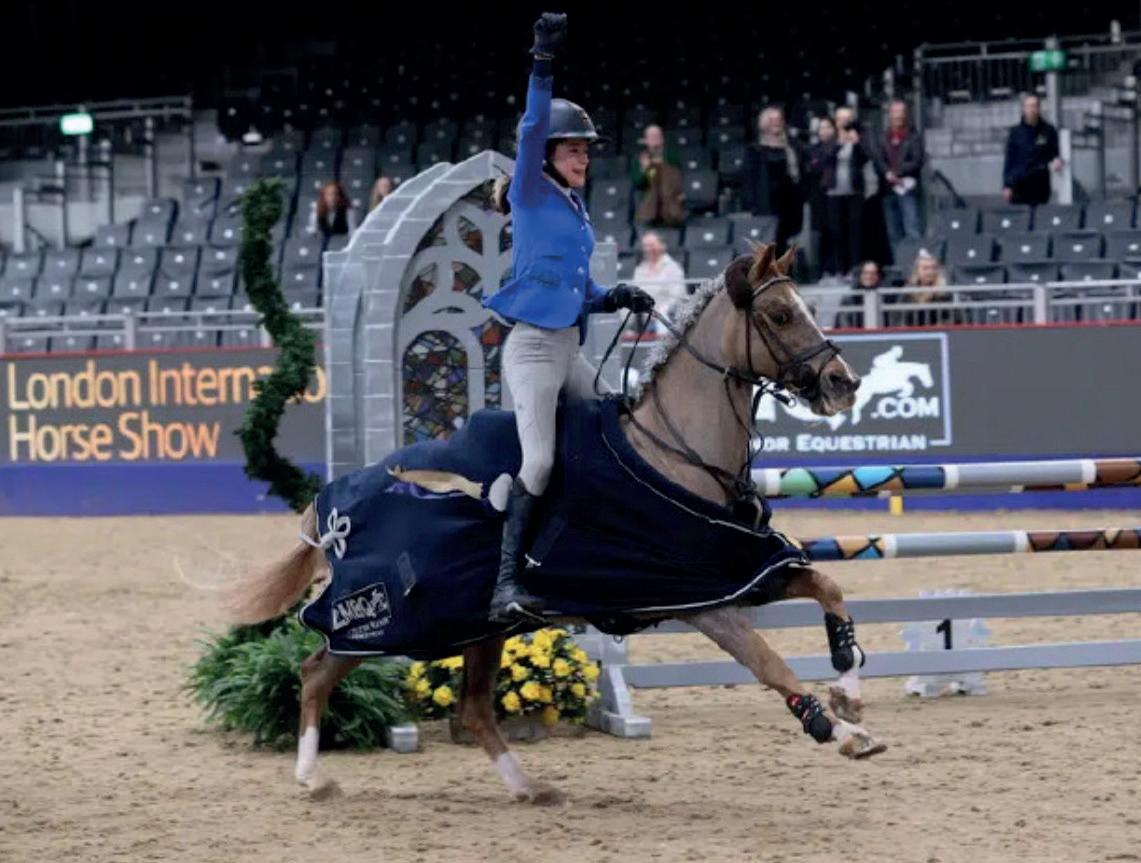
the option of joining the Geek Club, a Minecraft group, or a performance troupe focusing on light-hearted repertoire.
Miss Wilby continued: “We strongly believe involvement in a wide variety of activities benefits not only a pupil’s personal growth, but also his or her academic progress.
“There are numerous scientific studies which point to the positive benefits to brain development, physical and mental health and the feeling of community which comes from co-curricular involvement.
“Our programme offers our pupils opportunities for the development of excellence and the chance for them to open their mind to new prospects. “The activities are designed and planned for pupils to develop the eight Skills Builder Essential Skills – listening, speaking, problem-solving, creativity, staying positive, aiming high, leadership, and teamwork.
“It’s not just about having ‘a bit of fun’ at lunchtime or after school. There are so many transferable skills and values you can develop to thrive both at school and beyond.”
Three national equestrian wins for Queen Mary’s pupil
QUEEN Mary’s pupil Ella Kay has won three out of the four major 128 national titles plus the Winter and Summer 128 Gold League.
The wins for the 12-year-old, including in the British National Showjumping Championship, the Horse of the Year Show and the London International Horse Show, make her the most decorated rider of the year.
As well as studying at Queen Mary’s School, between Ripon and Thirsk, Ella and her horse Red Alert III have had a very busy and successful year.
They marked their dominance in the sport by winning the Gold League for the second season running. A win at the National 128cm Championship at the British Showjumping National Championships came next, following by her win at the Horse of the Year Show and then their crowning glory at the London International Horse Show.
Ella was one of eight riders who made it into the jump-off in the Littleton Manor Equestrian 128cm Championship at the London International Horse Show, winning by 1.39 seconds.
Ella said: “I am speechless! It’s like three dreams coming true in one year. Red Alert III really helped me, she really wants to do it and win as well. Thank you to everyone who has supported me.”
Carole Cameron, Head at Queen Mary’s School, added: “Congratulations to Ella for her monumental year. The dedication and hard work that it has taken to win these national titles this year displays skills of a true Queen Mary’s pupil. She is an excellent role model to the other pupils who ride and have lessons.”
Spring 2024 | 11 NEWS
Top coach to run Millfield’s new endurance squad
BROWNLEE brothers coach Malcolm Brown is helping sports staff at Millfeld school in Somerset to shape its newly formed cross-sport endurance squad.
Mr Brown will work on campus with 40odd endurance athletes several times a year, sharing his experience of coaching the highly decorated triathlete brothers, Alistair and Jonny Brownlee.
He also helped guide Vicky Holland to become the first female triathlete in history to win an Olympic medal for Team GB.
Mr Brown will spend time with individuals to discuss their goals and develop their training, planning and reviewing the training programme, and hosting talks with students, parents and staff. As well as in person sessions, he will also deliver some remote coaching.
The endurance squad has been formed to bring all endurance runners across triathlon, pentathlon, cross country and athletics together twice a week to train. This will help each athlete to get the right level of competition within the group to help their development, plus increase their social interactions across sports.
Mr Brown is co-founder and a performance coach based at the Leeds Triathlon Centre. He is also a former endurance running coach for UK Athletics. Before moving into triathlon, he spent 25 years working with the
likes of Dame Kelly Holmes and Paula Radcliffe.
He has coached athletes to international gold medals at Commonwealth, European, World and Olympic level and was British Triathlon’s Olympic Performance Manager for the London 2012 Olympic Games. He was Director of Sport at Leeds Beckett University from 2002-2009.
He will work closely with Millfield’s Head of Triathlon Christian Brown (no relation), who leads the endurance squad, Head of Athletics Neil Wheeler and Head of Pentathlon Antonia Cord.
Mr Brown said: “I am very much looking forward to working with the multi-sport endurance squad at Millfield. It’s a privilege to work with young students at a critical time in their development as athletes and people. The school has demonstrated vision in creating the project, confirming its position as a world leading environment for youth development in sport.”
Christian Brown said: “Our students are very lucky to have Malcolm on board. This means we will have four or more coaches on the track at training sessions, bringing together a huge amount of knowledge and experience that will benefit our athletes.”
Neil Wheeler said: “We have athletes performing at a range of different levels so this squad enables everyone to have someone to push them on and work with and Malcolm’s coaching will be invaluable in helping them develop.”
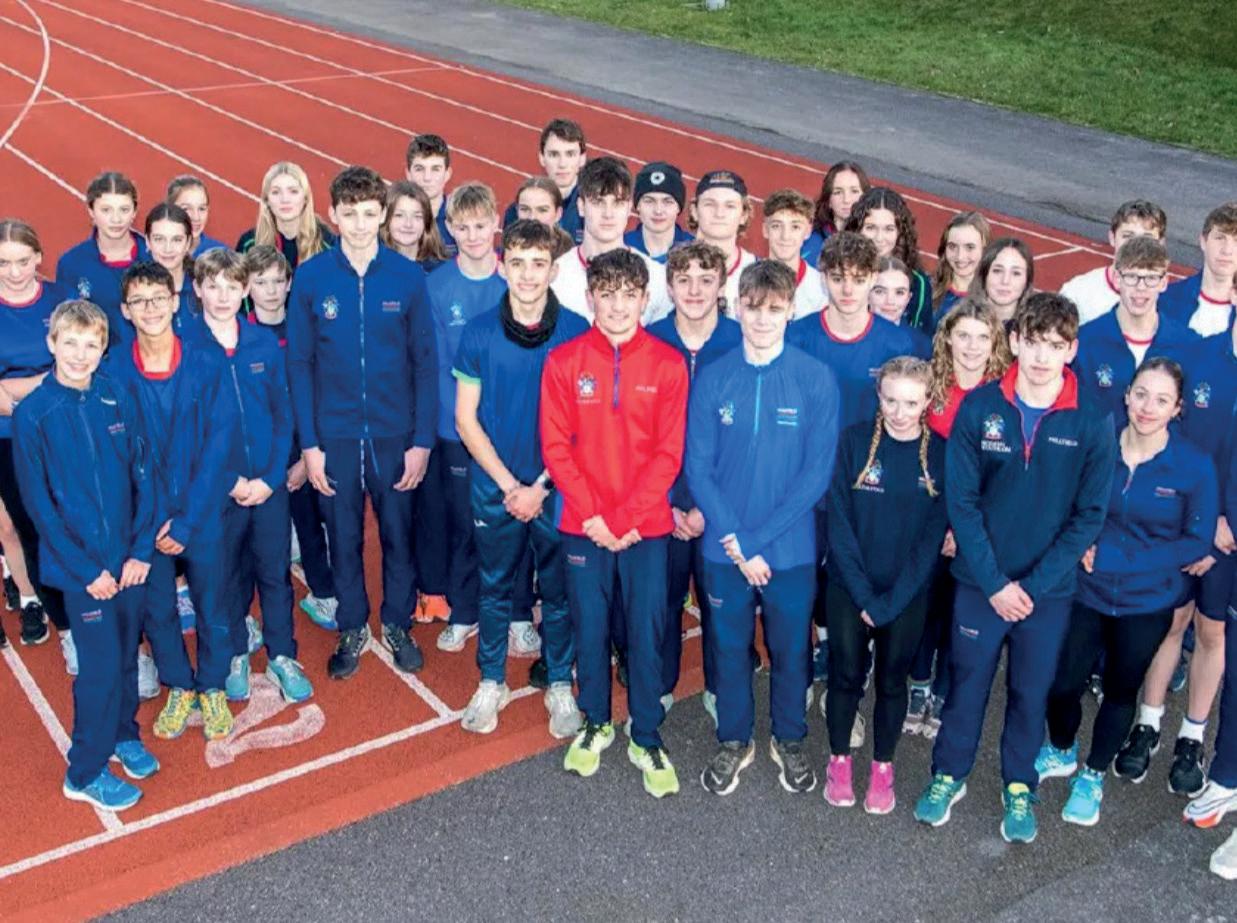
Royal Hospital School celebrates diversity as new head announced
ROYAL Hospital School’s art department in Holbrook, Ipswich invited its pupils and staff to sit for portrait photographs captured by pupils Niece (Year 12) and Ovie (Year 11).
The budding photographers had been inspired by Cephas William’s moving installation ‘A Portrait of Black Britain’, during Black History Month.
Following Cephas Williams’ vision for ongoing discussions, recognition and celebration, the school intentionally chose to wait until after October to unveil the portraits – transforming the initiative into a continuous celebration of its black pupils and staff.
Harriet Barber, Head of Art at the school, said: “The idea was to capture the vibrancy and beauty of our black community, and celebrate the future of black Britain. Pupils Niece and Ovie have done an amazing job taking the shots.
“The display is a wonderful, vibrant, heart-warming celebration. Over 30 pupils and staff have had their portraits taken and we hope more members of our school’s community will come and be photographed”
The installation has taken pride of place in the school’s art atrium where it will be on display for the forthcoming year. The installation will continue to grow with new pupils and team members joining the school over the coming months. >>>
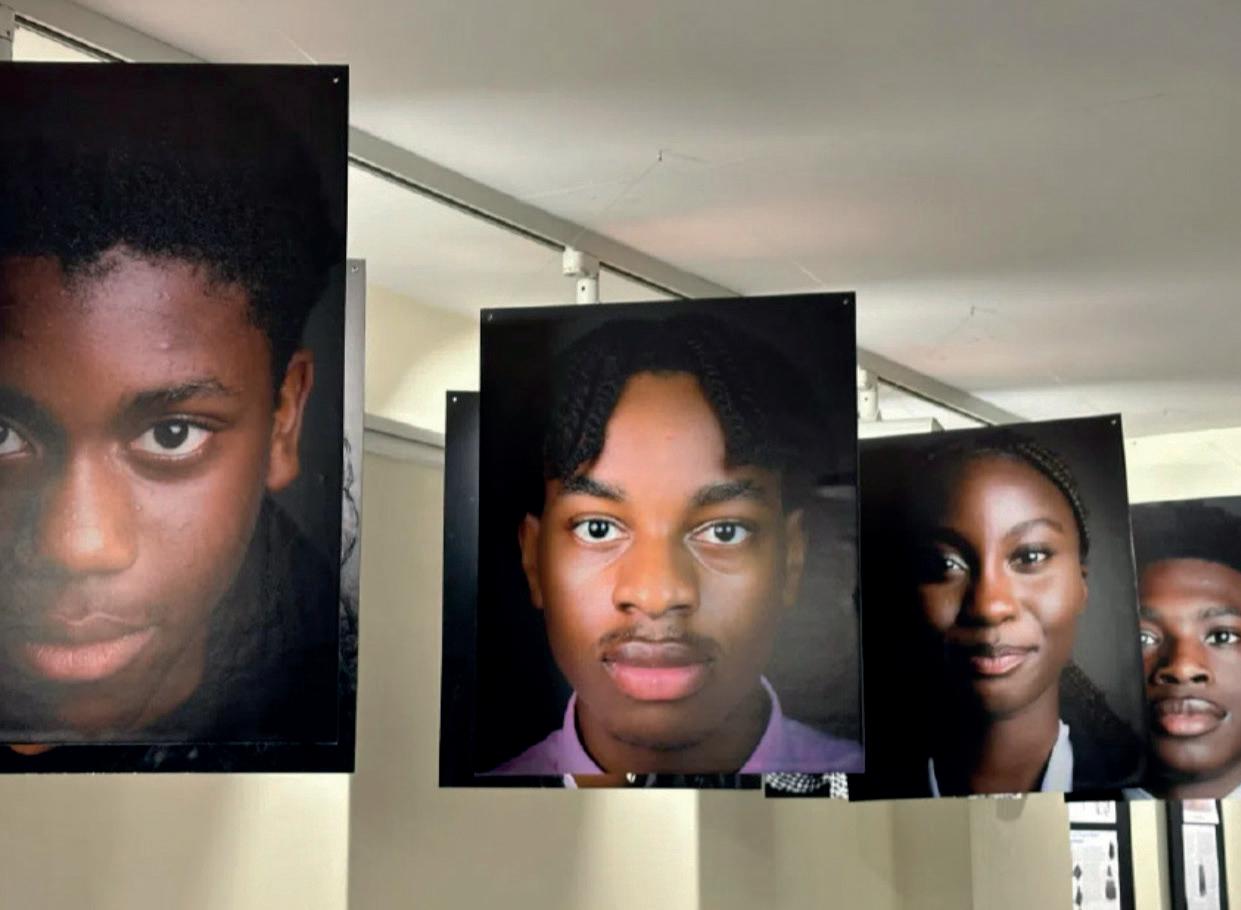

<<< The art project comes as Royal Hospital School announced its new Head, Irfan Latif, who will begin his role on 1 September 2024, joining from his position as Principal at DLD College London, based in Westminster.
Irfan was previously Headmaster at Sexey’s School in Bruton, Somerset, and Deputy Head at Bedford School.
Mark Pendlington, Chair of Governors at RHS, said: “We undertook a rigorous recruitment process, attracting a very high quality of applications. Irfan’s


senior experience as an education leader with 25 years in teaching, and over 15 years as a Deputy Head and Head, made him an outstanding candidate.
“Irfan has a proven track record as a team leader on a local and national level, and has developed powerful partnerships and networks beyond the school gates. “We believe these qualities will allow RHS to look to the future with confidence, so that we are able to inspire and motivate every child in our care to achieve the very best for themselves in a rapidly changing world.”
Mr Latif said: “It’s an honour to have been appointed the 11th Headmaster of the Royal Hospital School in Suffolk. With its rich heritage and commitment to excellence, this prestigious institution has long stood as a beacon of outstanding education and character development in the East of England.”
RHS is the only school in Suffolk to be featured in the Tatler School’s Guide 2024.





Ripon student wins place in top national choir
RIPON Grammar School student Anastasia Bell has secured a coveted place in the National Youth Choir.
Anastasia, who has been singing in choirs since primary school and began formal training at 12 years old, was delighted to have been picked following a highly competitive audition.
It means she will be tutored by renowned vocal coaches and get the chance to perform in prestigious concert venues.
“This choir is known nationally and composers from around the country write music specifically for the choir to perform,” she says. Michael Barker, Director of Music at RGS, said it was a great achievement: “Tassy is a superb musician and committed leader in our Chamber Choir. We are all very excited for this great and well-deserved opportunity.” >>>




























Spring 2024 | 13 NEWS Visit Shrewsbury School Boarding and Day School for Girls and Boys aged 13-18 Start your journey now at: shrewsbury.org.uk/open-days or contact: admissions@shrewsbury.org.uk | 01743 280 552 WINNER Independent School of the Year 2020 WINNER Community Outreach Award 2020 Independent Senior School of the Year Boarding School of the Year Excellence in Creative Arts Shrewsbury School Advert - 125mm high x 185mm wide - July 2023.indd 1 26/07/2023 10:42
<<< Anastasia, aged 17, from Thirsk, did her vocal audition, which involved some musical exercises like improvisation and range testing, over Zoom.
She said: “I sang Die Lötosblume for them, a slow but beautiful piece by Schumann to the words of a German poem by Heinrich Heiner.”
She will now take part in one or two week-long residential courses throughout the year, as well as studying for her A levels in German, religious studies, politics and chemistry.
“They involve singing from dawn until dusk, either in smaller groups as a whole choir.”
At the end of each course, the choir performs a concert at special venues which in the past have included Ely Cathedral and the Royal Albert Hall. Anastasia admits that a lack of confidence is her biggest challenge, and added: “I always get nervous just before a performance. But I think music has a fantastic power to unite people. The feeling of taking part in group music, when the harmonies hit just right, is incomparable to any other sensation. It’s a cliché but it really is a sort of universal language.”
Anastasia, who has achieved Grade 6 in singing and 5 in piano, sings in RGS’s Chamber Choir in addition to performing with singing teacher June Garbutt’s Skelldale Singers. As well as
juggling her A level studies with music, she also finds time to practise judo and make her own clothes.
Taunton School renews cricketing sponsorship deal with Somerset
SOMERSET County Cricket Team’s Tom Abell is to receive official player sponsorship from Taunton School for the second year running.
Tom – a student at Taunton School between 1996 and 2012 – was captain of his home county team from 2017 to November 2023.
Taunton School is currently one of the UK’s best schools for cricket, according to The Cricketer’s Schools Guide 2024. With the Senior School in the top 100, and Prep in the top 50, Taunton is one of only a handful of schools to have both senior and prep schools included in the guide.
Pete Sanderson, Taunton School’s Director of Cricket, said: “We are delighted to be continuing our relationship with Tom. He is an amazing role model not just in terms of how he plays his sport, but also from his time at school.
“Tom was able to mix sporting achievements with academic success – he engaged with every part of school life. This engagement and finding your own exceptional is the central part of

the Taunton School journey – and Tom exemplified how it worked at its best.” Taunton School’s cricket heritage continues to thrive with current students Ben Church, Oscar Coleman, Kian Roberts, and Alice Robbins recently selected to join the Somerset County Academy.
Cricket coaching provision has grown and facilities have been further upgraded since Tom’s time at Taunton School. Both Mr Sanderson and former England cricketer Marcus Trescothick are ECB Level 4 coaches at the school, assisted by Dave Roberts, the current Somerset youth coach and ECB Level 3 coach.
Tom, aged 29, maintains a strong relationship with his old school, where he had a prolific scoring record and made his debut for the school’s 1st XI side at the age of 14.
Mr Sanderson said: “He was very humble and helped others to achieve their best, despite being a leading player in not just cricket, but also hockey and rugby. This trait has continued during his time at Somerset and we are thrilled to be able to support him.”
At Somerset, Tom has captained the county team for seven seasons, leading them to the runners-up spot in the County Championship in 2018 and 2019.
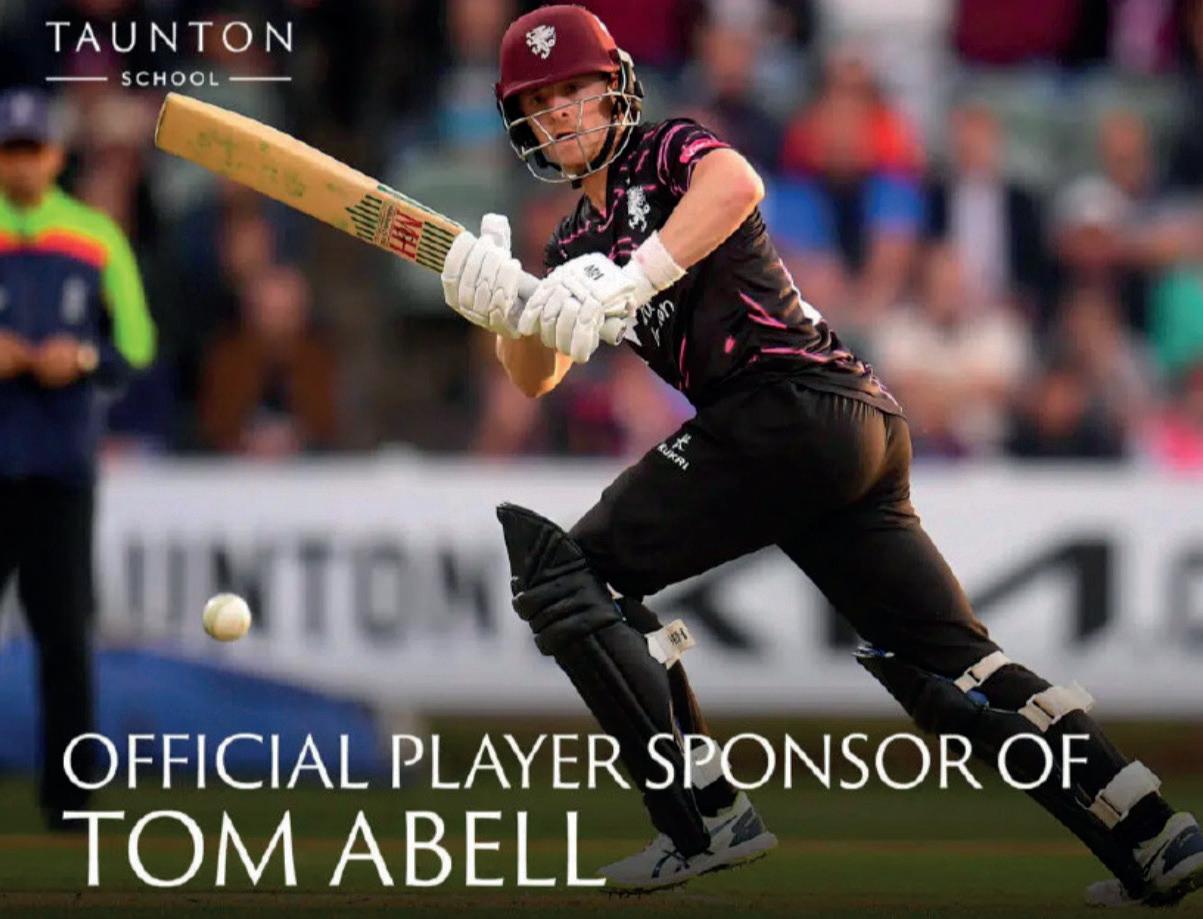
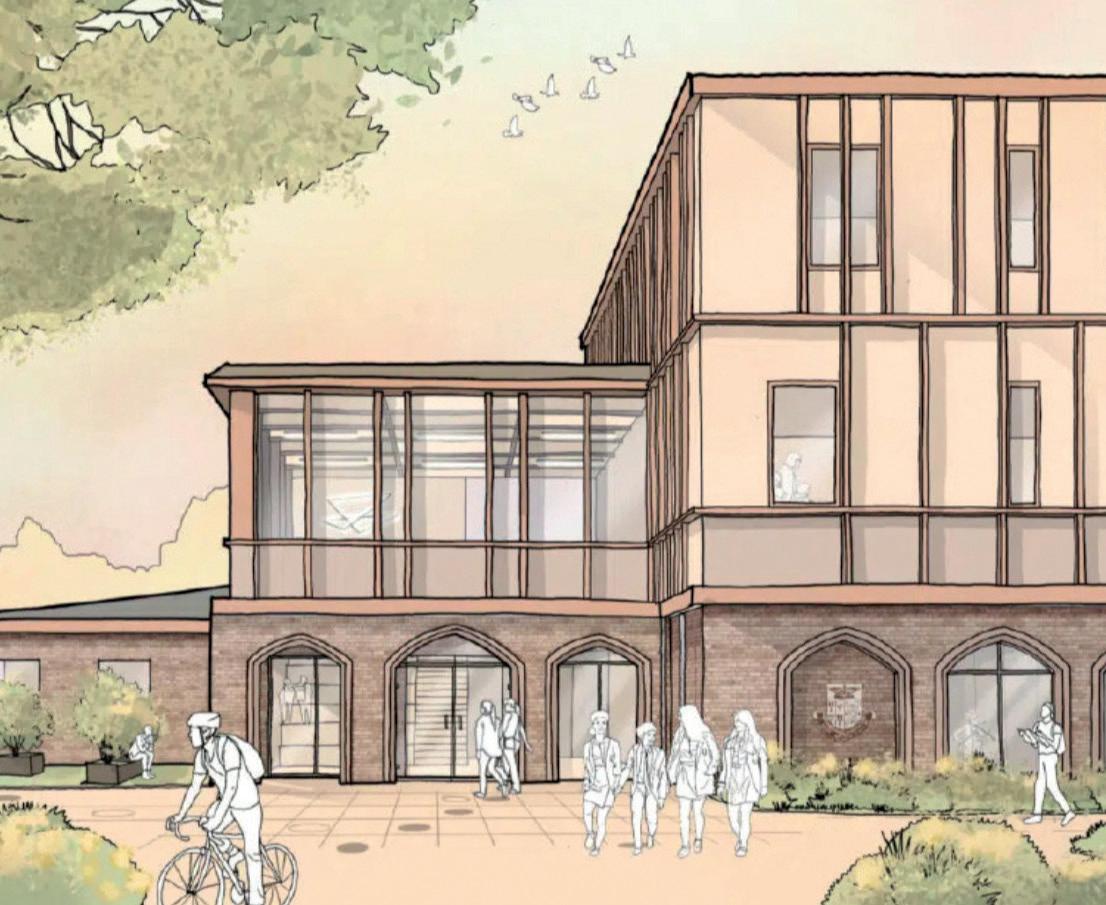
Truro School unveils exciting music project
TRURO School has announced the launch of the Truro School Music Project, aiming to enrich music within the school, the city of Truro, and the county of Cornwall.
It will see the creation of a new multimillion pound music centre and a refurbished multi-use hall to foster musical participation, excellence and inclusion within the school and the broader community.
Scheduled for completion at the start of 2026, the Truro School Music Project will create a hub for musical education and aspiration in Cornwall, offering facilities for pupils, the Truro community, and beyond. The project aligns with Truro School’s rich musical tradition, which delivers around 40 annual concerts and gigs, an annual Summer Festival, individual music lessons for over 250 pupils, and regular performances of major musicals.
The Truro School Music Project designs will be launched to the community during an event celebrating the importance of music and promises significant improvements, including: Andy Johnson, Head of Truro School, said: “I am proud to be heading a school that embraces the power of music education, investing in the cultural enrichment of the school and Cornwall’s wider community.” Gareth Churcher, Head of Service at Cornwall Music Service Trust (CMST), said:
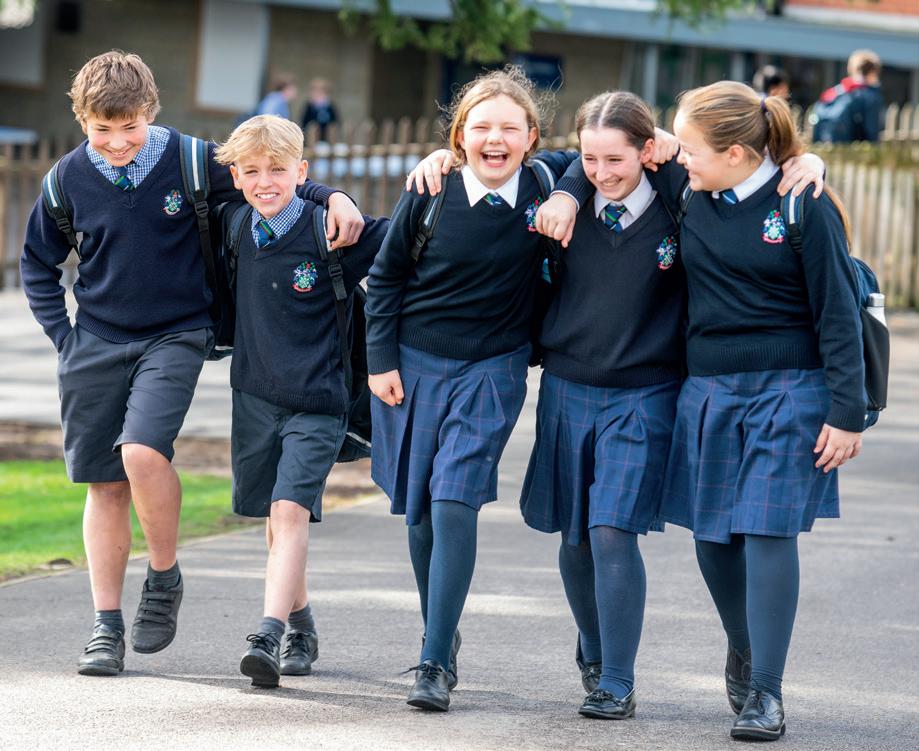
“The CMST is a charity providing music teaching, support, and therapy for close to 10,000 children across over 240 schools or settings in Cornwall. “We see this facility as incredibly important for music education in Cornwall. We are now in our 10th year of operation and are very excited about the opportunities this project will present.”
Truro School is nowworking alongside Tate + Co, one of the UK’s leading architects firms, and Truro-based property and construction consultants, Ward Williams Associates, to deliver the project.
Millfield’s hattrick of success
MILLFIELD Prep School was recently named Independent Prep School of the Year and received a double ‘excellent’ inspection rating.
The co-educational day and boarding school for ages two to 13, which offers full, weekly and flexi boarding from ages 7+, now has 130 full boarders, with a significant number of forces children.
Millfield Prep Head Dan Thornburn comes from a military family himself, and so understands the importance of consistency for a force’s child, plus the pressures that come with being part of a military family.
A school spokesperson said: “Providing a warm, holistic, home-from-home
environment is exactly what Millfield Prep achieves as a result. Set in 200 acres of Somerset countryside, we offer a diverse range of academic subjects, sports, creative arts and activities, supported by outstanding facilities.
“These include an equestrian centre, a 25 metre swimming pool, golf courses, science centre, music halls, tennis bubble and numerous sports pitches.
“The schools’ aim is to ensure that every child can discover their brilliance across all aspects of school life whether that’s in the classroom, on the sports field or on stage. Students and staff live by the school values: Be Kind, Be You, Be Challengers, Be Curious and Be Brilliant.”
Millfield also recently launched a wellbeing curriculum, educating pupils about their mental health and wellbeing through a series of activities such as yoga, music, walk and talk, and meditation.
Military families are offered a 15% Forces concession in recognition of their service, in addition to Continuity of Education Allowance. Parents can find out more at Millfield open days on 11 May or 5 October 2024. Visit www. millfieldschool.com/admissions/opendays to book.
Spring 2024 | 15 NEWS
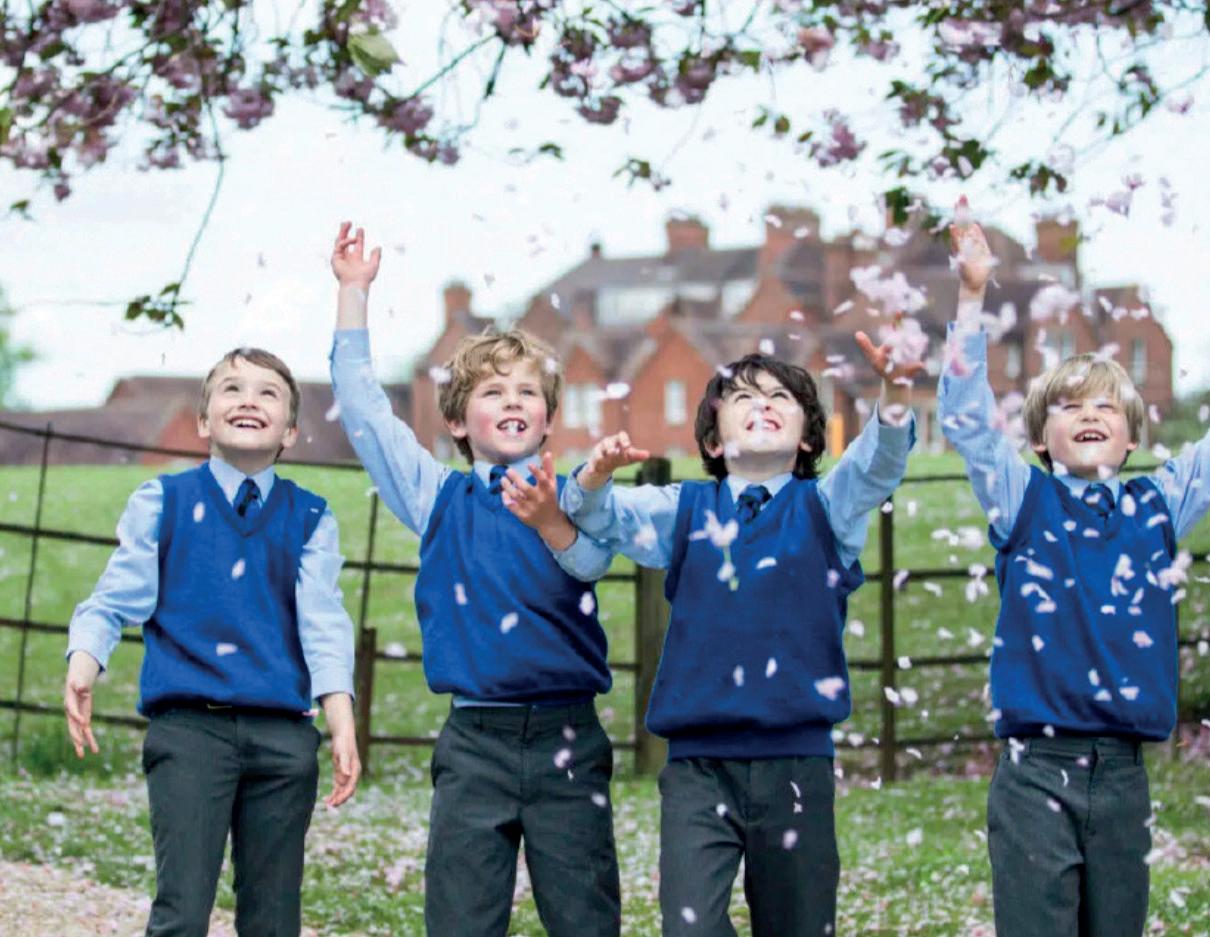
Girls to be admitted to Aysgarth School
AYSGARTH Prep School in North Yorkshire will continue its coeducational development from this September by accepting girl pupils for Years 4 to 8.
The governors’ decision to expand the co-educational model follows more than 30 years of teaching boys and girls from Nursery to Year 3 at Aysgarth’s Pre-Prep school.
Jonathon Anderson is Headmaster at the school, which has prided itself on academic excellence for boys for nearly 150 years.
He heads a staff at Aysgarth which enjoys a 50:50 male-to-female ratio, compared to 15:85 in the UK primary sector.
Mr Anderson and his wife Hester, who both have a wide experience in private education, emphasise that the Governors’ decision was made following feedback from a parent survey which indicated a strong desire for the change.
He said: “This decision is about making our best even better. Aysgarth has a longstanding tradition of preparing boys for success at leading senior schools and beyond.
“With this expansion, we aim to provide the same exemplary educational experience for girls, ensuring they
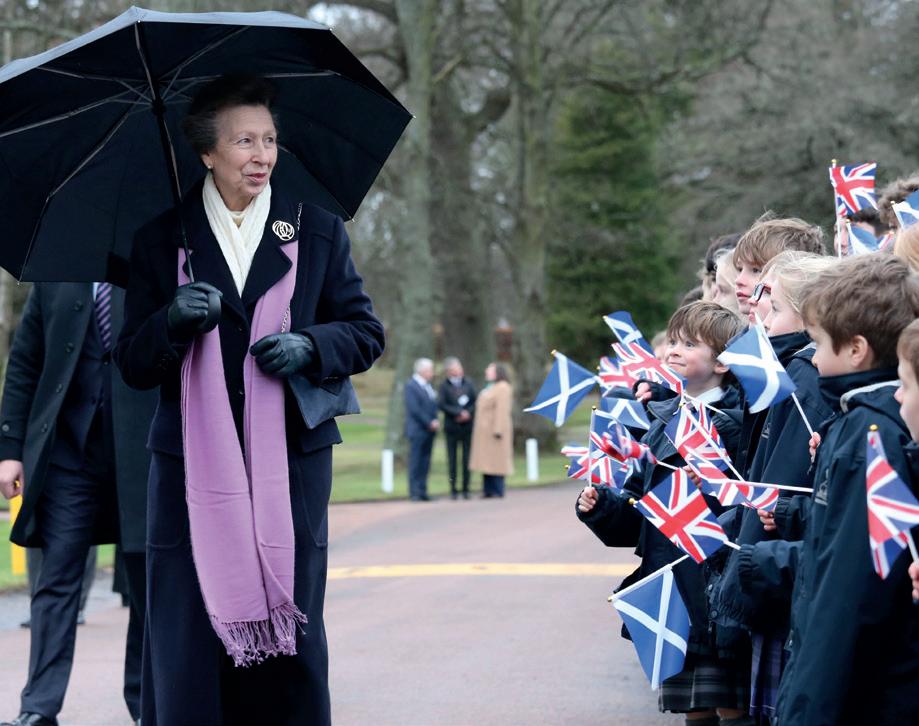
receive the finest opportunities, ambitious teaching, and celebrated pastoral care.”
Aysgarth has earned several recent accolades, from award-winning pastoral care to excellent academic results. Its Prep school is predominantly a boarding school, with Saturday lessons and a daily chapel service, and it sends pupils to more than 20 notable senior schools every year.
Mr Anderson added: “The school is looking forward to its new chapter and the opportunities it brings, continuing a tradition of providing quality education and preparing pupils for future success.”
Princess Royal opens Gordonstoun’s low carbon hub
THE Princess Royal has officially opened one of the UK’s greenest classroom buildings at Gordonstoun.
The Queen Elizabeth II Rooms were named in honour of the late Queen, and with the approval of King Charles, himself a former Gordonstoun student.
The Princess Royal, who holds the role of Warden at Gordonstoun, met students and was given a guided tour of the new classrooms.
This included watching demonstrations of how students at Gordonstoun are
using AI in the classroom, and learning how the school’s robotics club will be competing in national championships later this year.
The Queen Elizabeth II Rooms, clad with Siberian larch timber, boasts advanced environmental credentials such as solar PV panels, ground source heating and hi-tech CO2 monitoring.
The solar panels generate enough free energy for four months of the year, while the overall bill for the building has been substantially cut.
Lisa Kerr, Principal at Gordonstoun, said: “We are committed to providing our students with the best possible learning environment while being mindful of reducing our carbon footprint.
“The low carbon design is a signpost to how we want to develop the rest of the school estate as part of our bold masterplan leading up to the school’s 100th anniversary.”
She added: “Gordonstoun is always looking for ways to innovate and The Queen Elizabeth II Rooms’ is the first step in our biggest building project since WWII.
“HRH The Princess Royal spent time seeing how AI is used in the classroom and our robotics club gave an impressive demonstration, which hopefully bodes well when they compete in the National Championships later in the year.”


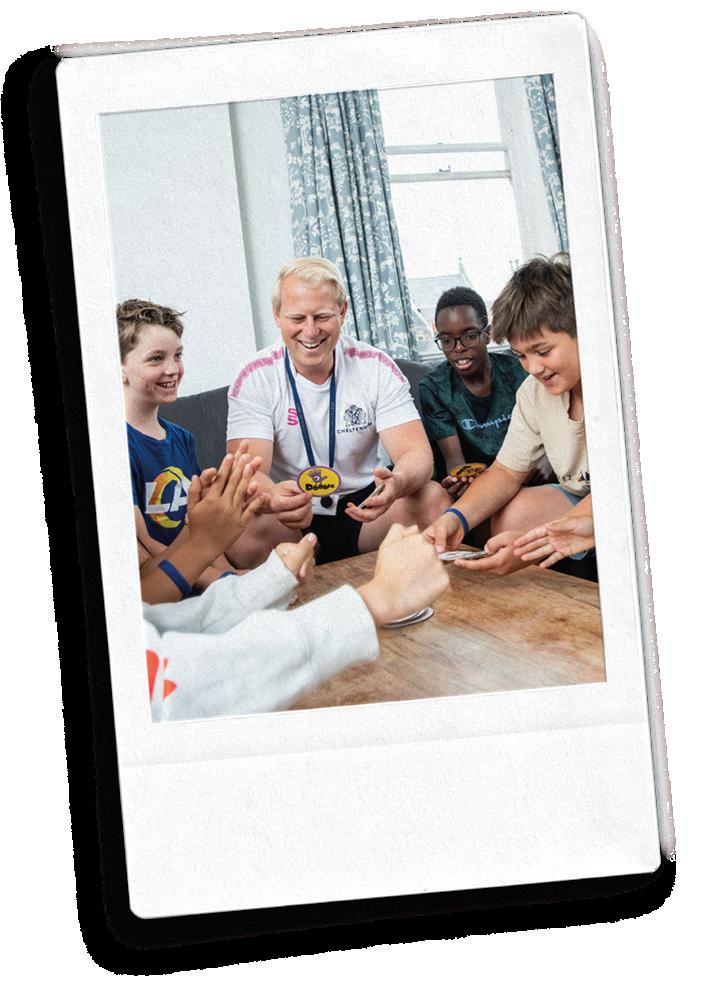
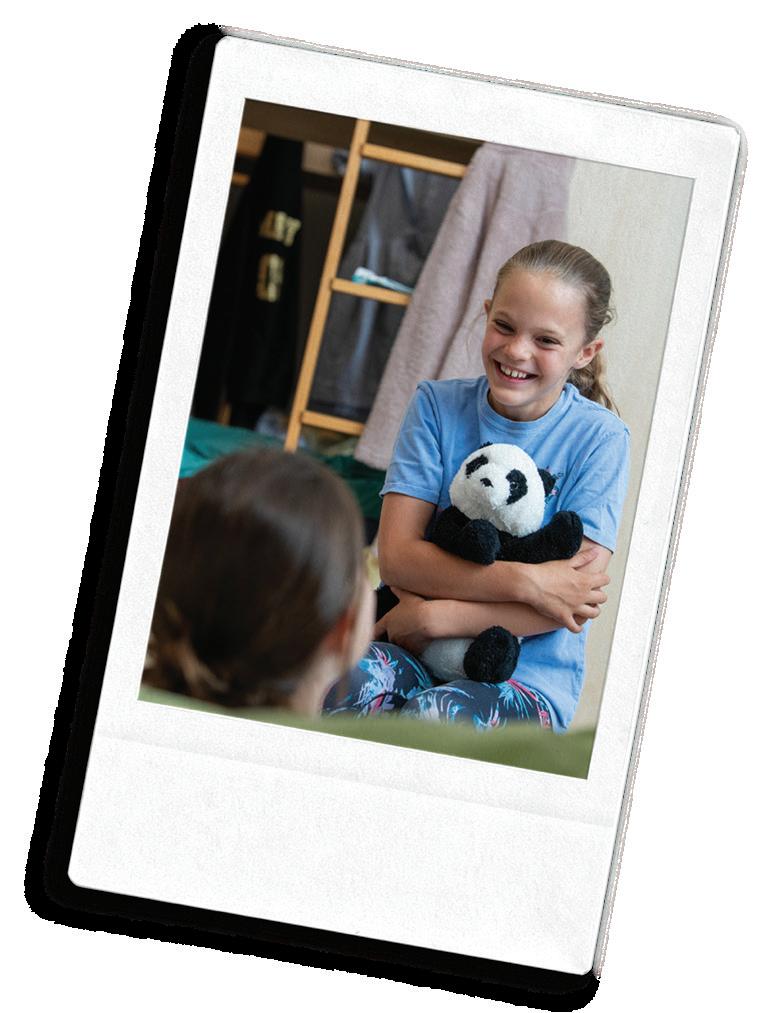

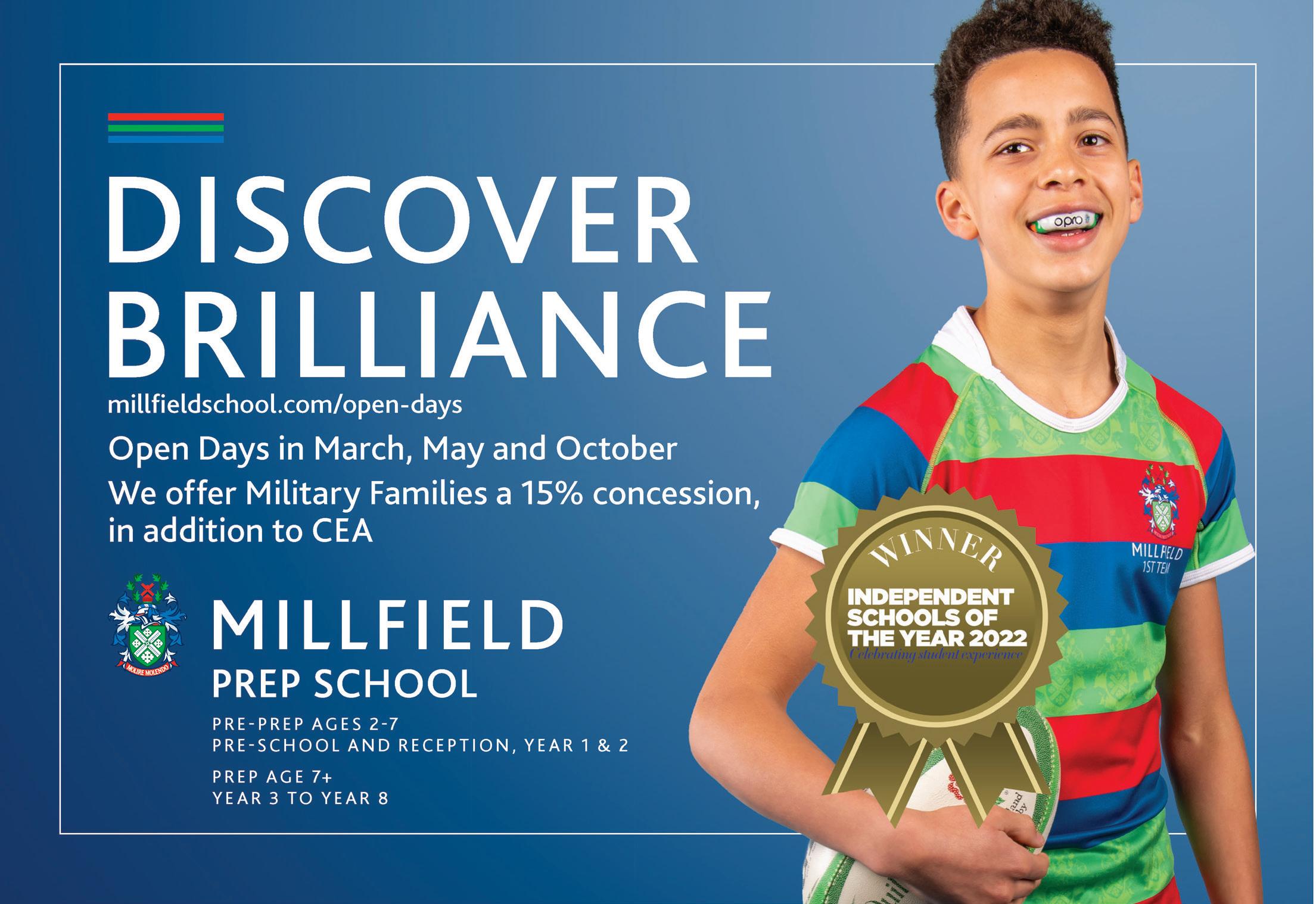
Spring 2024 | 17
CHOOSING SCHOOLS
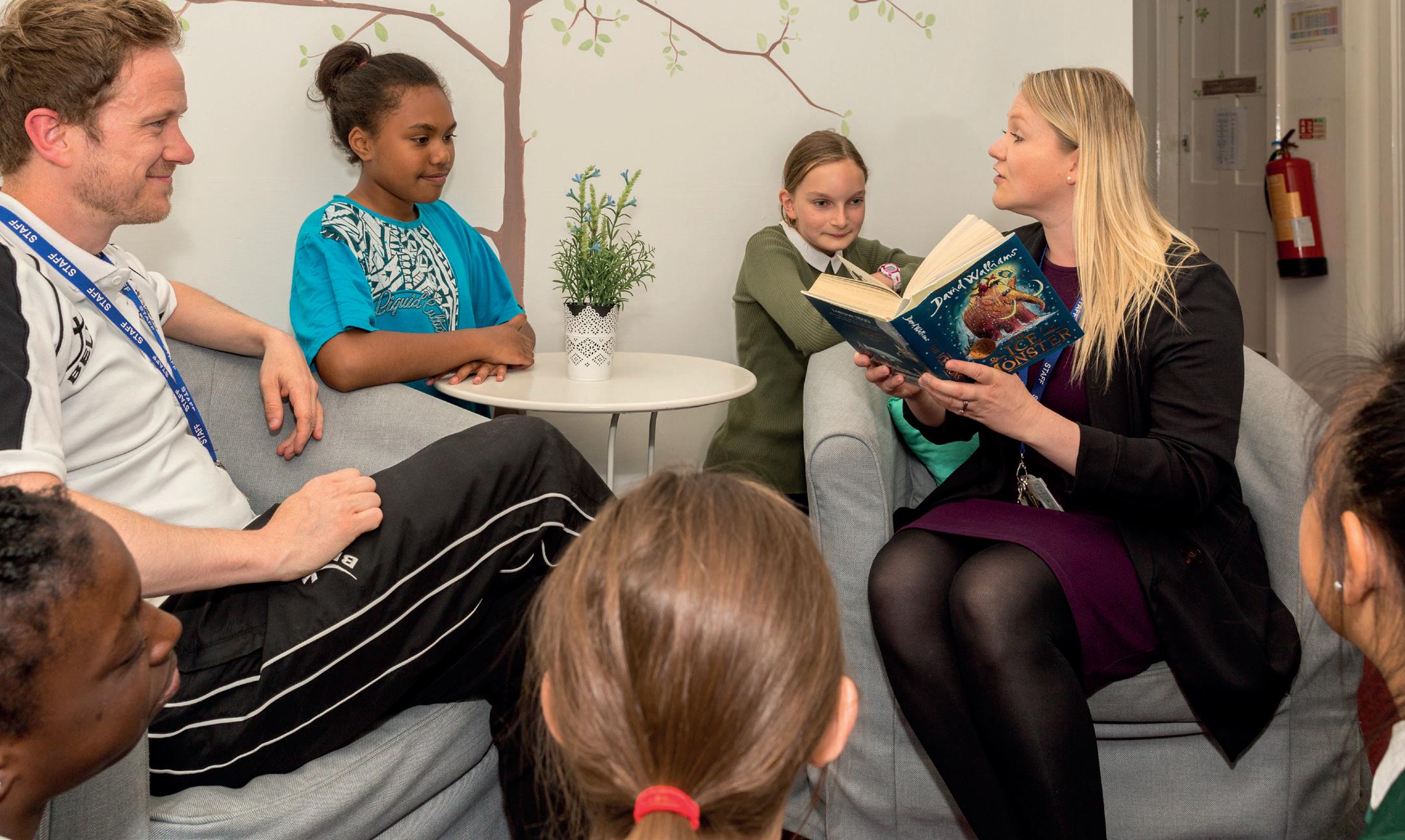
What about boarding schools?

Boarding pupils benefit from a wide range of extra-curricular activities. BARNABY LENON, Headmaster at Harrow School from 1999 to 2011 and Chairperson of the Independent Schools Council, explains.
BOARDING schools continue to be popular, offering exceptional education and extra-curricular activities with round-the-clock pastoral care. Parents can choose between different types of boarding to suit their child. Although full boarding remains most popular overall, the pattern appears to be changing with weekly and flexi-boarding becoming more popular.
The 2023 Independent Schools Council (ISC) Census, based on a survey carried out in January 2023, shows that: 70,123 pupils were registered to board during the 2022 to 23 academic year • 434 schools, 32 per cent of all ISC schools, had some boarding pupils, and 21.2 per cent of boarders were weekly or flexi boarders, up from 15.7 per cent in 2016.
The last statistic shows how many working parents value the flexibility of boarding options, although there are variations between age groups. For the sector as a
whole, 12 per cent of pupils at ISC schools board. At sixth form, the proportion more than doubles to over 30 per cent. For junior pupils, only 2 per cent of pupils board.
International pupils bring a global perspective to schools and enrich the community. The ISC Census recorded 25,469 non-British pupils whose parents live overseas. Pupils from Hong Kong comprised the largest group, and 2,073 pupils were from Ukraine. Of these, 786 had both parents remaining in Ukraine and 1,104 were new to ISC schools.
The parents of these pupils choose British schools because they want their children to master the English language. They understand the significance of extracurricular activities, and know attending a British school may be the best route to a British university.
Some boarding and day schools have set up franchise schools abroad. While I was headmaster at Harrow, we built schools
in Thailand, Beijing and Hong Kong. These schools pay fees to the British school to help keep parents’ fees down and can fund transformational bursaries. In return, the British school provides advice and monitors the franchise school to guarantee standards.
WIDENING ACCESS
In 2023, average fee increases were 5.6 per cent, similar to wage inflation, which means fees have grown only slightly in real terms. A total of 183,434 pupils receive help with fees, representing 34 per cent of all pupils. This help totals over £1.2 billion, up 5.9 per cent on the previous year, reflecting the long-term aim of our schools to widen access.
There has been a consistent trend of schools providing increasing amounts of fee assistance to pupils in the last 15 years. Almost 40,000 pupils receive means-tested bursaries, valued at £494 million in 2023. The average bursary is worth £11,807 per pupil per year.
‘Photo with kind permission of Gordon’s School
BOARDING ADVANTAGES
Boarding schools have many advantages: They offer a wide range of extra-curricular activities because of the time pupils spend on school grounds. They also tend to attract staff keen on high levels of sport, music and drama.
• They take pupils from all over the UK and abroad. The opportunity to know people from many walks of life and different cultures is itself a valuable educational experience.
• Boarders do not have to face challenging journeys to school.
THINGS TO CONSIDER
The boarding environment is positive and fun, but remember:
Boarding houses can be noisy places full of other children.
• Being away from home will be a new experience for children and their parents. Boarding requires substantial investment, although more than a third of ISC school pupils receive help with fees.
Choosing to board is a personal decision for parents to make with their child, with support and advice from their chosen school. Every school is different and individual details can be found on their websites, or via the ISC website.
DETAILS ON ISC
The ISC is a membership organisation combining seven education associations. It works on behalf of more than 1,400 independent fee-charging schools in the UK, educating more than 550,000 children a year. The ISC has three main functions: policy and public affairs; media and communications; and research and data. The ISC aims to be a service organisation, promoting and protecting the independent education sector.
The ISC has a central base in London where all types of independent schools (prep, mixed and single-sex, academically selective and non-selective, day and boarding) can meet to discuss issues of common interest. For more information, visit www.isc.co.uk
□ Barnaby won the Cambridge University Prize for Education, taught at Eton, was Deputy Head of Highgate School, Headmaster of Trinity School Croydon and Head of Harrow. He was the founding chair of the London Academy of Excellence, a state free school in East London. He has been a governor of 22 schools and is a trustee of the 12 independent and state schools in the King Edward’s Birmingham Foundation. He is also Professor of Education at the University of Buckingham and a trustee of the charity Yellow Submarine. He was awarded a CBE for services to education in 2019.
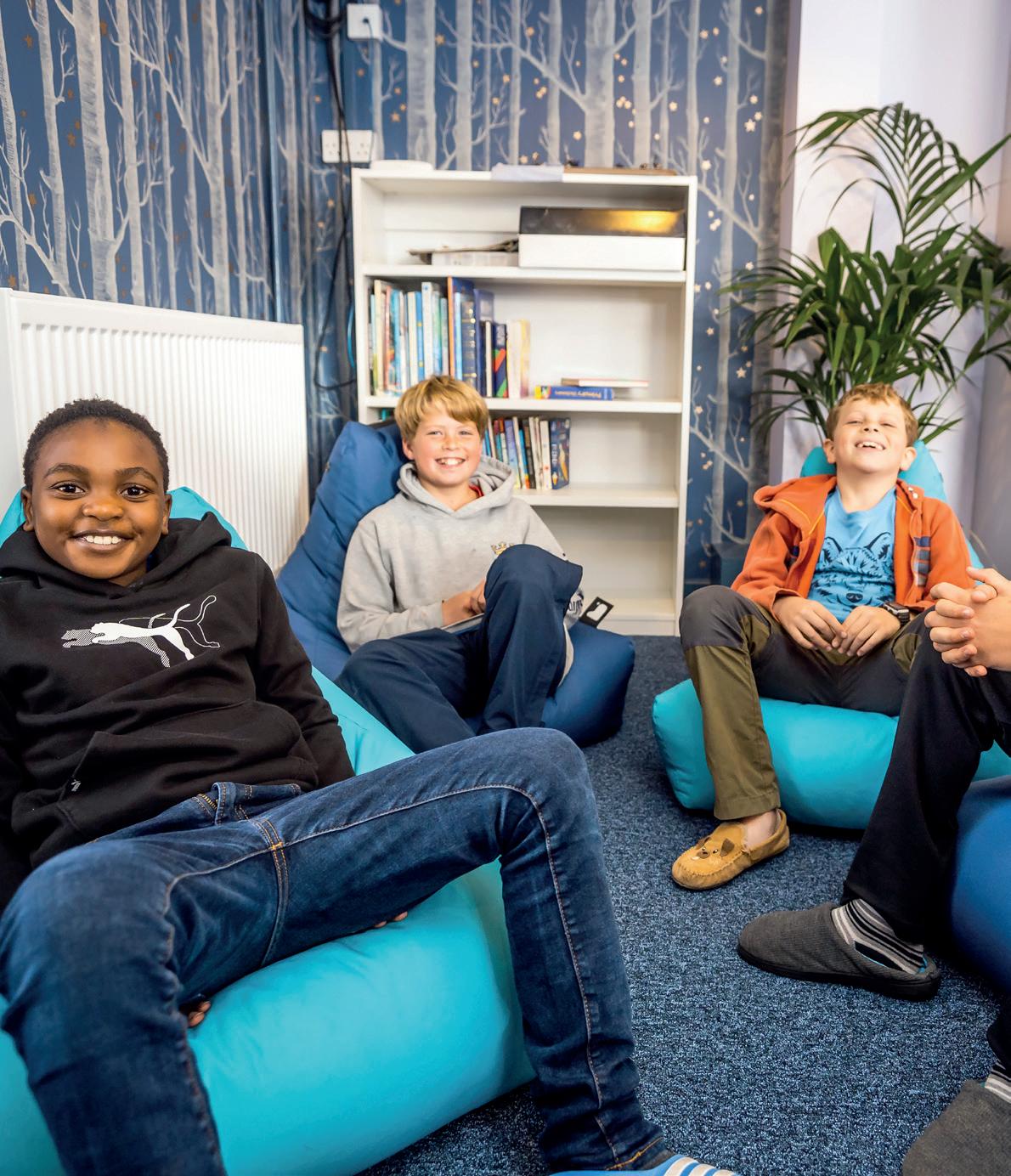
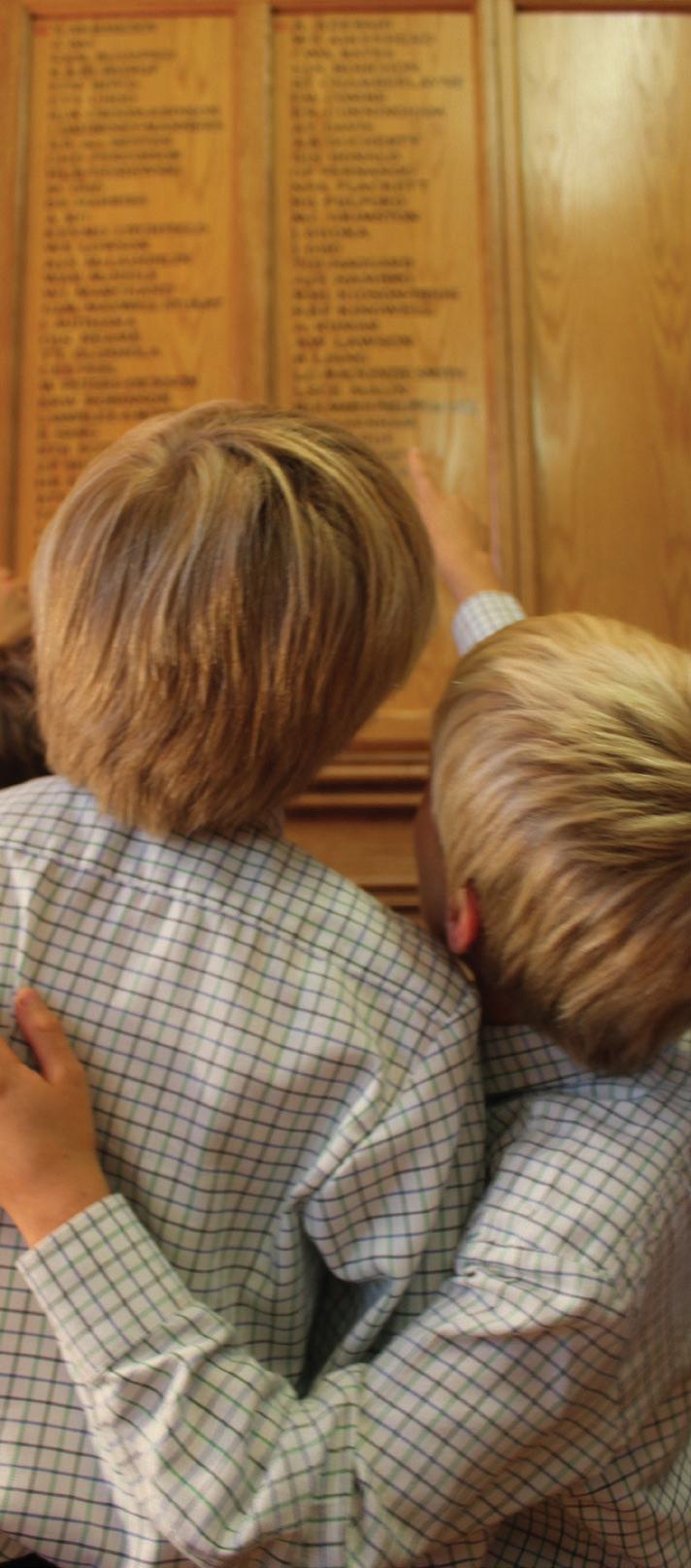
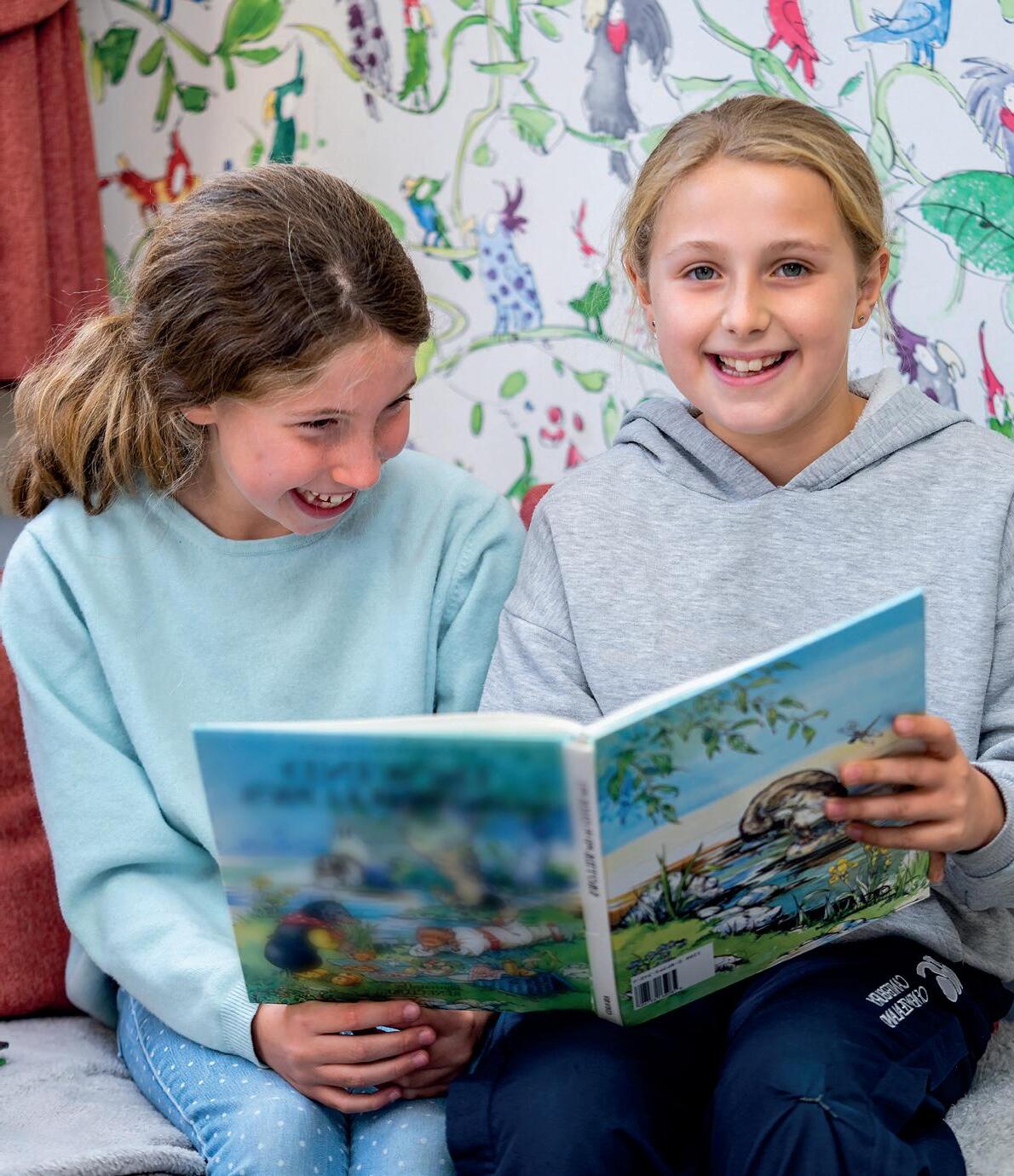
Spring 2024 | 19 CHOOSING SCHOOLS 01963 442 606 | www.hazlegrove.co.uk | admissions@hazlegrove.co.uk | Sparkford, Somerset, BA22 7JA #GreatStoriesBeginHere Co-educational Boarding & Day Prep School | Outstanding Extra-curricular Activities | Rural Somerset YOU ARE INVITED TO JOIN US FOR OUR FORTHCOMING OPEN MORNINGS - BOOK YOUR SCHOOL VISIT TODAY Great stories begin here... SCAN FOR MORE INFORMATION
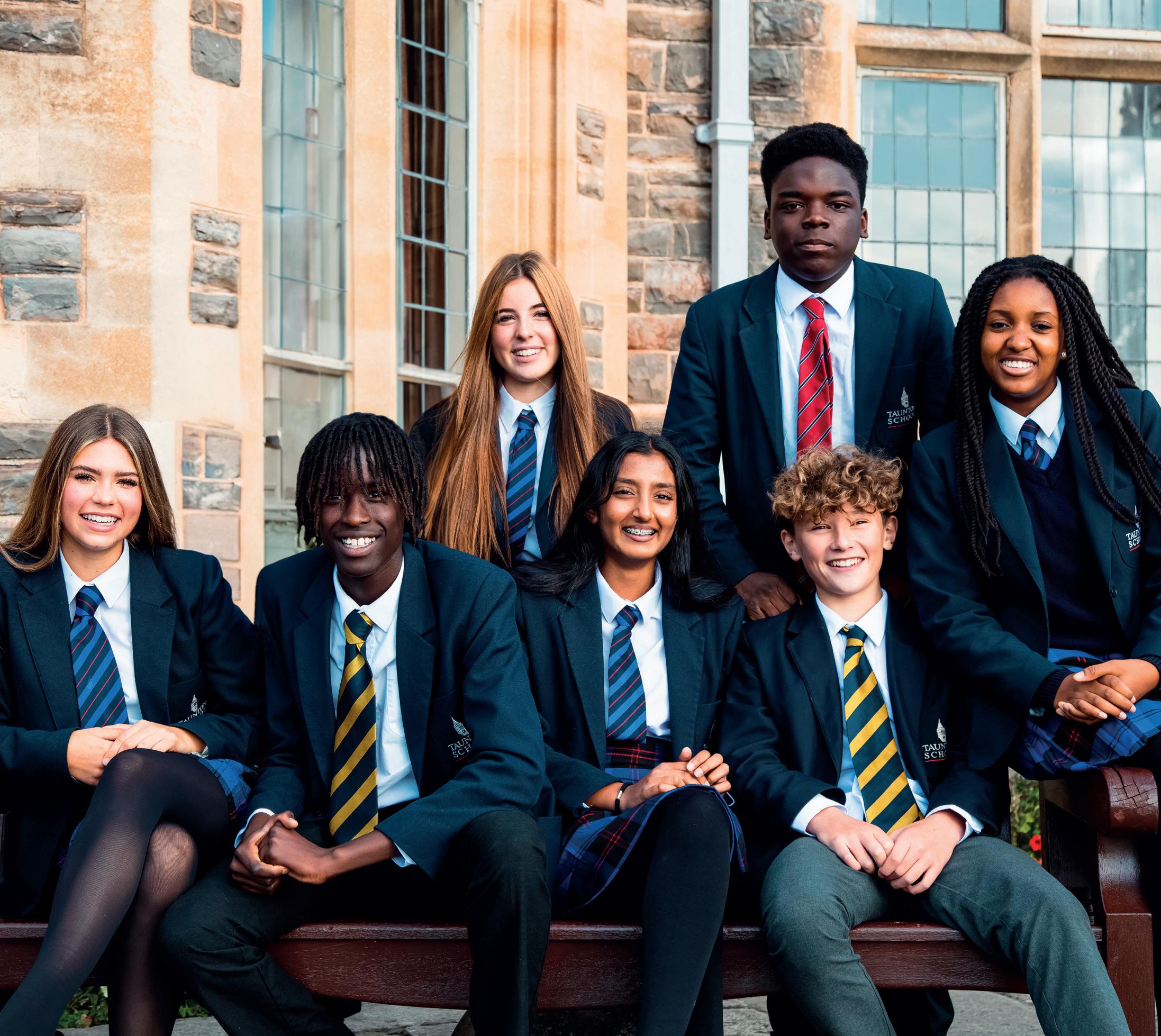
What makes a good boarding school?
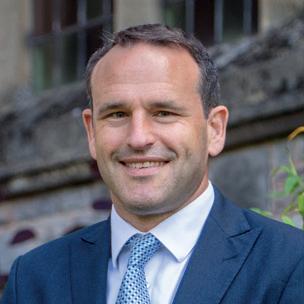
Integrity and humility, independence and ambition are just some of the qualities excellent boarding will bestow on its pupils. JAMES JOHNSON, Headmaster of Taunton School, explains more.
MANY key ingredients need to come together to create an excellent boarding experience. A school where students also live is at once a place of inspirational learning and a child’s second home. It is where daily classroom demands and deadlines have to be balanced with space to unwind and time to explore extracurricular interests.
That’s why boarding provides a unique educational experience. At its best, boarding gives pupils an exceptional opportunity to discover their true potential in a nurturing, supportive environment. But how can a parent assess whether a school is not only doing a great job, but is also the right one for their child? At Taunton School
we have worked hard as senior leadership team to define what it is we do well and to ensure we continue delivering the highquality education our parents expect. We believe there are four key ‘pillars’ underpinning everything we do and which prospective parents might find useful to ask as they search for the right school. They are as follows:
Does a school foster a culture of ambition?
• Does it cultivate a mindset for life?
• Do pupils feel a sense of belonging to a school community?
Does the school embrace a global outlook?
Every boarding school is different, but essentially students will thrive academically,
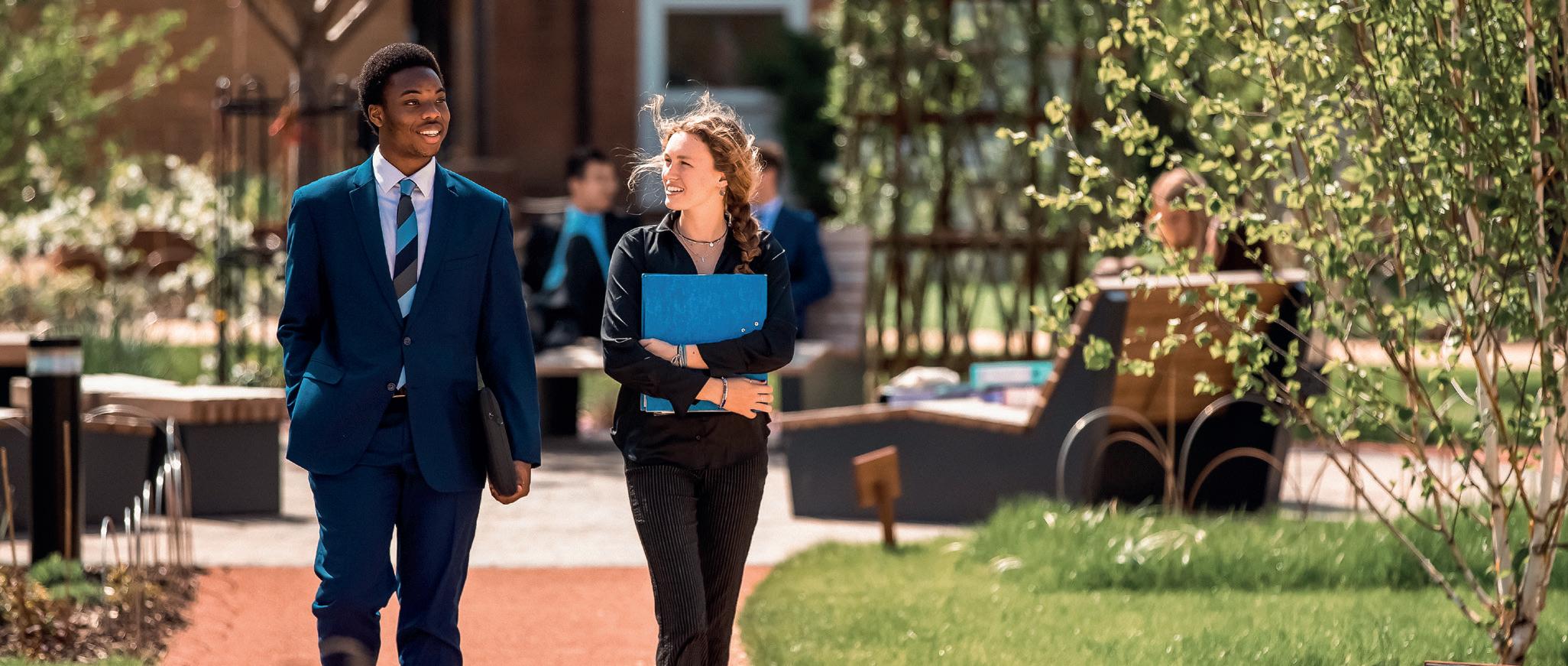
socially and emotionally if a school is delivering across these key categories. At Taunton School, with its nursery, pre-prep, prep, senior and international schools on the same site, we have a large boarding community of 450 pupils with very different needs. For many of our pupils it is often the whole family’s first experience of boarding. Parents need as much regular contact and reassurance from committed house staff as their children.
Adapting to life in the UK for our international students is not just about mastering English, but getting to grips with a new culture, its quirks and traditions. Staff go the extra mile to make sure pupils do not become homesick and instead settle in to a welcoming and inclusive family, rooted in kindness and compassion.
Given that a boarding school is a pupil’s home-from-home, access to a wide choice of extra-curricular activities is imperative to fill the hours outside the classroom and allow students the freedom to find their true selves. Whether it is on the sports pitches, on the stage, or in the music room, extracurricular activities after school and at the weekend help build a sense of belonging and develop resilience in the long term.
We have 150 extra-curricular clubs at Taunton. This wealth of opportunities unearths passions and hidden potential, weaving strong connections across our community – connections which last long
after leaving school. Whatever a child’s story and their background, boarding schools should be special places where diverse communities come together to make a greater and more powerful collective.
At their heart should be an outstanding pastoral care system. Students should feel supported by housemasters and mistresses, their teachers and counsellors in a wraparound approach. This enables them to thrive fully in the knowledge that there is always someone to turn to.
Of course, the best way to find out if a school is measuring up to the promises of its prospectus is to visit. For some parents, just walking through the front door is enough to convince them they have found the right school for their child – or not, as the case may be.
There is no doubt that an inspiring learning environment which celebrates each individual child is a compelling offer. Talking to students and observing how they interact with one another and with all staff – from the catering team to the headteacher – will tell you a lot about a school. Do the children show respect for all members of their community? Are the boarding houses warm and welcoming, the teachers calm and engaged?
While schools might not be able to itemise the exact ingredients of a great boarding experience, the proof that their approach is working is in the students
themselves. Integrity and humility, independence and ambition are just some of the qualities excellent boarding will bestow on its pupils, creating wellrounded individuals who make a positive impact on the world.
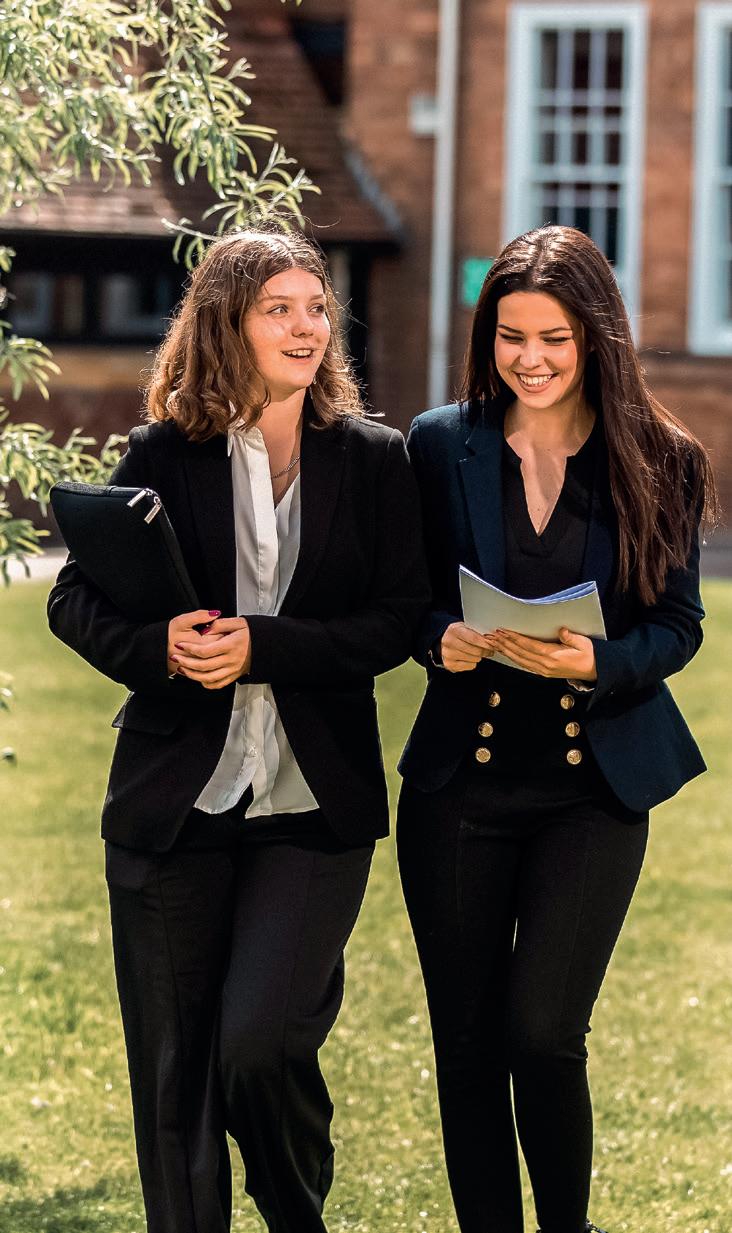
□ James became Headmaster of Taunton School in September 2022, having previously been Head of Senior School at Ardingly College, Sussex. He has spent more than 20 years working in boarding schools, firstly as an English teacher and boarding tutor at Cheltenham College, then as a Housemaster at Tonbridge School in Kent, before joining Ardingly in 2016.
CHOOSING SCHOOLS Spring 2024 | 21
How boarding schools are inspected

ENGLAND
All UK boarding schools, state and independent, have boarding facilities inspected, prioritising outcomes for children and young people, and focusing on other key areas like premises, facilities, policies and procedures. DALE WILKINS, Senior Director at BSA and BSA Group, explains the details.
THE Independent Schools Inspectorate (ISI) now inspects all boarding schools that are members of one of the five independent school associations (GSA, HMC, IAPS, ISA, Society of Heads) every three years, under the new Framework 23.
Boarding inspections are carried out by a specialist team of ISI boarding inspectors, and this takes place alongside the inspection of education provision. The new framework is published on the ISI website, along with all current and future school inspection reports for each provider.
State boarding providers and all independent providers who are not members of one of the associations listed above have their boarding inspected by Ofsted, using Ofsted’s Social Care Common Inspection Framework (SCCIF). Boarding is inspected by a team of specialist social care inspectors. This may be standalone, or it may be aligned with the inspection of education provision by the relevant Ofsted team. Provision is judged to be outstanding, good, requires improvement or inadequate. A small number of independent boarding schools are classified as special schools, and these have an annual social care inspection. Ofsted reports are publicly available, although most schools have separate reports for their boarding and education provision, and these can sometimes be difficult to navigate.
Common to both inspctorates are the National Minimum Standards for Boarding Schools, published by Department for Education (DfE) and last updated in 2022. Part A of the 2022 standards focuses on governance, leadership and management. The aim is that “the leadership, management and governance of the school enables a culture to thrive which is child-centred, safeguards children’s wellbeing and is ambitious for the progress of every child. Monitoring and accountability is strong and adds value.” Further sections of the standards highlight:
boarding provision health and wellbeing
• safeguarding
• health and safety
• boarders’ rights, advocacy and complaints promoting positive behaviour and relationships
• activities and free time
• staff recruitment and checks on other adults, and lodgings and host families.
The other key document is Keeping Children Safe in Education, also published by DfE. This is updated every September and applies to all schools.
If a school is found to be non-compliant, DfE may direct the inspectorates to
conduct additional or progress monitoring inspections. The school may also be required to produce an action plan showing how the shortfalls identified will be rectified.
SCOTLAND
Education Scotland inspects all education provision in Scotland. The Care Inspectorate inspects boarding, using both the Health and Social Care Standards and its own quality framework. Schools are assessed against a six-point scale for: quality of care and support
• quality of environment
• quality of staffing, and
• quality of management and leadership.
Schools are also required to follow other guidance, such as the National Guidance on Child Protection.
WALES
Estyn, the education and training inspectorate, inspects the education provision of independent and state schools in Wales. Boarding schools in Wales have additional residential inspections from Care Inspectorate Wales, using the National Minimum Standards for Boarding Schools (Wales) as a baseline. At the time of writing, these standards are being reviewed and may change. Reports comment on wellbeing, care and support, leadership and management and the school environment.
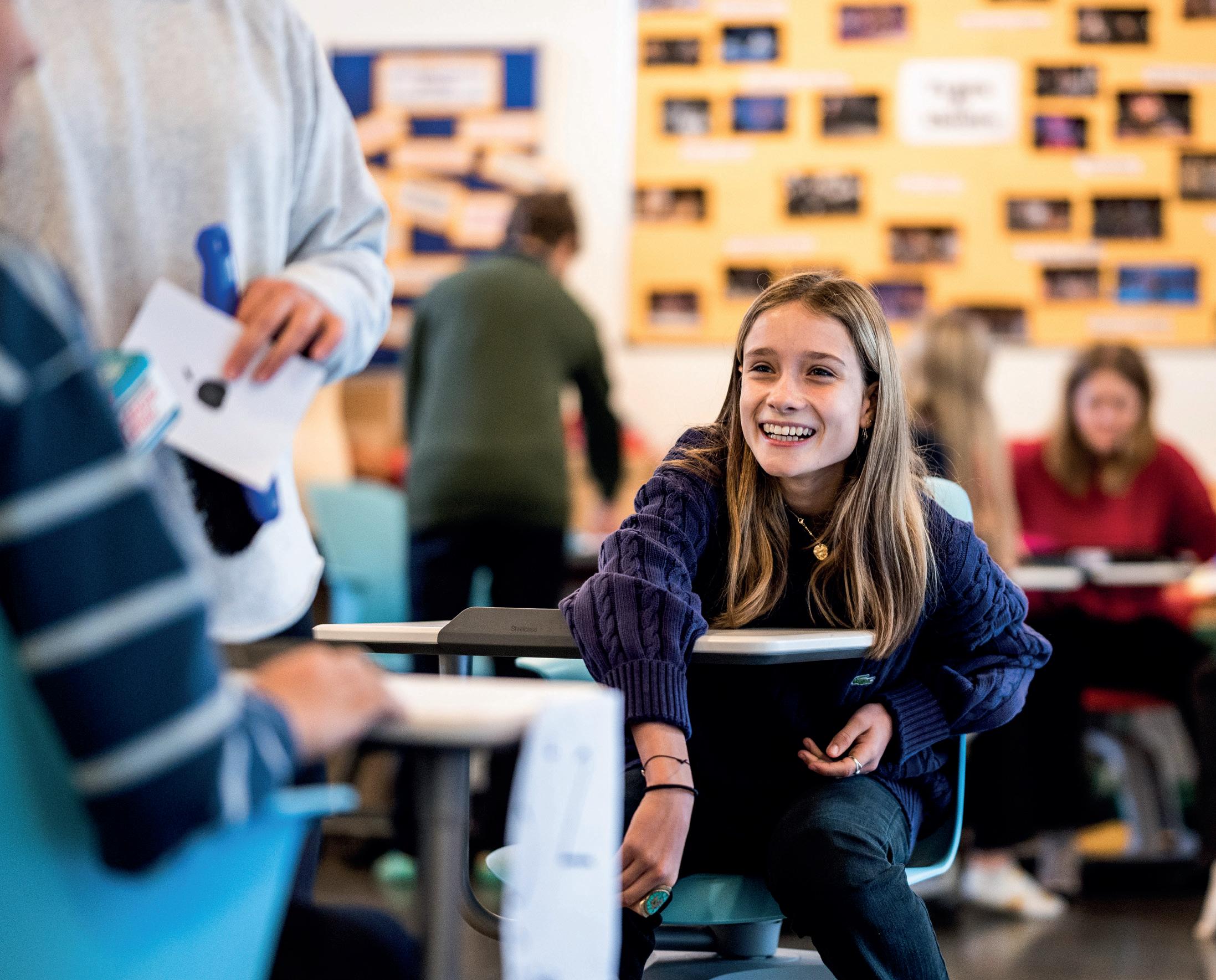
NORTHERN IRELAND
There are very few boarding schools in Northern Ireland, and these receive visits from the Regulation and Quality Improvement Authority (RQIA). RQIA evaluates the degree to which care at the school is safe, effective, compassionate and well led.
ISLE OF MAN
The Isle of Man also has a separate set of boarding standards.
OUTSIDE THE UK
Boarding schools outside the UK can use BSA’s own set of voluntary accreditation standards.
SUPPORTING BOARDING SCHOOLS
BSA liaises closely with the relevant government department and with the
inspectorates to support boarding schools. BSA Group also provides targeted training and bespoke consultancy across the whole range of quality and compliance issues which boarding schools face.
This includes an extensive range of webinars, day seminars and conferences, both face-to face and virtual, with the majority now online. We have extended our reach to over 1,600 settings in more than 40 countries.
At the programme’s core is the groundbreaking series of certificate and diploma courses, which have been at the heart of best practice in the sector for 25 years. These are central to BSA Group’s mission to support excellence in boarding, safeguarding, inclusion and health education.
□ Dale has worked in boarding for 31 years, with roles in junior, senior, boys’ and girls’ houses, and in senior leadership in both state and independent schools. He has been a boarding inspector and a local authority safeguarding trainer. He joined BSA in 2017 with responsibility for safeguarding and standards, having been a course tutor since 1998. He leads on all BSA safeguarding and inspection matters, including the Commitment to Care Charter. Dale has also developed BSA Accreditation for international members. He liaises with ISI, Ofsted and DfE on compliance and inspection standards, and oversees BSA Group’s work in Wales and Scotland. He has compiled the BSA Self-Assessment toolkit since 2002.
Photo with kind permission of Bryanston School
Spring 2024 | 23 CHOOSING SCHOOLS
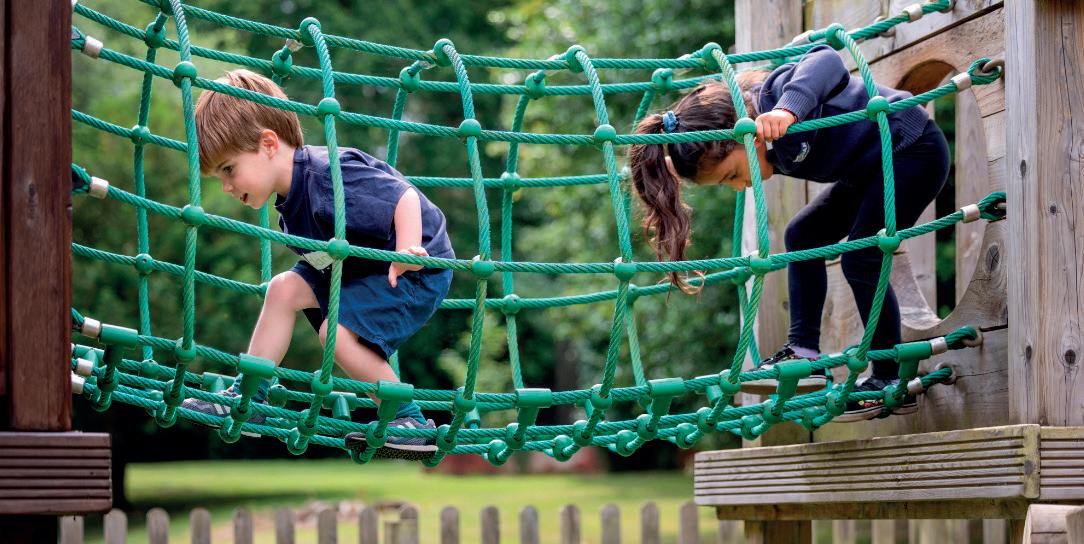
Reddam’s outdoors approach to the metaverse
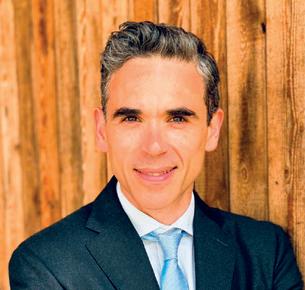 By RICK CROSS, Principal at Reddam House in Berkshire.
By RICK CROSS, Principal at Reddam House in Berkshire.
AT REDDAM House, we have been thinking about what it means to be living through the fourth industrial revolution.
This term attempts to understand the changes in our global society and economy that are emerging in an age of cyber-physical systems.
This includes big data, artificial intelligence and other breakthrough materials which all involve new capabilities for people and machines.
So why have we launched a new outdoor pursuits department to complement our highly academic and technology driven educational approach?
Learning is diverse and complex and cannot be truly effective if we simply rely on subject silos. The Future of Jobs Report suggest the most important core skills future workers will need are analytical thinking, creative thinking, curiosity, technological literacy, resilience and flexibility.
These skills must be acquired in a variety of ways and an outstanding education

creates opportunities for students to develop as rounded people. This is why we are embracing the outdoors more than ever. We now enhance learning through our own bespoke Virtual Metaverse School and use Inspired AI in all core subjects, tailoring to individuals’ needs, accelerating students learning.
We are fortunate to live on a 125-acre estate with woods, wildlife and a lake. With these facilities, children will have timetabled lessons of Reddam Adventure Department, offering opportunities to collaborate, create, build, plan, cook, succeed, and fail, just as they do in the
classroom and the metaverse. By being outside in nature, they will enhance their wellbeing and deepen their appreciation of the environment, which in turn completes the loop back to employability.
We will continue to learn on our devices, continue to roll out our AI learning tools and VR headsets and teach children computing and technological literacy. But we will also develop their creativity, curiosity and flexibility in other ways too, by putting them outside their comfort zone among the trees, the colours, the bats and the deer.
ADVERTORIAL
Academic Excellence
Reddam House Berkshire is an independent co-educational school for children aged 3 months to 18 years.

www.reddamhouse.org.uk
Questions for school visits
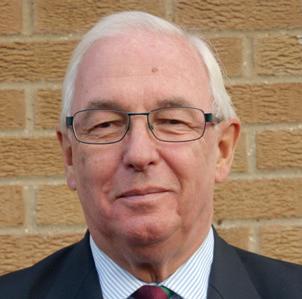
School visits are vital for parents who want to choose the best school for their child. Education consultant ADRIAN UNDERWOOD suggests the best questions to ask.
A SCHOOL’S website and prospectus will give you a flavour of the educational institution and its defining characteristics. However, school visits are vital. This is where you and your child can assess whether they will fit the environment and, more importantly, whether it will fit them.
Once you have a shortlist, arrange a personal visit, not just on an Open Day. Having decided on at least two schools, arrange for your child to have an overnight stay at each. During these visits, there are many areas to ask questions about.
ENTRY REQUIREMENTS
Most places will be available at the ages of seven, eight and 11 for a prep school and 11, 13 and 16 for a senior school. You need to know whether to have alternative schools lined up, and at what age the school recommends entry and has places available.
16-18 CURRICULUM
Larger schools may offer a range of options such as A levels and the International Baccalaureate. Most schools will aim to broaden their sixth-form curriculum, introducing more skills-based courses.
EXAM RESULTS
These are usually available on the website. However, treat league tables with caution, as they do not give a rounded picture of the school’s real success or failure in enabling pupils to reach their full potential. The list of university entrants will give you an
indication of pupils’ attainment. Note that during the Covid-19 pandemic, schools marked public examinations and these results were moderated by examination boards. This means there is no national data for public examinations in 2020 and 2021.
SCHOOL LIFE
What are the key rules for boarders? What is the weekend programme for boarders?
• If there are no lessons or games on Saturdays, what is the boarding programme from Friday evening to Sunday evening?
• On a normal weekend, how many boarders remain at the school?
INTERNET USAGE
Mobile phones and the internet are a means of keeping in touch with family and friends, as long as rules on their use are put into practice.
• Does the school have realistic and sensible policies in place to monitor internet usage?
• Do boarders hand in devices overnight to ensure good sleep routines? What are the school’s policies on alcohol, drugs and smoking?
• Is the school facing any particular problems in any of these areas? How can we be confident our child’s interests are promoted at all times?
CHILD PROTECTION
The right member of staff can deal with many problems immediately. Knowing who
that is and developing confidence in them is crucial. Most boarding schools have very good pastoral care and counselling systems. Knowing how these operate is important. Ask to see the most recent ISI safeguarding report. And these questions will also allow you to find out how well the school communicates with parents:
• Who is the first staff member we should contact if there is a problem?
Is it the school’s culture that a boarder can approach any member of staff for support?
What about bathrooms and privacy for showering?
OTHER QUESTIONS
• What leadership opportunities are available in house and in school?
• How good is the catering? And do the boarders have any input into menu choices?
• What medical arrangements are in place? It is also wise to check on insurance arrangements, particularly for sporting fixtures, expeditions and trips, both at home and abroad.
• What extras can we expect to pay? E.g., for music instrument lessons.
• How important is the role of chapel? The chapel may be central to boarding school life. While not every pupil may be expected to participate fully, a great deal can be achieved through chapel, most notably its important role in spiritual, moral, social and cultural (SMSC) education, and helping to develop pupils’ life skills.
Q&A
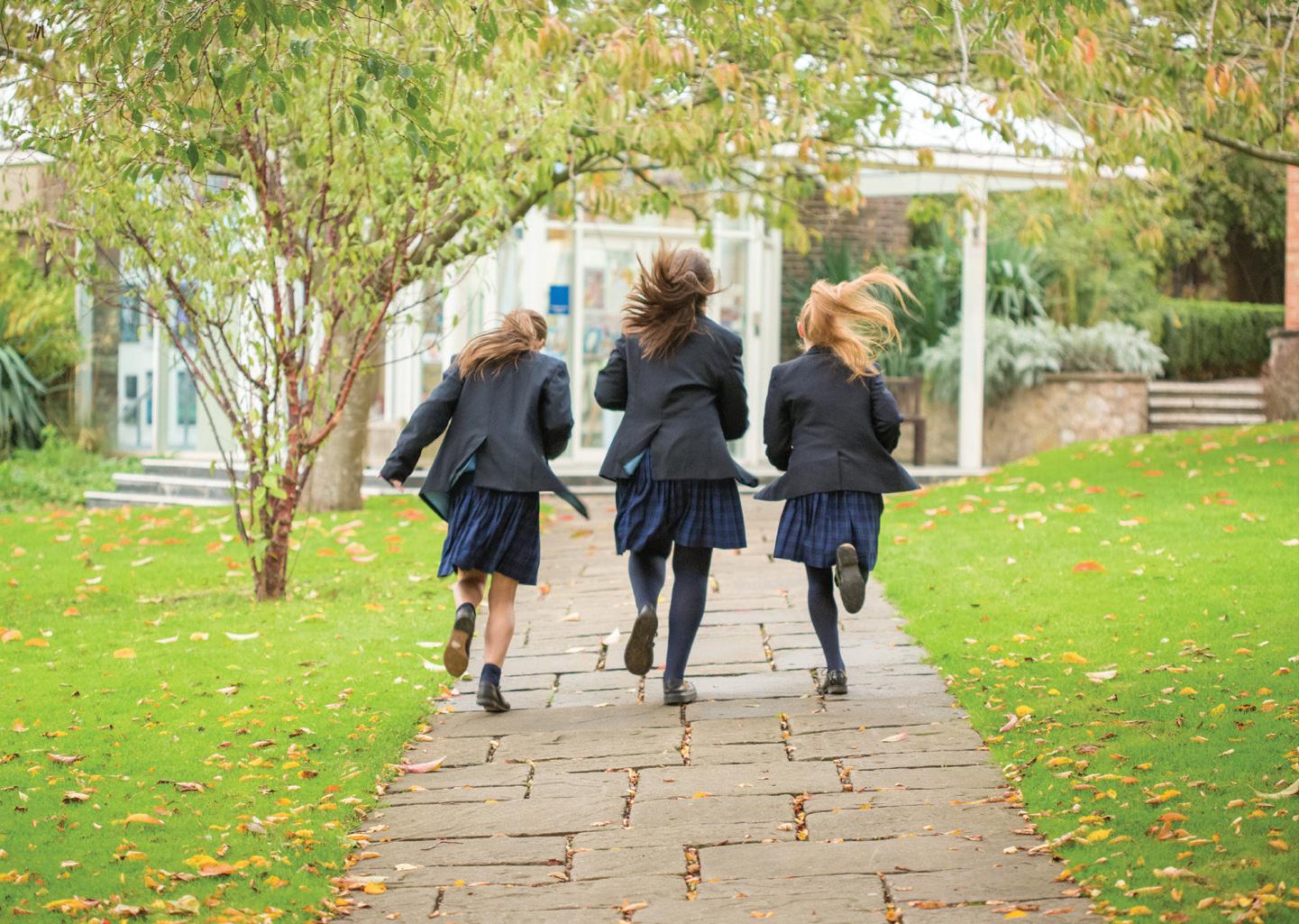
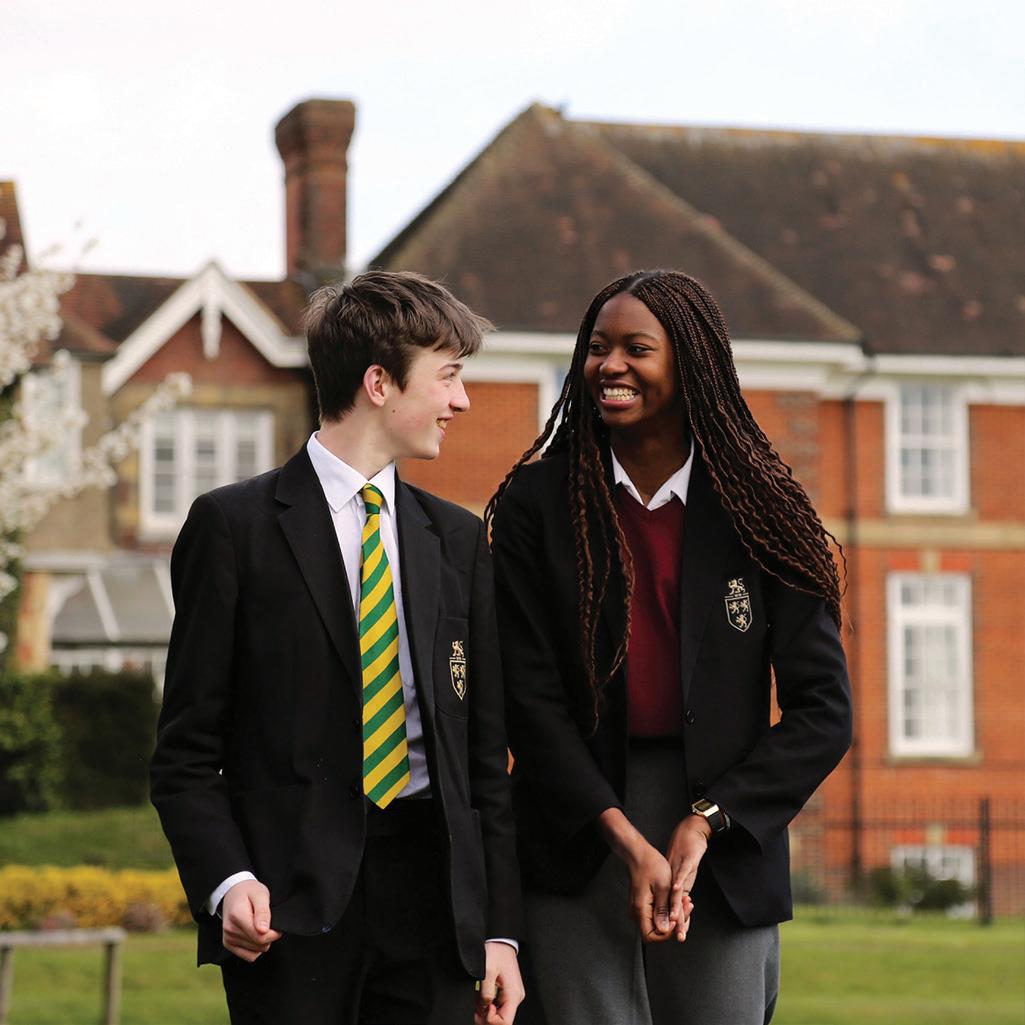
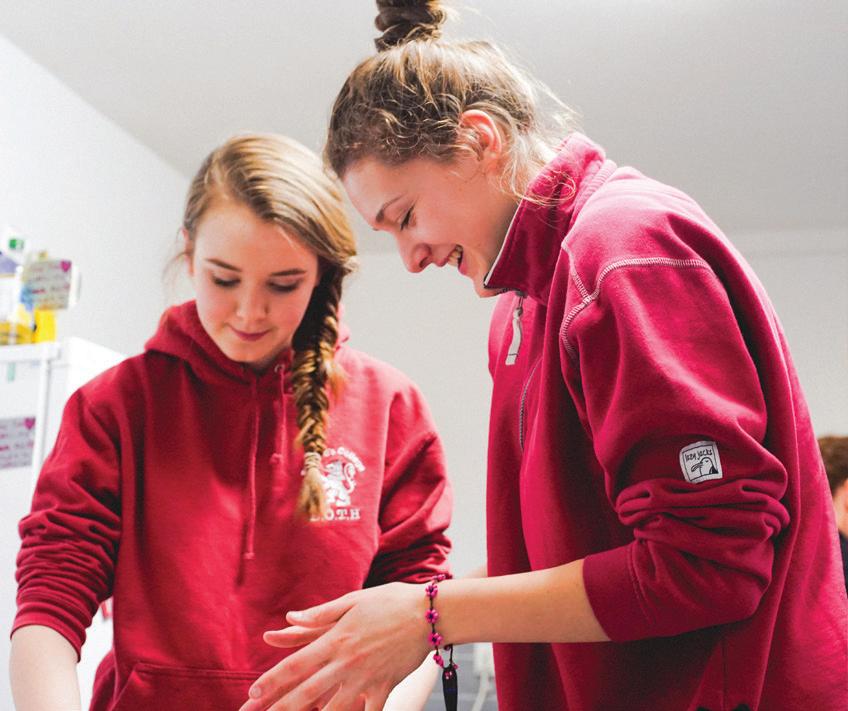
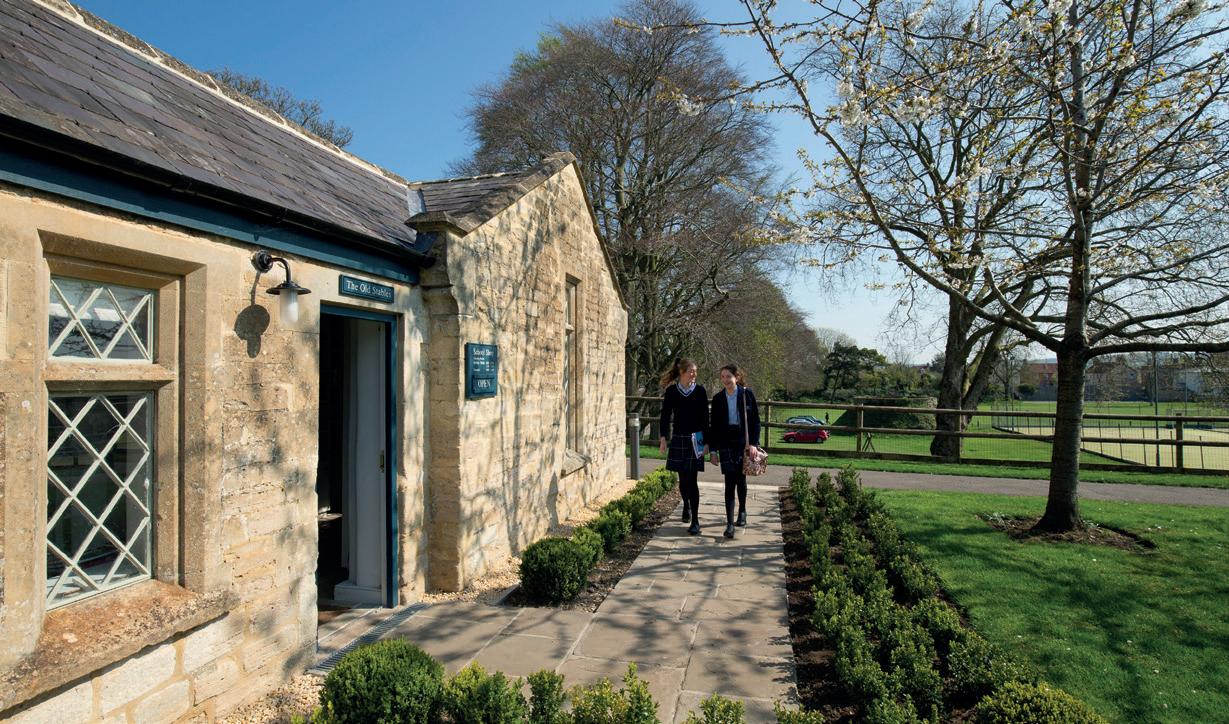
AFTER VISITING
Discuss with your child:
• What did they think of the staff they met?
Was there a good rapport between boarders and staff?
• ere the boarders well-mannered and enthusiastic about their house and school?
• Were the boarding facilities of a good standard?
Was there a generally positive atmosphere about the community?
• Does your child sense they would be happy there?
MOST IMPORTANT
Over the years I have advised many families on choosing a boarding school. The key message is to listen to your child’s views. Despite what the media still write, very few children are ‘sent to boarding school’. It is a child’s choice to be a boarder and they should have a big input into the choice of school.
Just because your great friends have agreed on a boarding school for their child, that does not mean it is necessarily right for your child. The greatest mistake I have seen in choosing boarding schools is when a parent is fixated on a particular school and does not consider their child’s needs.
□ Adrian Underwood’s career has been in boarding education for over 50 years since 1971 when he was appointed a housemaster and head of department. From 1975 to 1997 he was headmaster of a boarding and day school. In 1998 Adrian was appointed National Director of the Boarding Schools’ Association (BSA), and he watched over its development into the world’s foremost boarding association, pioneering a professional development programme for boarding staff. He was appointed OBE in 2007 for services to education. For 15 years he was a lead inspector for national and international schools.
Q&A Spring 2024 | 27
CHOOSING SCHOOLS
SCHOOLS FOUNDED BY THE MILITARY

The Duke of York’s Royal Military School
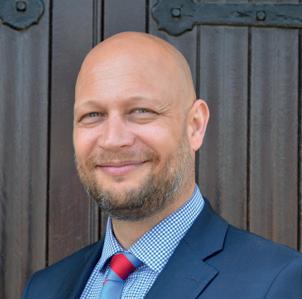
What’s known as the ‘Dukie experience’ includes excellent results and experienced pastoral care. ALEX FOREMAN, Principal of The Duke of York’s Royal Military School, reports.
THE Duke of York’s Royal Military School is a full-boarding school offering high-quality, all-round education and excellent pastoral care for pupils aged 11 to 18. Located in Dover, Kent the school is an ideal choice for those living in the UK and Europe due to its proximity to the ferry port and Eurotunnel, and an hour’s train journey from London St Pancras. Set in 150 acres of Kent countryside, your son or daughter will thrive in our close-knit Dukie community.
EXCELLENT RESULTS
Founded in 1803, our school provides an all-round education with a strong academic focus, recently recognised with the awarded of two SSAT Educational Outcomes Awards. The school offers a
vast range of GCSE, A level and BTEC options, with pupils moving onto amazing destinations, including Russell Group Universities. The curriculum is constantly under review and staff respond positively to pupil feedback.
PASTORAL CARE
By choosing to live and study here, your child is choosing to become part of a very special community. It’s extremely important to staff that pupils enjoy boarding and are able to forge strong friendships. Experienced housemasters and housemistresses offer excellent pastoral care and support, alongside an in-house team of tutors, pastoral leaders and housekeepers. It’s a busy and vibrant place, especially on weekends, with all 500 students staying taking part in various activities and trips on offer.
VAST OPPORTUNITIES
A good school is about much more than what is learnt in the classroom – sports, outdoor activities, the Duke of Edinburgh’s Award Scheme and the Combined Cadet Force continue to play a leading role in the lives of all pupils. Vast co-curricular opportunities include more than 80 clubs and activities per week, while all the key sports are played here including rugby, netball, hockey, cricket and athletics.
£24.9m INVESTMENT
A recent £24.9 million build and refurbishment project included a new sports centre, accommodation and teaching blocks, plus a performing arts centre. Our facilities include an indoor heated swimming pool, Duke Box fitness suite, flood-lit astro turf hockey pitches and squash courts. There are also hard

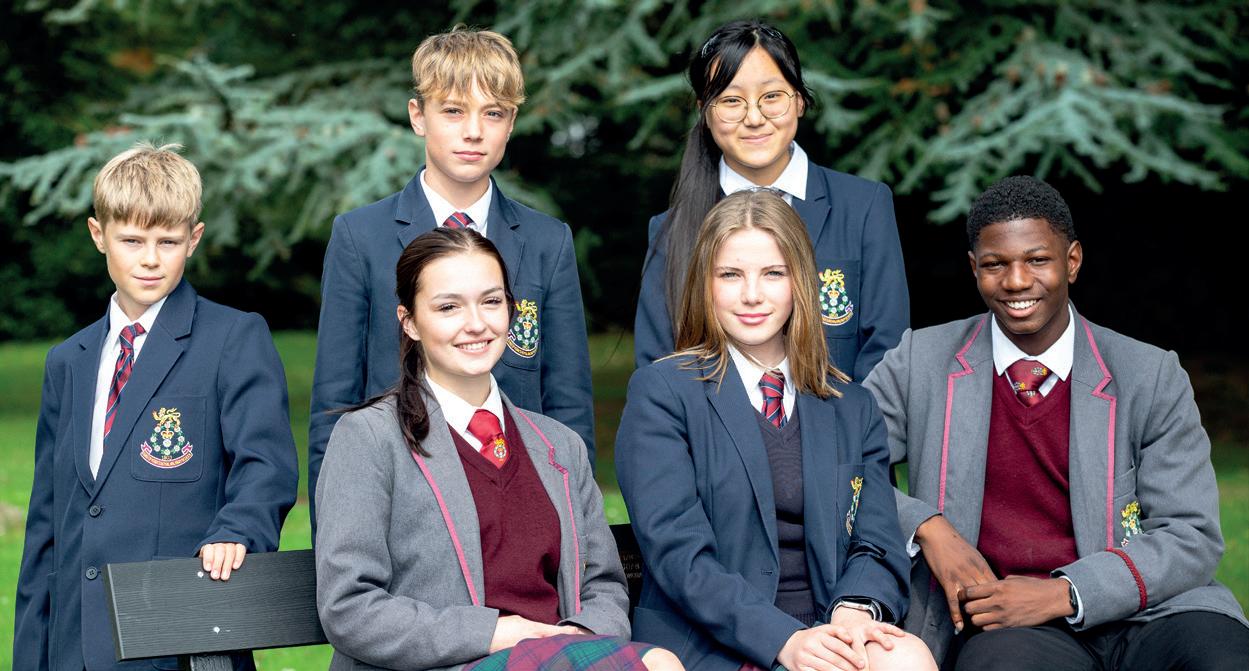
and lawn tennis courts, Olympic-standard athletics track, band hall, dance studio with Harlequin flooring, and a drama studio.
FEES & SCHOLARSHIPS
As the country’s only state full-boarding school, parents can enjoy lower fees as the government pays for the education, leaving annual boarding fees of £18,960 (£6,320 per term) for September 2023 to 24. The fee includes full-boarding, catering, laundry, plus clubs and activities. Armed Forces families eligible for CEA pay a parental contribution of just 8 per cent of the fee (£1,517 per annum), which is only available at state boarding schools such as ours. The school also offers 80 per cent academic scholarships into sixth form for pupils who excel in their GCSEs, and 50 per cent sports scholarships to pupils who excel in the school’s major sports.
DUKIE EXPERIENCE
We believe every pupil should be the best they can be and have a pupil-centred approach, supporting, advising and guiding pupils on their chosen paths. Being a Dukie is an amazing credential to have and pupils meet their friends for life here. This is demonstrated with hundreds of alumni returning to site every year for reunion dinners and important Dukie events such as Remembrance Weekend. Pupils benefit from a staffing team that
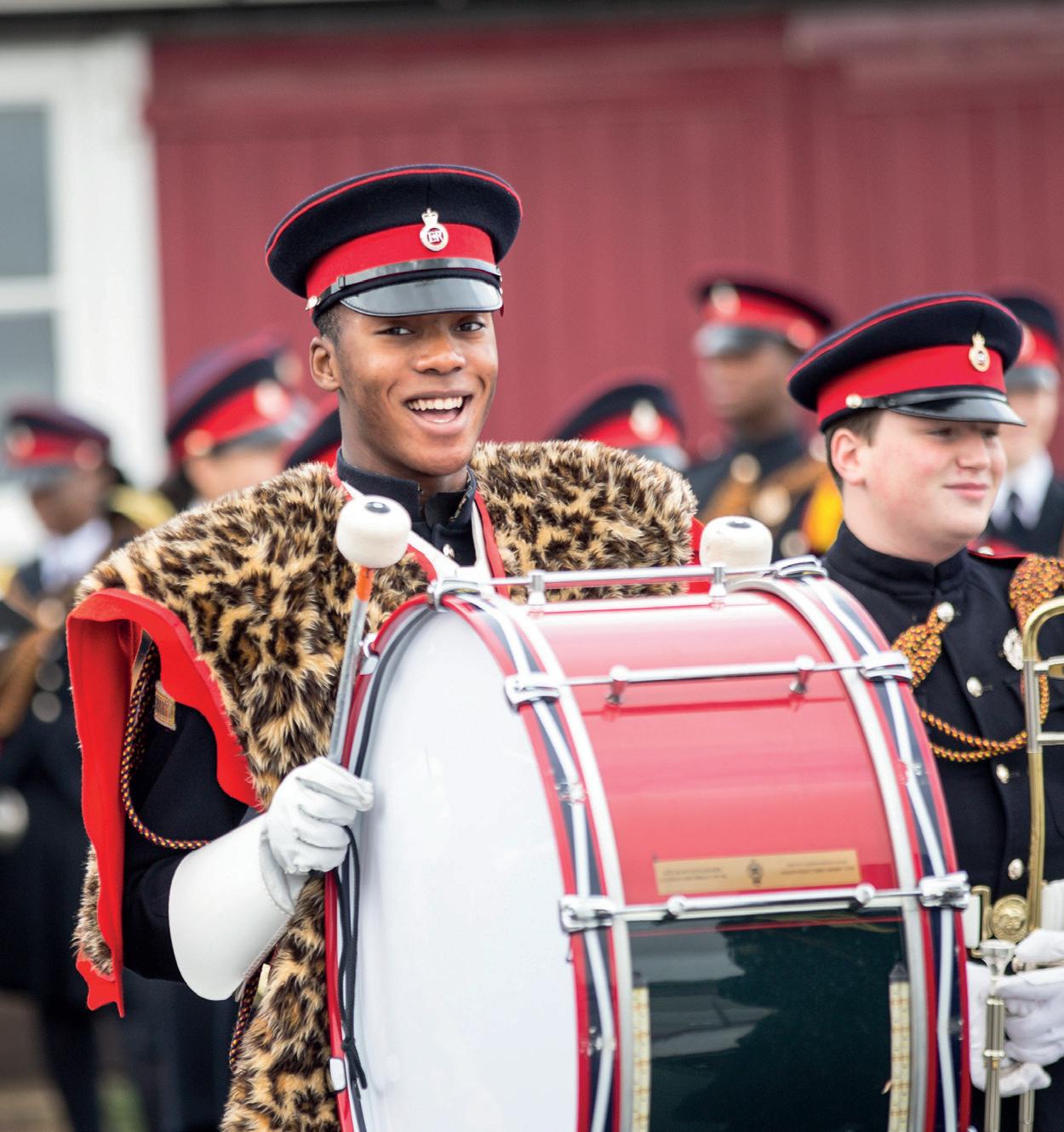
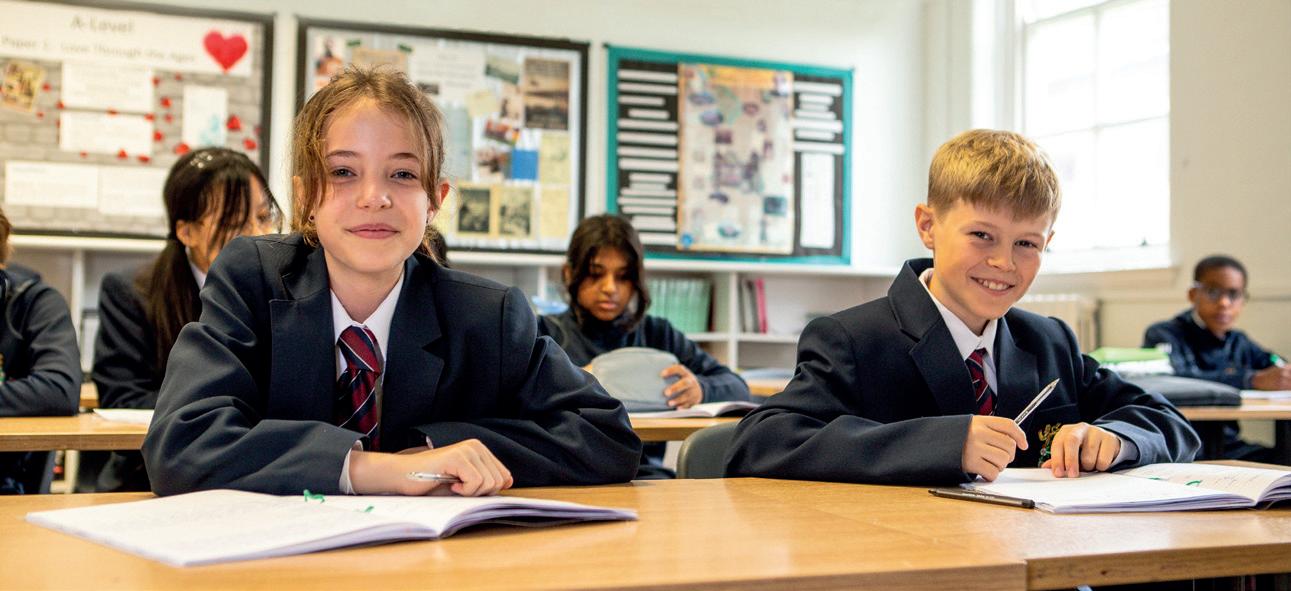
work across the school, in classrooms and boarding houses, an on-site medical centre and a fantastic catering provider.
APPLCIATIONS
The school welcomes applications throughout the year in Years 7, 8, 9, 10 and 12, from both serving and non-serving families. The school is nonselective until Sixth Form, when entry is based on a minimum GCSE requirement. All pupils are invited to a ‘suitability for boarding’ interview as part of the application process.
We encourage you to visit our extraordinary school and we look forward to welcoming you as your start your Dukie journey.
For more information, contact admissions@doyrms.com or go to our website www.doyrms.com
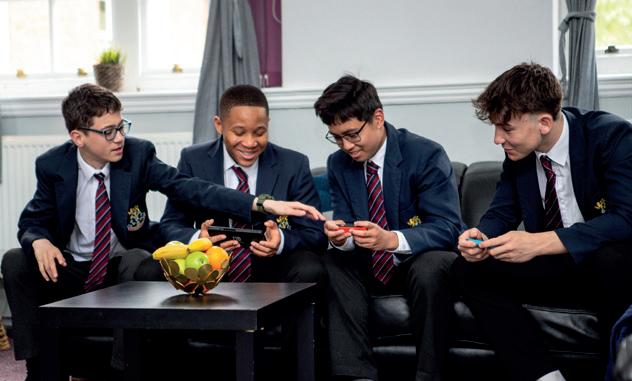
□ Alex gained his Theology & Philosophy degree from Surrey University, initially teaching PE and Religious Education at Uppingham School in Rutland. He became Head of Year at an allboys comprehensive in Leicester and then went on to become Assistant Headteacher and later Headteacher, at King’s School, an MoD school based in Germany. Alex joined the Duke of York’s Royal Military School in 2017. He has an indestructible attachment to Leicester Tigers and highlights of the year are playing the pupils’ First XIs at cricket and hockey, where he still thinks ‘he’s got it!’.
SCHOOLS FOUNDED BY THE MILITARY Spring 2024 | 29
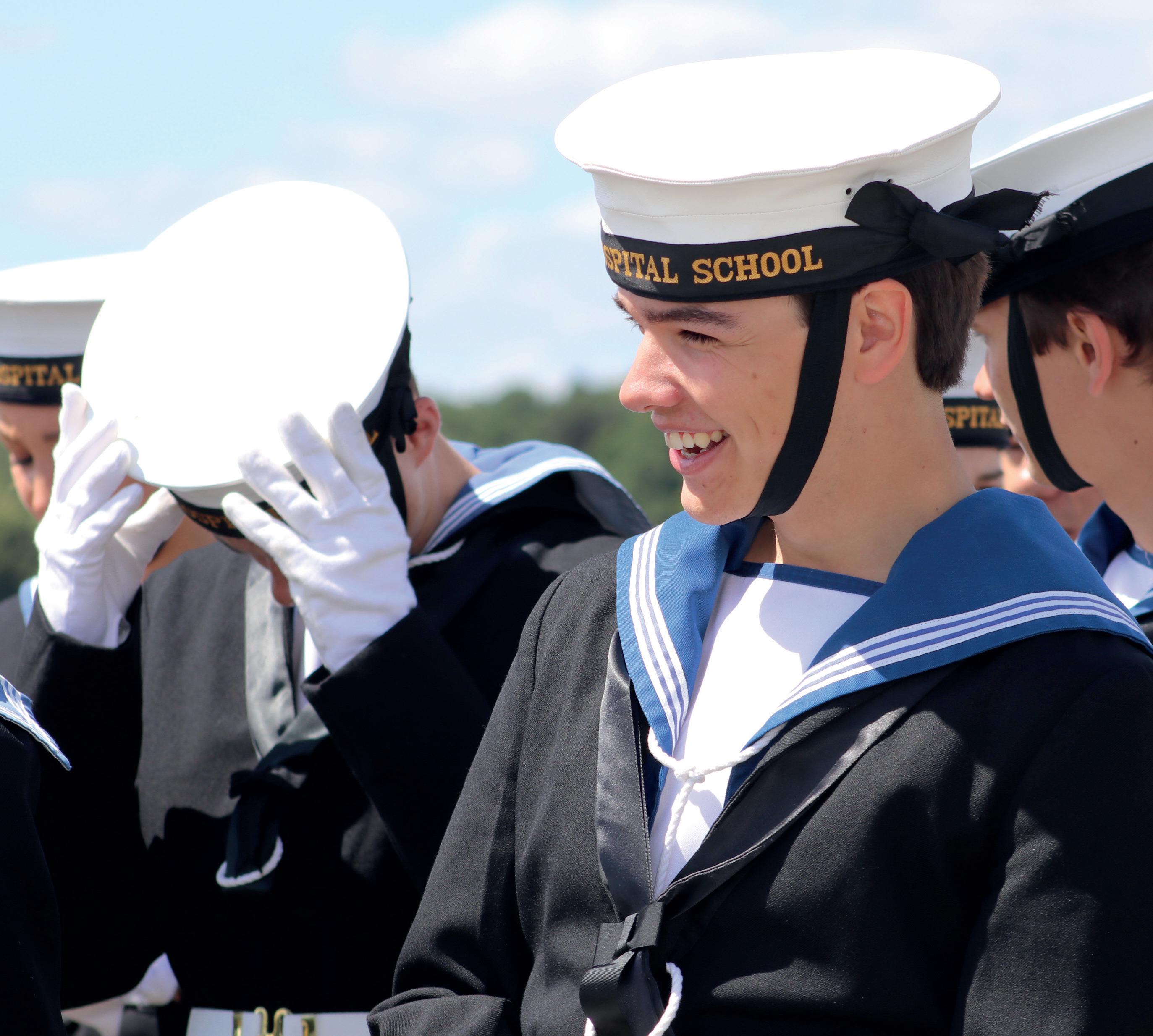
Discovery, exploration and challenge
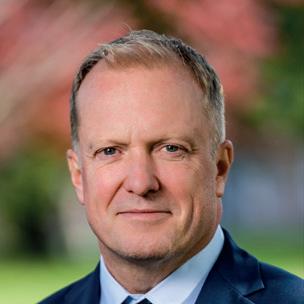
Ensuring pupils’ education becomes the foundation for their future happiness and success is one of the priorities of boarding schools. SIMON LOCKYER, Headmaster of the Royal Hospital School, Holbrook, explains more.
THE Royal Hospital School was established by Royal Charter in 1712 with a remit to ‘improve navigation’ through education. By the late 19th century, it had become affectionately known as the ‘cradle of the navy’ as it prepared boys for a life at sea, many of whom went on to become explorers and pioneers of their time.
Just over 300 years later, discovery, exploration and challenge continue to shape the ethos of the school, and we place great importance on the traditional values of loyalty, commitment, courage, respect, service and integrity.
The school’s most recent Independent Schools Inspectorate (ISI) report states: “The school realises its aim to enable pupils to grow into the person they wish to become, fulfilling their potential and leaving very well prepared for life.”
The Royal Hospital School (RHS) of today is a modern, forward looking school for around 620 boys and girls aged between 11 and 18 years from a wide range of backgrounds. I believe that it is important to inspire young people to have the courage and commitment to be ambitious for their futures, whichever path they choose. Everyone can achieve the most exceptional things, but we are all different. That is why we should focus on the individual, getting to know each and every one of our pupils and finding out what motivates them.
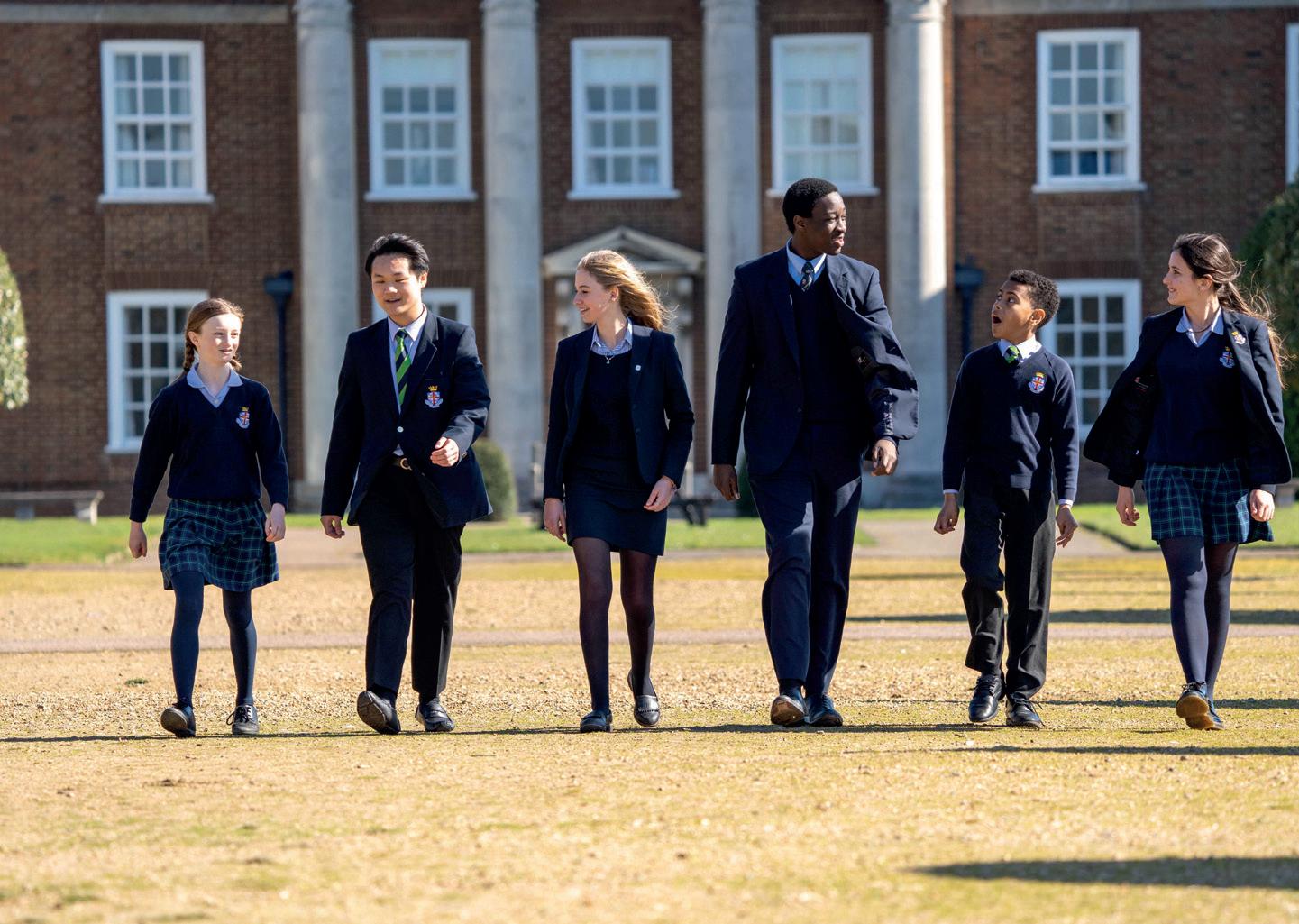

As teachers, we should challenge pupils of all academic abilities, steering them to look beyond the moment, and beyond the confines of the classroom, and to approach life with an open and receptive mind. It is through thinking creatively and taking the initiative that they learn to establish and work towards their own personal goals. By understanding a young person’s strengths, and what he or she might find more difficult, we can help them to make the right choices at the right time, navigating them through their critical, formative years and ensuring their education becomes the foundation for happiness and success.
Schools like RHS can provide this challenge both inside and outside of the classroom through the breadth of opportunity. This may be through the curriculum and academic enrichment programmes, but equally through

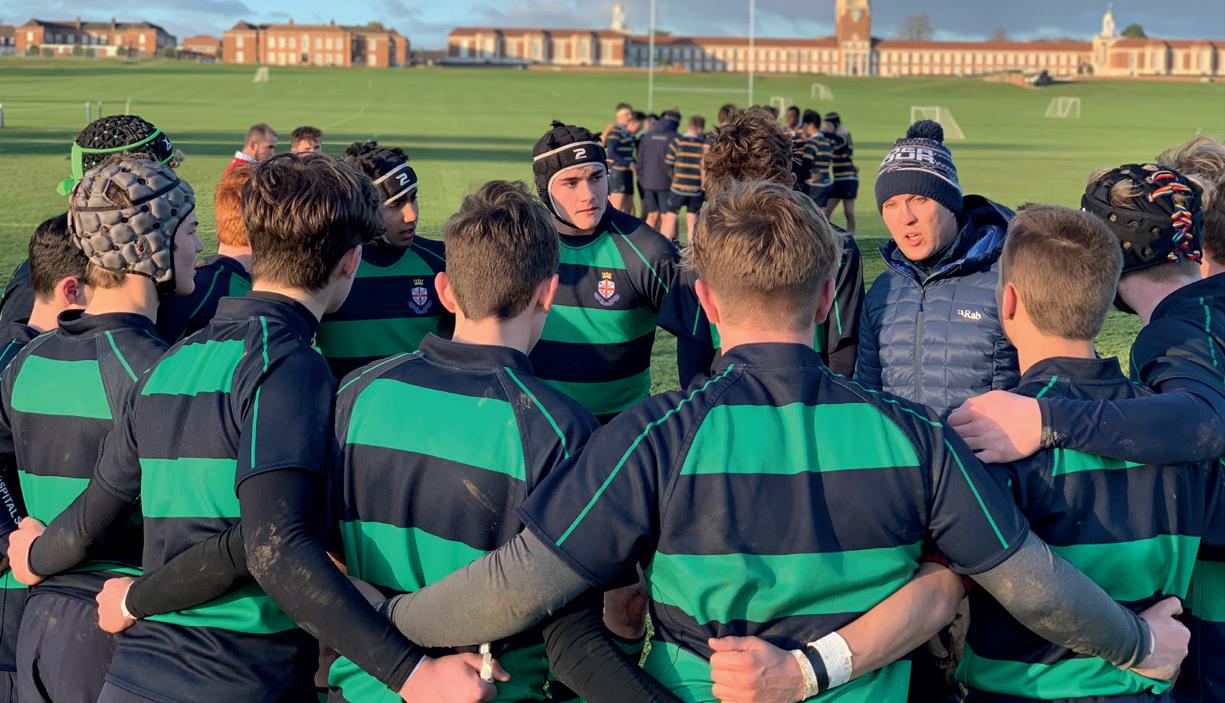
involvement in the Combined Cadet Force, Model United Nations, public speaking and debating, the Duke of Edinburgh’s Award, the Devizes to Westminster canoe marathon, drama and playing in musical performances, Tall Ships voyages or overseas volunteering. Whatever they choose, we should provide a safe environment in which young people can step outside their comfort zones, learn to take risks, foster self-belief and self-awareness and develop skills such as collaboration, initiative and resilience.
It is this unique blend of a values-driven education with the focus on individual challenge and guidance that enables pupils at the Royal Hospital School to develop into self-reliant, socially responsible adults. They emerge with enviable open-mindedness and resilience, so sought after by employers and important in life.
To find out more about the school contact the Registrar on 01473 326136 or admissions@royalhospitalschool.org
□ Simon Lockyer has been Headmaster of the Royal Hospital School since 2016. He was previously Second Master at Portsmouth Grammar School and before that a housemaster and head of department at Wellington College. He studied microbiology at the University of Newcastle, completed his PGCE at the University of Cambridge and gained a Masters in Educational Leadership at the University of Buckingham. The son of a Royal Naval officer, he was educated at Blundell’s School. His enjoys running, kayaking, natural history and island destinations. In August this year, he leaves Royal Hospital School to become CEO and Principal of the British School of Milan.
SCHOOLS FOUNDED BY THE MILITARY Spring 2024 | 31

Improving the lives of others

A valuable mixture of modern ideas and traditional values is embraced at Gordon’s School, as Headmaster ANDREW MOSS explains.
GORDON’S School is the national monument to General Charles Gordon, a British war hero, philanthropist and martyr. It was built by public subscription more than 100 years ago at the insistence of Queen Victoria, who become the first in an unbroken line of sovereign patrons.
Originally opened as a home for ‘necessitous boys’, today Gordon’s is a successful non-selective, co-educational, day and residential state boarding school, set in 50 acres of Surrey countryside. It is listed as one of the UK’s outstanding schools by Her Majesty’s Chief Inspector and was recognised as Boarding School of the Year by the Times Educational Supplement in 2022.
While the school embraces modern ideas, General Gordon’s legacy of traditional values remain – improving the lives of others and championing those less advantaged. As a school we strive to be one of the finest in the world, not just for our achievements, but for the calibre of young people we develop –the progress they make, the lives they lead and the difference they make to the lives of others.
Our sixth-form pupils achieve three or more A levels, with 86 per cent of entries graded A* to C. This puts the school in the top five per cent nationally for academic achievement at A levels. But we also have successes in drama, the arts, debating, public speaking, dance, sport and for the Duke of Edinburgh’s Award (DofE) and Combined Cadet Force (CCF).
The original Gordon Boys’ Home was run along military lines. This is continued today with marching, parades and Pipes and Drums. Dressed in their ceremonial Blues uniform, pupils parade around eight times a year. We are the only school permitted to march along Whitehall and pupils carry out this annual tradition in remembrance of General Gordon with pride.
THOROUGH PREPARATION
General Gordon’s life as a philanthropist, leader, scholar, adventurer and soldier is at the heart of our traditional character values of courtesy, integrity, diligence, enthusiasm and resilience. We strive for more than the best possible examination results – we also want to give our pupils a thorough preparation for life. The emphasis is on working as a team and
putting back. Each pupil is assigned a house and the interhouse competitions in sport, the arts, cooking, debating –even marching – are enthusiastically contested with everyone encouraged to ‘have a go’.
Underpinning any participation is that high performance without good character is not true success. These inter-house competitions, together with competitive sport against other schools and participation in DofE or CCF, take pupils out of their comfort zone. Taking part builds pupils’ confidence and allows them to develop new skills as well as leadership, perseverance, endurance, teamwork and problem-solving ability –all necessary qualities for adult life.
Around half the school’s residential boarders are from Service families, attracted by the location and the school’s understanding of military life. Military families are given priority for places and counsellors and tutors work to plug any gaps in their education. Residential boarders coming into the school aged 11 are housed together in a bespoke boarding house for a year before joining their senior boarding houses. Houseparents have

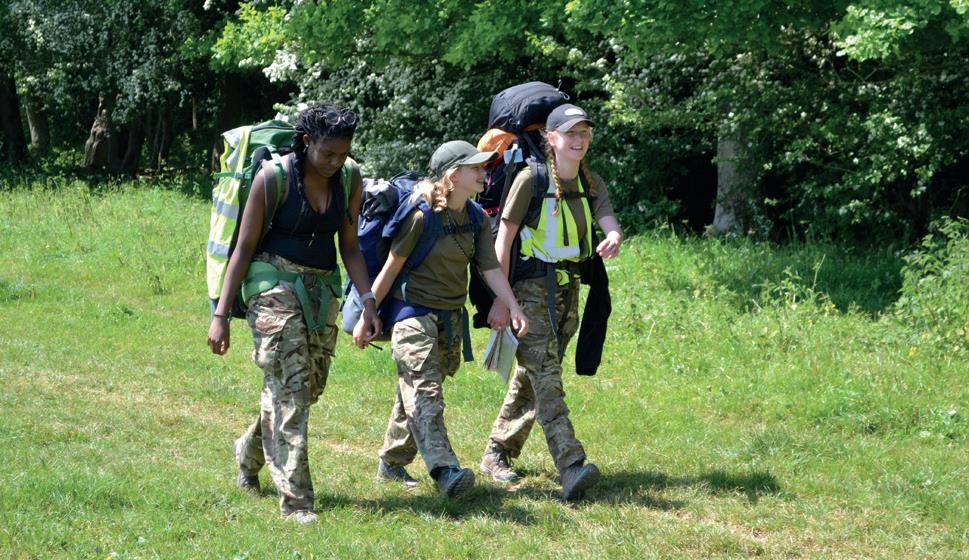
considerable experience of caring for children from military families and pupils from similar backgrounds.
All pupils benefit from an extended school day, with day pupils staying for supper and prep with boarders. Charges are kept to a minimum, with boarding fees from £6,888 a term, a little over £2,400 a year with the Continuity of Education Allowance. Bursaries and scholarships in sport and the arts are also available.
A Gordon’s education is not an ordinary education; it does not aspire to be. Gordon’s is a school at the leading edge of holistic education, combining legacy with leadership and service, high expectations and standards in an inspiring environment. We are not the standard education model and we do not want Gordonians to be standard citizens. We want them to earn their success through hard work. We champion success based not on privilege or advantage, but on how hard people work for themselves and others. Such people are more likely to make the world a better place and lead happier lives.
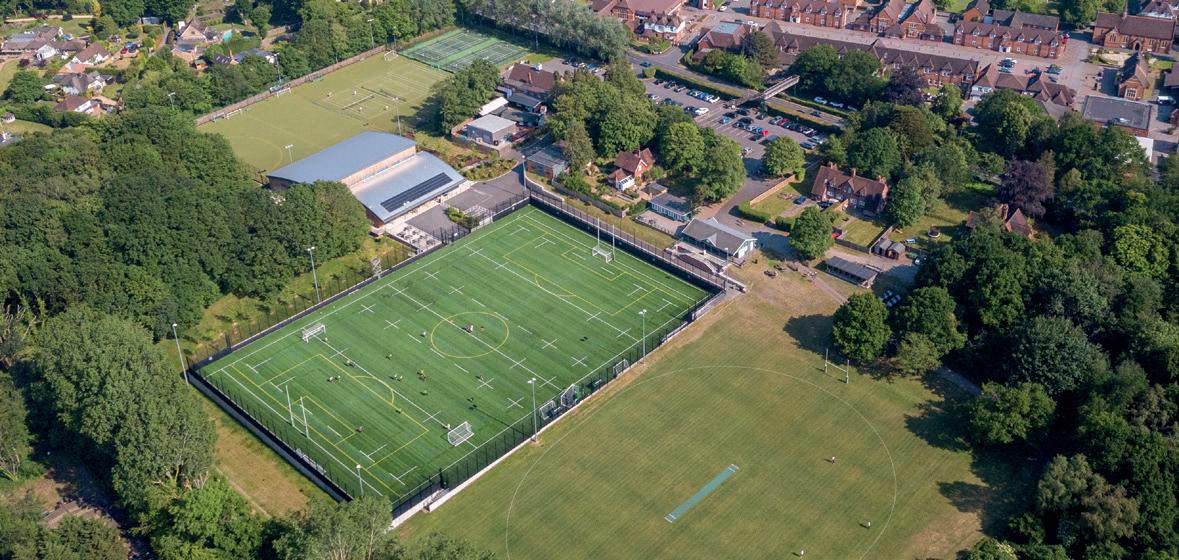
 □ Andrew Moss has been Headmaster of Gordon’s School since 2010. He started teaching in 1992 and has worked in a variety of boarding and day schools, including most recently a headship in a Cognita independent school. Before that he was a Deputy Head in Hampshire and Director of Studies and Housemaster at Wymondham College, also a state boarding school.
□ Andrew Moss has been Headmaster of Gordon’s School since 2010. He started teaching in 1992 and has worked in a variety of boarding and day schools, including most recently a headship in a Cognita independent school. Before that he was a Deputy Head in Hampshire and Director of Studies and Housemaster at Wymondham College, also a state boarding school.
SCHOOLS FOUNDED BY THE MILITARY Spring 2024 | 33
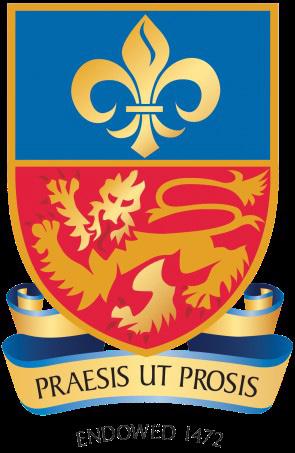
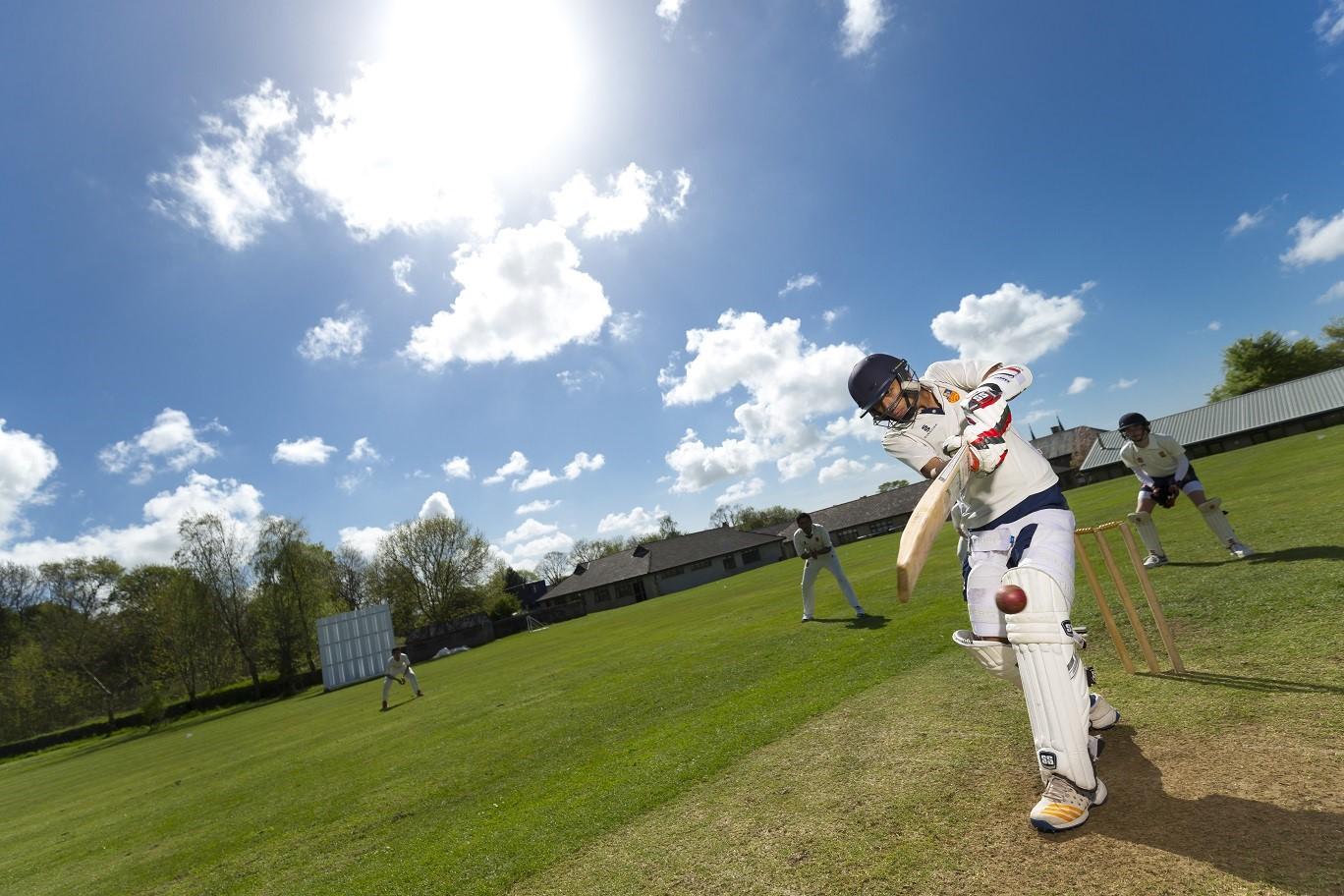
L ancaster Royal G rammar School
State Day and Boarding School for Boys Aged 11 to 18
Coeducational Sixth Form
Founded in 1472 we are one of the UK’s top grammar schools for boys with a coeducational Sixth Form.
Exceptional value for money with free tuition. Fees for boarding are only one third of the fees of independent schools.
Our commitment to achieving excellence at an educational and extracurricular level makes LRGS an exceptional place to learn and grow as an individual.
Rated ‘Outstanding for Boarding’ by Ofsted.
Boarding for boys aged 11-18, girls and boys for Sixth Form.
2023 results: Over 70% of all A-level results were graded A*, A or B.
61% of all pupils gained at least seven GCSE grades at 7, 8 & 9.
8 Oxbridge offers in 2023 Please visit our website to find out more.
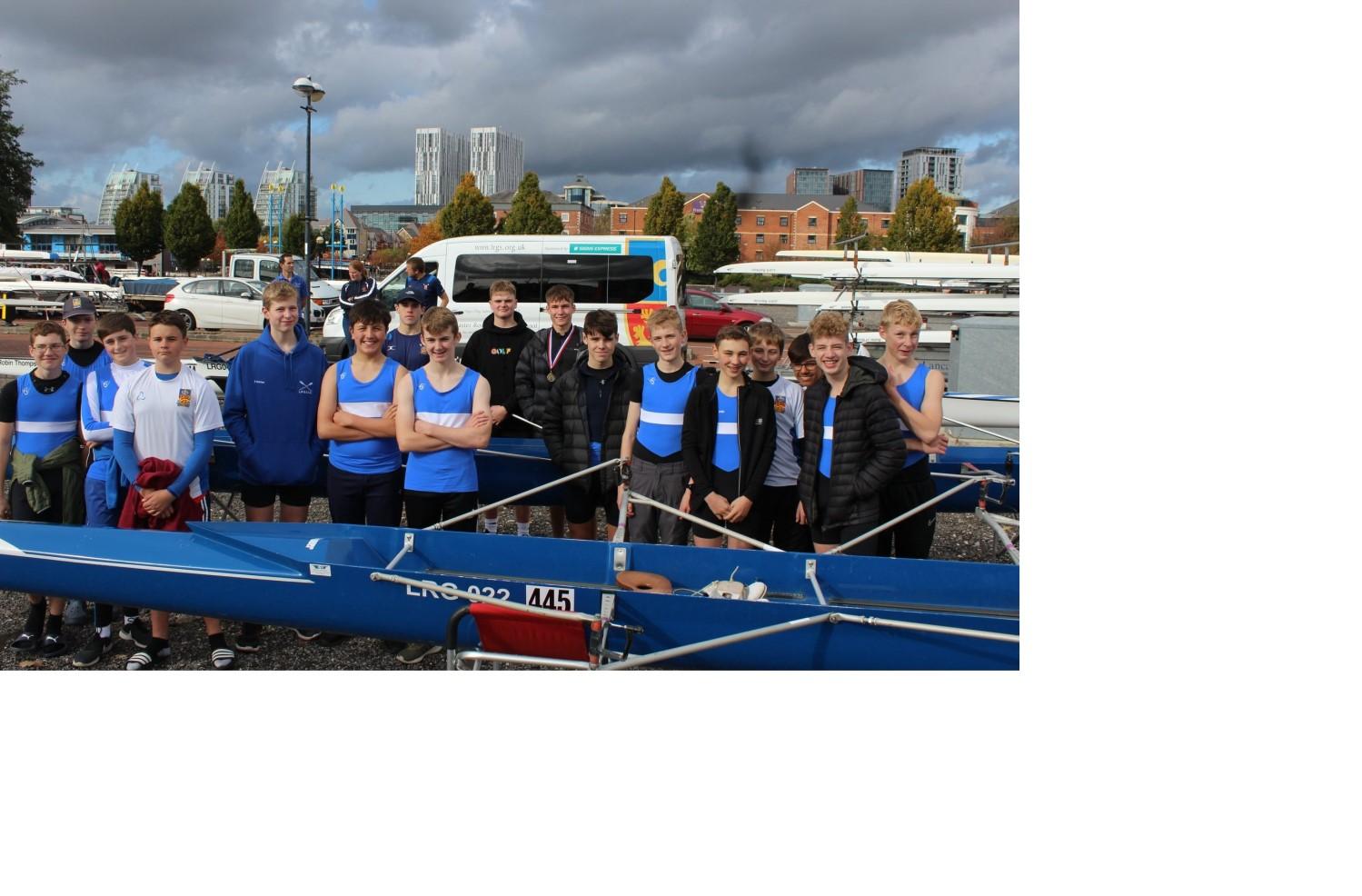
“Pupils enjoy a first-class range of enrichment activities”. Ofsted
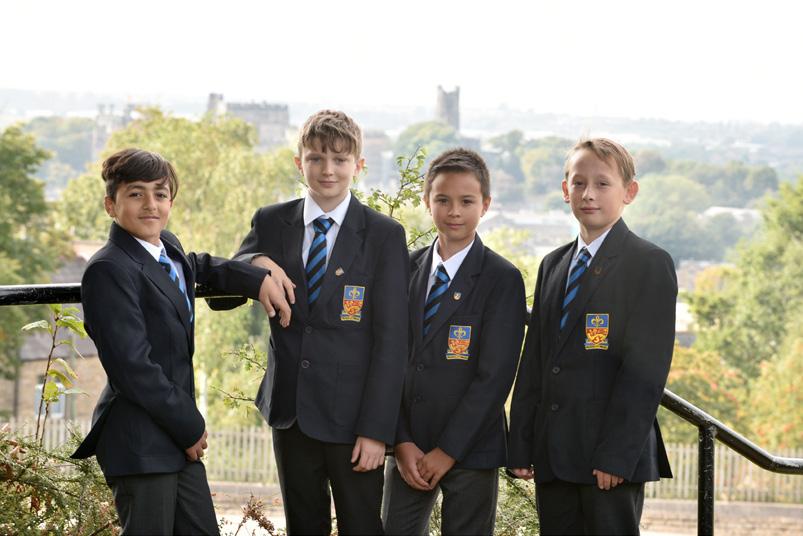
“The school has at its heart the aim to help children to excel.” Ofsted
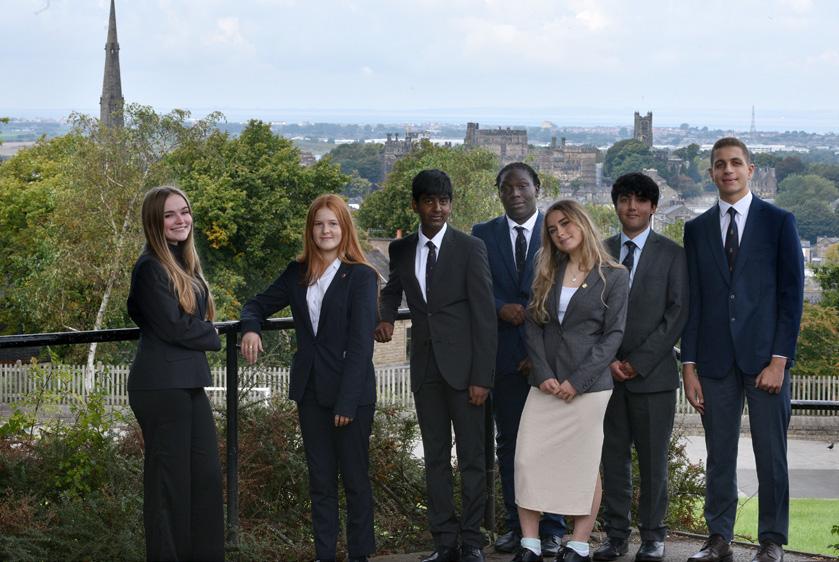
“Sixth Form provision is outstanding” Ofsted
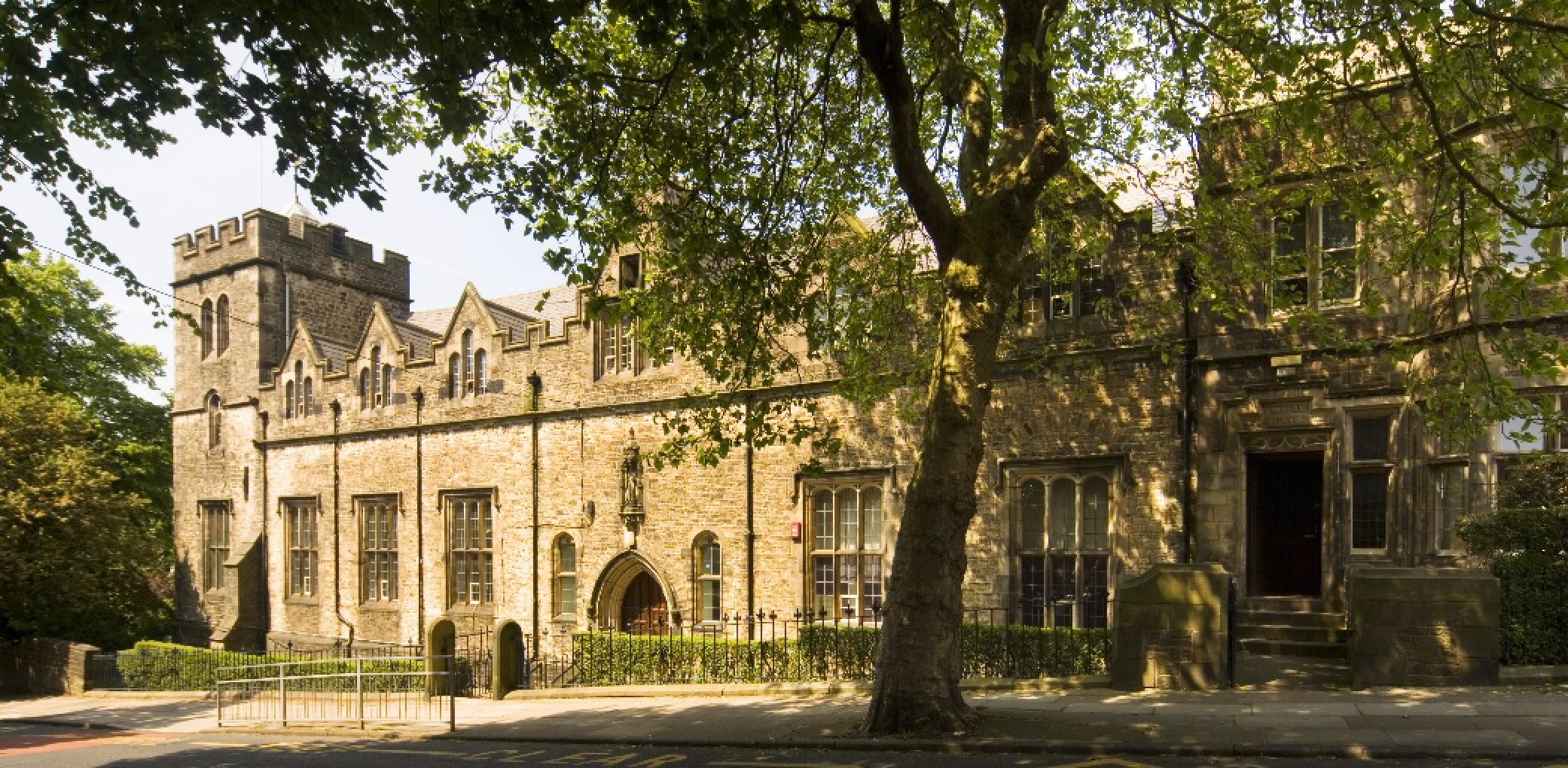



www.lrgs.org.uk Open Day 15 June 2024 Sixth Form Open Evening September 2024 @LRGSL ancaster L ancaster royalgrammarschool L ancaster royal grammar school
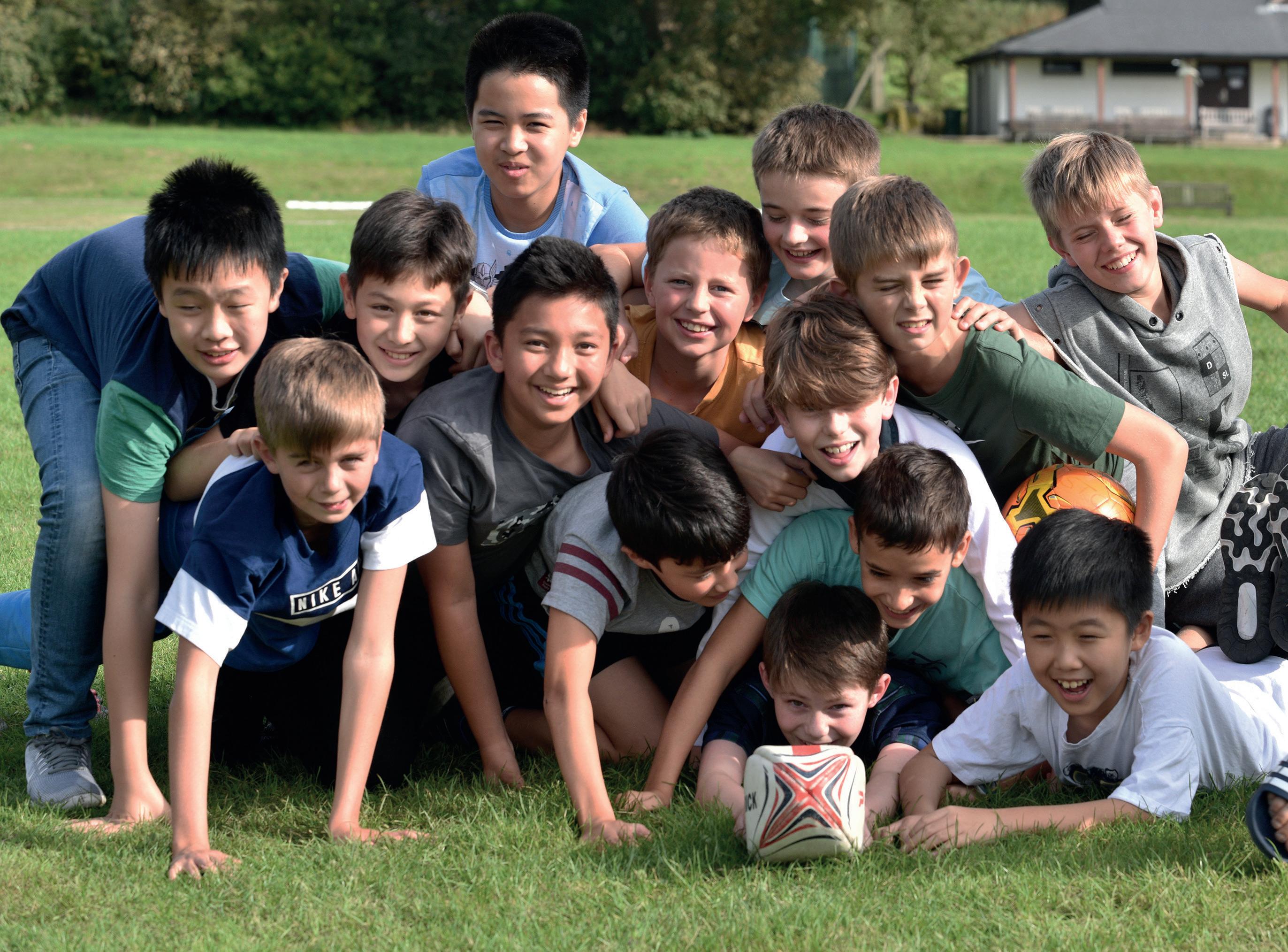
Life at a state boarding school
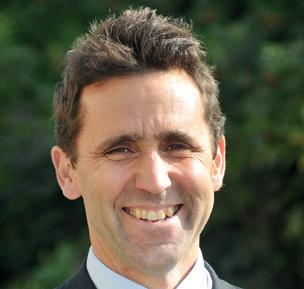
The best state boarding schools offer world-class teaching and keen pastoral care. They are also more affordable, as students only pay for boarding. DR CHRIS PYLE, Head of Lancaster Royal Grammar School and Chair of the BSA State Boarding Forum, explains more.
ENGLAND’S state boarding schools have a very special place in our education system. They often have an ‘independent’ ethos and education is free. Boarding fees are typically around a third of the cost of independent boarding schools.
State boarding schools come in all shapes and sizes, from non-selective schools in rural settings to grammar schools in towns and small cities. A few are single sex while others are co-educational. Several are very ancient – Lancaster Royal Grammar School (LRGS) traces its roots back to the 13th century – while others have been established recently to meet demand in this vibrant sector.
All state boarding schools are united by a shared belief in the opportunities
of boarding. There is a consistent concern for the wellbeing and personal development of young people in our schools. Wraparound pastoral care creates a very special environment where friendships and shared activities become for many the defining privilege of their teenage years.
Co-curricular opportunities are a particular strength. After-school activities flourish in a residential community with no commuting required. Many pupils play competitive sport against independent schools, and some schools offer outstanding debating and music. Others, including LRGS, place a high value on thriving Combined Cadet Force Army, Naval and RAF sections as a mainstay of outdoor and leadership programmes.
Academic results are a major factor for parents in choosing a school, and the state boarding sector punches above its weight. ‘Value-added’ analysis shows our boarders tend to do better than day pupils at GCSE, because of the support and encouragement from boarding staff who engage with academic challenges during and outside prep times.
At LRGS, around half of our 170 boarders live within an hour of the school, but growing numbers are from London and elsewhere. We have about 50 overseas students, who must have UK passports or right of UK residence. Bilingual or expat families from Europe to the Middle East, and from Hong Kong to West Africa are all well represented.
Spring 2024 | 35 STATE BOARDING SCHOOLS
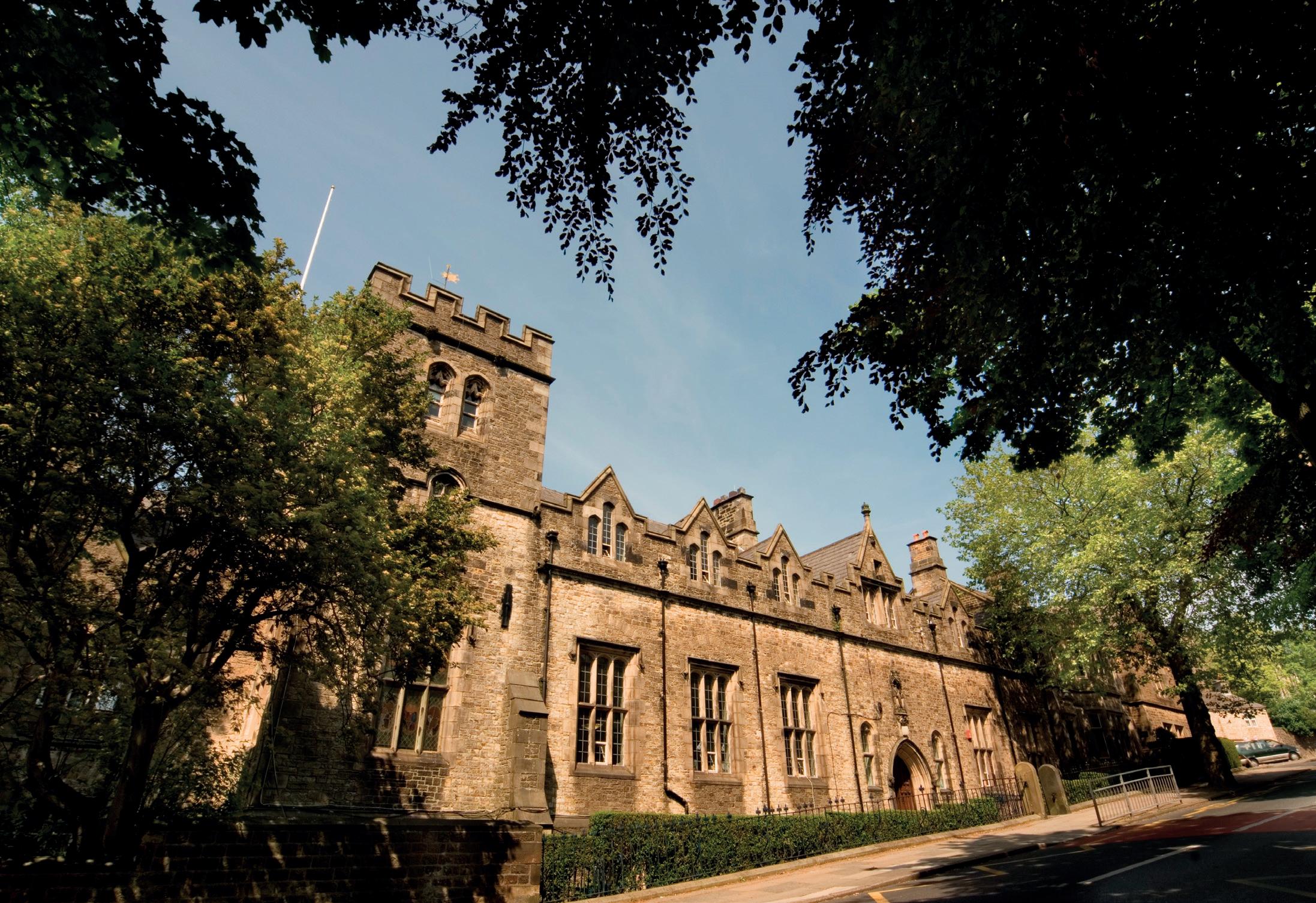
MODERN LIFE
Most of our families are ‘first generation’ boarders. They may not initially have considered boarding or even been aware that exceptional state schools offer this opportunity. Boarding fits modern life for many families living with the realities of commuting, travel commitments, divided families or older siblings away at university. A mother bringing up her son on her own told me how boarding allows her to manage her growing business, while her son benefits from positive role models. “We have the best weekends ever!” said the mother of another weekly boarder.
The boarding experience changes with age. Younger boarders are in light and airy shared dorms of four to six. The emphasis is on establishing excellent habits in boarding and the classroom. The housemaster and the matrons lead pastoral care. Their days include reuniting pupils with lost property and supplying toast! Evening tutors supervise prep, with young sports grads and sixth-form mentors often on hand. Plenty of summer evenings are spent chasing either a ball or each other round the fields. Junior boarding has the excitement of a secret society: boarders and day pupils are indistinguishable in school, but boarders have the key to an extra world – while many day pupils face long journeys home.
In GCSE years, boarders normally share a dorm with another pupil, and sixth form boarders all have single rooms. Revision season sees pupils working together – with occasional encouragement to head out for an impromptu barbecue or game of dodgeball to relieve pressure.
STEPPING STONES
Parents increasingly see sixth-form boarding as an excellent stepping stone to university. We encourage all our senior boarders to take on leadership positions and to engage with the local community – from planting trees to hosting our local residents’ Christmas party.
State boarding is very much a shared enterprise between parents and school, with open communication evolving quickly in recent years. “I Facetime my dad twice a day,” one overseas boarder told me recently – although most teenagers struggle to communicate quite so frequently!
A school’s website and reputation tells you a certain amount, but it is important to visit and meet staff and students if you can – at open days, a tour on a normal school day, and perhaps an evening taster session. Come and see what makes us special.
□ Dr Chris Pyle has been Head of Lancaster Royal Grammar School since 2012. He was state-educated in Oxfordshire and went on to complete a degree and PhD in Geography at Cambridge University, before working in the water industry. He was previously Deputy Head at the Perse School, Cambridge. He is a Fellow of the Royal Geographical Society, and regularly writes resources for schools on natural hazards and environmental change.
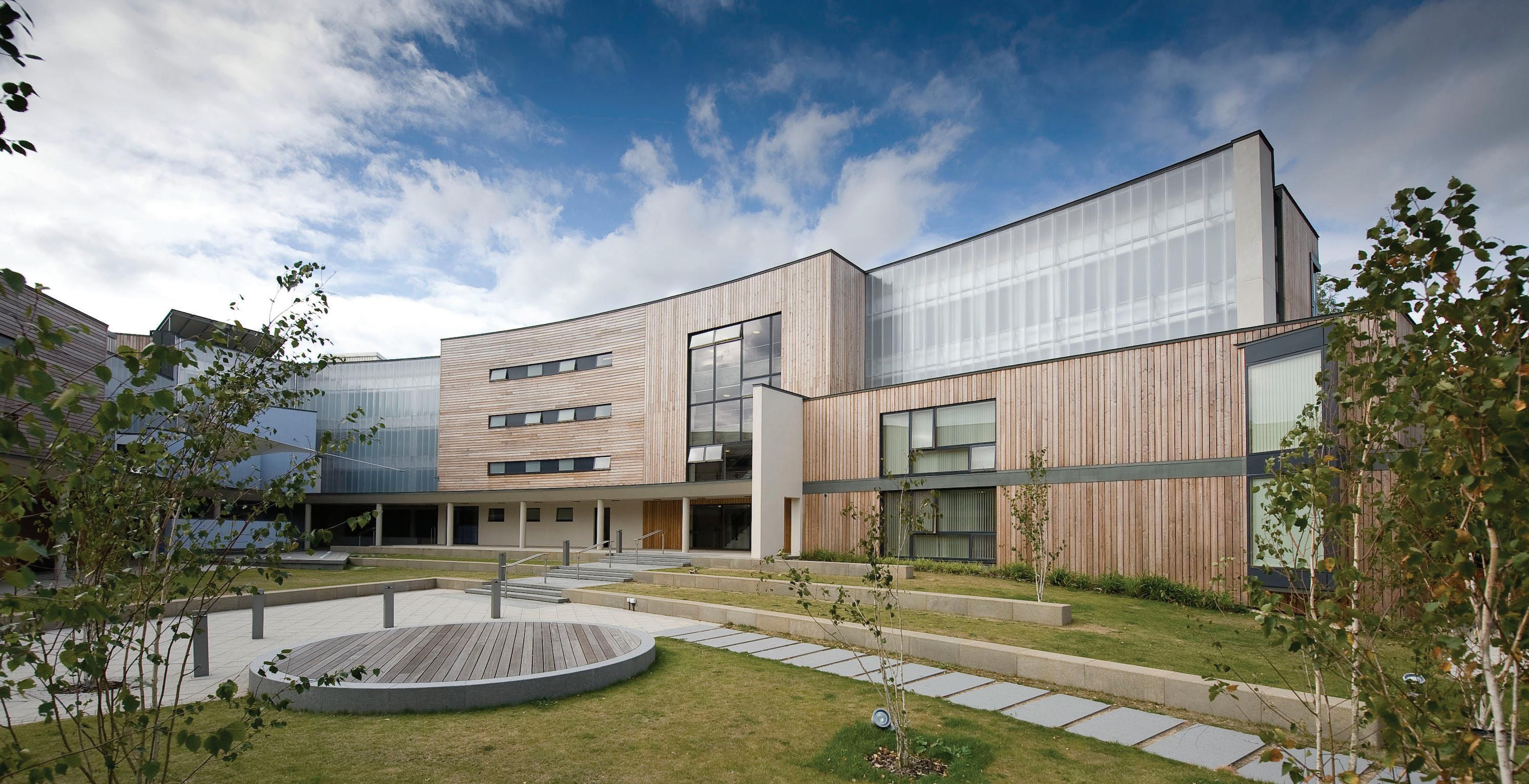
state boarding Choosing

There are very high satisfaction rates from parents and pupils across the state boarding sector. JONATHAN TAYLOR, Chief Executive Officer at the Sapientia Education Trust, reports.
STATE boarding schools are often described as “education’s best kept secret”. Certainly, I meet many prospective parents who have found the sector almost by chance and who are impressed by the range of facilities, types of school and examination results across our schools.
State boarding is only available to UK passport holders, those with the right of abode in the UK and those with ‘settled’ or ‘pre-settled’ status (this only applies to existing pupils, not new ones). Education is provided free of charge, so parents only pay for boarding. State boarding schools vary by size and location and share a strong commitment to the value of boarding, providing excellent facilities and systems of care. In total, around 5,000 pupils enjoy boarding in a diverse and successful range of schools. This
includes large, mixed and non-selective schools, free schools, grammar schools, and schools that offer mixed or single-sex education.
Although most state boarding schools offer secondary places, primary boarding is available too. The Sapientia Education Trust was founded by Wymondham College and incorporates 17 schools in Norfolk and Suffolk. Wymondham College Prep School is located on the same site as Wymondham College, enabling the Prep School children to access teaching expertise from both the Prep School and the College. The Prep School was rated as ‘Outstanding’ by Ofsted in its first inspection in Summer 2023. See more information at www.se-trust.org
Wymondham College has around 600 boarders and offers a strong academic curriculum combined with excellent
pastoral care. Both boarding and education were rated as ‘Outstanding’ by Ofsted in October 2023. Typically, it offers more than 65 weekly extra-curricular activities, a wide range of international trips and has a strong commitment to sport, music, drama, the Combined Cadet Force and the Duke of Edinburgh’s Award. It offers 27 different A level courses, but other state boarding schools provide different pathways. For example, the international baccalaureate is available in some schools, and others offer an excellent range of vocational courses.
ACADEMIC EXCELLENCE
I believe boarding adds significant value to pupils, developing independence, resilience and self-esteem. State boarding schools regularly top the Department of Education leagues tables for examination outcomes and progress. University entrance rates are very high, with
STATE BOARDING SCHOOLS Spring 2024 | 37
Russell Group and Oxbridge entry well above national averages. And it’s not just academic success – several England rugby players attended state boarding schools. State boarding schools may offer single-sex boarding or mixed boarding. Some have boarding houses covering the entire school age, others divide into key stages, or run a separate sixth-form boarding house. They all offer strong systems of pastoral support and care, ensuring pupils are well known by staff and their individual needs are catered for. Pupils are given opportunities to lead and contribute to their schools. Boarding houses are homely with soft furnishings often the norm, and I have yet to have a poor meal in nearly 20 years of working in the sector! Day-to-day life follows a typical boarding school pattern. At Wymondham College breakfast starts from 7.15am, lessons from 8.30am, the school day ends at 3.45pm and our extracurricular programme starts at 4pm. Prep is completed in the evenings (with boarding staff, often teachers, on hand to support). We also offer Saturday morning school, with a full range of sporting fixtures on Saturday afternoons.
Parents and students choose state boarding for many reasons, and our communities are grounded and diverse. Some prefer the state boarding offer,
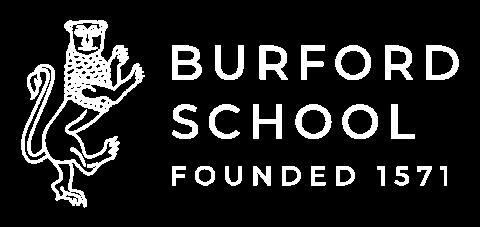
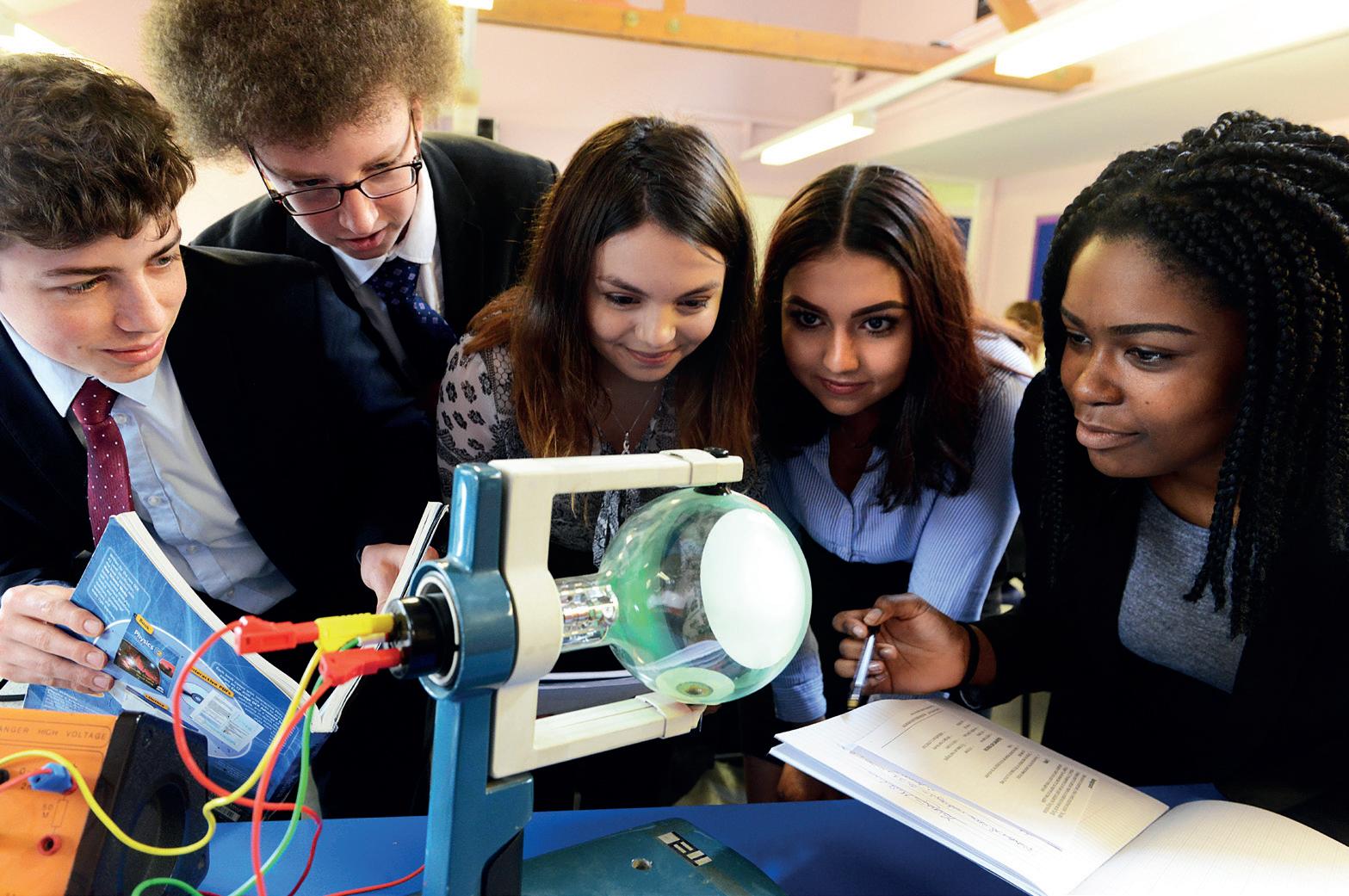
others are attracted by high standards and value for money, others are attracted to the distinctiveness of individual schools. Across the sector there are very high satisfaction rates from parents and pupils. State boarding schools are subject to regular Ofsted inspections, including an Ofsted boarding inspection every three years. I would recommend a personal visit because it can be difficult to convey the ethos of a school through an inspection report. Ideally, visit several schools before choosing, ensuring the best match for your child. State boarding schools are
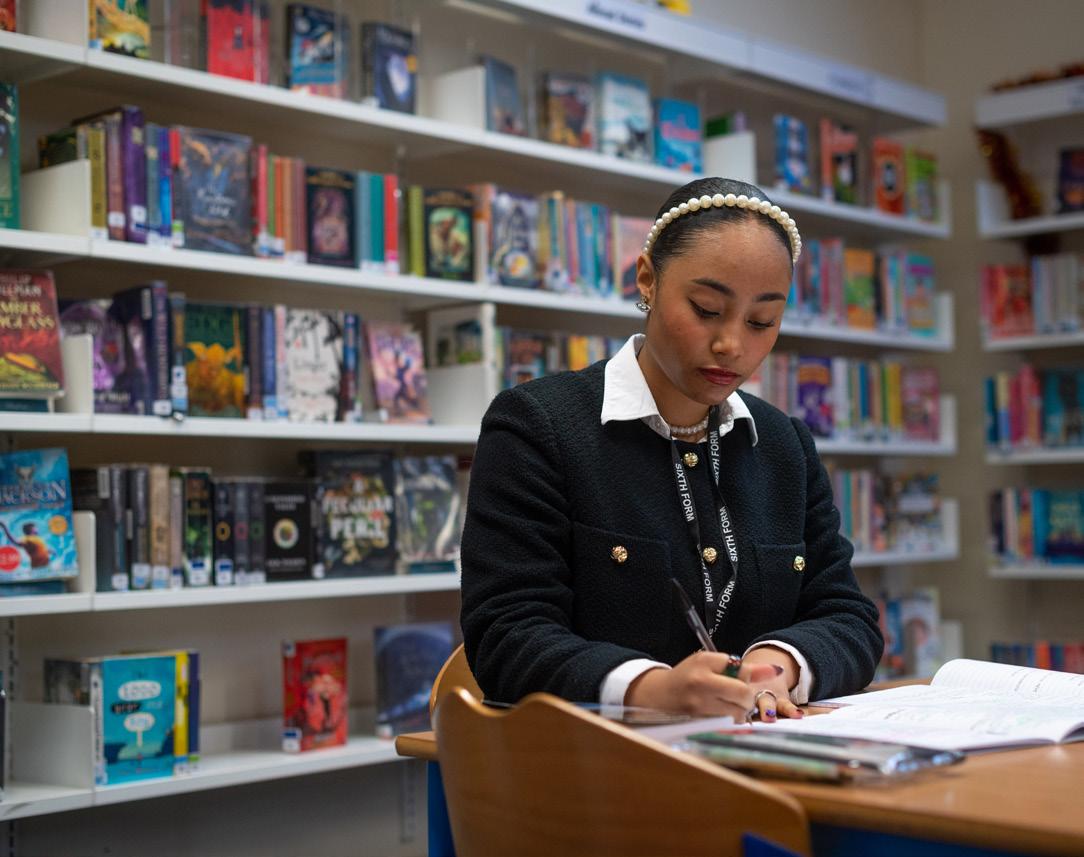
proud of what we deliver. As one journalist commented on a visit to the College: “This feels like any leading independent school”, and we all share a strong commitment to boarding.
□ Jonathan boarded as a child, studied as an undergraduate at Brasenose College, Oxford and has worked for more than 15 years in the state boarding sector. He is a committee member of the BSA State Boarding Forum, has sat on the Norfolk Safeguarding Board and is an accredited National Leader of Education.
,

Co-educational day & state boarding school for students aged 11-18 years, in an idyllic Cotswold setting
offer an affordable option for parents seeking a boarding school with high standards of education
without compromise on enrichment
care BOOK YOUR VISIT boarding@burford.oxon.sch.uk www.burford.oxon.sch.uk 01993 823283 RESPECT | PARTICIPATE | REACH BSA Guide 2023.indd 1 Where potential meets opportunity An exceptional coeducational, full boarding education for 13–18 year olds For details of admissions, scholarships and bursaries: +44 (0)1672 892300 admissions@marlboroughcollege.org www.marlboroughcollege.org
We
&
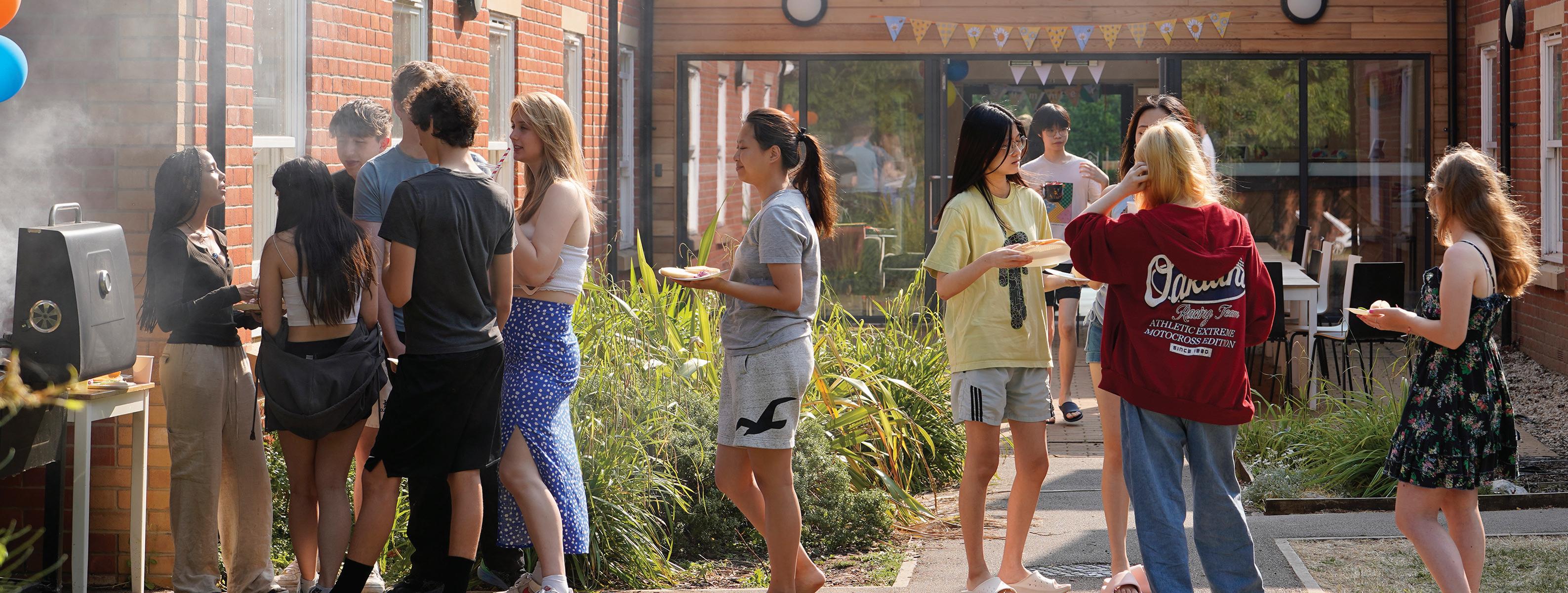

STATE BOARDING SCHOOLS Spring 2024 | 39 RICHARD HUISH COLLEGE
The benefits of sixth-form boarding
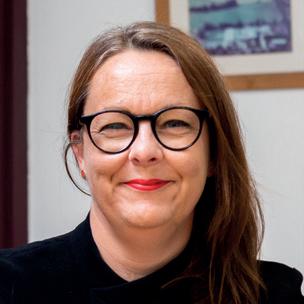
Excellent state-funded education in a boarding community makes the most of pupils’ talents and abilities.
EMMA FIELDING, Principal at Richard Huish College, reports.
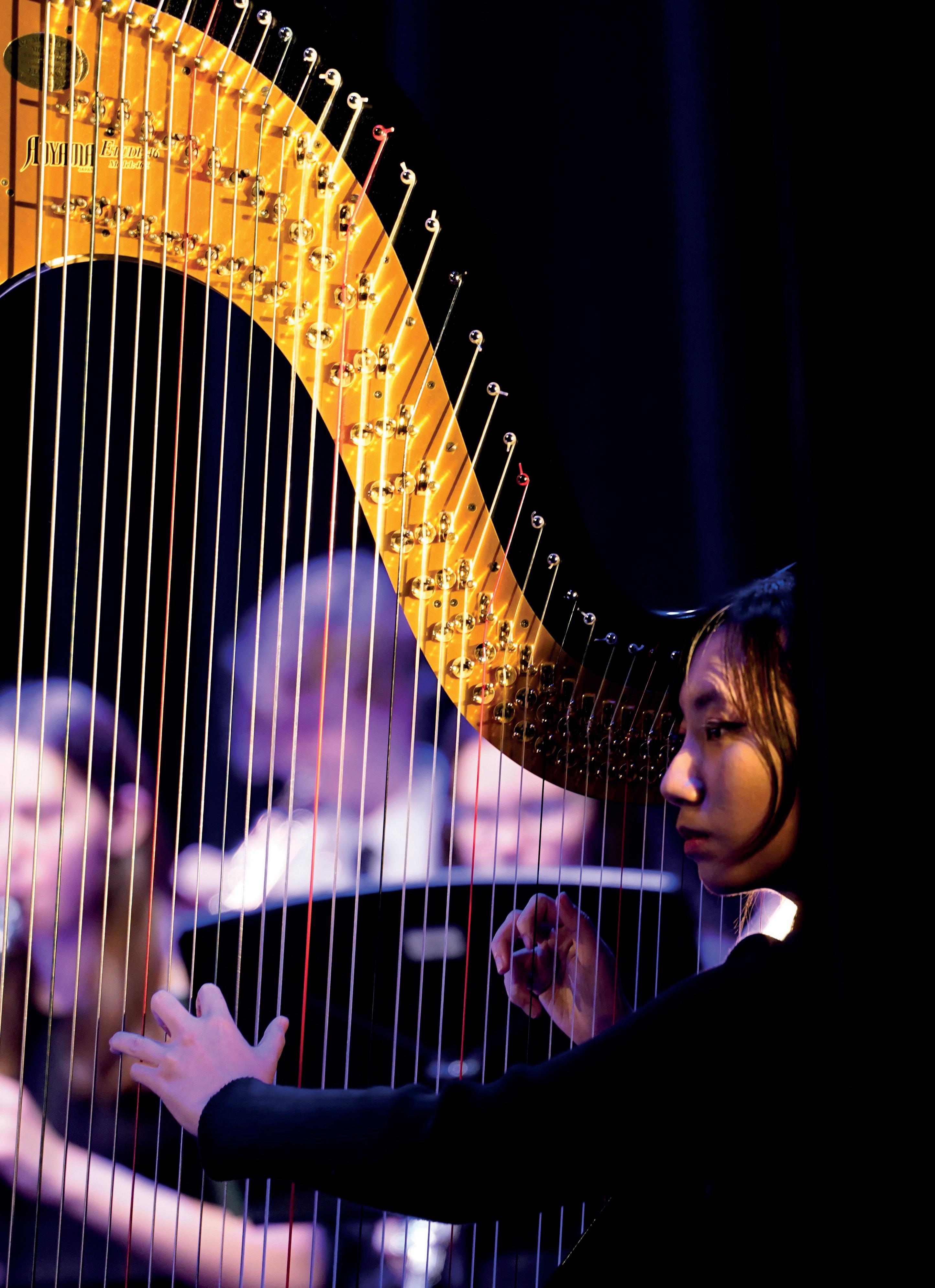
SIXTH-FORM colleges provide high-quality academic education pupils aged 16 to 18, enabling them to progress to university, the workplace or higher-level vocational education. There are 270 colleges in the UK and 77 are designated as sixth-form colleges, offering an extensive range of academic, vocational and professional courses, as well as apprenticeships.
Sixth-form colleges have a reputation for academic excellence, where students achieve exceptional progress and top national results. However, they do not have a history
of offering boarding accommodation – something we have changed at Richard Huish College in Taunton. While state boarding schools are well established, boarding at a sixth-form college is a relatively rare concept.
Each year, state boarding schools regularly outperform other state schools with a good number topping academic league tables around the country. The combination of an excellent state-funded education and a boarding community enables pupils to make the most of their talents and abilities. However, these schools offer Level 2 (GCSE) and Level 3 (A level)
qualifications and are for pupils aged 11 to 18, while a sixth-form college only has pupils who are aged between 16 and 19 years.
Whilst many sixth-form colleges offer homestay accommodation, few offer full boarding facilities operated by the college in the way that Richard Huish College does.
ALL WELCOME
At Richard Huish College, based in Taunton, the boarding house opened its doors to pupils in September 2017. The house has 53 study bedrooms, all with ensuite bathrooms. The college
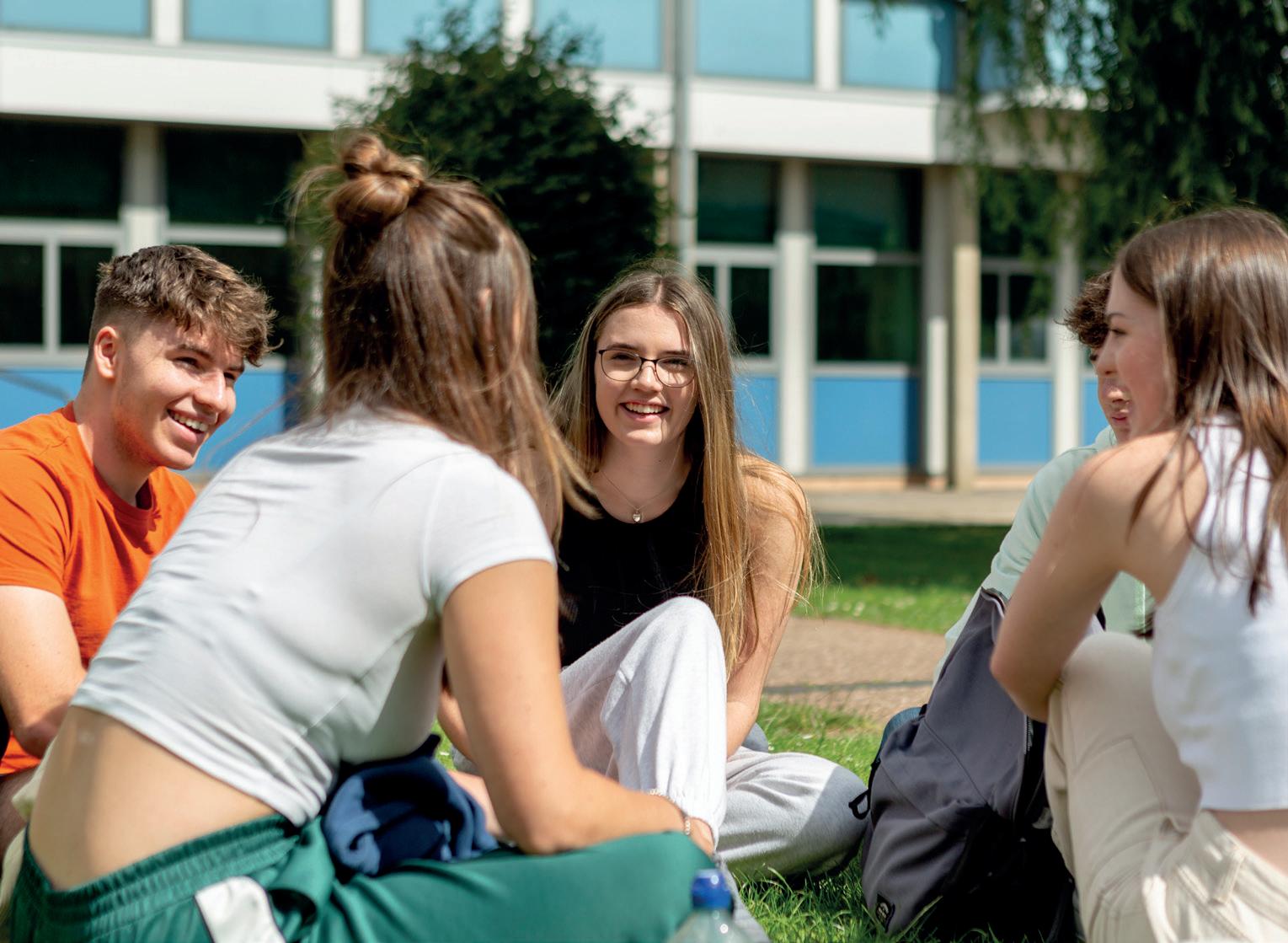
has been welcoming pupils from the UK and around the world for many years. But it knew that while homestay parents do an amazing job of nurturing pupils to settle, there were also some pupils who would prefer the boarding experience.
The boarding house means the college can offer choice and flexibility to pupils and their parents – essentially offering an independent school sixth-form experience at a fraction of the cost. Sixth-form boarding at a state college is also an option for UK pupils who travel long distances daily. Flexi-boarding or weekly boarding is a great option when a late sports fixture or exam preparation needs to take priority. Many of our pupils live rurally – parents see the advantages of flexi-boarding while pupils are excited by the opportunity of becoming more independent.
Boarding at a sixth-form college, FE college or state boarding school, your young person can expect plenty of home comforts and a warm welcome from the houseparents. Their confidence and independence will be nurtured and the experience will give them essential preparation for university life. Boarding students make a great circle of friends in the boarding house, often friends for life. A rigorous set of boarding standards is adhered to, ensuring the pastoral welfare and academic development of all pupils.
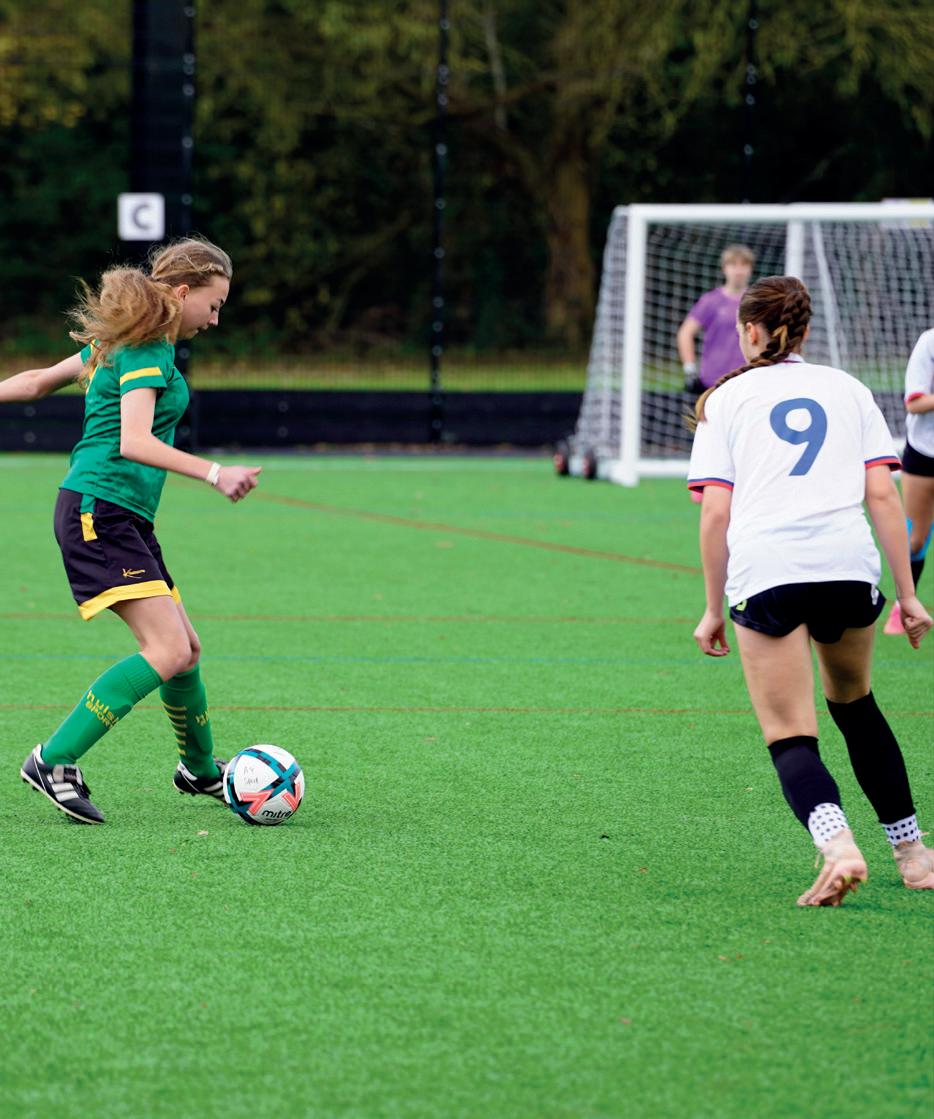
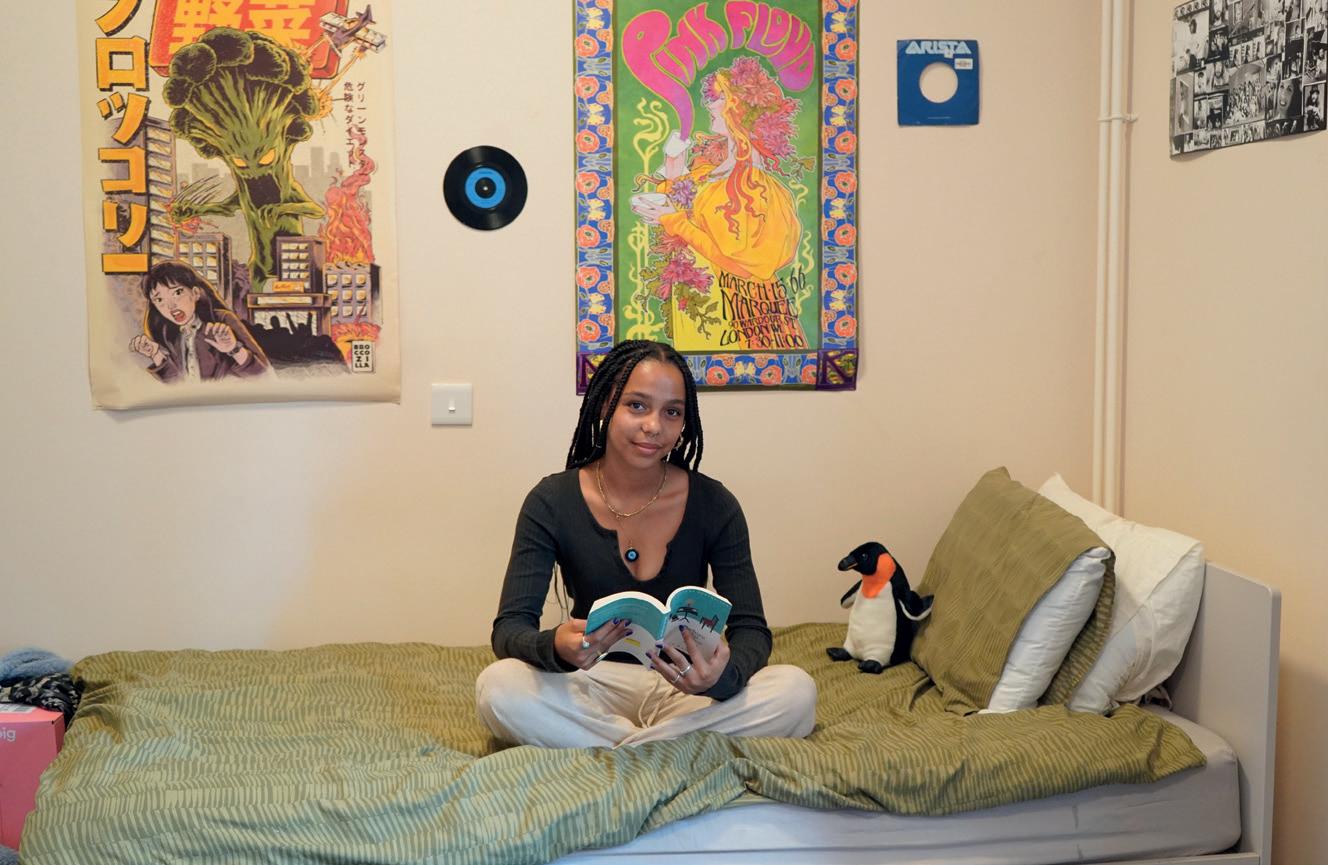
IT’S AFFORDABLE
Boarding at sixth form can be affordable if you expand your search criteria to include the state sector. Many state boarding colleges have specific areas of expertise you may wish to access, such as the links with Huish Tigers Basketball Club, Bristol Bears Rugby and Somerset Country Cricket Club at Richard Huish College.
Your child will have the best of both worlds. A dynamic college environment brings together talented and aspirational young people to explore their independence, while still providing a controlled and safe setting.
Admission to Richard Huish College is for pupils who hold a full UK passport, pupils
from UK military families based in the UK or abroad, or pupils who can meet the eligibility funding criteria of the ESFA, for example British Nationals Overseas, Dependents. For further information, go to www.huish.ac.uk/boarding.
□ Emma Fielding became Principal at Richard Huish College in August 2020, taking over from John Abbott who moved to become Chief Executive Officer of the Richard Huish Trust. Emma began her career in education as an Educational Researcher at the University of Cambridge before going on to train as a History and Sociology Teacher. She has since worked in the Post-16 educational sector for 18 years.
STATE BOARDING SCHOOLS Spring 2024 | 41
State
boarding schools
If you are considering boarding, a state boarding school may be an option. As always, it is important to do your research and above all, see the school in action before you make any choice. State boarding schools provide free education but charge fees for boarding. Some state boarding schools are run by local councils and others are run as
academies or free schools. These schools give priority to children who have a particular need to board and will assess children’s suitability for boarding. At state boarding schools and academies, including sixth-form colleges, parents pay between £10,000 and £17,000 per year for their children to board, with an average of £12,000 per year.
State boarding schools
In England there are 33 mainstream members of the BSA State Boarding Forum (SBF) and 30 are listed here, including academies and free schools. For more information on state boarding schools go to www.boarding.org.uk/for-parentspupils/types-of-boarding-school/
Old
Peter Symonds College Hampshire South Central
Richard
Sexey’s
St
Steyning
The
The Royal Grammar School, High Wycombe Buckinghamshire South Central
The Royal School, Wolverhampton Metropolitan Borough of Wolverhampton West Midlands
The Thomas Adams School Shropshire Shropshire West Midlands
The Wellington Academy Wiltshire South West
Wymondham College Norfolk East England
Wymondham
County
School
Region
Beechen Cliff School Somerset South West
Oxfordshire South
Kent South
Cumbria North
Devon
Brymore Academy Somerset South West Burford School
Central Colchester Royal Grammar School Essex East England Cranbrook School
East Dallam School
West Exeter College
South West Gordon’s School Surrey South East
Haberdashers’ Adams Shropshire West Midlands
Hockerill Anglo-European College Hertfordshire East England
Cumbria
Holyport College Berkshire South East Keswick School
North West
Lancaster Royal Grammar School Lancashire North West
Liverpool College City of Liverpool Borough North West
Swinford Hospital Metropolitan Borough of Dudley West Midlands
Reading School Berkshire South Central
Huish College Somerset South West
Ripon Grammar School North Yorkshire North East Yorkshire and Humber
Royal Alexandra & Albert School Surrey South East
School Somerset South West
George’s School, Harpenden Academy Trust Hertfordshire East England
Grammar School Sussex South East
Duke of York’s Royal Military School Kent South East
College Prep School Norfolk East England
Schools together in partnership
INDEPENDENT schools have
been connecting with their local communities and working with state schools for many years. But only recently have we collected data that clearly demonstrates this. Thousands of mutually beneficial partnerships now exist between independent and state schools, unlocking new educational experiences for all involved.
This work was reinforced in a ‘Joint Understanding’ with the Department for Education announced in 2018, outlining the commitment of independent schools to voluntarily develop mutually supportive ‘collaborations’ with maintained schools.
CHARITABLE STATUS
There has been an amount of political interest in charitable status over the years, with the media often berating fee-charging schools for ‘tax breaks’ that come with charitable status. In fact, the allocation of bursary awards far exceeds business rates relief granted to schools which are charities. Even schools that are not charities have taken steps to improve accessibility, with increased bursary assistance for those who might not otherwise have been able to afford independent school fees. In the 2022 to 23 academic year, £494 million was provided in means-tested fee assistance for pupils at ISC schools.
A 2011 judicial review ruled that education is of itself a charitable activity. The trustees of schools that are charities have a duty to report their school’s work for the public benefit to the Charity Commission. This work can include awarding bursaries on a means-tested basis for disadvantaged children, children on the edge of care and looked-after children. It can also involve support for academies and partnership work to provide learning and development opportunities to children who would otherwise miss out.
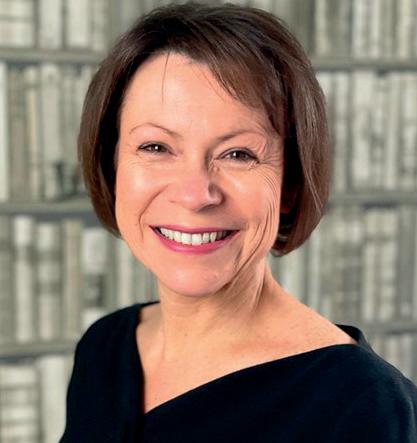
Successful partnerships between independent and state schools help to give communities a deeper understanding of each other, supporting social cohesion.
JULIE ROBINSON, Chief Executive Officer
of the Independent Schools Council, reports.
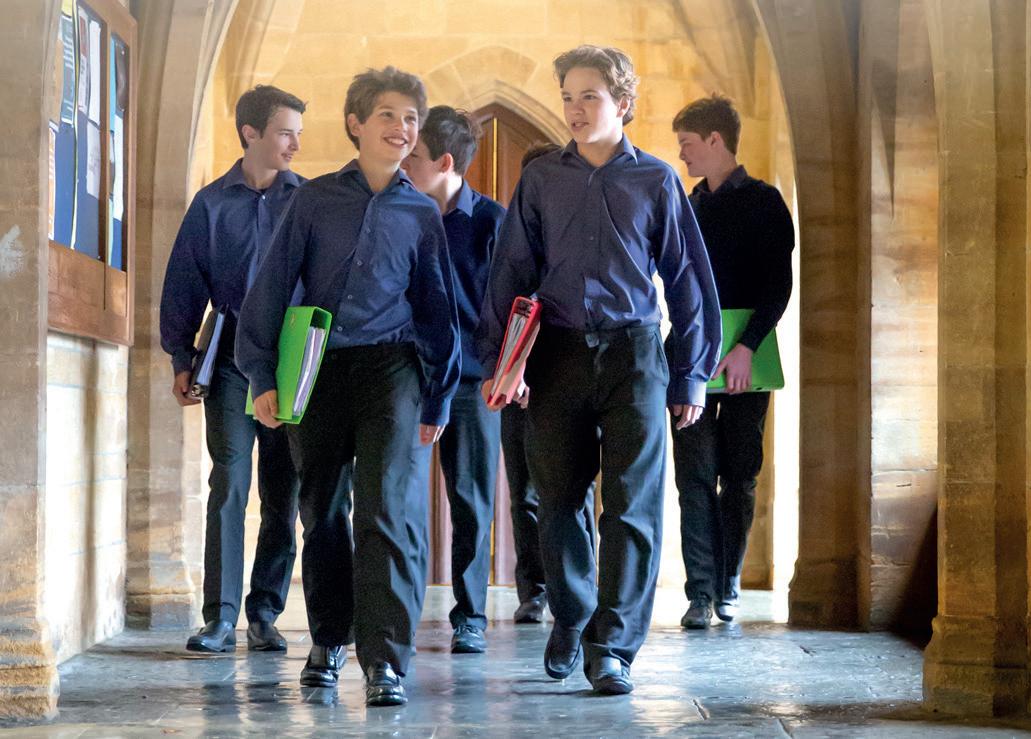
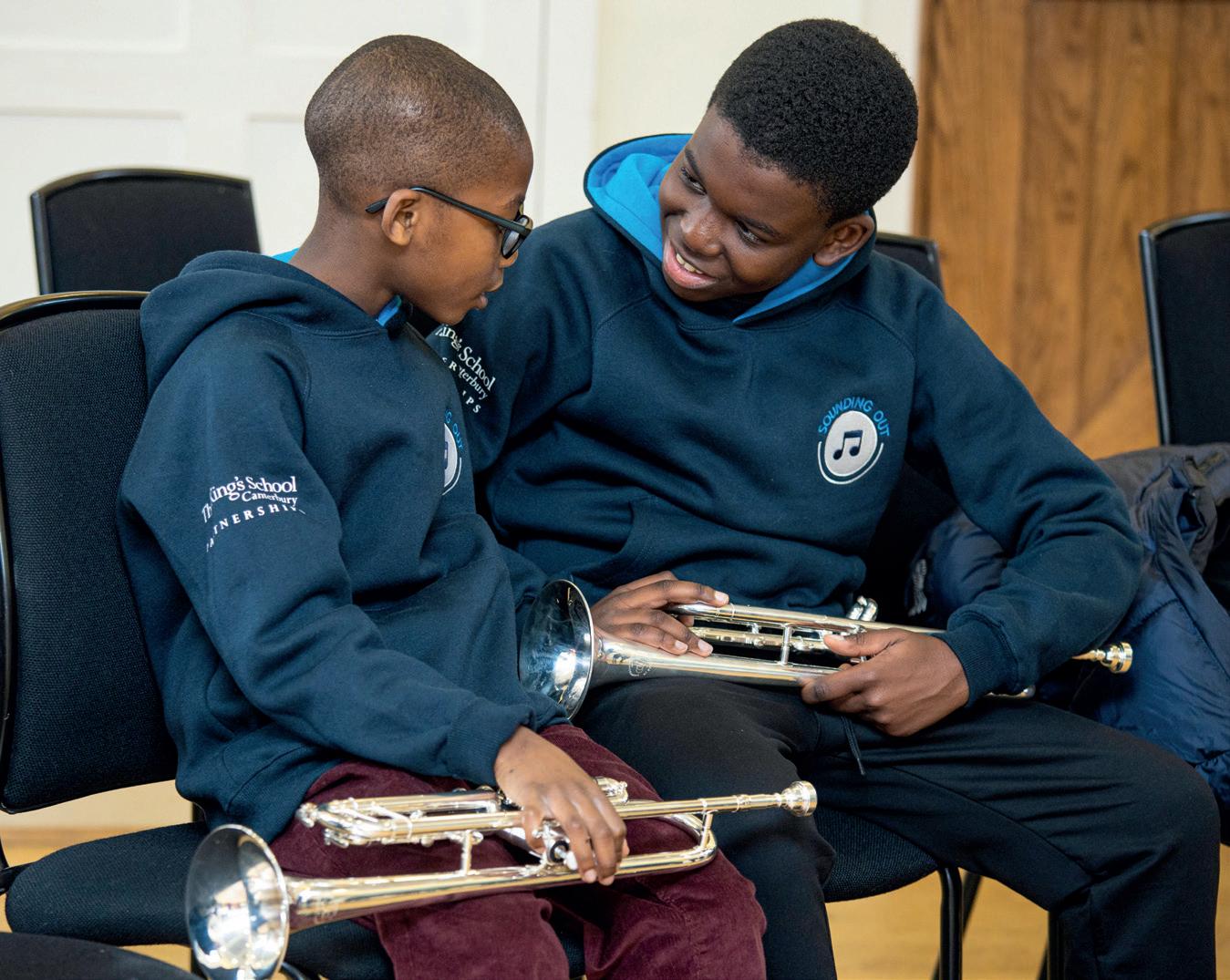 Photo with kind permission of Sherborne School
Photo with kind permission of Sherborne School
Spring 2024 | 43
Photo with kind permission of The King’s School, Canterbury
INDEPENDENT SCHOOLS

“Vulnerable subjects, such as modern foreign languages, Latin, music and physics are supported by partnership work.”
It is important that trustees retain flexibility to fulfil any school’s public benefit activity according to local needs, and in appropriate ways for schools according to individual capacities. Many schools do not have extensive facilities to share with state schools, plus there are geographic and other barriers to consider.
PARTNERSHIP ACTIVITIES
The Schools Together website www. schoolstogether.org details many excellent projects between independent and state schools, encouraging, showcasing and inspiring partnership working.
The website was launched in 2016 and, although involvement is voluntary, more than 6,000 projects have been featured. The projects include academic, drama, governance, music, sponsorship, sport and design technology. Many different types of partnerships are underway, involving large and smaller schools that provide impressive and exciting educational opportunities for all pupils and staff involved. These range from full academy sponsorship, such as Harris Westminster and the London Academy of Excellence, to arts projects with local primary and special schools; and from careers guidance and university preparation, to inclusion in dramatic productions and sports tournaments.
WORKING TOGETHER
Schools can benefit from economies of scale and various mutual benefits when working together to procure services, including sharing specialist teachers and training. A visiting author or speaker can be enjoyed by pupils beyond the host school, and schools can share specific expertise and policies.
Partnership work can also support vulnerable subjects, such as modern foreign languages, Latin, music and physics. Pupils meeting each other can develop a new way of seeing the world. Inter-school visits can allow new subject areas, sports, musical instruments and experiences to be shared, broadening the horizons of all taking part.
Successful partnerships help to give communities a deeper understanding of each other and support social cohesion. The pooling of resources enhances the overall educational offer for all schools involved, and sharing experiences can provide teachers with effective professional development. Some schools work in pairs or small clusters, while others enjoy large partnership groups across areas such as York or Birmingham. These mutually supportive groupings develop projects over time and forge strong links for communities involved,
projects growing according to schools’ needs and strengths.
THE FUTURE
The School Partnerships Alliance (SPA) was launched in 2022 to promote best partnership practice across state and independent schools. The SPA brings schools and other stakeholders together to create a national network, drawing on key examples of sustainable and meaningful partnership work.
Partnership activities between independent and state schools includes reading with younger pupils, preparing A level pupils for higher education, sharing facilities and seconding teaching staff. The 2023 ISC Census shows that in 2022 there were 8,793 partnerships at 1,043 ISC schools. We expect to see even more opportunities blossoming as school life continues to return to normal following COVID-19.
□ Before joining the ISC, Julie was a teacher, housemistress and Head of Ardingly College Junior School and then Vinehall Prep School in Sussex. After these headships, she was Education and Training Director for the Independent Association of Preparatory Schools. She is governor of a state school and an independent school.
Photo with kind permission of Canford School and Paul West Photography
Building character and future success
YOUNG people today need firstclass tuition and the finest academic qualifications to succeed. But they also need strength of character and skills such as communication, teamwork and resilience to build happy, fulfilling and worthwhile lives. A boarding education can provide the building blocks for character and success.
As the school curriculum narrows, the boarding school’s emphasis on educating the whole child provides plenty of opportunities to develop a wider set of skills and qualities. At Bloxham, our activities programme offers pupils 100 options, ranging from mainstream sports to minor ones, and from music, drama and art, to astronomy and Young Enterprise. Balancing breadth with specialism, our tutors work with pupils to help them select options which will both stimulate and challenge. They encourage pupils to give everything a go – in our view, it’s good to try new things, to persevere at acquiring new skills and to learn to laugh when you fail.
Where talent and interests emerge, a boarding school can allow pupils time and resource for passions and expertise to flourish. With a flexible boarding model, it is possible to take an open approach to pursuits which naturally develop outside of school.
OUTDOOR EDUCATION
Like many boarding schools, outdoor education runs through the lifeblood of Bloxham School. First introduced in our Lower School, outdoor education increases in challenge as pupils move through their years with us. Our Year 7 and 8 pupils enjoy annual camps and the not-to-bemissed Alps trip, when they get to test their nerve white-water rafting and canyoning, building life-lasting memories on the way down.

Boarding schools teach pupils the importance of tolerance and respect, how to work together to achieve goals, and how to live harmoniously with others. PAUL
SANDERSON, Headmaster at Bloxham School,
reports.
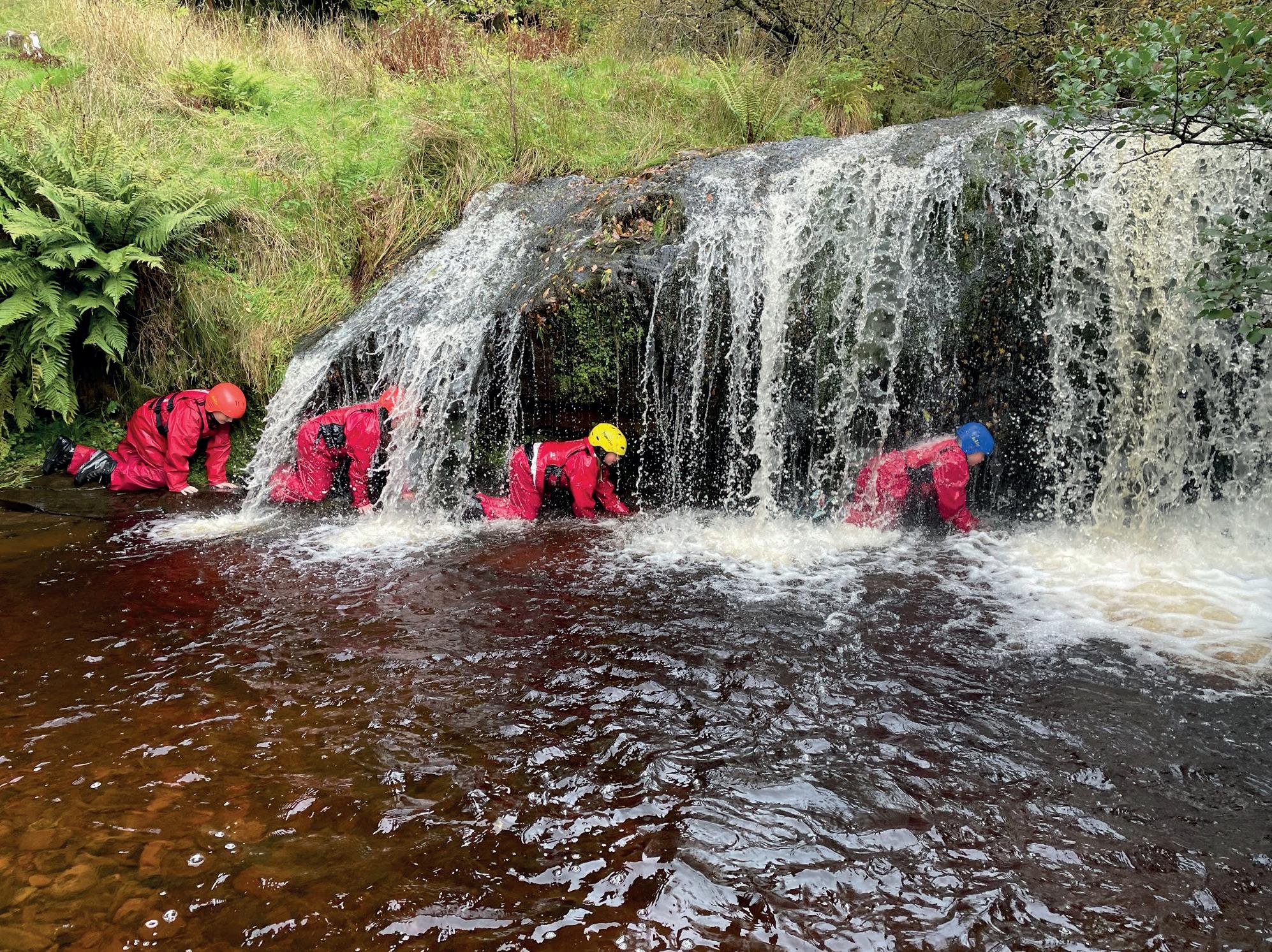
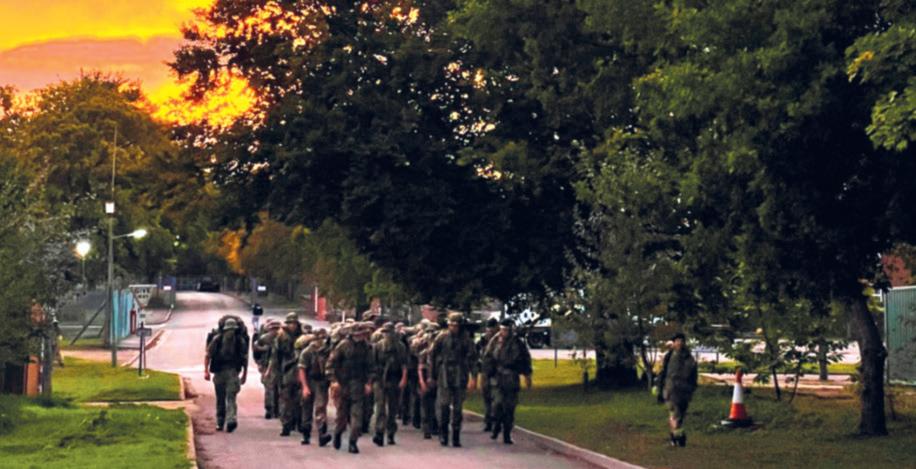
INDEPENDENT SCHOOLS Spring 2024 | 45

Over many years, boarding schools have learnt that trying new activities in a fun environment can generate excitement for learning outdoors. This in turn lays the foundations of communication, teamwork and resilience upon which young people will rely so often in the future.
These skills can be further developed in more demanding environments, for example, through the Duke of Edinburgh’s Award and the Combined Cadet Force. Schemes like these help pupils broaden their horizons, develop their leadership skills, learn to work with others, and prove to themselves they can succeed at a serious challenge.
KINDNESS AND COMPASSION
Bloxham is a Christian foundation school. As such we value kindness and compassion, and we teach pupils the value of contributing to their community. Through our well-supported service programme, pupils volunteer at food banks, care homes and local primary schools each week, giving them a lasting experience of making a difference. One such relationship led to a beautiful collaboration, which saw a design technology A level pupil dedicate his examined project to a local hospice. Working to the hospice director’s brief, the pupil designed and made symbols, features and artefacts to help the hospice chapel become a multi-faith place for worship and reflection. Now installed, they are having a moving effect on the hospice’s community. They have also shown our pupil, and indeed the
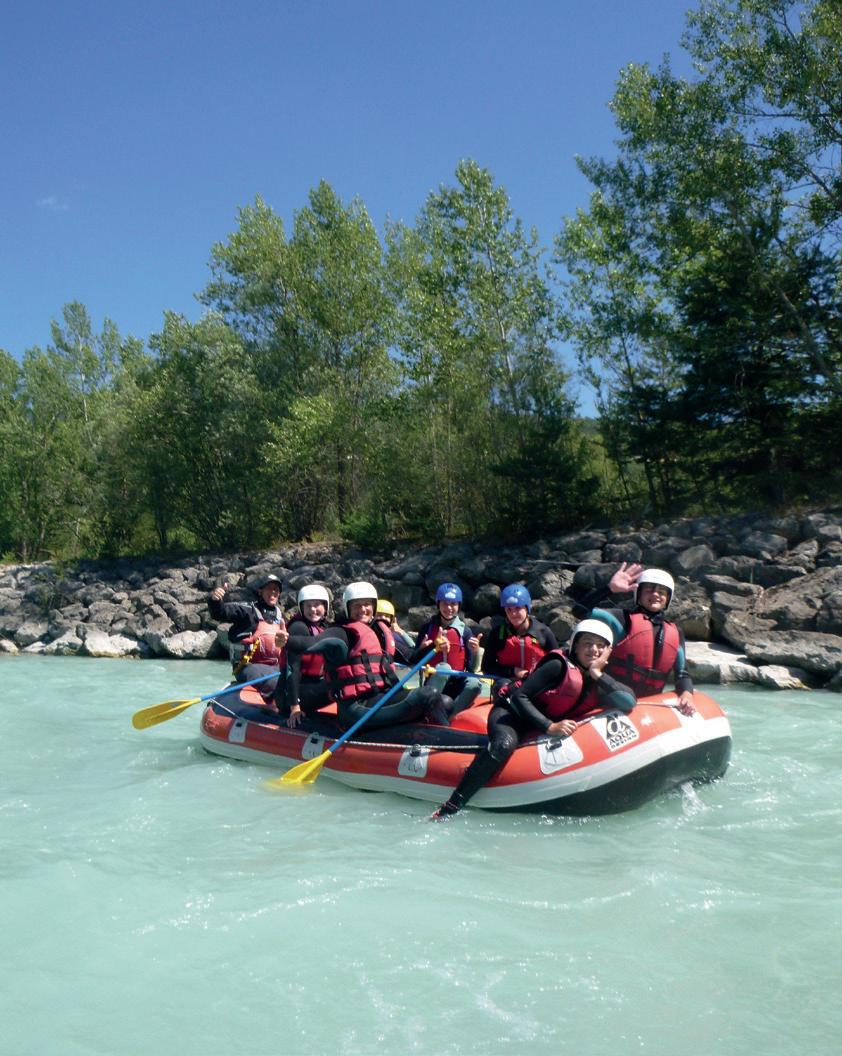
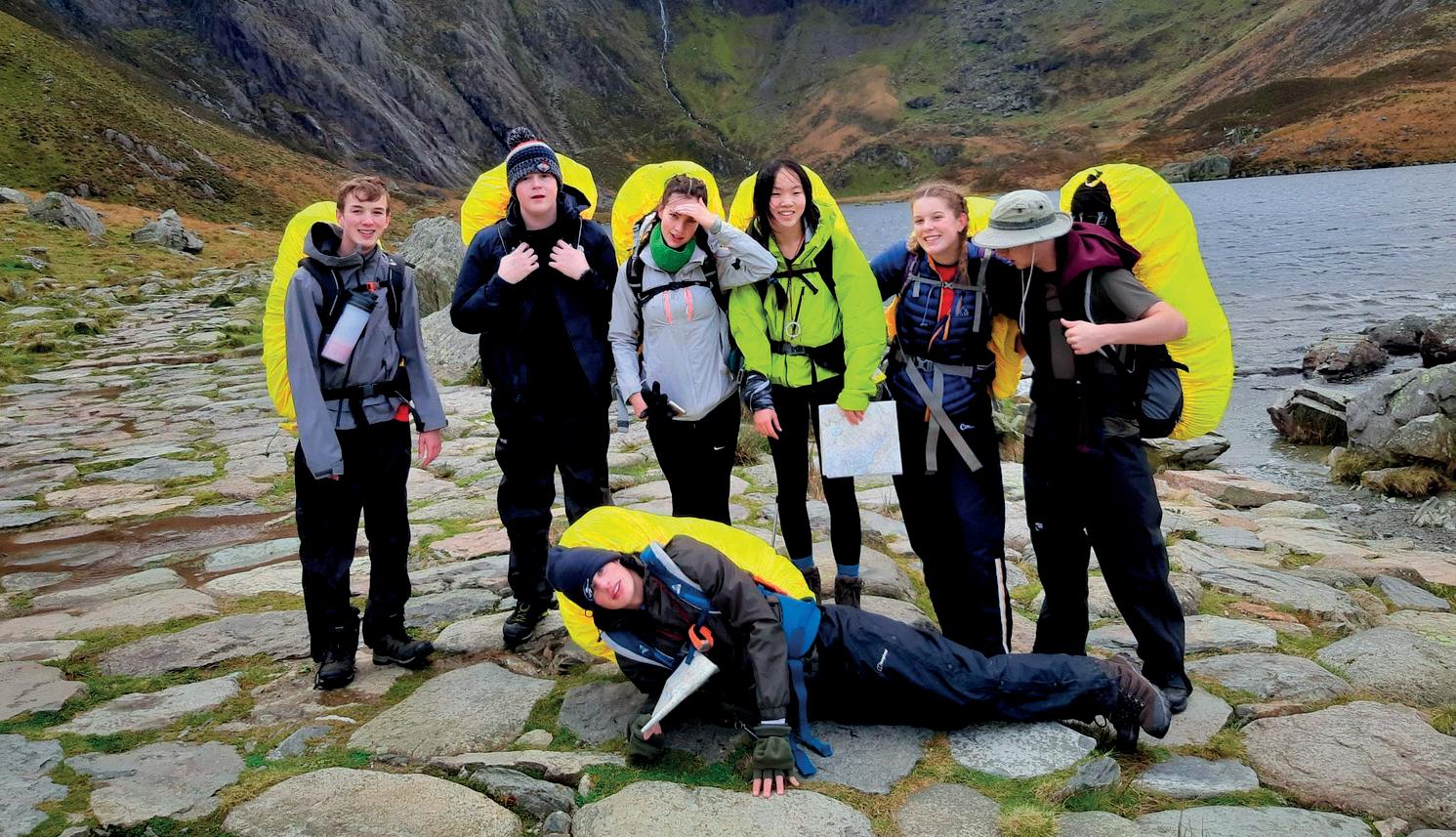
whole school community, the impact they can have when they give something back.
Each year we fundraise for a variety of charities – from local causes such as Katharine House Hospice, to charities close to the heart of our community. Fundraising challenges have included sporting feats such as triathlons and marathon distances, leg waxing, car washing, cake baking and clothing sales. Experiences like these show children the importance of teamwork and determination and teach them to look beyond themselves, appreciate their good fortune and help those with less.
Perhaps most importantly, boarding environments teach pupils the importance of tolerance and respect, how to work together to achieve their goals and how to live harmoniously with others. Boarders learn to invest
in their community, realise their actions have consequences and learn to take responsibility. This blend of education helps them grow into happy, well-adjusted young people, with the values and strength of character to do something good with their lives.
□ Paul has been Headmaster at Bloxham School since 2013. Before this he was Deputy Head at Gordonstoun, where he also spent three years as a Housemaster. He was an Assistant Housemaster at both Oundle and Lancaster Royal Grammar. Educated at Banbridge Academy, he studied Evolutionary Biology and Genetics at the University of St Andrews and he has a Masters in Educational Research from Cambridge University. At Bloxham, he continues to teach biology and enjoys joining outdoor excursions including climbing.
Philanthropy, kindness and compassion

Because boarding pupils and staff live on site, they have extra time together to share and highlight issues that are important locally and globally, but also personally. MATTHEW GODFREY, Senior Deputy Head at Downe House School, reports.

ONE of the joys of boarding is being a part of an eclectic school community, offering pupils, families and staff the opportunity to create a ‘local community’ that unites and stretches across the globe. Through their house teams, pupils are supported to be creative and bring others with them as they share and rally behind causes close to their hearts.
A boarding school culture of helping others encourages everyone to get involved. Pupils can be compassionate and creative, working together to be outwardlooking. At Downe House this is all part of the DNA that evolved from the ethos of kindness established by the school’s founder, Olive Willis.
Downe House marked its centenary in 2022 on its campus in Cold Ash, where the school stood throughout World War Two, and where it welcomed refugees with open arms. Here is the testimony of Rosemarie C (Downe House Alumnae, 1943): “I arrived in December 1938 at the age of 14, a refugee from Austria, with hardly a word of English, to be greeted by
“Thanks to her hospitality and caring concern I was able to continue my education, and in three years I gained admittance to the University of Reading, and subsequently to the London School of Economics. The friendships, the learning and the concern for others, were among the invaluable riches I enjoyed at Downe House and they have been an inspiration to me throughout my life. There were three or four other refugee children during the war years who were also given the opportunity of a new life.”
Pupils have led numerous charitable activities in recent years, supporting a broad range of activities and causes. They also reflect the many cultures and beliefs represented in a diverse boarding school. Pupils are taught to understand that ‘education has the power to change lives’, and such activities therefore always include an element of education for the wider school community. This could be through assemblies, displays and talks by pupils, themed evening and
weekend events, or visits by organisations. Nominations come from the heart and often reflect personal causes, as well as important issues impacting young people across the world.
Different parts of the school are also involved in longer-term support. Upper School boarding houses each have an international charity supported by fundraising events and visits from pupils volunteering their time. Charities include HOPE Asia, Open Arms Malawi, Sparkes Homes Sri Lanka, Reality Gives India and Stepping Stones, Malawi. Lower School boarding houses collectively support the OSCAR Foundation. The common theme with these associations is the empowerment of children and young people, and generations of boarders have spent time together forging and maintaining these links.
DONATING TIME
Supporting charities local to boarding schools enables pupils to donate the gift of time, giving back to communities where they spend a large part of their young lives. Pupils at Downe House collectively
Miss Willis in evening dress, surrounded by her Samoyed dogs.
INDEPENDENT SCHOOLS Spring 2024 | 47
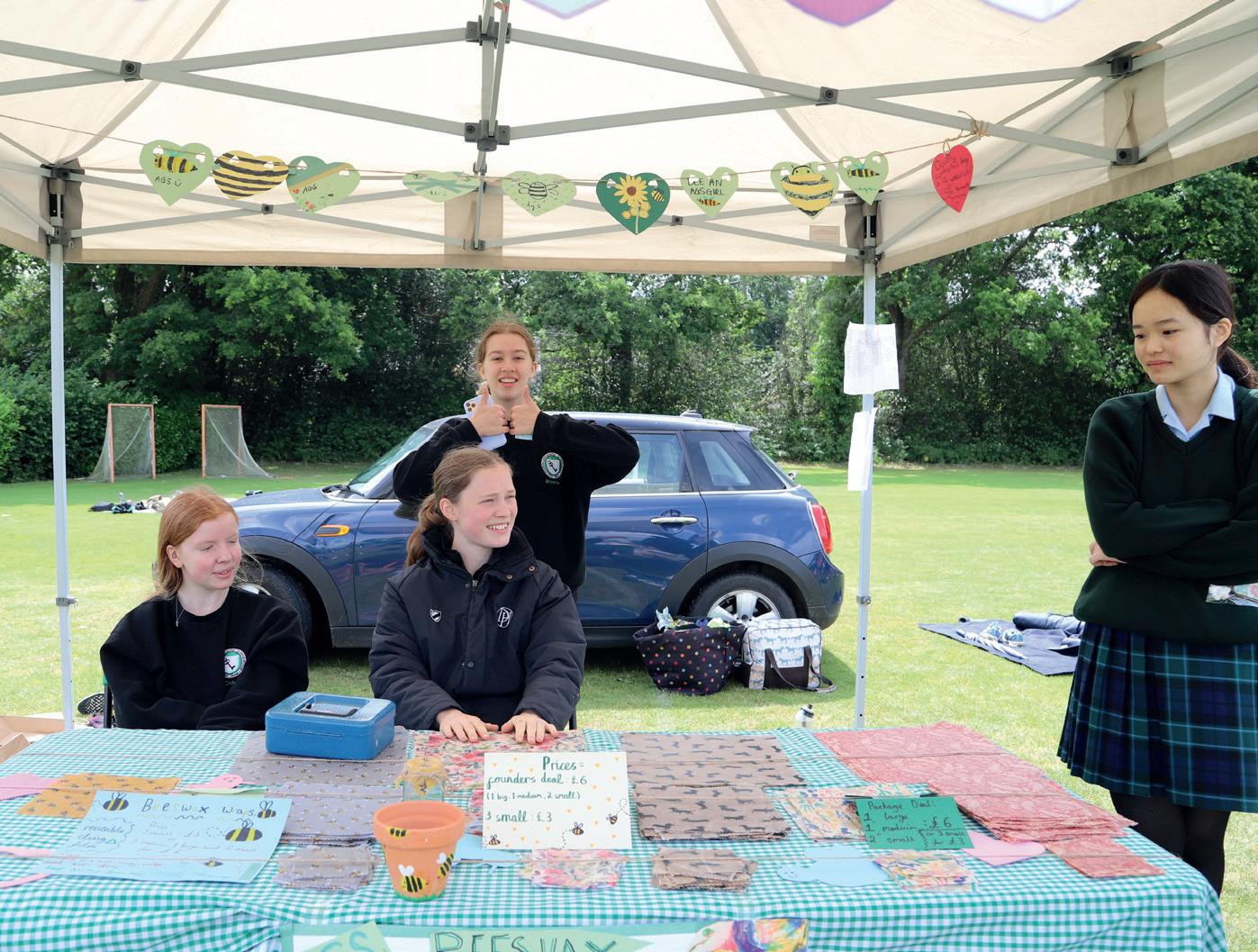
volunteer more than 1,000 hours a year supporting local organisations. Schemes such as the Duke of Edinburgh’s Award actively encourage this. For Downe House pupils, volunteering has ranged from helping local woodlands management to busking for the charity Swings & Smiles. The Cottismore Gardens ‘Growing2gether’ project has also been supported, promoting interest and awareness in local food, and building a garden facility for people with learning difficulties.
In 2022, the swell of support for people affected by the Ukraine invasion was felt across the globe. A school concert raised over £2,000 for the Disasters Emergency Committee (DEC) fund via Christian Aid. The school’s choir, Prima Voce, performed A Prayer for Ukraine, learnt over two nights in its original Ukrainian language, and later released on social media to support further donations (https://fb.watch/ cC7Z8n9nQY/). Pupils and boarding house staff also led the whole school community to support local charity Racing to Help Ukraine, collecting emergency aid supplies to be driven to refugees at the Ukrainian/Polish border in a convoy of horseboxes.
The Headmasters’ and Headmistresses’ Conference has also reported examples of support from its members, many of which are boarding schools, for those directly impacted in Ukraine. Examples have included raising funds to support the DEC appeal, and providing clothing, food and shelter to Ukrainian refugees. For more information, go to https://www.hmc. org.uk/hmcmember-school-support-forukrainianrefugees/
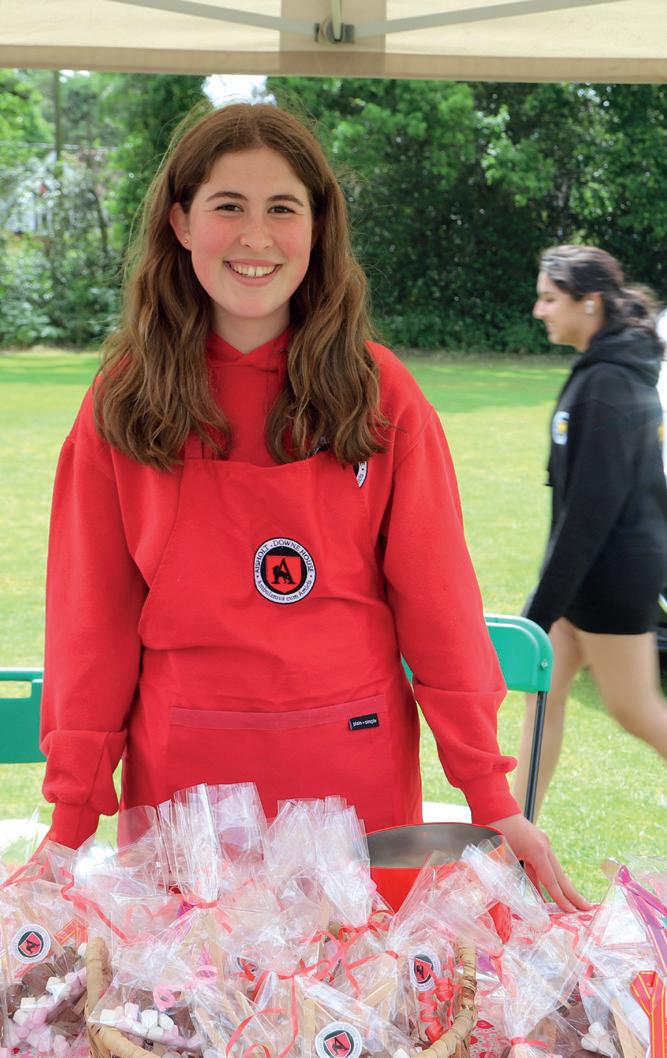
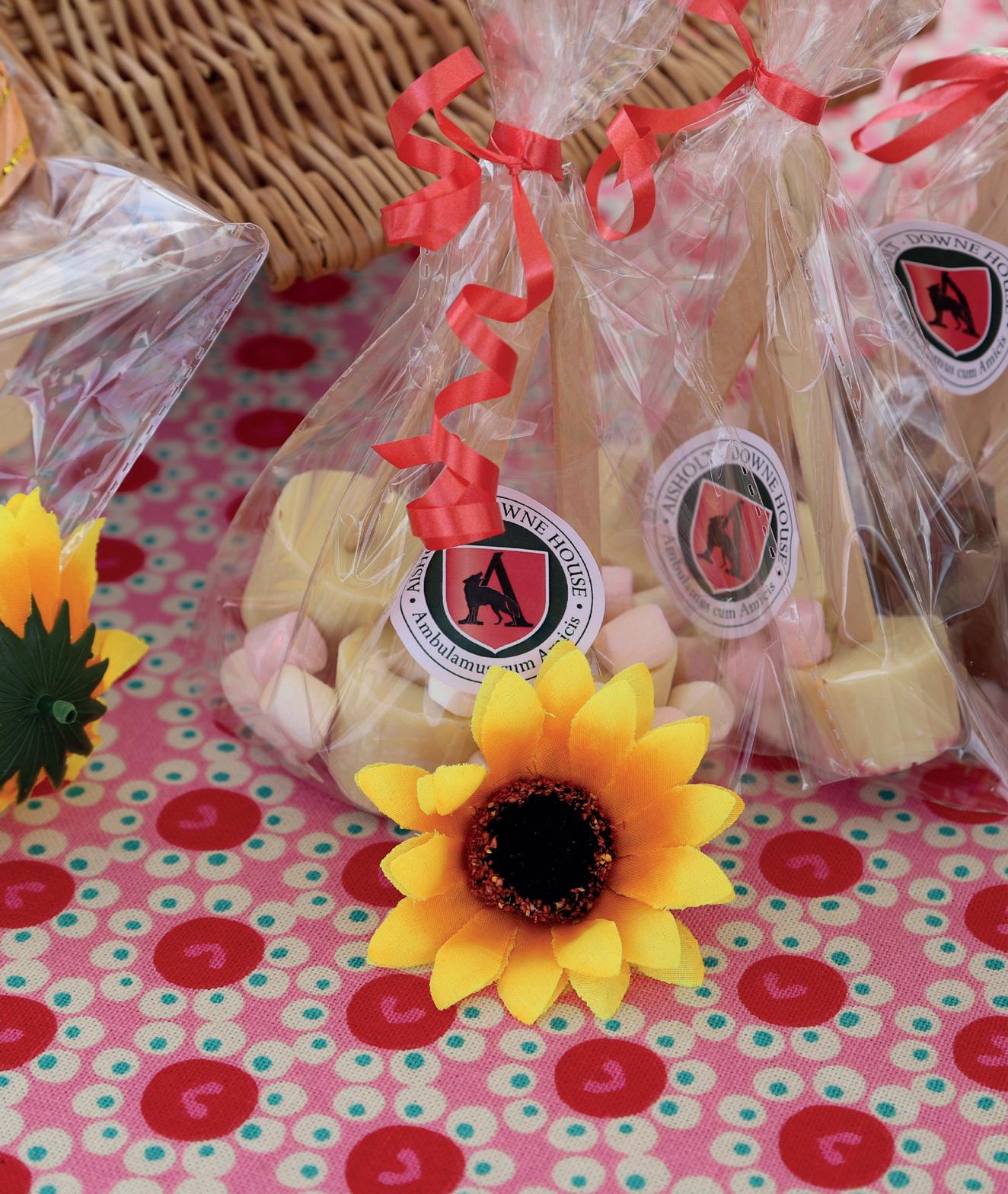
□ Matthew is a graduate of Durham University and also holds a Master’s in Education. He started his career with the global consultancy firm Accenture but switched to teaching after seven years in business. He has taught English at secondary schools – both maintained and independent – ever since. Before joining Downe House, he held posts at Brighton College and Caterham School.

The Bristol school with a global reputation

Badminton School Bristol Weekly, Flexi & Full Boarding Available Open Morning Monday 6th May badmintonschool.co.uk
‘PREP SCHOOL OF THE YEAR’ TATLER SCHOOLS AWARDS 2020/21
BUCHAN HILL, PEASE POTTAGE, WEST SUSSEX, RH11 9AU 01293 520648 ADMISSIONS@COTTESMORESCHOOL.COM WWW.COTTESMORESCHOOL.COM

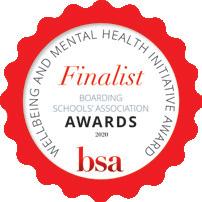
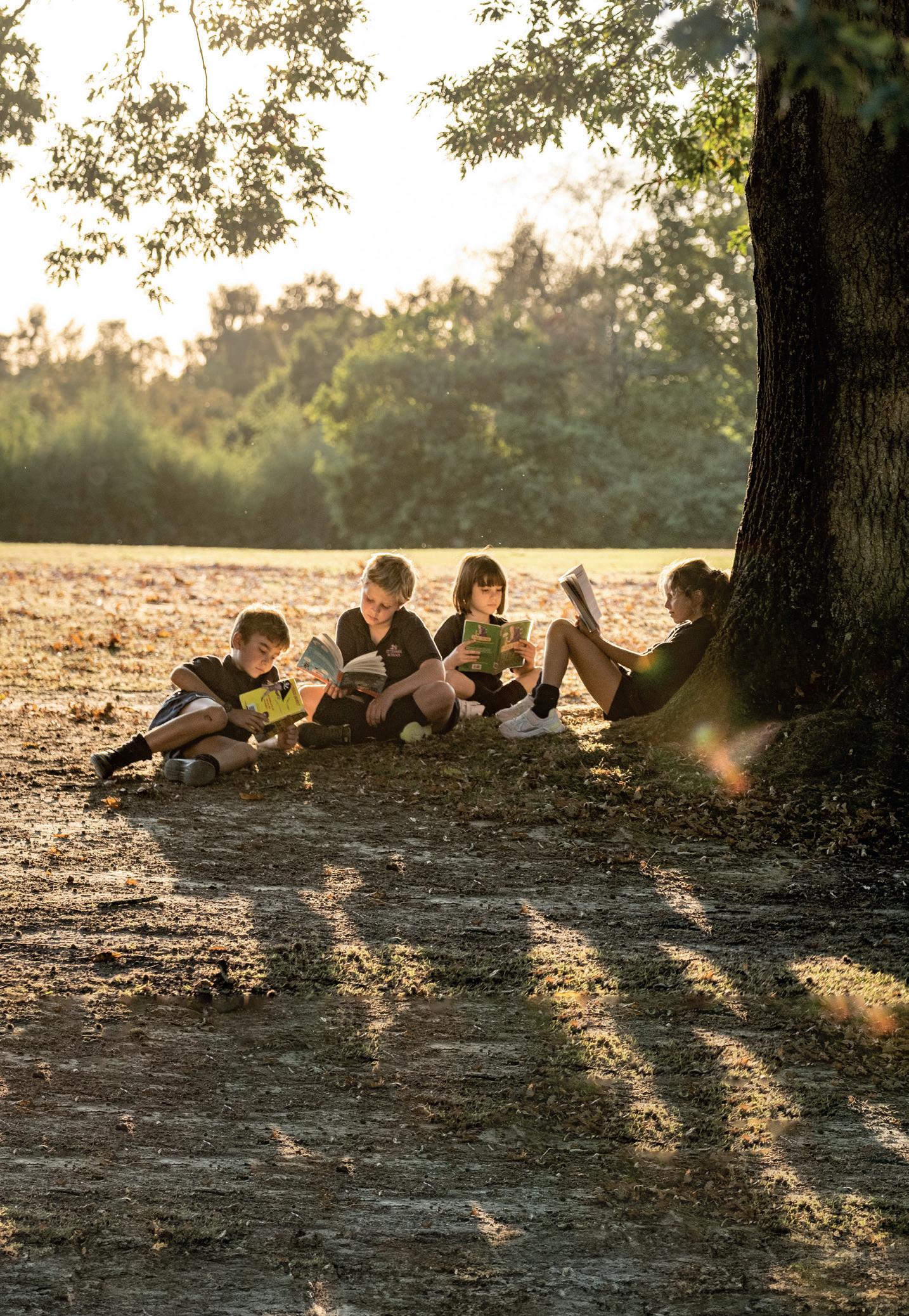

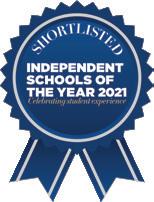
Boarding at Dulwich College
Dulwich College is one of the UK’s leading independent schools with an international reputation for academic excellence and a boarding community of over 20 nationalities. Find out more at www.dulwich.org.uk

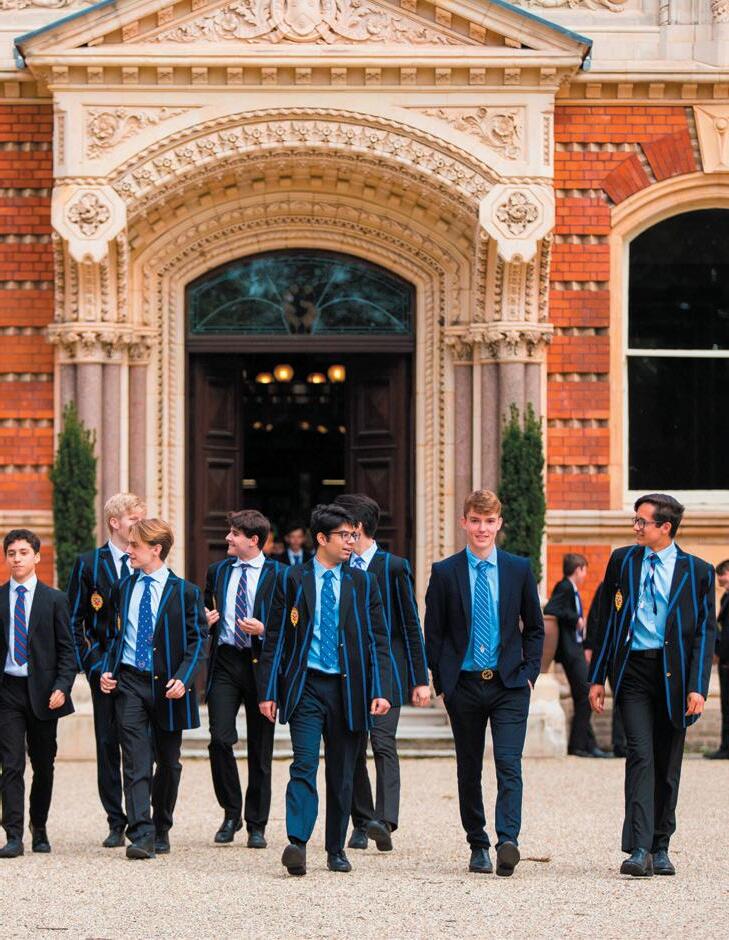
Historic and award-winning buildings in a 70-acre campus, only 12 minutes from central London


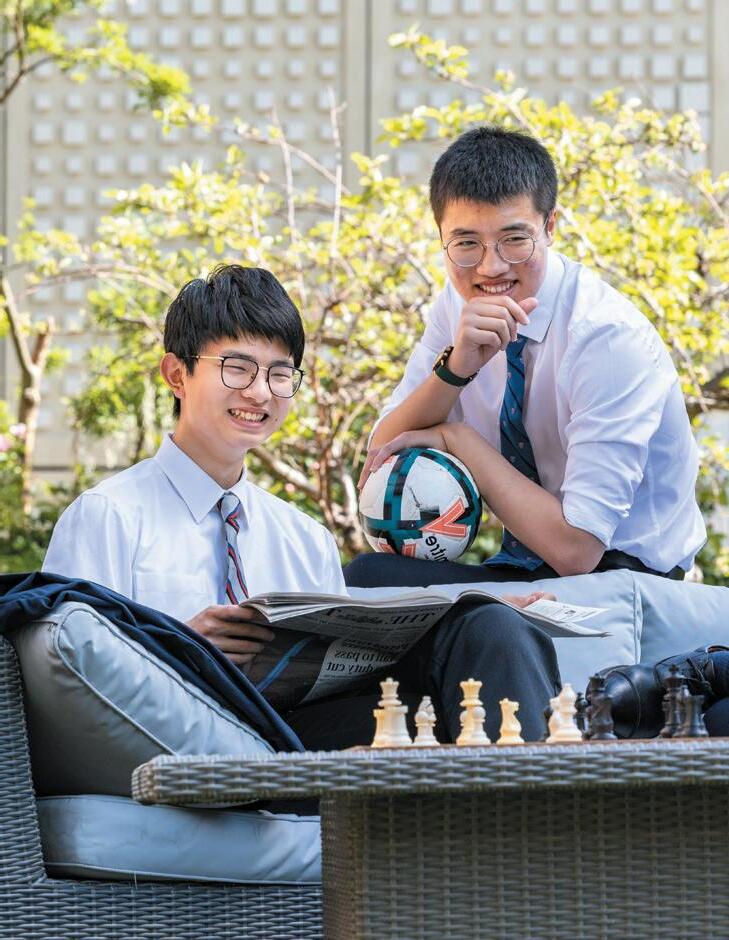






Outstanding facilities for science, art, music, drama and sport





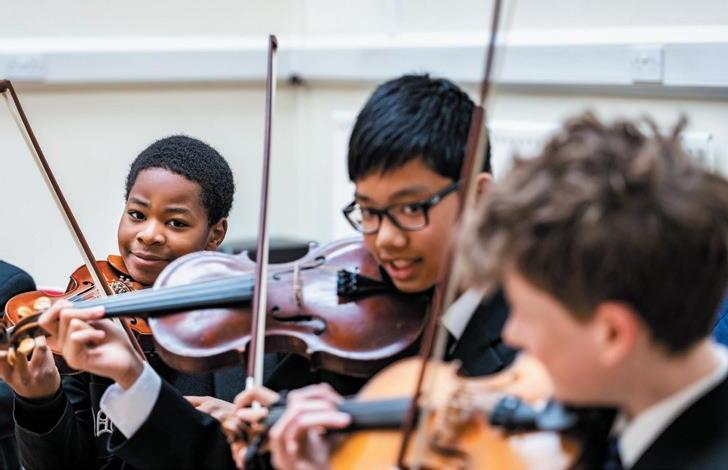

INDEPENDENT SCHOOLS Spring 2024 | 49
PREP | AGE 4 -13 | GIRLS
PRE-PREP AND
AND BOYS
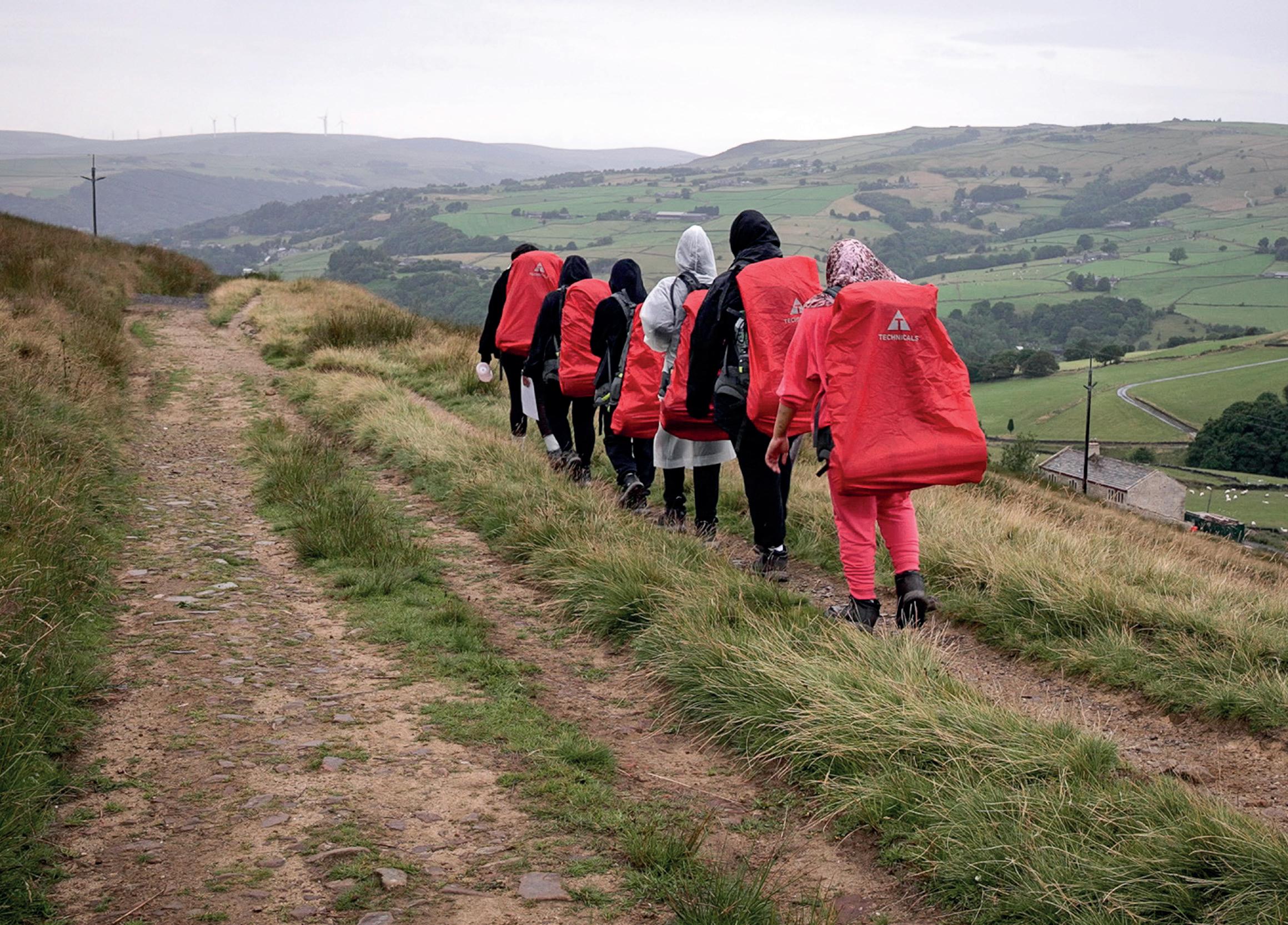
Making a difference to young people’s lives
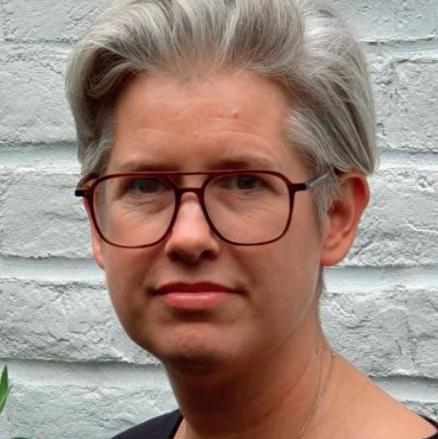
It’s a huge mission: to help young people build belief in themselves, take on challenges, follow their passions and discover unknown talents.
RUTH MARVEL, Chief Executive of The Duke of Edinburgh’s Award, explains more.
SINCE The Duke of Edinburgh’s Award (DofE) was founded in 1956, it has helped generations of young people to develop the skills, resilience and self-belief they need to overcome whatever life throws at them. Prince Philip himself described it as a ‘do-ityourself growing up kit’.
More than six decades later, our mission remains the same: to help all young people build lifelong belief in themselves, supporting them to take on their own challenges, follow their passions and discover talents they never knew they had. In 2022 to 23, more than 323,000 young people, the highest in our history, started their DofE journey – having fun, gaining skills to enhance their employability, and growing in independence and resilience. To date, more than seven million young people in the UK have completed their DofE, an Award recognised as a significant accomplishment.
The Duke of Edinburgh’s Award is open to any young person aged 14 to 24. Participants build their own programmes
– choosing activities and a cause to volunteer for in order to achieve a Bronze, Silver or Gold DofE Award. In 2022 to 23, DofE participants gave 3.5 million hours of volunteering to their local communities.
The DofE has evolved and expanded to reflect young people’s changing lives. In 1958, the Award – originally only open to young men – was extended to girls. In 1988, The Duke of Edinburgh’s International Award was established to bring the DofE to more young people globally, and this is now offered in 130 countries.
When I became chief executive, I was excited to join a charity that makes such a huge difference to young people’s lives. What I did not expect was to find myself steering us through an unprecedented pandemic followed by a cost-of-living crisis.
The disruption of the past few years has had a huge impact on young people’s mental health, education and job opportunities. But time and again,
Photo - Duke of Edinburgh’s Award (DofE) Jonny Sanders
young people have shown that – with the right tools – there are no limits to what they can achieve. Indeed, at times like this, the unique benefits of enrichment opportunities like the DofE come to the fore.
The DofE pushes young people to the next level, giving them skills and experiences they cannot learn in classrooms or from textbooks, and readying them to move from adolescence to adulthood. DofE programmes provide an opportunity to excel and achieve regardless of a young person’s interests or abilities. They choose their own challenges, follow their passions and discover new skills. It provides a chance to escape, have fun and make friends for life – while working towards a highly respected award.
There is clear evidence that co-curricular learning boosts academic achievement, improves wellbeing and employment opportunities. Employers see so-called ‘soft skills’ as essential – and participants tell us their DofE gives them transferable skills like teamwork, problem-solving, communication and time management, invaluable as they start their careers. This makes a DofE Award a highly respected and widely recognised mark of achievement that can help young people stand out and thrive during that challenging transition from education to employment.
Even more importantly, activities like the DofE broaden young people’s horizons. Young people step out of their comfort zone, learn through practical experience, give time to causes they care about, and meet people they might never have met otherwise. They prove to themselves they can achieve things they never thought possible.
Since I joined DofE, we have strived to make it more accessible and appealing. We now reach more marginalised young people through partnering with community organisations, prisons, and organisations supporting young people with additional needs.
Looking ahead, we are on track to reach one million young people across the UK
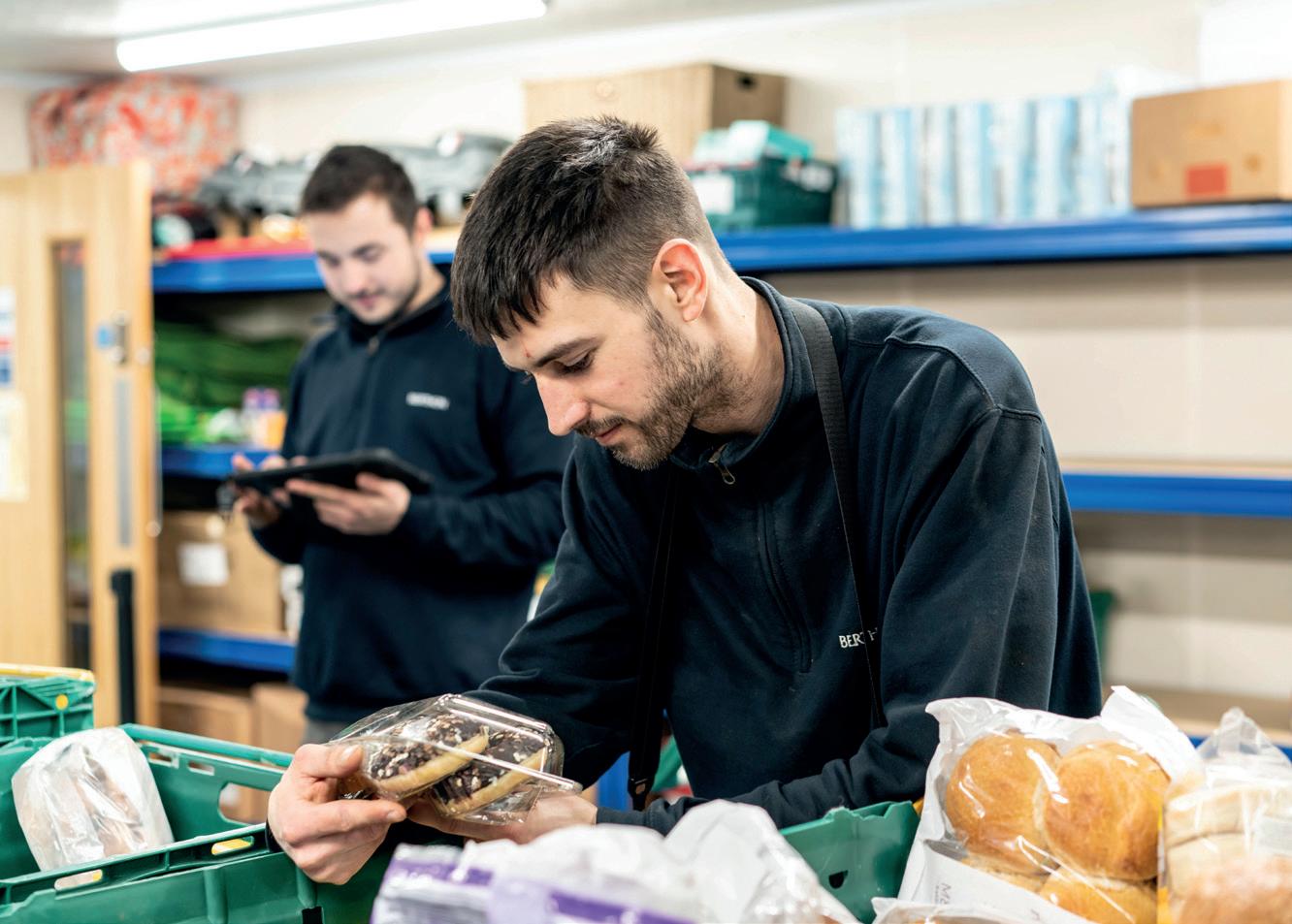

with the Award between 2021 and 2026. This is a fitting legacy for our Founder, and an ambition shared by HRH Prince Edward, The Duke of Edinburgh, who became our new Patron in 2023.
Those first Award achievers back in the 1950s could not have dreamt of doing e-sports or coding for their DofE – or updating their progress on smartphones with the DofE app, as happens today. But they would still recognise the heart of the DofE – a ‘do-it-yourself growingup kit’ to help young people get the most out of their lives, whoever they are and whatever they choose to do.
For more information, visit DofE.org/ run or email DofE.org/contact-us or call 01752 727400.
□ Ruth joined The Duke of Edinburgh’s Award in 2019. She was previously Acting CEO at Girlguiding and before that was Director of Strategy and Innovation at the disability charity Scope. Ruth is passionate about social justice and has a particular interest in advancing opportunities for young people, social innovation and the power of design thinking to solve social problems. Ruth is a Trustee of GoodGym, and a Fellow of the Clore Social Leadership Programme.
INDEPENDENT SCHOOLS Spring 2024 | 51
PhotoDuke of Edinburgh’s Award (DofE) Rachel Palmerfood bank
PhotoDuke of Edinburgh’s Award (DofE) Rachel Palmer
Full STEAM ahead

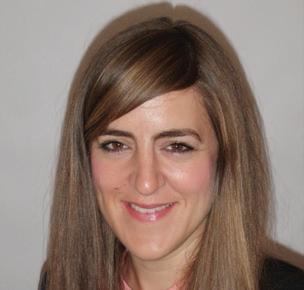
Adding ‘arts’ to the subject mix of science, technology, engineering and maths to create the STEAM acronym is a crucial development, according to VICTORIA ROSE, Director of Art at Dauntsey’s.
THE arts are often considered the poor relation to science, technology, engineering and maths subjects, which make up the vital STEM skills in a modern economy. However, there is growing recognition of a critical need for creative thinking and visual skills within the STEM mix, and adding ‘arts’ to create the new acronym STEAM is now preferred by educationalists.
Once art and design technology is blended in, a more imaginative and exciting picture emerges that has great potential to attract pupils who might otherwise disengage from STEM subjects. STEAM has already gathered significant momentum in the US, spearheaded by academics and students at the Rhode Island School of Design, who developed a
curriculum bringing the five STEAM subjects together. Their goal was to educate the world of academia about the importance of creative thinking and visual learning in the classroom. This is not a new concept – think of the Renaissance artist Leonardo da Vinci, a master not only of art but also of scientific invention. Art, science and engineering were also close and successful companions in the Industrial Revolution in Great Britain.
The UK has a world-class reputation for art and design going back centuries, and the Design Council argues that good design capability can boost competitiveness. But how many people have heard of British designer Sir Jonathan Ive? He was Apple’s chief design officer and designed the iPhone, iPad and MacBook. Without
his genius, Apple would essentially be an engineering company. Creativity is the magic ingredient that turned Apple into the multi-billion dollar business it is today. Other giants like Tesler, Apple and Google frequently recruit individuals with creative rather than technical backgrounds, hired for their design talent and problem-solving skills.
CREATIVITY AND IMAGINATION
Creativity and imagination can set you apart in a world where technology and artificial intelligence are taking over many roles. Indeed, few creative industry jobs are at risk of automation. The iterative process involved in studying creative subjects leads pupils to constantly question their work and want to improve or try new approaches. This is a valuable skill in the workplace – and in life.
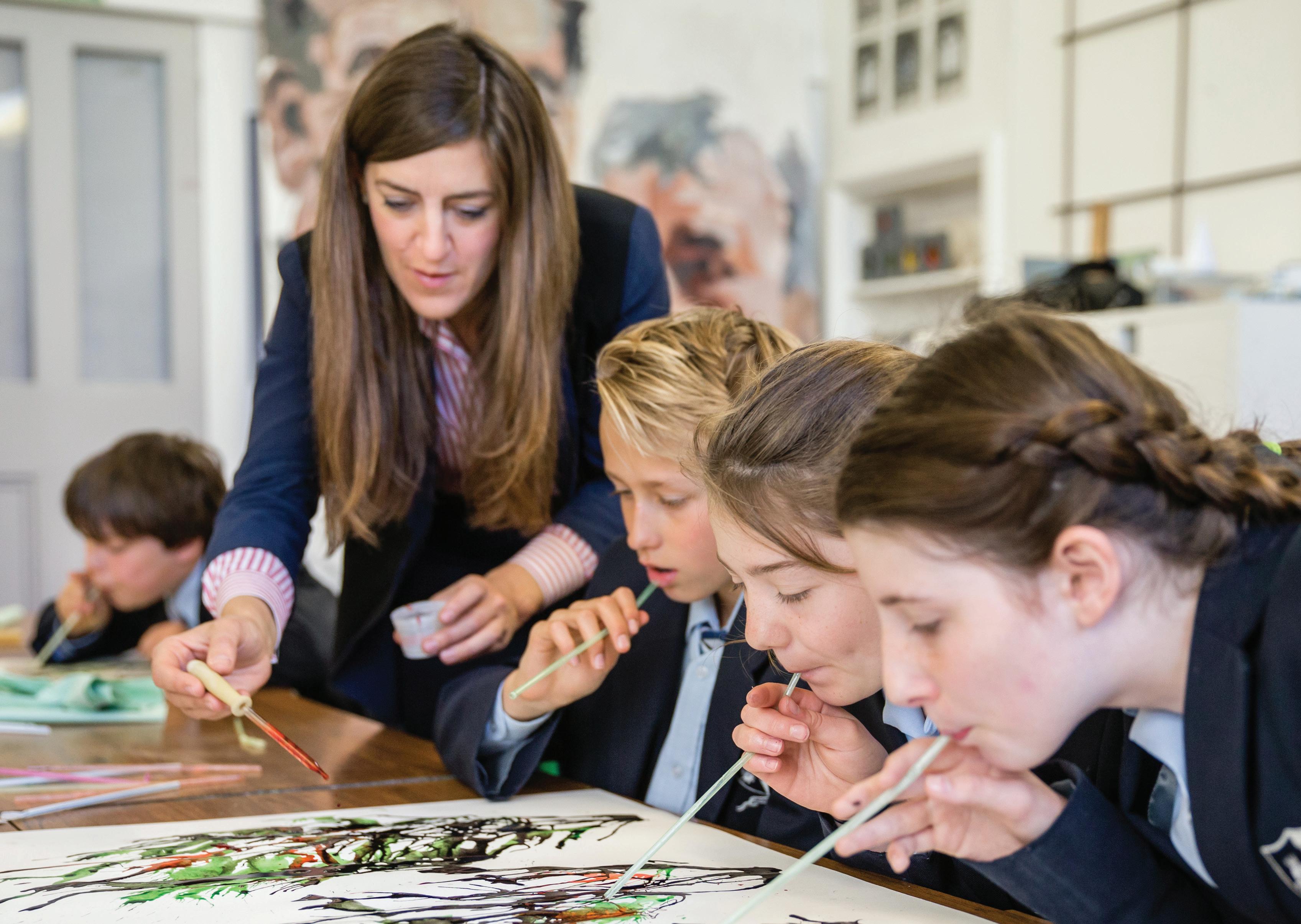
In its 2019 report, the Durham Commission on Creativity and Education agreed that creativity is the driver of economic growth, stating that our national economy has been boosted by creative industry success in the past ten years. Such success will only increase, it continued, if young people experience and develop skills in art, drama, music, design, craft and digital awareness – the foundation of the creative industries. The report concludes that creativity is one of the most sought-after skills for all employers.
Encouraging young people from as early an age as possible to engage in art and design, and to value these subjects as much as STEM subjects, is a critical first step in establishing a STEAM culture. This will develop pupils’ skills of problem-solving, independent thinking, planning, development, organisation, communication and presentation.
Many schools understand the opportunity, but there needs to be a greater investment in creativity in all schools, across the UK. In one of the most
watched TED talks of all time, the late educationalist Sir Ken Robinson argued that creativity is as important as literacy and should be given equal status. He defined creativity as ‘the process of having original ideas that have value’.
No longer should art A-level be seen as an easy option. Creative subjects encourage students to take thoughtful risks, engage in experiential learning, persist in problem solving and work closley with others to produce results. These are skills for the world of work beyond the classroom. These are skills for life.
□ Victoria Rose began her career as an art director in an advertising agency, winning awards for advertising effectiveness and creativity. She then began her own business as a freelance artist, illustrator and designer. She has exhibited at numerous venues and as a member of the Association of Illustrators she was also selected for the Best of British Illustration awards three years in a row. Victoria has also lectured on an Art and Design Foundation course. She uses this experience at Dauntsey’s to help pupils discover their artistic talents and understand how they are relevant to creative industry carers.stability in education. Barney aims to provide that at St Lawrence College, where all three of his children attend.
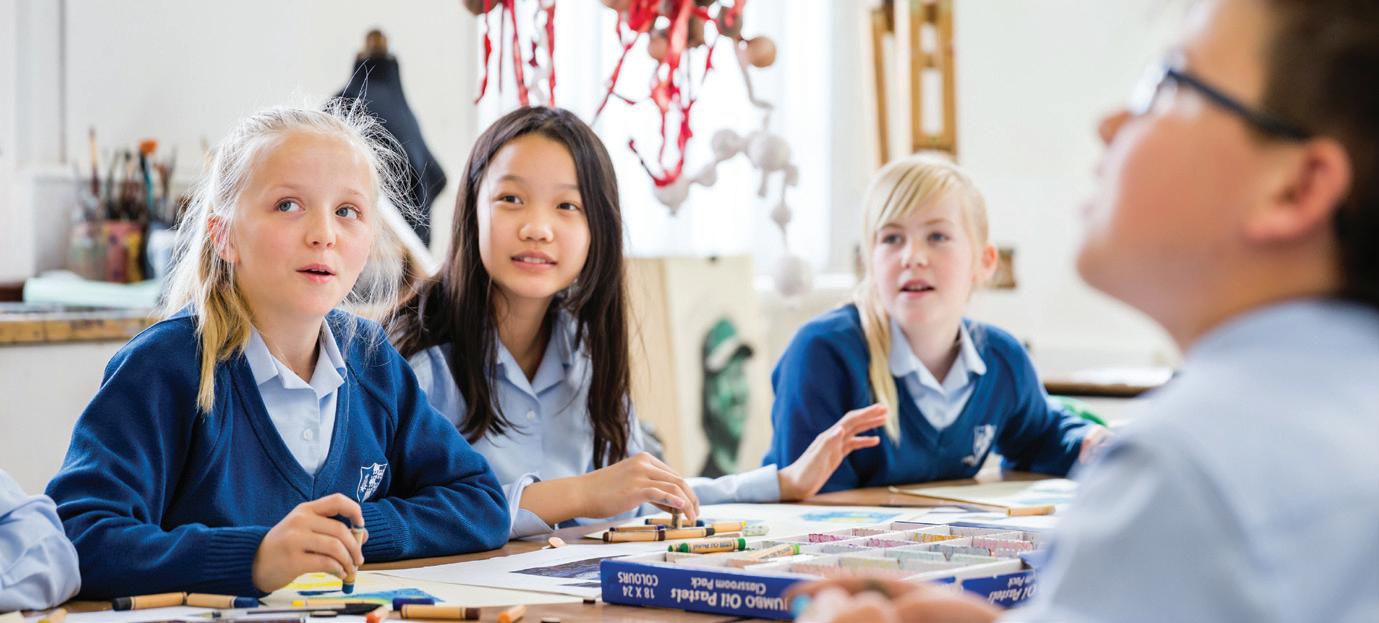
INDEPENDENT SCHOOLS Spring 2024 | 53
WILL MY CHILDREN BE HAPPY ?
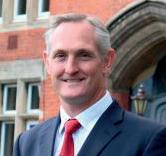
The best pastoral care is fundamental to academic achievement and success in life. BARNEY DURRANT, Head of St Lawrence College, explains why.
AS A head teacher with three children, a key reason in deciding where I want to teach is whether my children will thrive in that school. There are a whole host of factors that I look at when deciding which school to choose, but fundamentallyw it comes down to one thing – will my children be happy.
This does not mean that I don’t value academia, nor does it mean that I am not expecting rigour within a school. Ultimately though, while my children will thrive in a school when they are happy, this does not happen by chance. For schools to genuinely develop positive wellbeing amongst children, there needs to be a clearly thought-out programme of social and emotional learning that runs throughout the school.
Why is this so important? The explicit teaching of values, respect and compassion
are vital to developing empathetic learners with the soft skills necessary to thrive in the 21st century marketplace. Schools should not just be places where we learn subjects, but places to learn about our position within global society, to learn about different cultures and customs, and to understand differences. They provide opportunities for our pupils to develop tolerance and to understand how diverse our population is. With an explicit emphasis on wellbeing and positive relationships, our pupils develop emotional intelligence and understand the importance of being part of a community.
I want my children to grow up to become leaders in whatever field they choose, but to do that they will need to be collaborative, thoughtful, able to listen to others and resilient. These skills can be taught and developed if schools have the desire and commitment to teach them.
And with the amount of time we are able to spend with pupils, there is no better place to teach them than in boarding schools.
I obviously want my children to develop into good citizens, but there is also a direct correlation between positive wellbeing and academic achievement. A study by the Department for Education demonstrated that pupils with positive emotional wellbeing in Year 2 gained more than one additional term’s progress by the end of Year 6, when compared to those with neutral or negative wellbeing. Additionally, in the senior school, wellbeing can make a significant difference to GCSE and A-level results, as positive social and emotional wellbeing has been proven to boost attainment by between 11 and 17 per cent.
The opposite is also true. No school condones bullying, but those who do not have a genuine focus on pastoral
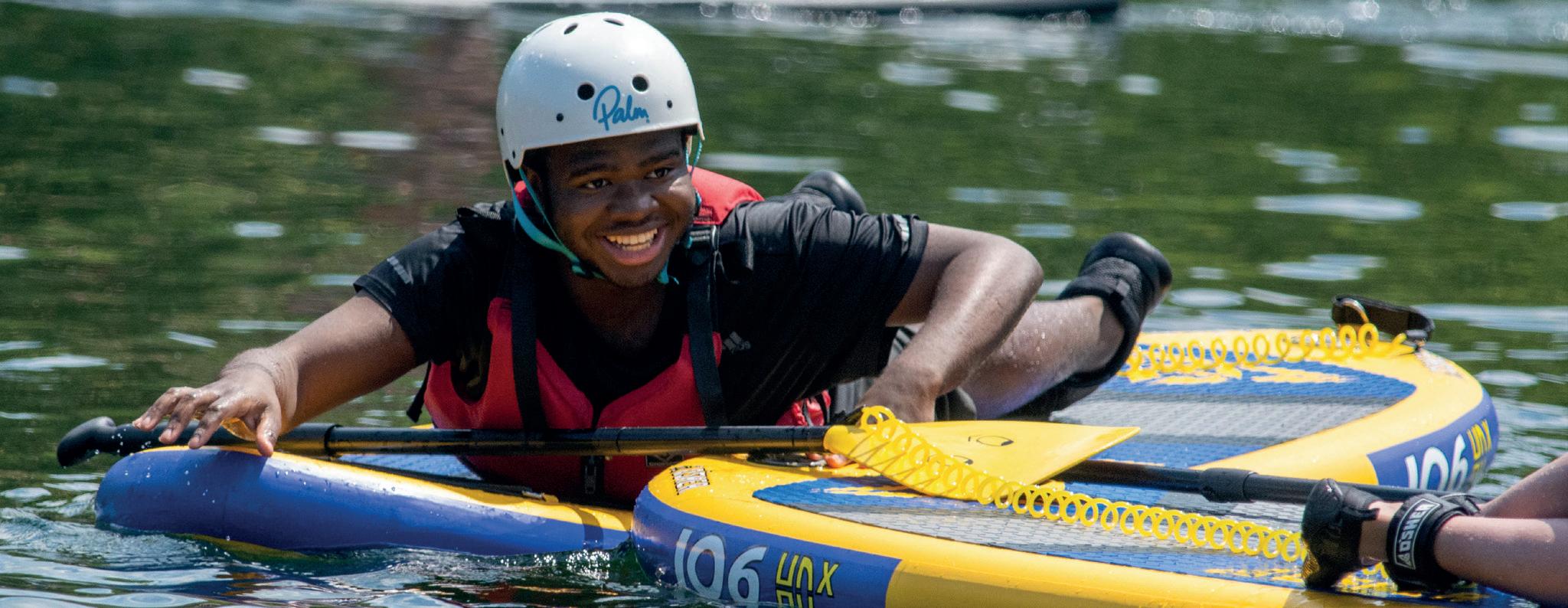
Photo with kind permission of St David’s College
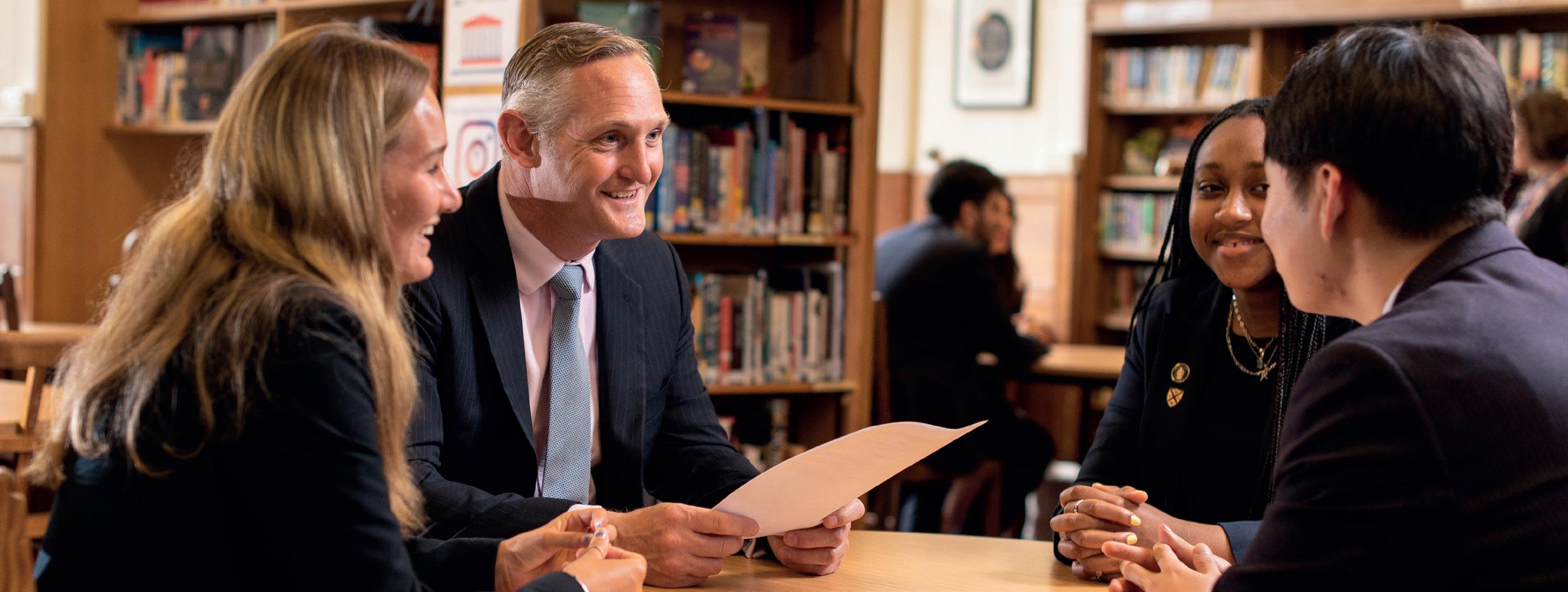
development and care are more likely to see bullying type behaviours amongst their pupils. Pupils bullied at the age of 14 score significantly lower GCSE grades when aged 16 than those who have positive school experiences. If a child experiences bullying, the probability of gaining five or more GCSE passes is reduced by 10 per cent, they attain five fewer A-level points on average, and their income is 2.3 per cent lower at 25.
If my children feel a sense of belonging towards the school and feel happy, settled and valued, their confidence, self-esteem and engagement will grow. They will try new things and are more likely to get involved in extra-curricular programmes. These not only develop essential soft skills vital in life, but similarly have a direct correlation with academic achievement – with pupils engaging in self-development activities (including sport and physical activity) achieving 10 to 20 per cent higher GCSEs.
Parents often talk about how they want an ‘academic school’ and that, whilst they are sure the pastoral side is important, they just want their children ‘to achieve results’. The reality is that the two are inextricably linked and schools that actively promote and develop wellbeing amongst their pupils will deliver better results.
A genuinely holistic education, therefore, with a strong emphasis on pastoral care and wellbeing, will develop children with greater emotional balance, fewer activity and attention problems, less troublesome behaviours and more positive friendships. It will develop give our children the best possible chance of achieving high performance in all that they do.
Everything else flows from developing happy, secure and confident children. That is what I want for my children, and what I aim to develop in my school.
□ Barney Durrant became Head of St Lawrence College in 2020, arriving from the new Harrow Hong Kong school, where he established pastoral structures and systems as Principal Deputy Head. Before that he was a Housemaster and Head of Geography at Stowe School. Both he and his wife started boarding aged of seven – as his parents worked in development and his wife’s father was in the Gurkhas. Having both travelled extensively when younger, they appreciate and fully understand the importance of stability in education. Barney aims to provide that at St Lawrence College, where all three of his children attend.

Spring 2024 | 55
INDEPENDENT SCHOOLS
Photo with kind permission of St David’s College
Choosing a football academy


For young footballers with big ambitions, it is crucial to find the right academy. GRANT HOLT, Director of Football at Langley School, reports.
ASPIRING footballers face many challenges in their school years: from training to time management, and from academic focus to performance and competition. A good school football academy offers a unique community where pupils can balance their sporting passion with their academic life.
When a school offers boarding as part of the football academy, it creates a homefrom-home. A network of staff provides every level of pastoral care and an understanding of the balancing act each pupil faces.
Rigorous studying alongside high-level sport can often result in sacrificing one or the other. This is where introducing training periods into the curriculum, as we have at Langley School, is an advantage. Pupils experience the best of both worlds, without fatigue or burn-out, with afterschool time for extra study, relaxation or other interests.
Families considering a school football academy should consider the facilities, opportunities on and off the pitch, and coaching staff credentials. Coaches should be experienced with young players, have a record of success and an emphasis on personalised training and advice. Football aside, parents should consider the curriculum, as GCSE and A levels can often be combined with BTECs or IB courses.
Training programmes are at the core of all football academies. Some focus on individual coaching, while others target team performance and competitions. Parents should aim to find what best suits their child’s goals.
CLUB LINKS
Many academies have links to professional clubs, allowing progression for the most successful pupils. There are no guarantees, of course, but an academy with pathways to the professional system can make all the difference.
The English Premier League is arguably the most revered in the world. And thanks to the boarding sector, international pupils are given access to this world-class football scene. At Langley Football Academy, we have players from Hong Kong, India, the Netherlands, Nigeria, South Africa and the USA. International and domestic boarders learn all about cultures they may not have experienced before.
This rich mix helps the boarding community build a family. And for boarders of all nationalities, the English football system is the ultimate goal.
□ Grant Holt played for 13 clubs in his professional career, including multiple seasons in the Premier League. He scored 157 goals, with his four years at Carrow Road between 2009 and 2013 being the most successful of his 19-year career. He scored 78 times in 168 appearances for Norwich City, helping the club gain back-toback promotions, and was awarded Player of the Season in three consecutive seasons. Grant has completed his UEFA A coaching licence and, alongside his role at Langley School, he works as a first team scout for West Ham United.
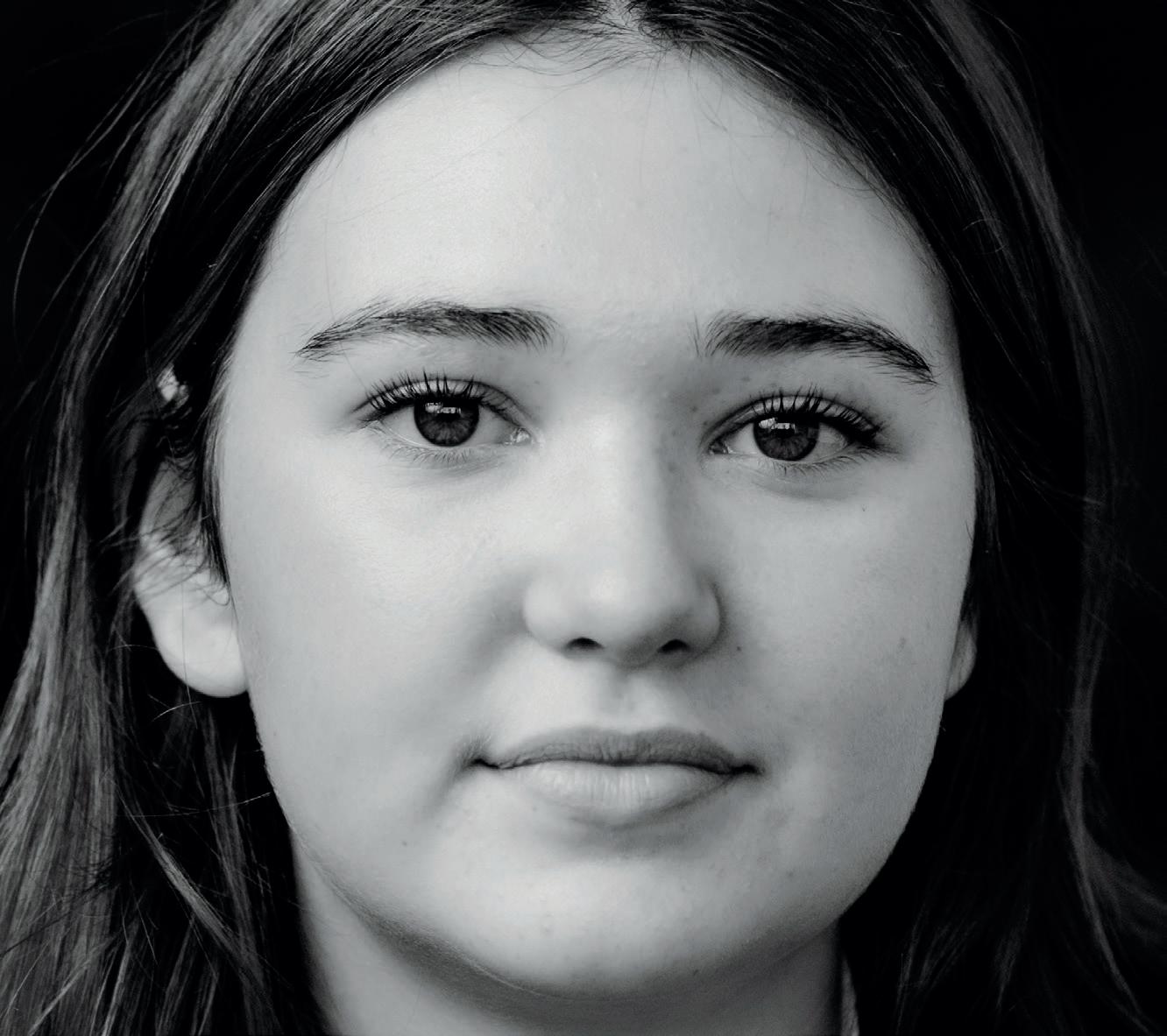

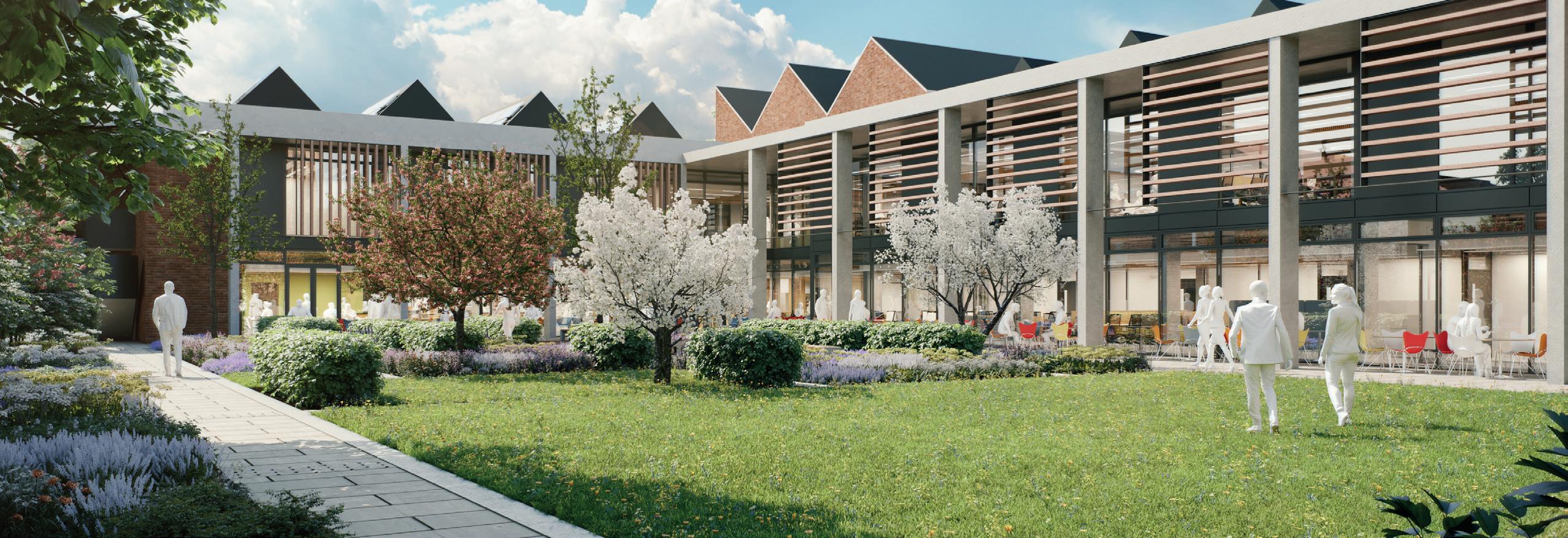




your remarkable Discover future State-of-the-Art Sixth Form Opening Academic Year 2024/2025 Girls ❘ Boys ❘ Sixth Flexi Boarding from Year 7 • Weekly and Full Boarding from Year 9 30 mins from London Euston 40 mins from London Heathrow

Supporting military families
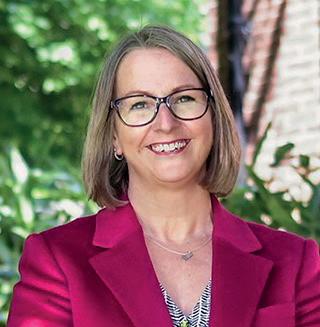
Deciding on the right school can be daunting. But for military families, the decision is even more difficult.
ANNE MEGDICHE, Director
of Admissions at Sherborne School, explains how boarding schools can help.
SERVING military families want the same strong academic and cocurricular opportunities as other parents. But they also need to know that a school understands their additional concerns and demands.
Pastoral support is always the number one priority when I ask serving military parents what is most important to them when choosing a school. This is closely followed by a solid, full boarding community with enough to keep their children occupied and that doesn’t ‘empty out’ at weekends. Children of military families have experiences unlike most others. They frequently move home and therefore experience regular disruption
to schooling and friendships. A serving parent may be absent for extended periods. As well as the emotional absence, they can miss key school events, an issue for both parents if the family home is not near the school.
Full boarding is usually high on the agenda for Service families, plus a full programme of weekend activities. However, schools must also appreciate that serving parents cannot always choose when they return from deployment, or when rest and recuperation time falls. Offering them weekend flexibility to spend time together helps the family readjust, strengthening school-parent and parentchild relationships.
PROVIDING SUPPORT
Although the military offer families support, a comforting presence at school is essential for pupils. Postings for military personnel and their families can be anywhere in the world, sometimes at relatively short notice – unsettling for children and parents. Some deployments are to hostile environments, with the media regularly highlighting dangers, and so children have additional worries about their parent’s safety. This sometimes causes emotions to overflow at unusual times, perhaps in class when discussing particular topics. Parents need reassurance that staff will be aware of and sensitive to their child’s individual needs, and always on hand to provide support.
Schools can support Service families in many other ways. For example, they may contact the parent left at home, for updates on their child’s wellbeing and to find out how they themselves are doing, checking their partner is in contact and safe. Parents, particularly with children of prep school age, will need assurance that in loco parentis really means that. Are teeth cleaning and hair brushing checks happening? Will someone notice if their child looks particularly tired? Will they suggest early nights?
Not all schools allow unlimited access to mobile phones, and younger children might not have them at all. But enabling parents to remain involved in their child’s education is key. Examples include virtual bedtime reading, online access to parentteacher meetings, ensuring phone calls across world time zones are possible, livestreaming or recording concerts and plays, and short, regular emails to parents with active photos of their child. All this helps to build strong parent-school relationships.
Some families choose schools with high numbers of military children. But parents I speak to more often do not want their children at a school which is simply an extension of ‘the patch’. They want to break away from the military world and have their children at a school with a strong boarding community, where they can make stable friendships for life. They value pupils being from a wide geography, both the UK and beyond.
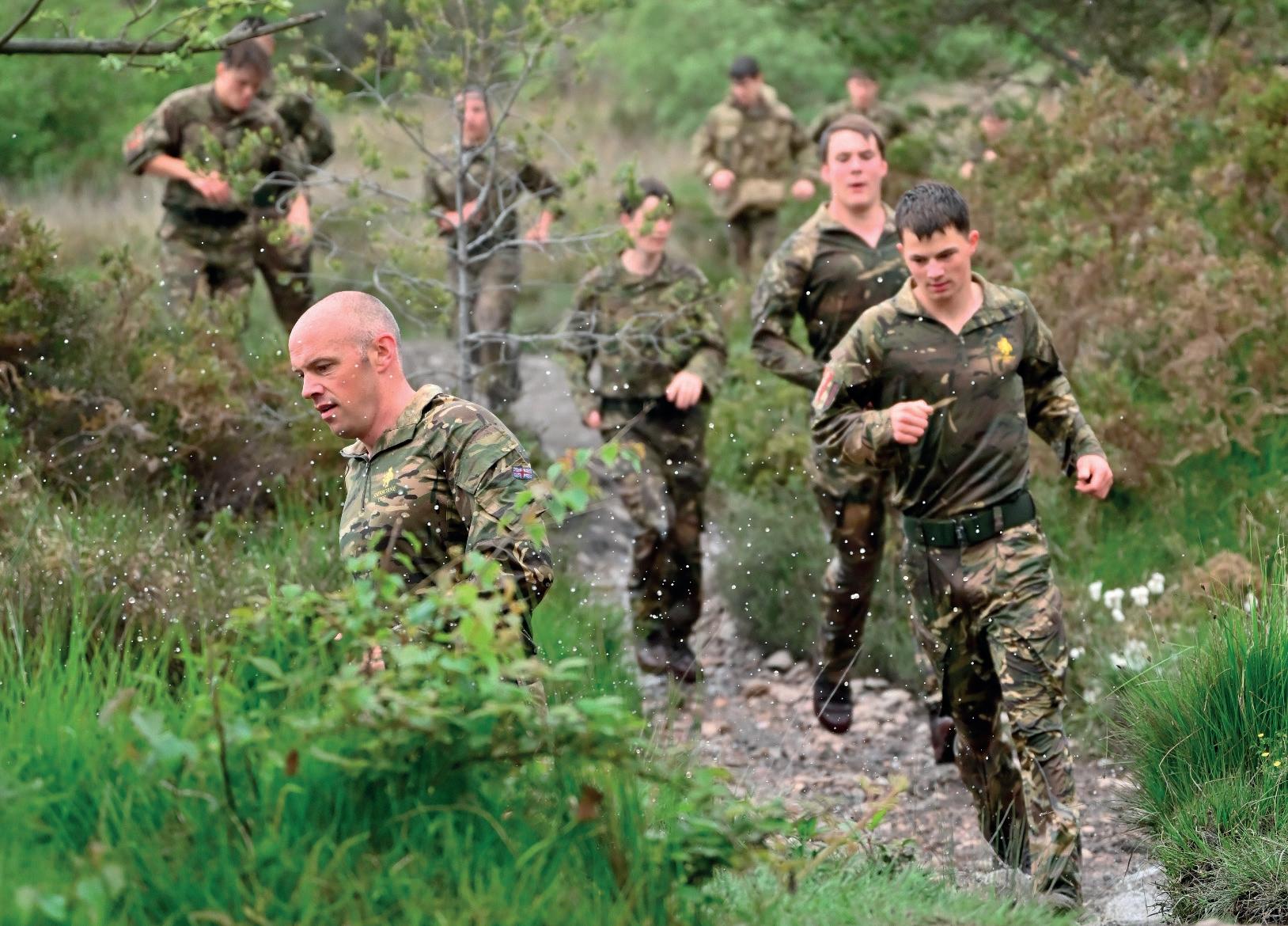
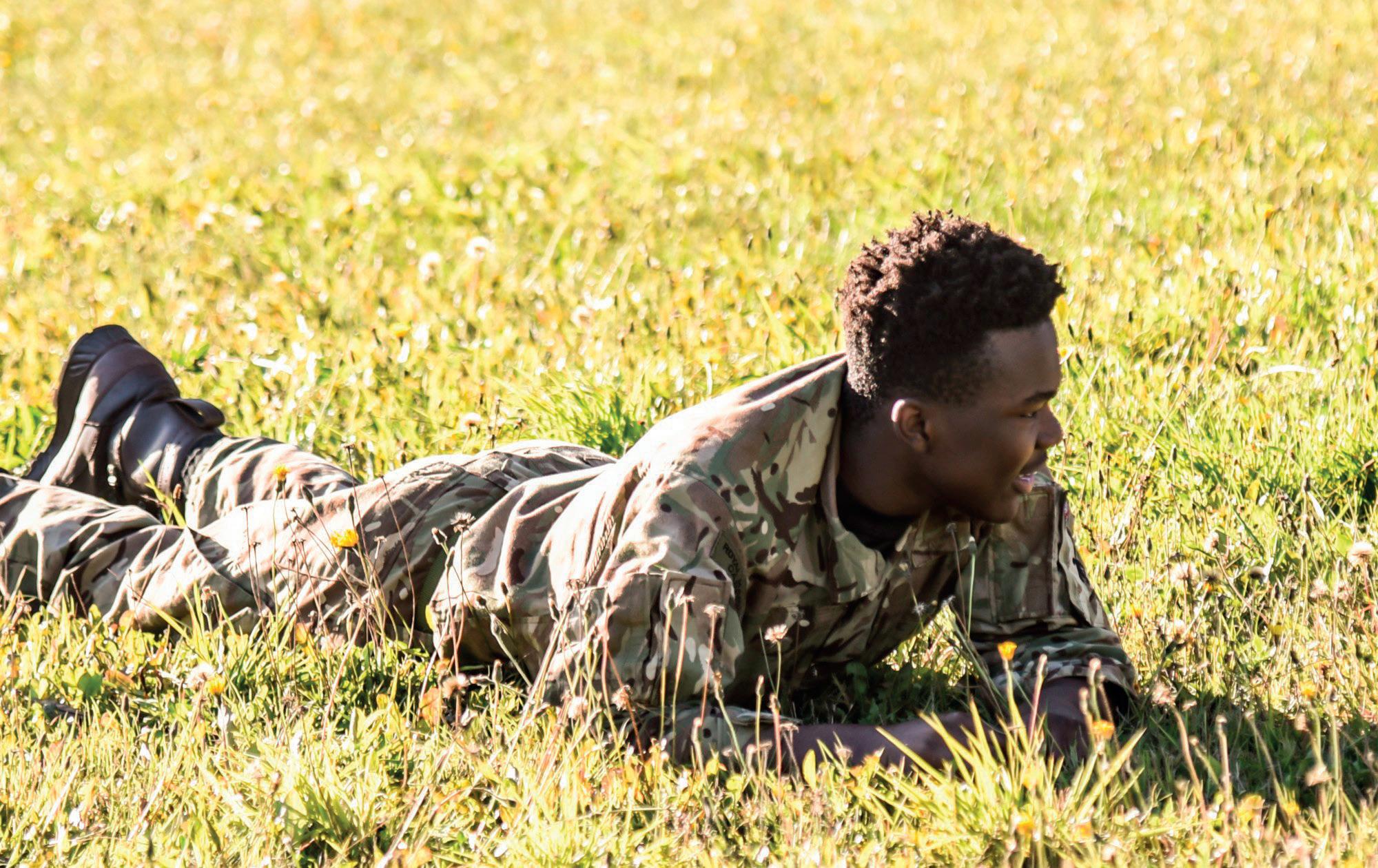
As an ex-servicewoman myself, supporting military families is something I am passionate about. Sherborne matches that passion. The husband of a valued member of my team is currently serving and some of our housemasters have experienced military life, either as former serving personnel or as children. We therefore appreciate the additional complexities of these pupils’ lives. We understand that the boys in our charge need to know we are there to support and reassure them when they feel anxious, without being singled out as ‘military kids’. Honest and open communication, plus acknowledging Service children’s additional concerns, are key to building trust and positive relationships with the boys and their parents.
What about the military children themselves? Quite simply, they enhance our school. Their personal experiences mean they tend to be seasoned boarders,
taking a move to senior school in their stride and supporting other pupils who might never been away from home before. They generally have a strong sense of purpose and loyalty, demonstrating great resilience. We feel privileged to have military children and their families at Sherborne and look forward to continuing to welcoming them to our full boarding community.
□ Anne Megdiche joined Sherborne School in 2022 and is responsible for the development and delivery of the pupil admissions strategy. Having worked in the independent education sector for many years, both at prep and senior schools, Anne has extensive experience in supporting prospective pupils and parents during the admissions journey. Anne’s military service was with the Royal Air Force where she served for five years as an Air Traffic Controller, both in the UK and in Germany.
Spring 2024 | 59 INDEPENDENT SCHOOLS
BSA Certified Agent and Guardian schemes
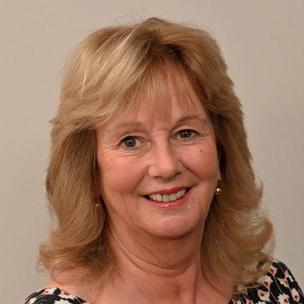
The BSA provides reassurance to schools and families that they are dealing with the best agents and guardians.
CAROLINE NIXON,
International and Membership Director of the BSA Group, reports.
FINDING a suitable educational agent can be a time-consuming process for parents, but it is vital. Even when parents have a good knowledge of the UK education system, this may not be up to date and it is almost impossible to have an informed overview of all the different schools available.
This is where the BSA Certified Agent and Guardian schemes can help. They only certify agents and guardians who have the highest standards of safeguarding, safer recruitment and training of staff and host families, knowledge of the UK education system and careful liaison with schools.
Being a BSA Certified Agent is sufficient evidence for UK Visas and Immigration (UKVI), so schools do not need to do their own due diligence on these agents. The scheme also acts as parents’ due diligence, ensuring agents demonstrate a clear and current understanding of:
• the UK education system
• different types of schools getting to know a child’s and family’s needs
• recommending schools that are right for individual children, and
• maintaining the highest standards of integrity in placing and supporting each child.
For international pupils, an educational guardian who provides high quality support and guidance is invaluable.
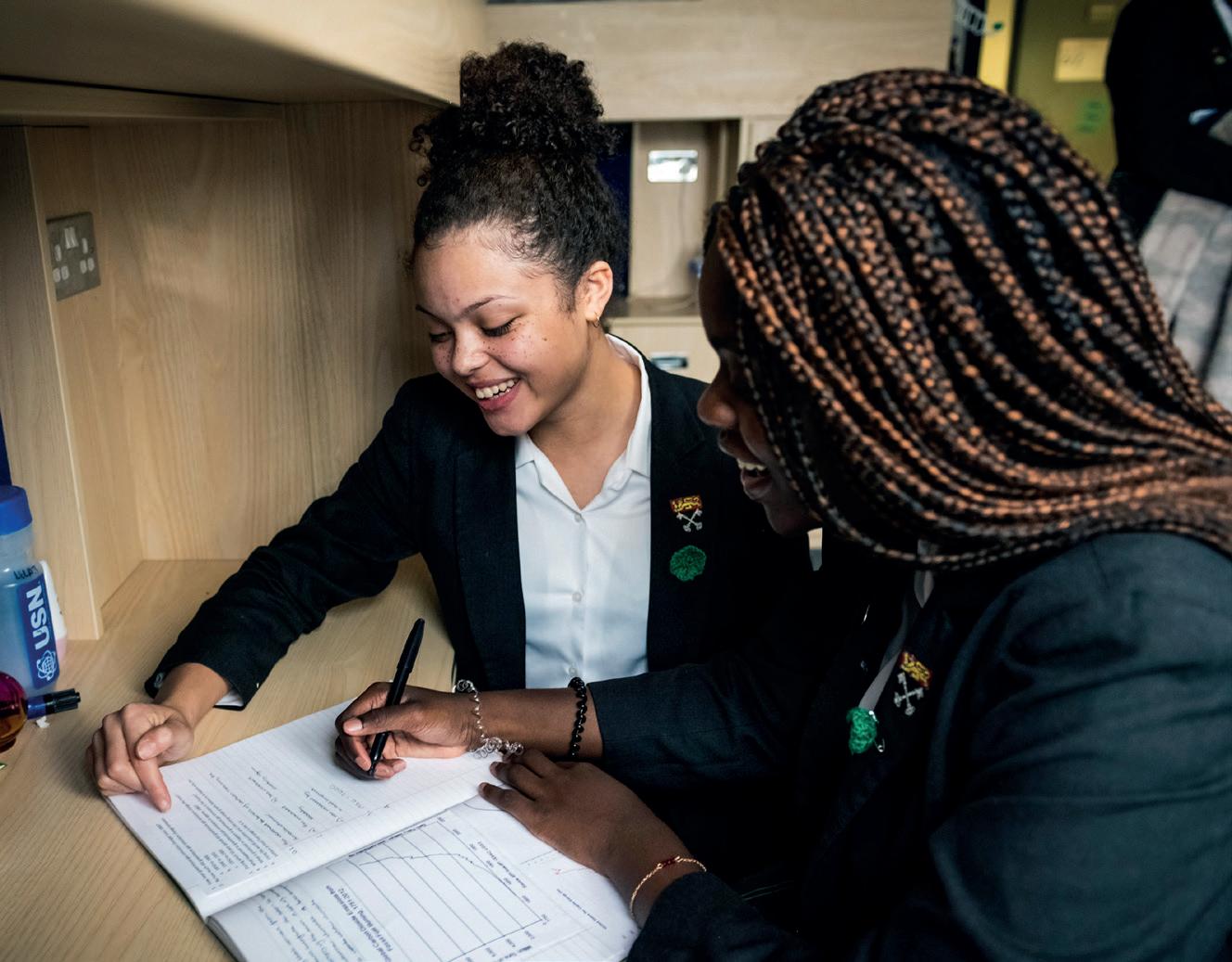
Pupils are much more likely to reach their full potential if they feel emotionally and physically safe, and there is good communication and relationships between them and the adults looking after them. This is a vital aspect of a successful school experience.
Parents can choose a BSA Certified Guardian with confidence, secure in the knowledge that the guardian has met the high standards required through a rigorous inspection process. Knowing the guardian is committed to providing a high-quality service can really make a difference to their child’s school journey.
For more information about the BSA
Certified Agent scheme and a full list of Certified Agents, visit https://www. boarding.org.uk/bsa-initiatives/bsacertified-agent-scheme/.
For more information about the BSA
Certified Guardian scheme and a full list of Certified Guardians, visit https://www. boarding.org.uk/bsa-initiatives/bsacertified-guardian-scheme/
Lists of Certified Agents and Guardians are also on the opposite page.
BSA certified guardians BSA certified agents
Abby Plumb Education Guardian Service www.abbyplumbeducationguardian.com
Academic Families www.academicfamilies.com
Access UK Education www.access-edu.co.uk
Alderwood International (provisional) www.alderwood.io
Alina Yegorova (provisional)
Alpha Guardians www.alphaguardians.co.uk
Anglo International Student Centre www.sino-uk.cn
Amber Education www.amberedu.co.uk
Belgravia Guardians www.bg-london.com
Berkeley Guardians www.berkeleyguardians.com
Boarding Schools Ireland (provisional) www.boardingschoolsireland.com
Cambridge Guardian Angels www.cambridge-guardian-angels.com
Carfax Guardians www.carfax-guardians.com
Churchhill Education Services www.churchilleducationuk.com
Clarendon International Education www.clarendon.uk.com
College Guardians www.collegeguardians.co.uk
Connexcel www.connexcel.co.uk/guardianship
Cotswold Guardians www.cotswold-guardians.co.uk
Convoy Education www.convoyedu.com/h-col-116.html
Crown Guardians https://crownguardians.co.uk
East Coast Guardians www.eastcoastguardians.co.uk
Eduexcellence Consulting Services (Provisional) www.eduexcellence.uk
Edinburgh Guardian Angels www.edinburghguardianangels.co.uk
Education and Exchange in Europe (provisional) www.edex.ie
Elite Anglo-Chinese Services www.eliteacs.com
English Country Guardians www.english-country-guardians.co.uk
Gabbitas www.gabbitas.com
Genesis Education Planning www.en.genesiseducation.co.uk
Great British Guardians www.gbguardians.com
Guardians International Support www.gis-uk.com
Guardians UK www.guardiansuk.com
High Schools International www.hsinet.org
Host-Link www.hostlinkuk.com
Hyde Global Education www.hydeglobaleducation.com
International Student Guardianship Ireland (ISGI) www.guardianshipireland.ie
IQ Consultancy (provisional) www.iqconsultancy.ru
JD Consultancy www.jdconsultant.co.uk
Overseas Personal Development Services www.opds.co.uk
Oxbridge Guardians oxbridgeguardians.co.uk
Prestige Guardians (provisional) www.prestige-guardians.co.uk
Redoor Education (provisional) www.redoorguardianship.co.uk
Regent Guardians www.regentguardians.com
Robin Education www.robineduuk.com
Ruyang Guardian Service https://ruyang.co.uk
RV Sport and Education (provisional) https://www.rvgs.golf/education
Scottish Overseas Guardianship Association (SOGA) (provisional) www.scottishoverseasguardianship.co.uk
See World www.seeworldltd.com
St George’s Guardians www.stg-guardians.co.uk
Study Links www.studylinks.com
Test Education Centre testeducationcentre.com
The Guardian Family Network www.guardianfamilynetwork.com
Trusted Guardianship www.trustedguardianship.co.uk
UK Guardians www.ukguardians.co.uk
UKGuardianship www.ukguardianship.com
UK Tuition www.uk-tuition.com
UM Education www.umeducation.com
Ying Lang Guardian, Glamour Edu Ltd www.glamouredu.com
@school-in-UK www.school-in-uk.com
Abby Plumb Education Guardian Service www.abbyplumbeducationguardian.com
Academic Asia China Ltd www.academic-asia.co.uk
Academic Families www.academicfamilies.com
Akademis
www.akademis-internatsberatung.de/internatengland
Anglo International Student Centre www.sino-uk.org/school
ApplyEasyPro www.aepcn.cn
Aster Tuition https://astertuition.com
Aston Education www.aston.edu.hk
Baltic Council for International Education www.balticcouncil.org/en/sakums
Barbara Glasmacher Internationale Schulberatung www.glasmacher.de
Be Education https://en.be.co/
BeGo Education www.begoedu.com/#page2
Bespoke Education
https://bespoke-education.com/for-students Better School! Internatsberatung www.betterschool.de
BOSSS UK www.bosssuk.co.uk
Brighteru brighteru.co.uk
Britannia StudyLink www.britannia-study.com
British International Consulting Ltd www.ukbcic.com.cn
British United Education Services www.britishunited.net/en/about-us
Carfax Consultants www.carfax-consultants.com
Chamberlain Educational Services www.chamberlain-edu.com/traditional/index.
html
Cherry Education Consultancy www.ukcec.com
Connexcel www.connexcel.co.uk
Convoy Education www.convoyedu.com/h-col-116.html
Crest Education www.cresteducation.co.uk
Dickinson School Consulting www.dickinsonboardingschools.com
EduExcellence Consulting Services www.eduexcellence.uk
Edugo Guardian www.edugoguardian.com
Edukatus www.edukatus.co.uk
Esta Educational Consultancy www.esta.uk.net
Future Perfect futureperfect.at
Genesis Education Planning www.en.genesiseducation.co.uk
Global Education Tumulka (GET) www.sprachreise.com/schulberatung
Golden Apple Tree www.ukjpg.com
HKIES Overseas Education Centre www.hkies.com.hk
i-Learner, Nebula Group Ltd www.i-learner.edu.hk
Intake Education
intake.education
Intergreat Education Group www.intergreat.com
IVYU Education www.ivyuedu.com
IQ ITEC www.itecgroup.ru/partners
IQ Consultancy www.iqconsultancy.ru
J3 Group Ltd www.j3education.com
JD Consultancy www.jdconsultant.co.uk
Kulturwerke Deutschland Sprachreisen https://www.kulturwerke-deutschland.de
Leo Education https://www.leoedu.co.uk/ Mark Brooks Education www.markbrookseducation.com
Meridian Group www.meridian.lv/sakums
Orpington Education Group http://orpingtoneducation.com/ Overseas Personal Development Services www.opds.co.uk
Oxbridgecrew Education http://orpingtoneducation.com/ Panoba Ltd www.panoba.co.uk
Petra Heinemann Internationale Schulberatung heinemann-schulberatung.de
Prime UK Education www.primeukedu.co.uk
QED Education Group www.qededucationgroup.com
Rise Smart Overseas Education Centre www.risesmart.com.hk
RV Sport and Education
https://www.rvgs.golf/education
Sarah Jochums Internatsberatung www.sarah-jochums.de
School Britannia www.schoolbritannia.fr
Sino-UK Arts & Cultural Bridge www.sino-uk.org
Test Education Centre testeducationcentre.com
The Independent Education Consultants www.independenteducationconsultants.co.uk
UK Academics & Guardianship (UKAG) www.ukag.co.uk/welcom-to-ukag
UK Education Guide Ltd www.ukeducationguide.com
UK Tuition and Services www.uk-tuition.com
UM Education www.umeducation.com
Unibridge International Education http://en.ubedu.com.cn
Watanabe Office www.woffice.jp
INDEPENDENT SCHOOLS Spring 2024 | 61
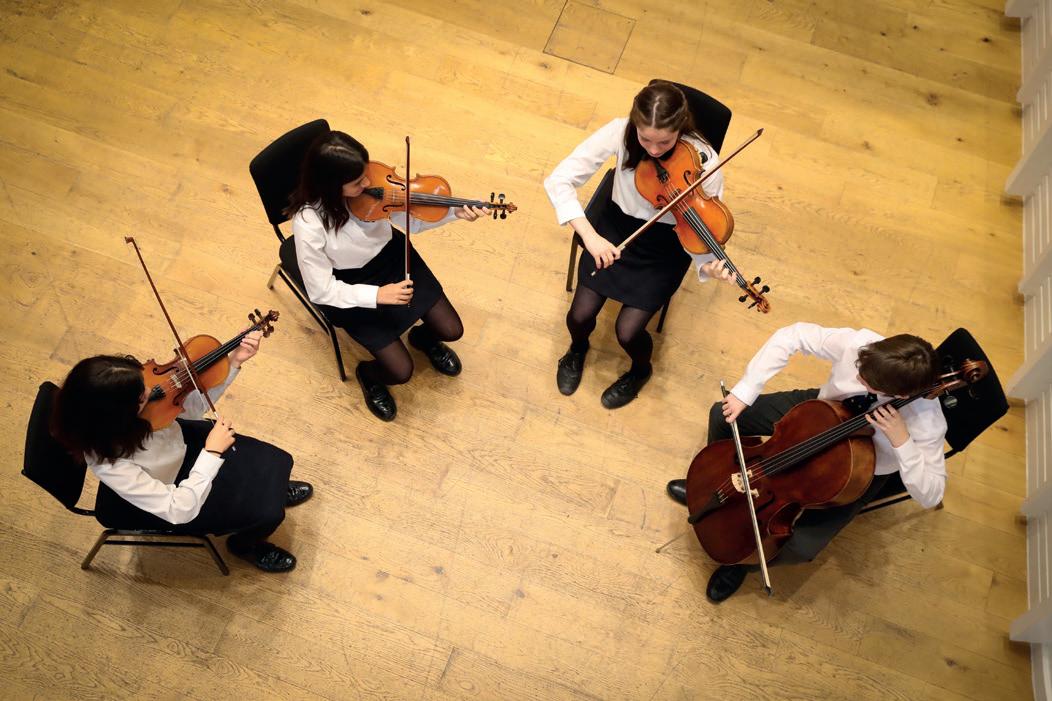
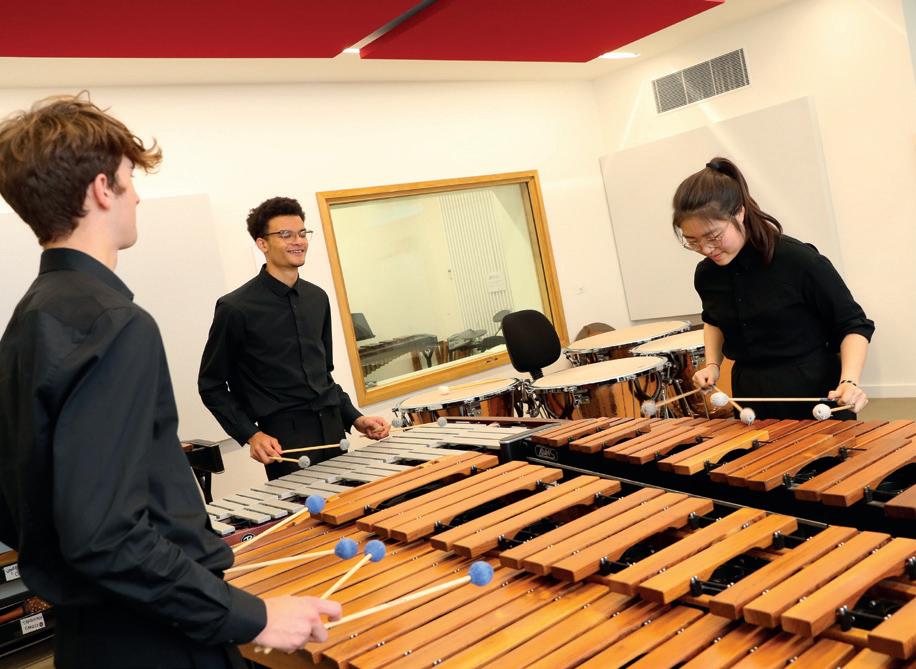
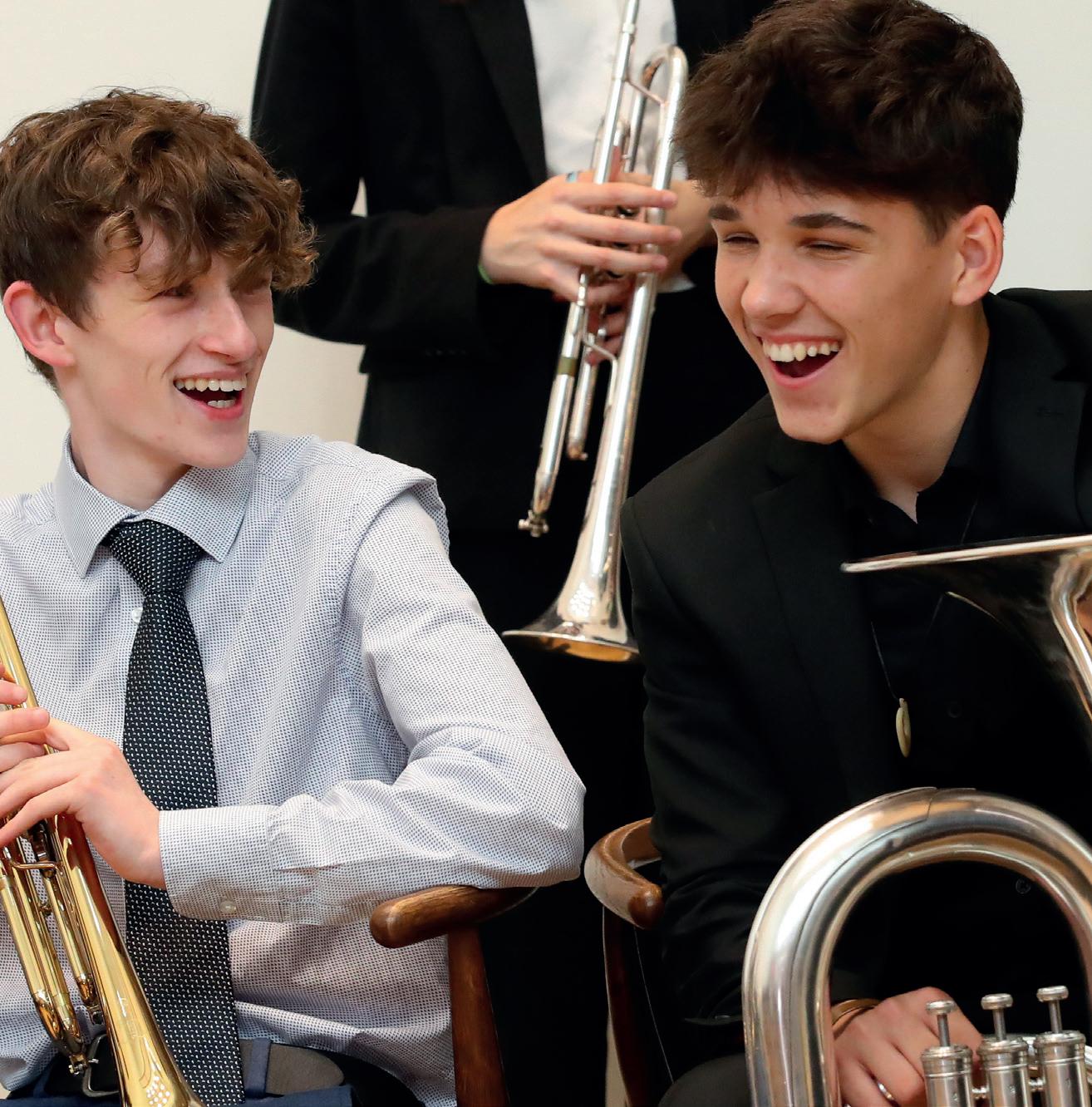
How boarding helps music practice
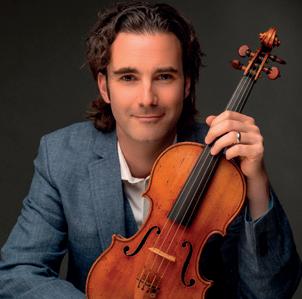
Working in groups can be especially valuable in a boarding environment where musicians quickly become comfortable in each other’s company.
ALEX LAING, Director
of Music at Wells Cathedral School, reports.
MUSIC practice can sometimes feel like a chore, yet another task in a busy day. It can too easily become mundane, and one can slip into routines that lack imagination, thought or care. Practice can become a lonely experience, with pupils trying to remember and work on individualised bespoke plans devised by their teacher. However, the boarding school environment can provide the perfect antidote, creating a healthy, collegial approach to practice where everyone helps.
In a boarding school, music practice can happen first thing in the morning, during breaks or after school. And there are many opportunities for collective
endeavour, pupils working together to achieve common or different goals. Creating this sense of togetherness requires nurturing. The goal is not just to improve pupils’ playing but to develop participants’ critical listening and thinking.
KEEPING POSITIVE
A typical performance class will feature three or four pupils performing to peers, so often more stressful than any other audience. The class needs careful handling as it is crucial to make it a positive experience. I ask pupils to highlight aspects they appreciated – musical, emotional or technical. Everyone must notice something good and express it clearly, making the atmosphere collegial and supportive. Performers tend to focus
on things they could have played better, so it is encouraging to hear what peers felt went well.
Pupils may, of course, voice opinions you disagree with or which are not expressed clearly. It is important not to undermine them. If a pupil has a genuine reaction or well thought out idea, it cannot be dismissed. I do, however, like to be at least as demanding of the audience, making the discussion an open one. I may question an audience opinion, but always positively, keeping the whole room focused. A shared view arrived at via discussion then becomes reinforcing for all.
Only after the class has explored positives do we turn to aspects the audience felt
MUSIC IN BOARDING
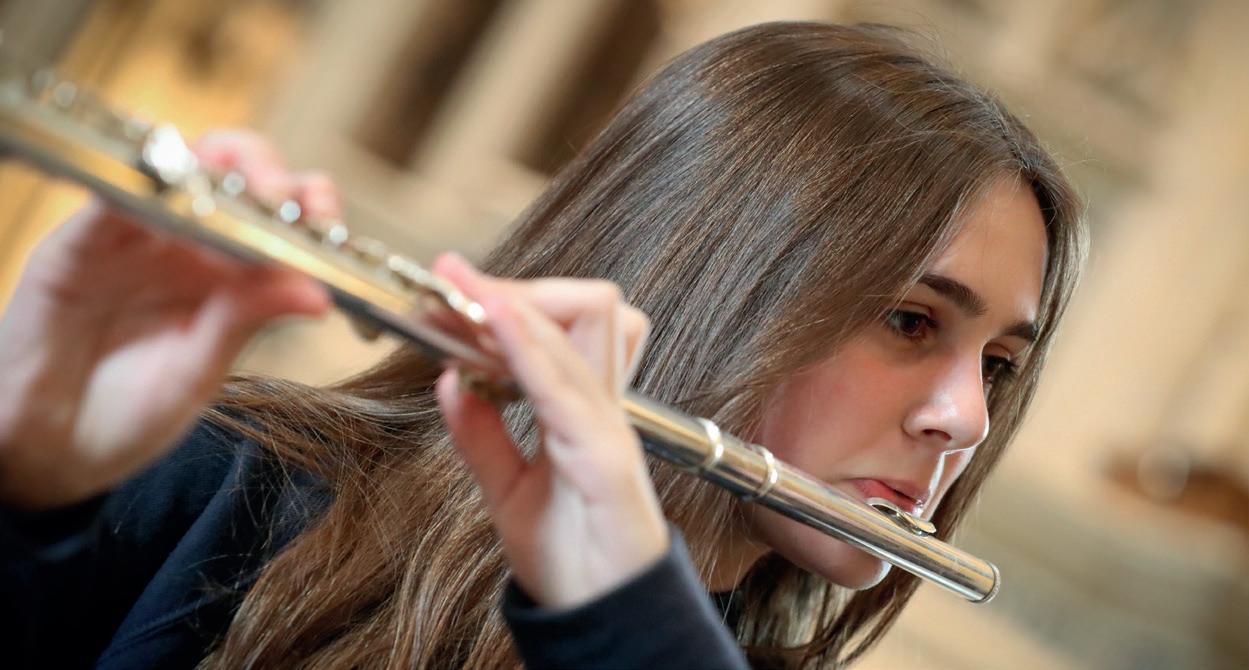
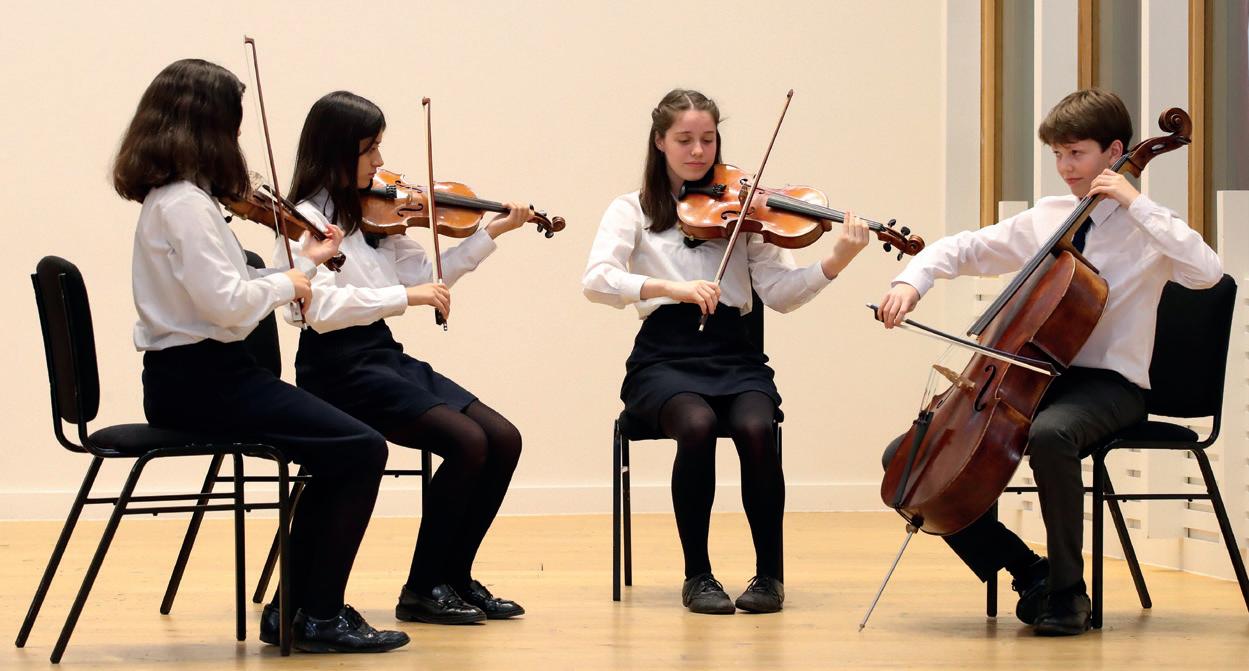
needed work, which also needs careful handling. As performers, we tend to be our own worst critics, so any criticism must be constructive. I ban words like ‘bad’, ‘awful’, ‘screeching’ and ‘painful’. The audience must try to make points constructively with phrases like: “I think it may have worked better off the string” or, “What was your idea in the middle section? Is there a way to put it across more convincingly?”
This leads to group discussions and the absence of direct criticism means the performer is more comfortable addressing issues. Technical criticism always leads to interesting discussions as we all have aspects we struggle with, often blocking how we communicate the message of our music. When pupils recognise technical deficiencies in others, it is often because they have had the same weakness themselves. There is empathy with the performer and their advice can often come across better than a teacher’s.
With new ideas flying around, it is important for performers to have the space to try them out. I try to identify suggestions that are the quickest to implement. For example, I suggest the player starts on a simple technical matter, such as changing the part of a string player’s bow being used, releasing the weight in a pianist’s arms or trying out a
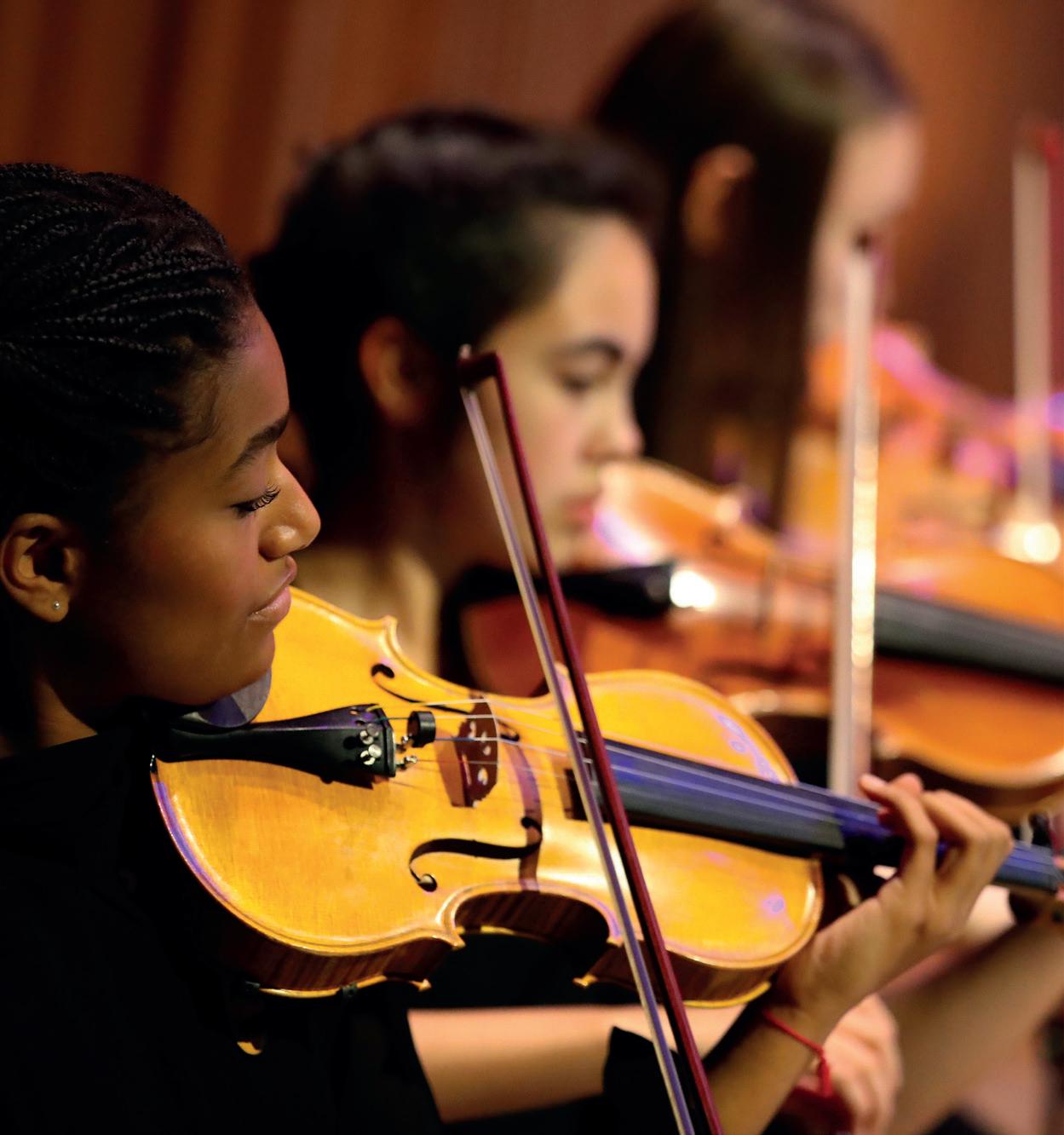
new sound or character. The performance then becomes like a public lesson, where everyone acknowledges development. The camaraderie flowing from this type of class is striking, especially valuable in a boarding environment where musicians quickly become comfortable in each other’s company. The best players acknowledge that those with less experience may have unique observations. Indeed, the most pertinent points are often made by less able players, who discover they are superior observers. The pupils are happy to ask each other for advice outside classes during their own time, trying each other’s studies and pieces, talking and laughing. This gives pupils an increased ownership of their improvement. In this way, not only does practice becoming self-teaching but, in group work, practice becomes peerto-peer teaching. If you can explain an aspect of technique or music to someone else, then you truly understand it for yourself.
□ Alex is a violinist, conductor, teacher, adjudicator, presenter and writer. He coaches musicians of all ages and stages, from beginners to professionals and adult learners with the Benedetti Foundation. He is Director of Music at Wells Cathedral School, one of the few specialist music schools in the UK.
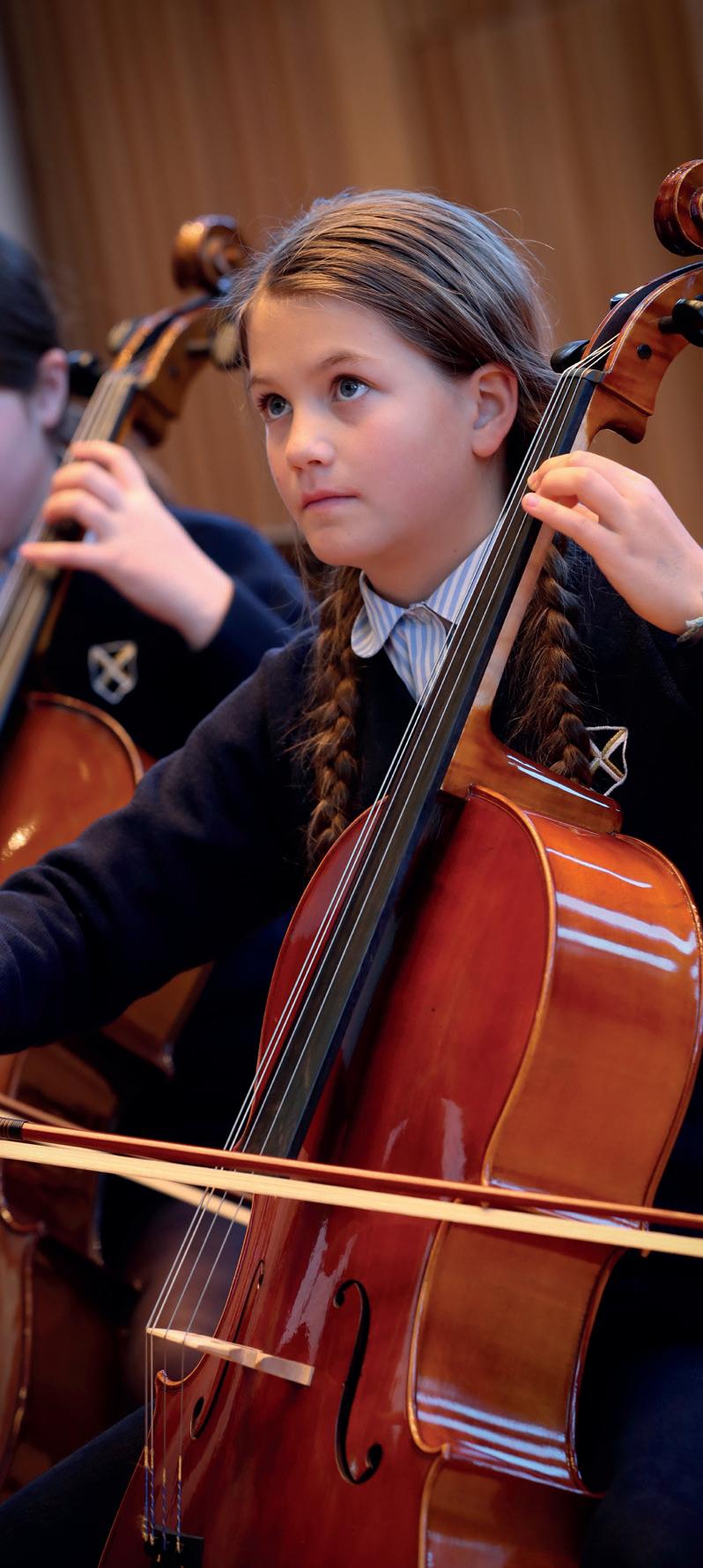
MUSIC IN BOARDING Spring 2024 | 63
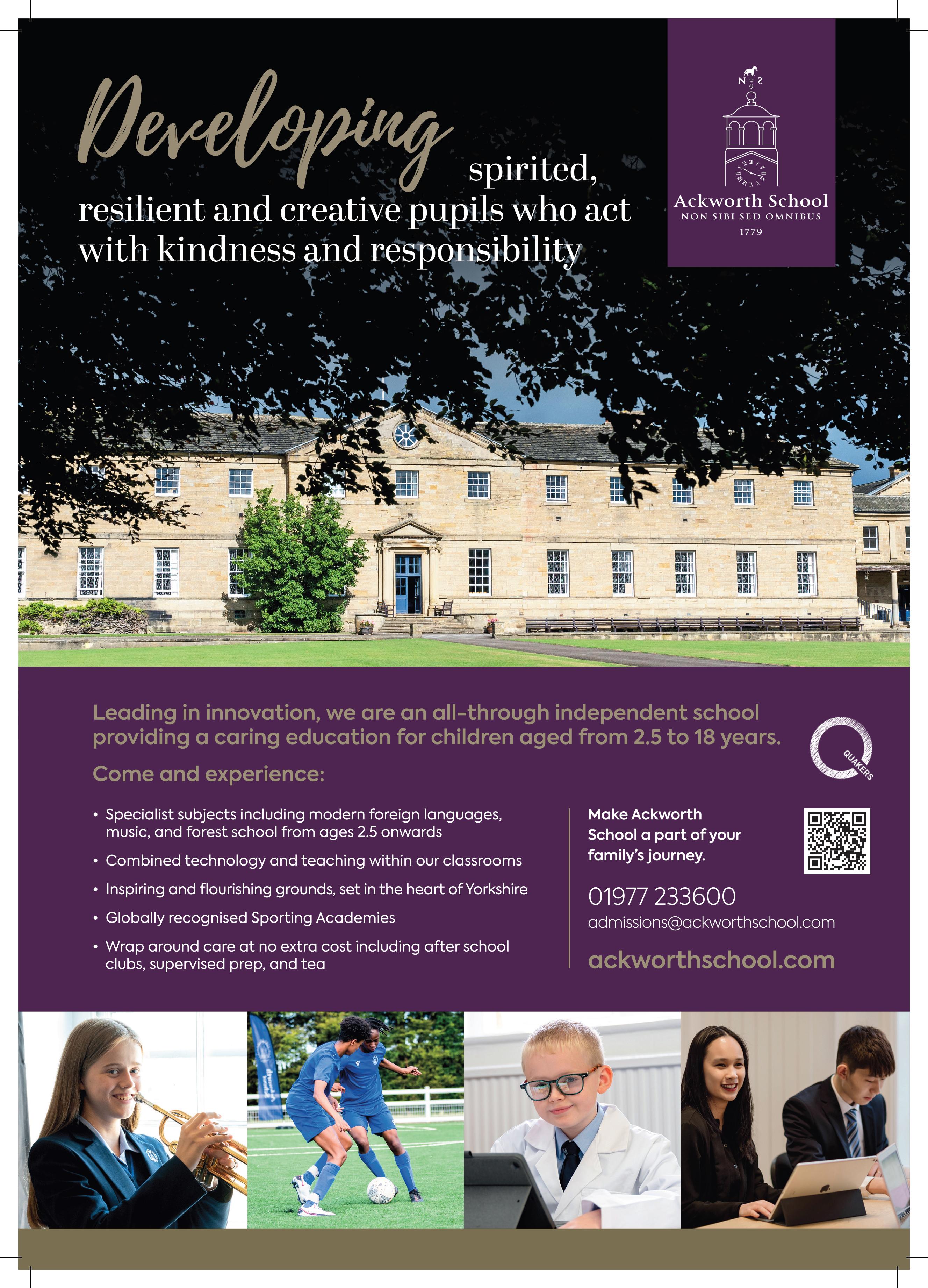
Specialist music schools
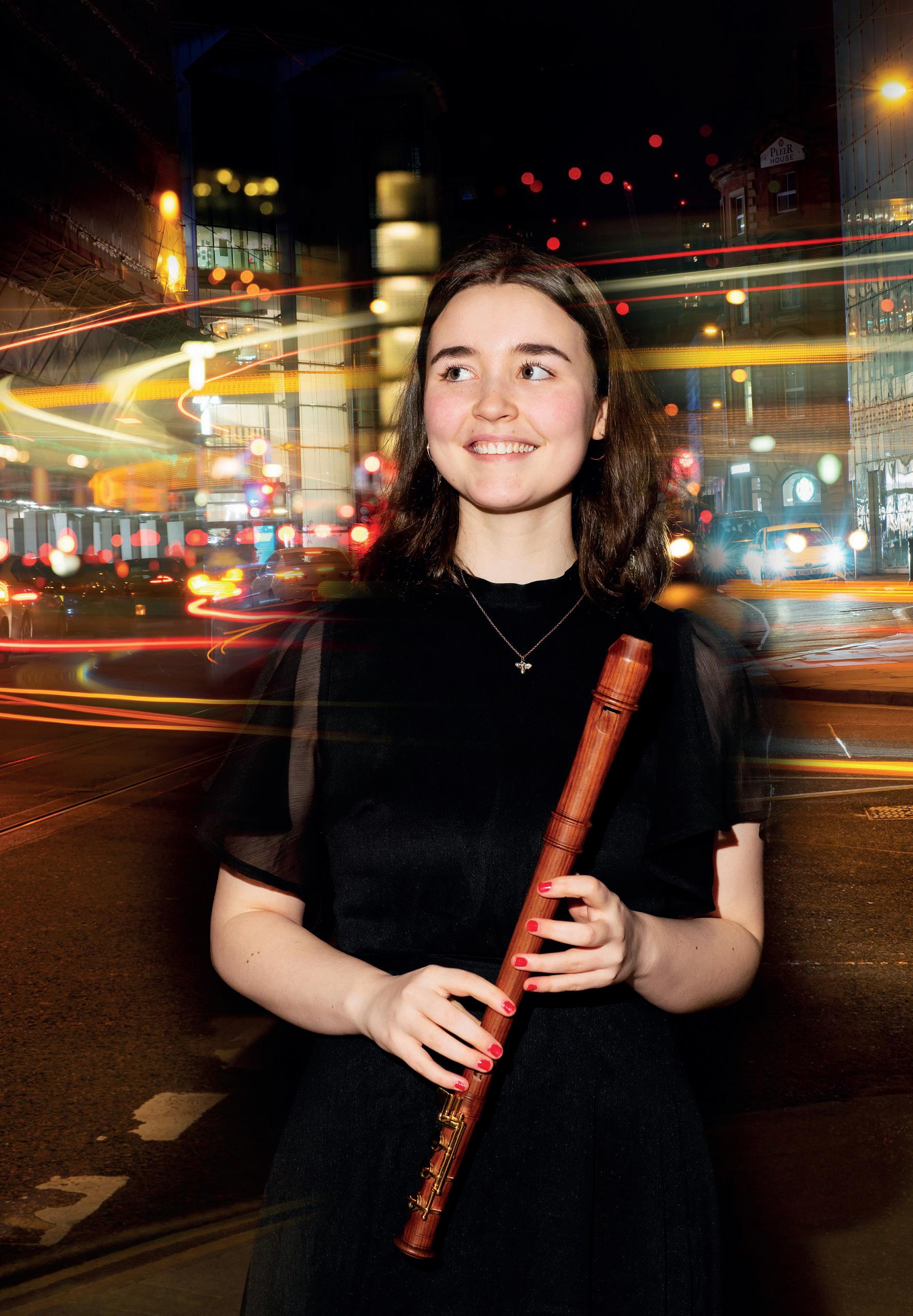

A shared sense of purpose and passion makes it natural for pupils at specialist music schools to meet and form friendships, be themselves and thrive. NICOLA SMITH and TOM REDMOND,
Joint Principals at Chetham’s School of Music, explain
THE benefits of boarding have been written about plenty of times: there’s no commute or effort required to go home and do homework, exercise or eat meals. All facilities are on site and available to students, who receive outstanding care from dedicated and highly trained house teams, medical staff and tutors. But what’s distinct about boarding at a specialist music school?
With a shared sense of purpose and passion, it’s easy and natural for pupils at specialist music schools to meet and form friendships, and everyone has a sense of belonging. This helps to create a home away from home where pupils can be themselves and thrive. The wonder of music is that it can have a profound effect on quality of life. Singing, playing or listening to
more.
music is shown to improve wellbeing, and there is an abundance of this in music schools. Walk through Chetham’s grounds at any time of the day and you might hear one of Prokofiev’s piano sonatas coming from a practice room, or choristers rehearsing harmonies together in the garden after classes. It’s a wonderful and unique environment to learn and live in.
At Chetham’s, a typical school day includes around three scheduled hours of music alongside academic learning. There are individual lessons on study instruments, performance classes and ensemble rehearsals as well as aural training, choral work, academic music, community arts programmes, supported practice, composition and music technology.
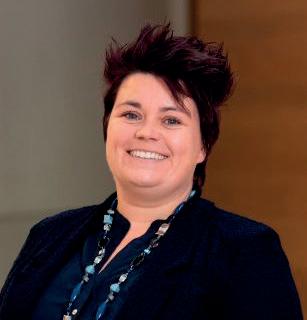
A series of ‘masterclasses’ provides rare behind-the-scenes insights into the craft of professional musicians and emerging artists, which is inspirational. There are also opportunities to discover and explore new musical avenues, from jazz to composition. The pupils’ journeys develop as their tastes and interests do – one of our pupils joined as a chorister and is leaving as an up-andcoming recorder player. The path is not rigid.
Emphasis is also placed on academic excellence and every year our pupils go on to study a variety of subjects at top universities. It is fantastic to see former pupils thrive in the musical world and beyond, with our alumni community including neuroscientists, journalists and politicians.
MUSIC IN BOARDING
Spring 2024 | 65

Academic learning also gives musicians the practical skills to succeed as performers and influencers, and a deeper understanding of the world in which they play, helping them to interpret and explore society through their art.
Specialist music schools typically host hundreds of performances per school year to make sure every pupil begins playing to audiences early, learning to present music, listen back, review and improve. Performance is an important skill for many different careers and there’s no better place to hone this than at a music school. By the time they leave, pupils are extremely well versed in getting on stage and building a rapport with peers and audiences.
Talent should not be confined to the school, and music schools help pupils to share their gift. For example, there are opportunities to give back to the local community by performing in care homes, other schools and public spaces. At Chetham’s, we invite new audiences in to see student performances and take part in workshops. The mission is to bring people together and ensure as many people as possible have access to music and the wellbeing it brings. It is important that pupils are at the heart of this civic mission as they develop into well-rounded individuals.
Although music unites everyone at Chetham’s, pupils come from diverse backgrounds. Entry to the school is based solely on musical ability and potential, never on background or ability to pay,
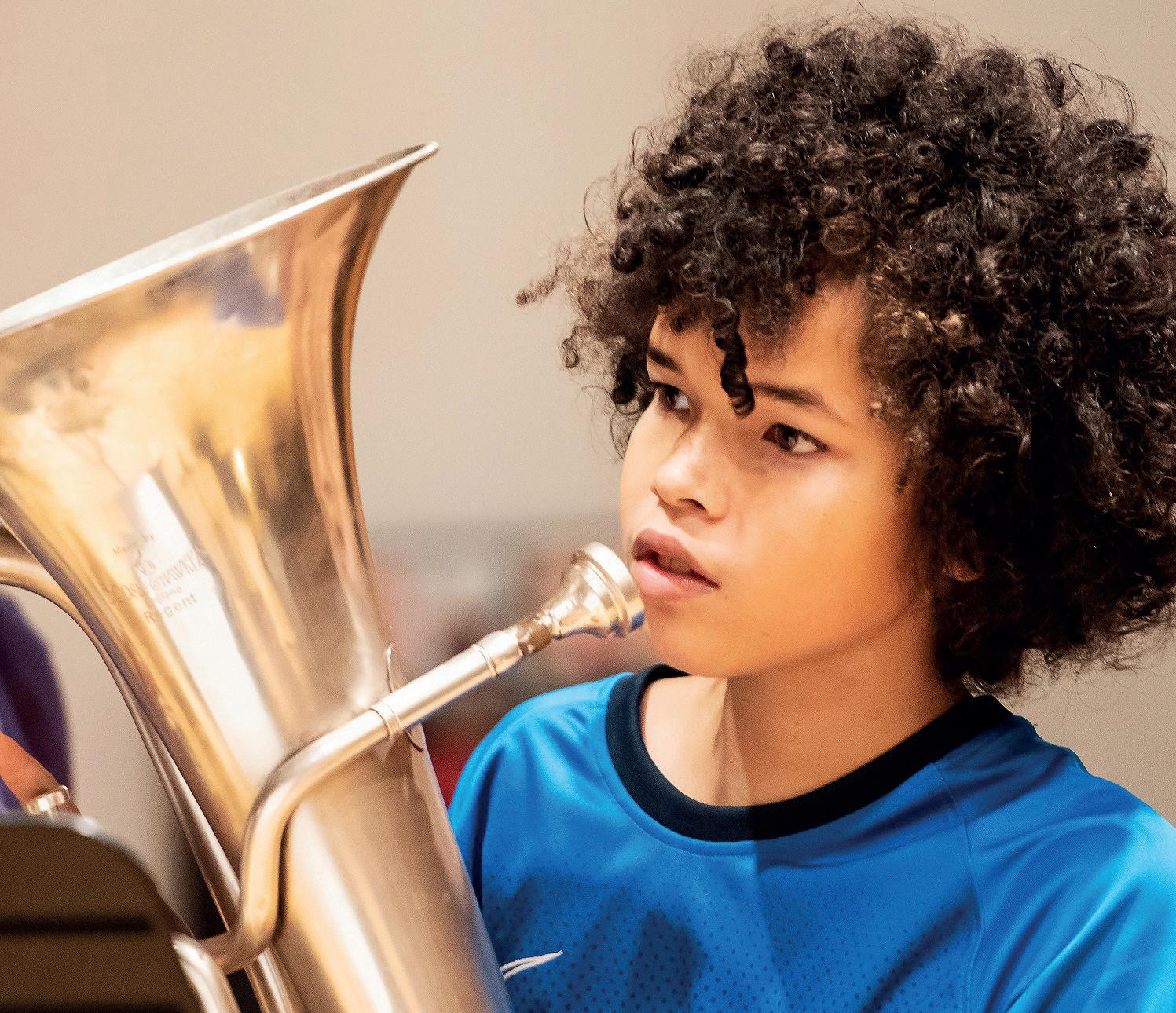

thanks to generous bursaries through the government’s Music and Dance Scheme. Minds are constantly being expanded and pupils are encouraged to ask questions and engage in debate.
Music teachers are committed to educating new generations of musicians and thinkers and equipping pupils with the skills they need to make a success of their adult lives, whatever they choose to do. We believe in the power of music to unite people, and this makes specialist music schools truly unique and inspirational places to live, learn and make connections.
□ Nicola worked in the maintained sector for 18 years as a performing arts specialist, and in school leadership roles responsible for safeguarding, curriculum, assessment, pastoral care and wellbeing. Tom was a member of the Hallé for 14 years and has performed across the world with ensembles including the Philharmonia, City of Birmingham and London Symphony Orchestras.
Specialist
Music lies at the heart of Wells
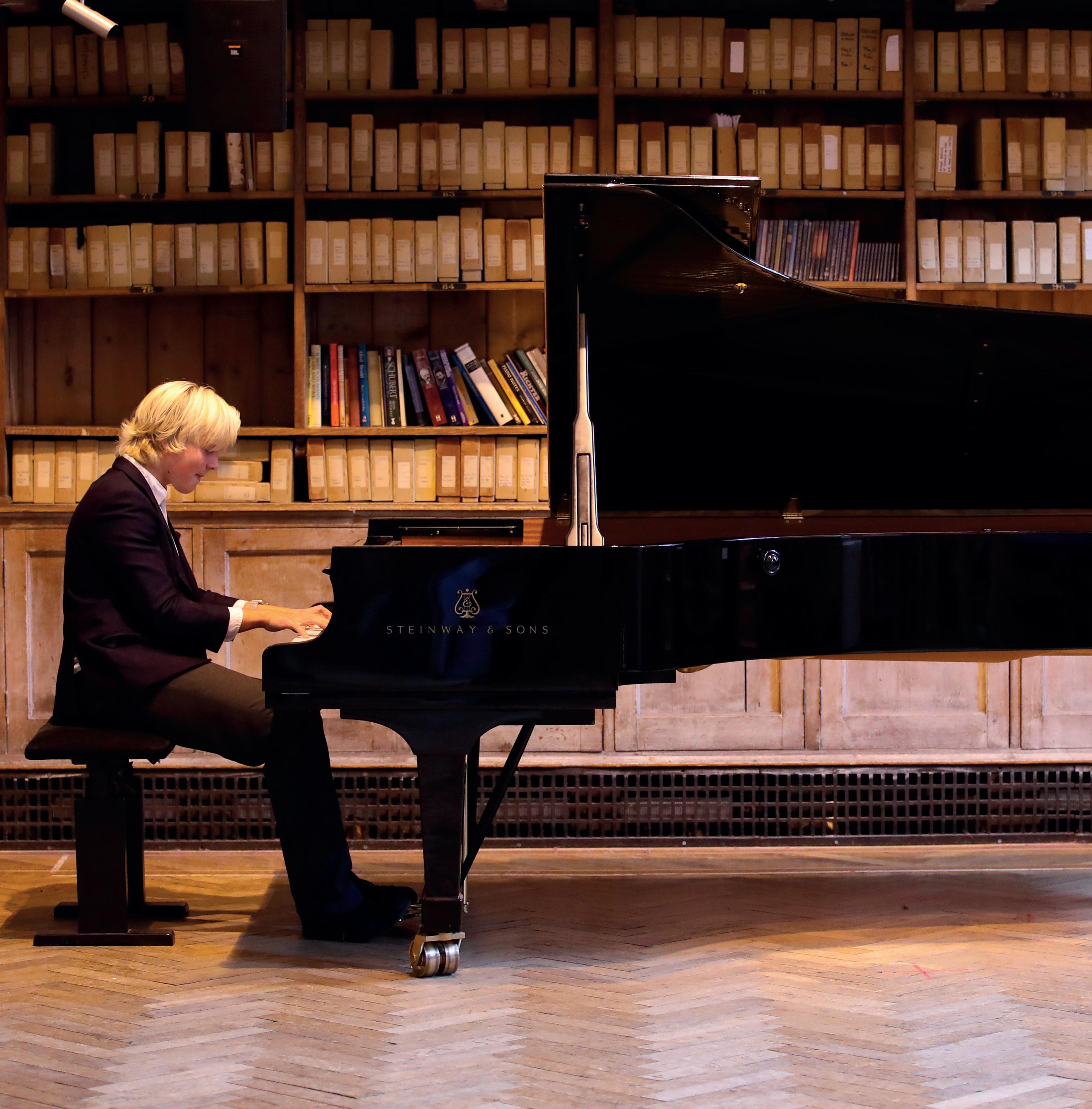
“Standardsachievedinmusicareexceptional” - ISI report 2023
We are one of five specialist music schools in the UK with a reputation as a centre of excellence.
To arrange a visit: admissions@wells.cathedral.school
https://wells.cathedral.school/music
COMFORTED –BY MUSIC
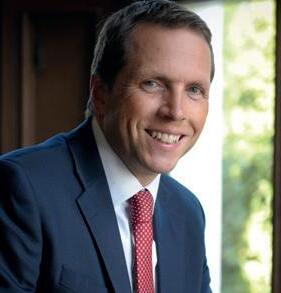
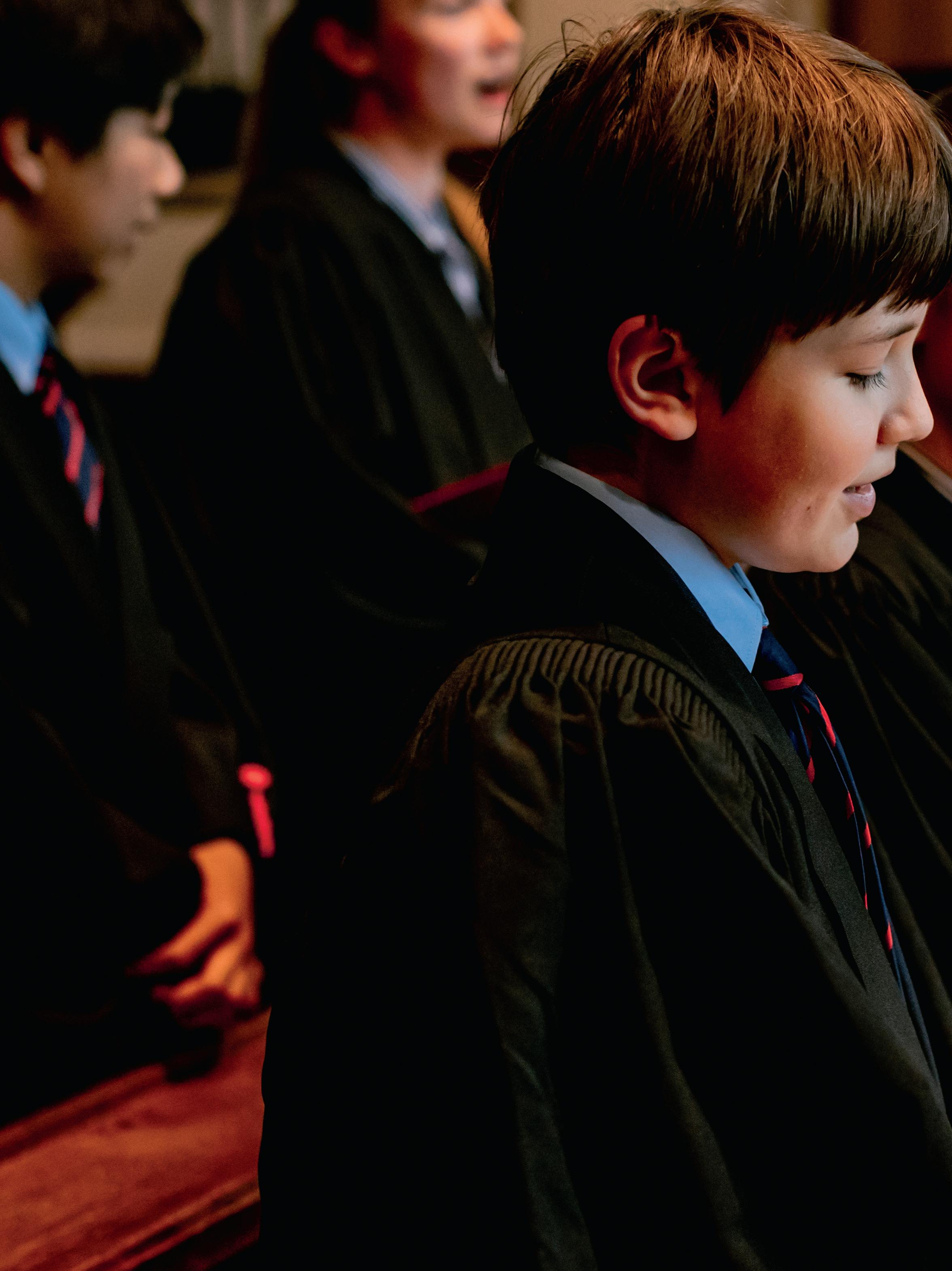
Music can instil a multi-cultural awareness in our increasingly globalised society, and boarding schools arguably do this better than most. GARETH JONES, Headmaster at Bilton Grange, reports.
AROUND 20 years ago, I found myself standing on a large concourse at the foot of an enormous favela in Rio de Janeiro. Concrete walls patterned with bullet holes surrounded me, and poorly built slums were rising up the hill. As if I wasn’t already humbled by the poverty-stricken nature of the location itself, it was the fact that in front me were dozens of children from the favela playing makeshift drums made out of bottles and cans, and teaching the mostly British children I was with how to do the same.
They shared their rhythm and love of music and taught us the dancing martial art of Capoeira. Their sheer enthusiasm and musicality broke down barriers that might otherwise have existed between children from different nations. Right there I saw that music is a universal language. UK boarding schools offer a safe and well-equipped home that is far removed from that favela. But there is a connection in the way that children from different backgrounds come together in schools. And a
realisation that music is so important for instilling a multi-cultural awareness in our increasingly globalised society. Boarding schools arguably do this better than most.
From the earliest age, we are comforted by music. As we progress through early developmental milestones, music is often used to integrate learning skills with a fun, enjoyable experience. Learning a musical instrument and singing in a choir should be part of every child’s education. It gives children a window into a creative world that is part of what makes us human. Creativity brings a sense of freedom. Rules are often obsolete when we are being creative and we have permission to take risks and try new things. When we take the time and energy to develop new ideas, we learn to understand, trust and respect ourselves which, in turn, leads to better expression and articulation of our thoughts. As a result, we often become more confident, less stressed and more adaptable when solving problems.
TIME FOR MUSIC
Boarding schools understand all this and place great importance on music, offering instrumental and singing lessons, ensembles, orchestras, bands and many different performance opportunities. Sometimes there is so much on offer that pupils can struggle to choose. But a key benefit of boarding school life is the time it provides for many activities, including music.
Learning a musical instrument takes dedication and regular practice. For day pupils, this will often be squeezed in t home between homework, food, travel and other activities. Boarders gain an advantage here. They don’t need to build in time for commuting or preparing meals. Their routine can be planned to allow time for practice, often be aided by dedicated support from the music department, enabling progress to be maintained and monitored.
But boarding offers much more. Ensembles and choirs can be timetabled to rehearse during
boarding time and there will be time for pupils to be creative, form their own ensembles, compose their own music and prepare performances together. All this enriches the house spirit and, because everyone is doing it together, music is valued and enjoyed by all and becomes part of daily life rather than perhaps a solitary activity at home.
MUSIC FOR ALL
At Bilton Grange, music is for everyone. Everyone sings with enthusiasm in school assemblies and there are ensembles, bands, an orchestra and musical dramatic performances. We also have a chorister programme with two choirs – one for boys and another for girls. These auditioned choirs rehearse and sing four days a week, but have no commitments at weekends. They will sing Evensong and the Eucharist in both Bilton Grange and Rugby School chapels, alongside professional adult singers. This programme is supported by scholarships and means-tested bursaries up to 100 per cent of the fees. Pupils do not have to board to be part of this programme, but those who do will find the it dovetails with the full range of activities that all our pupils enjoy.
Pupils who board and embrace the musical opportunities on offer in their schools will be enriched by greater confidence, independence and a creative spirit which can last a lifetime. As they say at the carnival in Rio, ‘abrace a musica’: embrace the music.
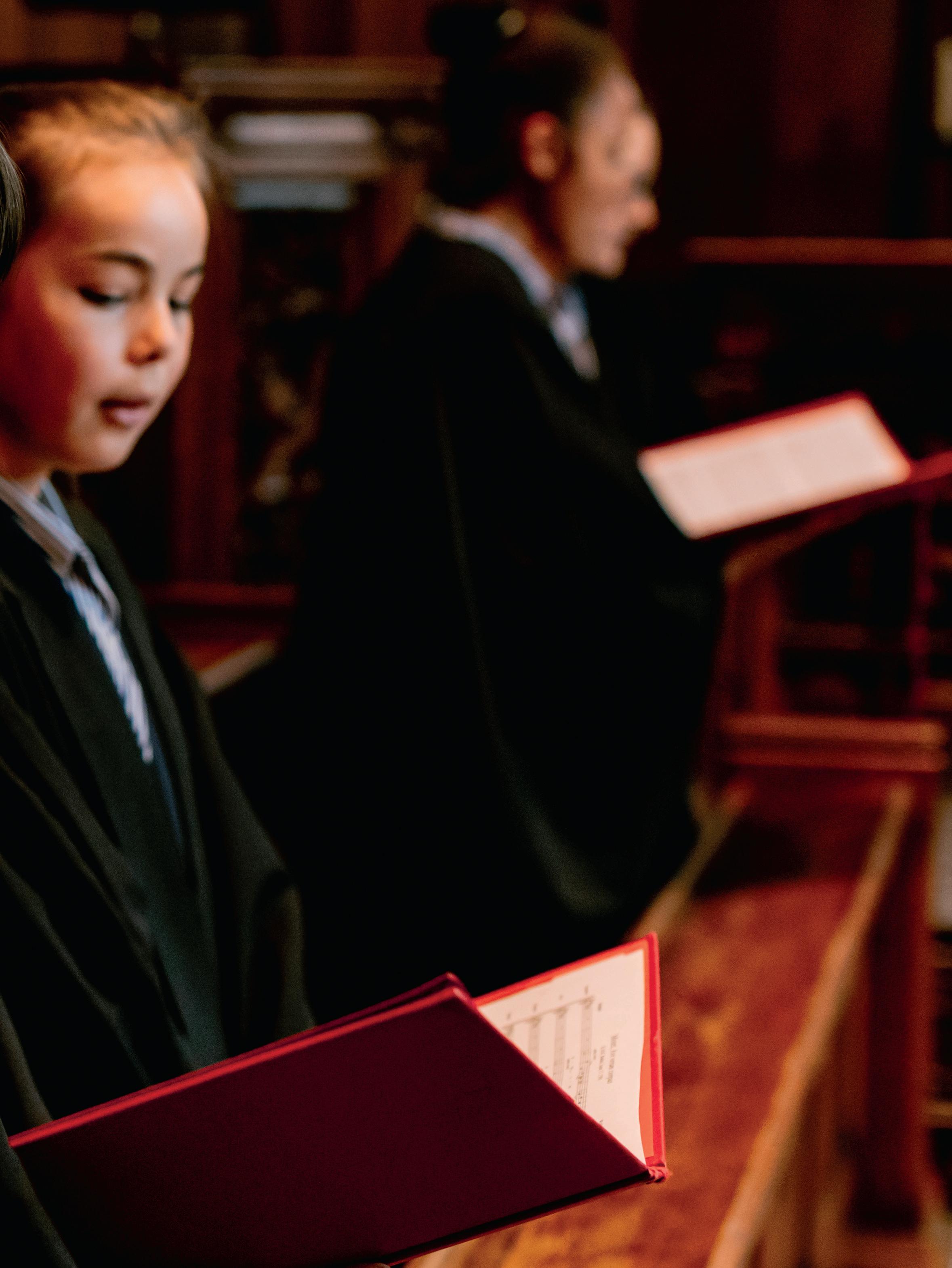
□ As an English and History graduate, Gareth began his teaching career at The Dragon, where senior roles included Director of Sport, Director of the Extended Curriculum and Housemaster. He was Head of St Andrew’s Prep, Eastbourne for six years. Music and the performing arts flourished during his tenure there. He has been Head of Bilton Grange Prep, now part of the Rugby Schools Group, since 2021.
MUSIC IN BOARDING Spring 2024 | 69
PREPARATORY SCHOOLS
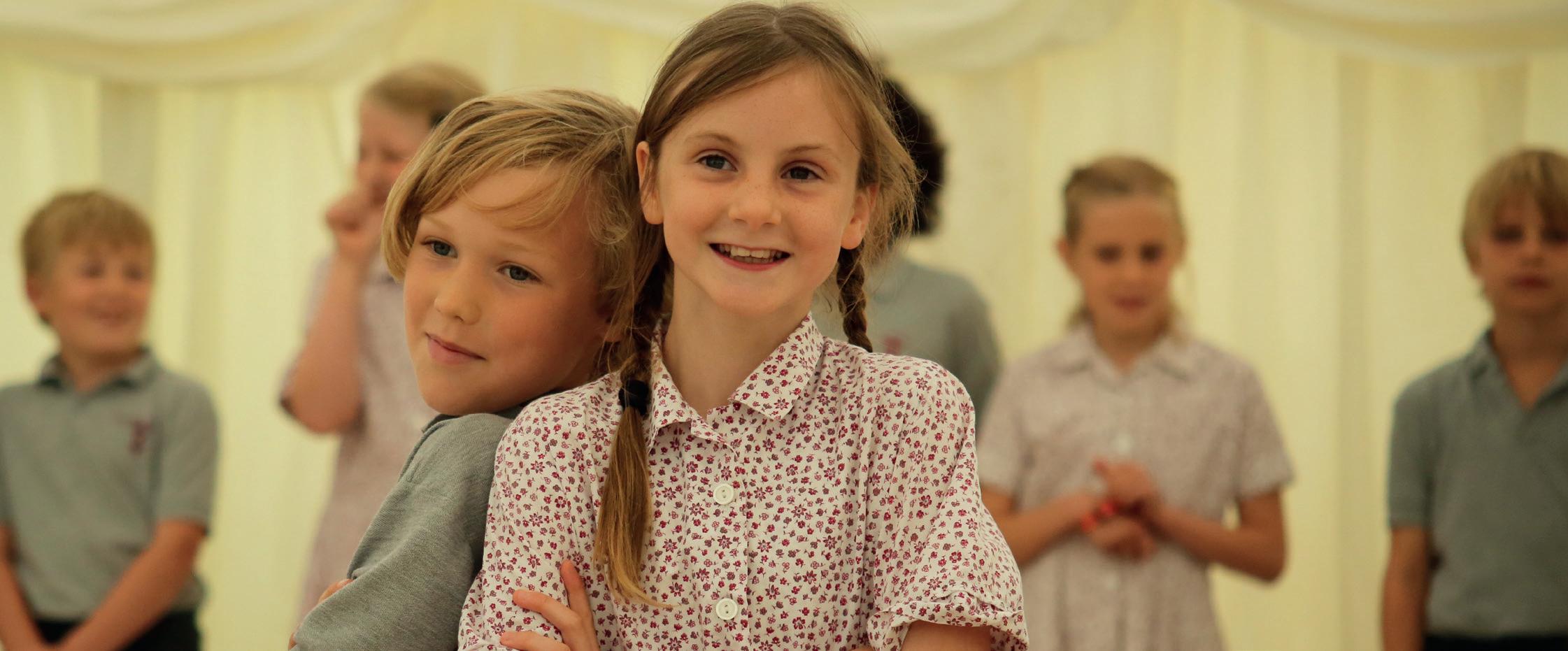
ENERGETIC Exciting, dynamic and
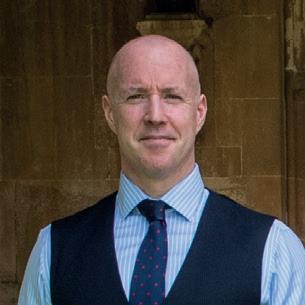
Prep boarding schools allow pupils to grow and develop emotionally, learning social skills and supporting each other along the way. DR TREVOR RICHARDS, Head at All Hallows Preparatory School, reports.
PREP boarding schools offer children an escape from today’s rapidly changing and demanding world, where social media distorts our view of life and expectations for young people are high. Children can be children and throw their energy into extracurricular programmes, enjoying activities, hobbies and interests with friends, and perhaps discovering new passions.
With a routine structure in place to complete any prep or homework, and with no daily commuting, there is plenty of time left for relaxation. It was once unusual for both parents to work, whereas today the opposite is true. Parents now often have long days and overnight stays away from home, and so flexi or weekly boarding is increasingly popular. This creates a busy and vibrant boarding house – an exciting, dynamic and energetic place to be.
Prep schools provide a priceless opportunity for pupils to board in a familiar environment, surrounded by friends as they prepare for the next stage
of their education. A child who started flexi-boarding in Year 5 and increased this to weekly or full boarding in Year 8 is likely to settle far more quickly into a new school than a child who has had little or no experience of boarding.
For new boarders, taster days and letters from future classmates help to make them feel welcomed. Modern technology and regular video calls make keeping in touch with families so easy, allowing parents to feel at ease. They can replicate those end-of-day chats in the car or around the kitchen table, even though they may be miles away.
Access to mobile phones and tablets should be limited to ensure children are interacting with each other. Set times for calling home can establish expectations, but flexibility is key. At All Hallows, if a pupil needs to phone home, we do all we can to facilitate this. The transition to boarding can be hard for parents too and an insight into day-to-day life, via an active blog or social media, reassures them their children are enjoying all that is on offer.
All prep boarding schools want a child–parent–boarding staff triangle of care for children, which means fostering close relationships between families and school. Acting in loco parentis at All Hallows means our staff value regular communications and meetings with parents. This allows us to deal with questions or concerns before they become an issue, ensuring parents have total confidence in the school.
Lifelong friendships are made through the shared experiences and challenges of living in a community. At All Hallows, pupils grow and develop emotionally, learning social skills and supporting each other. These skills will stand them in excellent stead as they move on to face new challenges at senior schools and beyond as happy, welladjusted individuals.
□ Trevor has been Head of All Hallows Preparatory School in Somerset since 2017, having been associated with the school for over 20 years. Married to Jeanna, Trevor is an educationalist and a child psychologist. He attended the University of Liverpool before gaining QTS from the University of Bath. He later took his Doctorate of Educational Psychology at the University of Bristol.


We are welcoming more and more girls in Year 7 at the start of their journey and spaces in our new and award winning Sixth Form boarding house, ‘The 6,’ are in demand.
We firmly believe in the benefits of boarding, amongst them:
• increased independence and resourcefulness
• the ability to organise academic, social and extra-curricular time
• learning to develop positive emotions and relationships
• the care and support of a global community
• access to the School’s facilities before and after the School day
• open-mindedness, empathy and understanding that comes from living with others
• reduced self-consciousness and acceptance of difference
CONSIDERING BOARDING AT 11 AND OR AT 16 READY TO TRANSITION TO UNIVERSITY?
Call or email for our free guides:
admissions@stcatherines.info
00 44 (0) 1483 899609
www.stcatherines.info/boarding
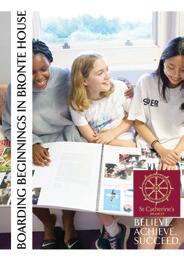
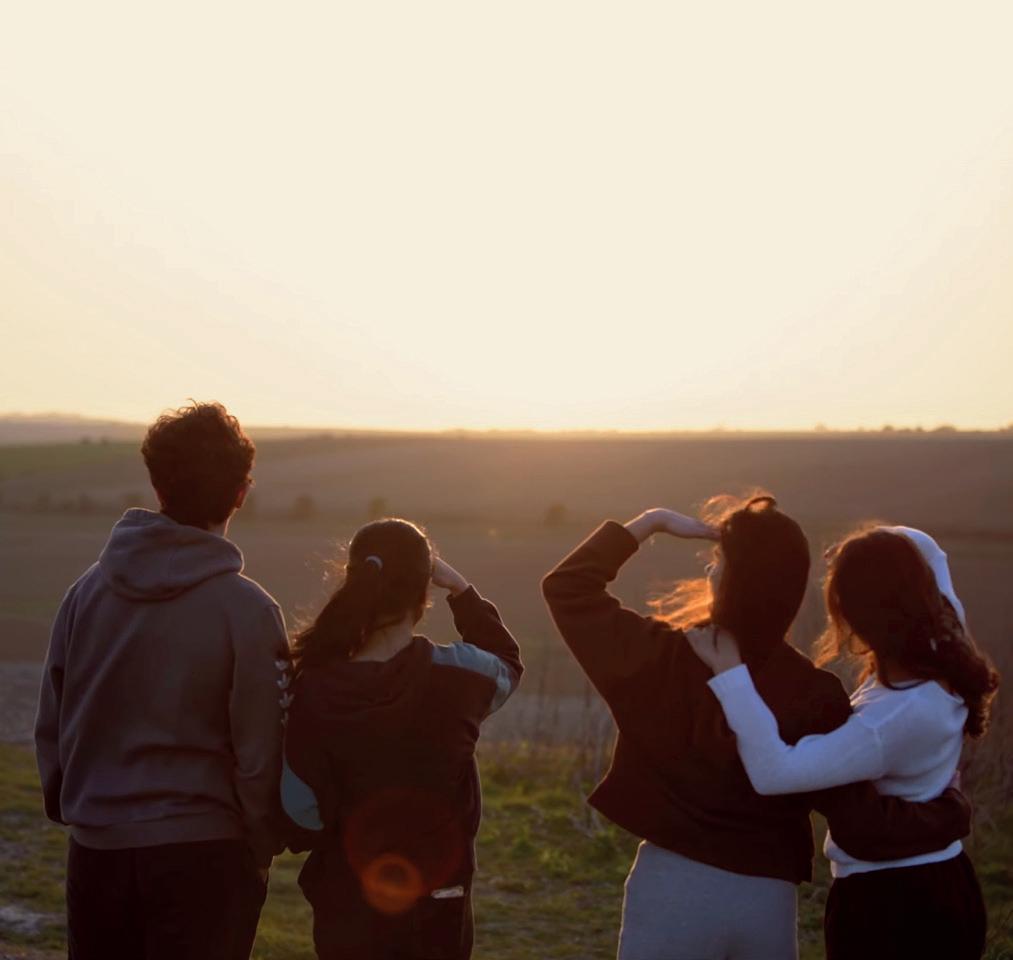
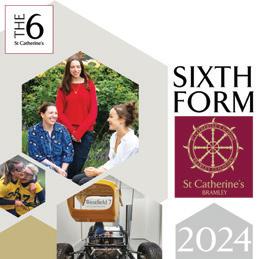
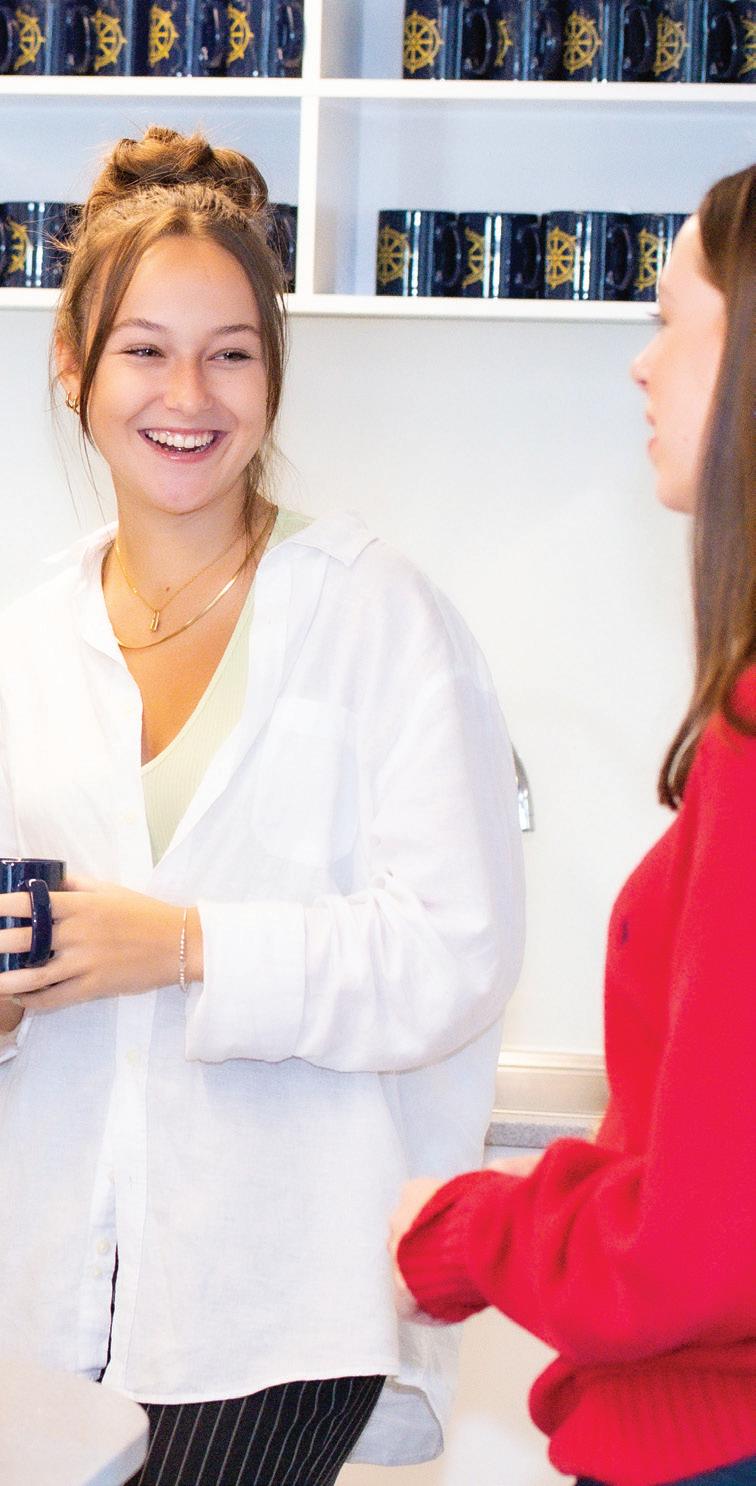

PREPARATORY SCHOOLS Spring 2024 | 71
Boarding School since 1885 | 4
years
GSA Day &
- 18
Could we be your home from home? Steyning Grammar School has full, weekly and flexi state boarding options with entry at Year 9 and Sixth Form. www.sgs.uk.net Please contact us for further information or to arrange a tour: sgsboarding@sgs.uk.net / 01903 817601 Day School & Boarding | No Tuition Fees Beautiful Sussex location, with easy access to London airports BSA_Guide_85x125_March24.indd 1 07/12/2023 10:38
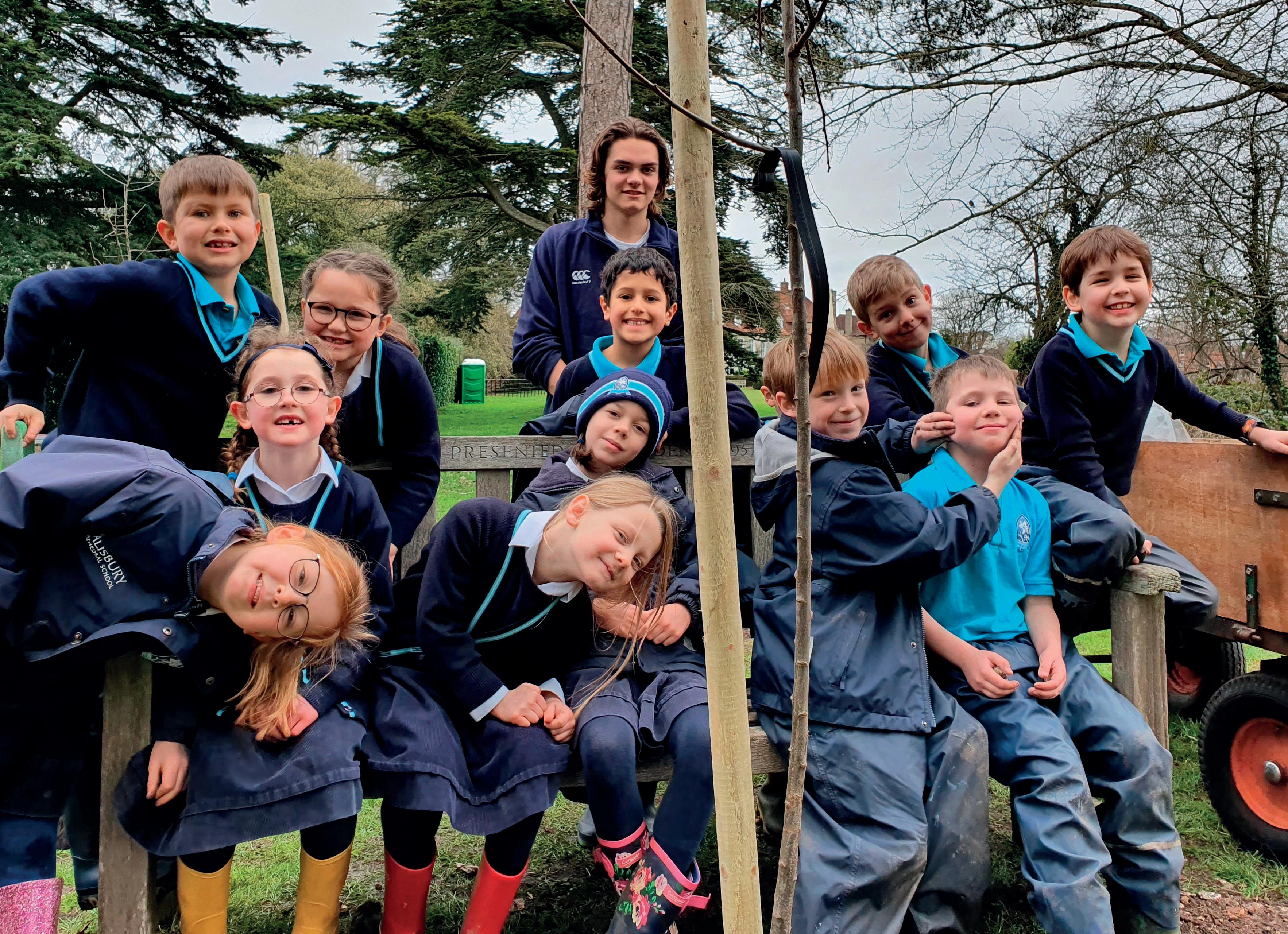
Embracing the wild

Encouraging young people to take responsibility for their environment helps them to learn new skills that boost biodiversity in the school at home and beyond. WILL FROST, Head of Geography and Outdoor Learning at Salisbury Cathedral School, reports.
NEARLY two years ago, Salisbury Cathedral School posed a question that echoed beyond the confines of traditional education: is it time to rewild your child? With the school’s support, I delved into research behind the psychological benefits of spending time in nature, and how outdoor learning can improve academic endeavours. We looked at the concept of rewilding, the importance of reconnecting children with nature, and ensured they spent as much time as possible in green spaces outside.
When I started at Salisbury, I was thrilled to ignite a spark of curiosity within pupils about their school environment. Today, astounding progress has been made by pupils, staff and parents alike. The 27acre campus has become a thriving
community, actively fostering biodiversity and embracing the green spaces that surround it.
The infectious mantra, ‘can we take this outside?’, has become part of the school’s culture, across all year groups and subjects. Students revel in the beauty of the green campus before and after school, in lessons and sport, as well as during break times. What is remarkable is the sense of ownership instilled in these young minds. They actively contribute to their environment, learning skills that extend beyond the school gates.
From the inception of Green Week to planting initiatives within the campus and the broader community, Salisbury Cathedral School has embraced a holistic approach to outdoor education. Partnerships with various
organisations and innovative school trips to conservation sites have enriched students’ perspectives, encouraging them to become change agents for a better future.
They are also encouraged to take responsibility for their environment and, using the school’s grounds, to learn new skills to boost biodiversity which can be transferred to home and beyond. A standout moment was the child-led Green Week during lockdown by Year 8 students. Mentoring younger peers in habitat creation and environmental care, these students took the initiative to new heights. A visit to a landfill site and a recycling plant, documented through captivating video presentations, allowed them to share insights on waste management with the entire school community.
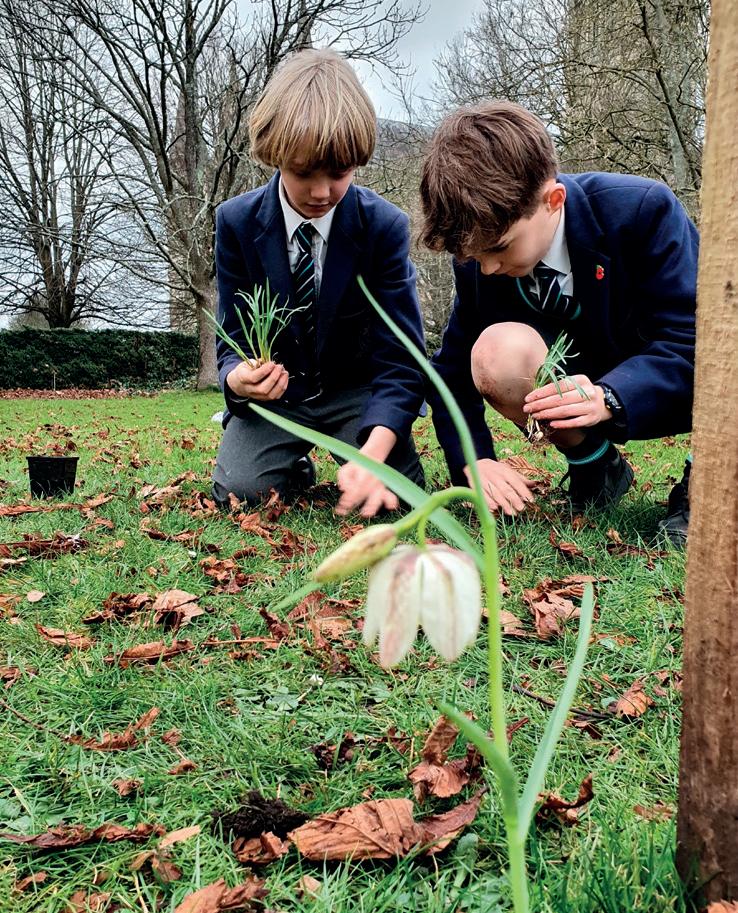
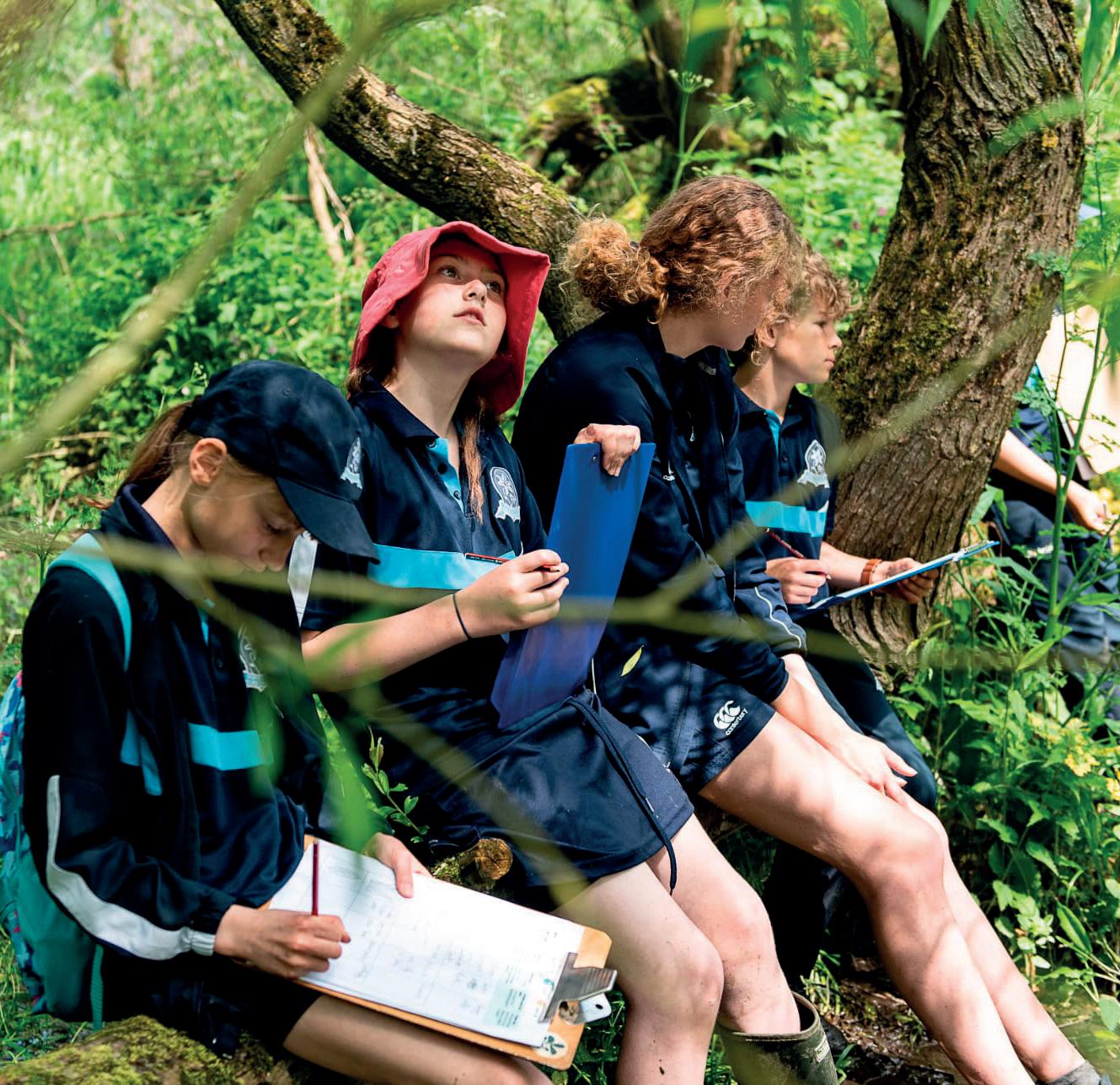
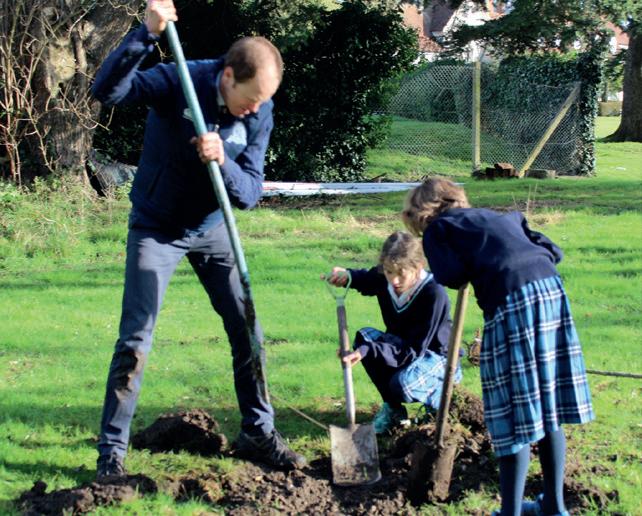
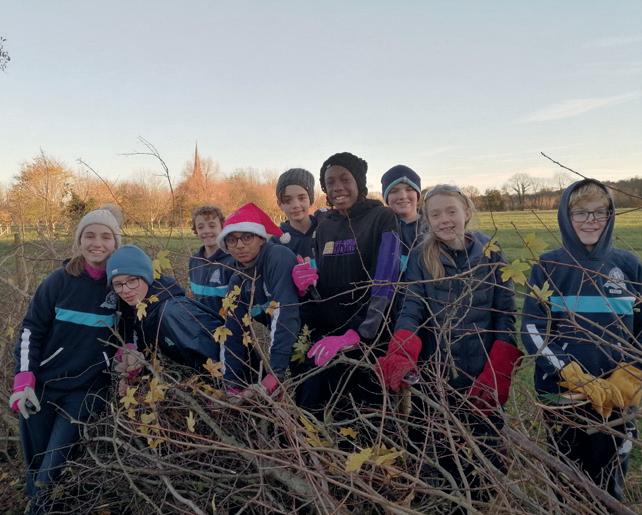
The success of Green Week fuelled a desire among students to continue to enhance the school’s environment. Planting projects, including a 500-strong spring bulb initiative and a new orchard, all led by Year 8 students, have added layers of natural beauty and biodiversity to our grounds. The new apple, pear, and plum trees, chosen to reflect the site’s history as a kitchen garden, host handmade clay plaques created in art lessons.
NEW TREES
Many other new trees have been planted by our pupils and their families, and not just at school. The pupils spearheaded a successful Woodland Trust application to secure 420 saplings to share with our community. These trees were distributed, along with planting tutorials, to other local schools and community groups, as well as to our pupils to take home, to foster biodiversity and connect numerous children and families with nature. The project’s success has led to a subsequent application, securing more trees for our local area. To sustain the momentum, the
school organised a ‘Biodiversity Morning’, a unique opportunity for the whole school, from reception to Year 8, with older children again mentoring those younger, to celebrate the wonder of all living things so easily taken for granted. The range of species was recorded through moth traps, butterfly, dragonfly and bird identification activities. Everyone revelled in tasks such as making bird boxes, bat houses, pond dipping, sowing wildflower areas within the grounds and the surrounding Cathedral Close.
The school has also actively sought partnerships with external organisations including Salisbury Cathedral, The Harmony Project, Operation Future Hope, Wiltshire Wildlife Trust, and Salisbury Natural History Society. These new links have been instrumental in broadening the horizons of the pupils’ environmental education and bringing external expertise to complement school activities.
My role in expanding the scope of outdoor learning has led, thanks to the backing
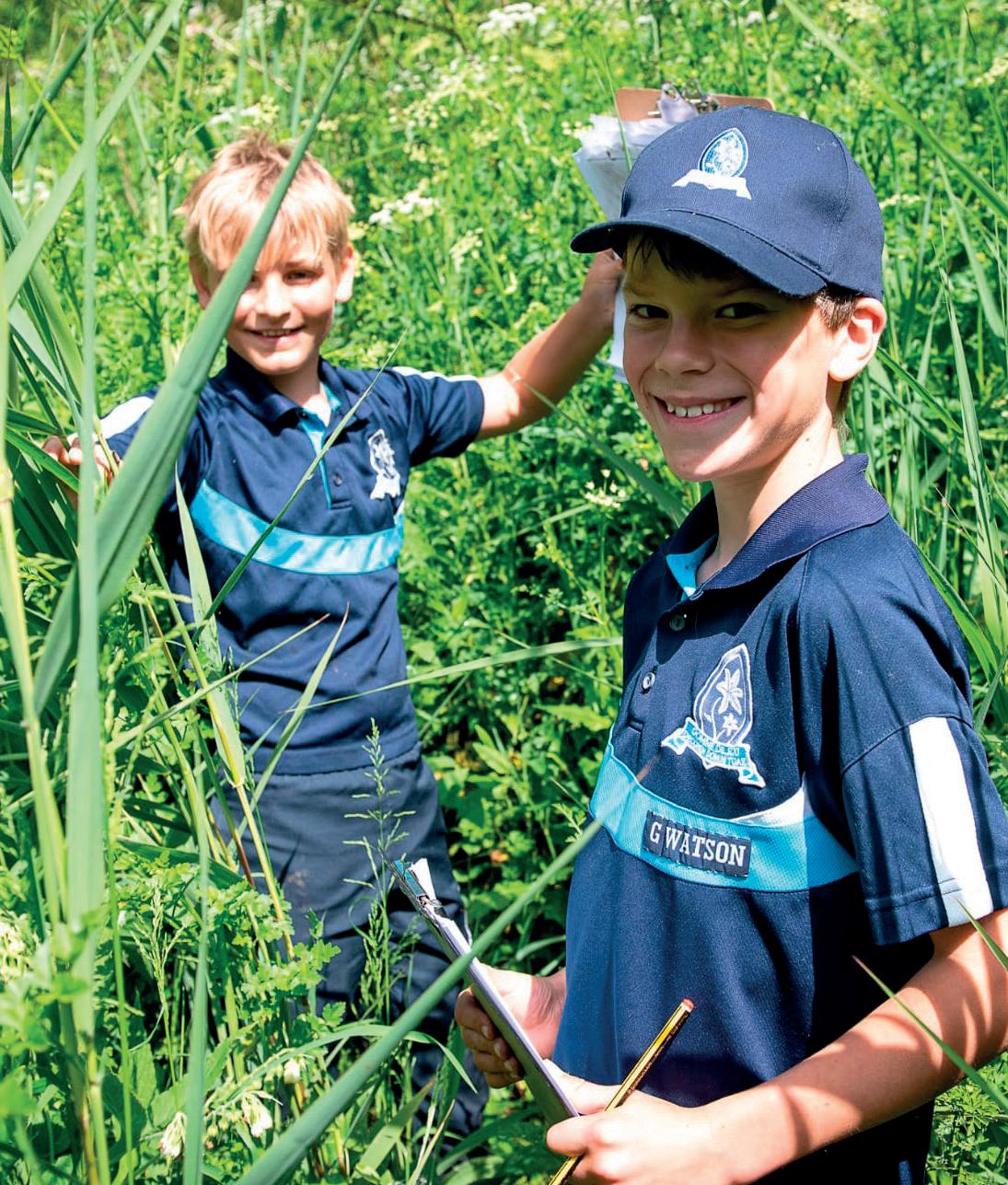

from everyone at the school, to new transformative trips. These foster a deeper understanding of academic subjects, while creating lasting memories for the pupils. The ‘rewild your child’ project at Salisbury Cathedral School is not merely an educational endeavour. It’s a nurturing ground for responsible stewards of the environment, empowering the next generation to drive positive change.
Outdoor learning here is not confined to nature’s classroom. It extends beyond the school day, weaving into the fabric of pupils’ lives, shaping their perspectives for the present and the future.
□ Before teaching, Will worked for the National Trust and was a contributor to the ‘50 Things to Do Before You’re 11’ scheme, designed to encourage children out into nature. He has also volunteered as a guide at the Knepp Estate, known for its very successful rewilding project, called the Great Landscape Experiment.
PREPARATORY SCHOOLS Spring 2024 | 73
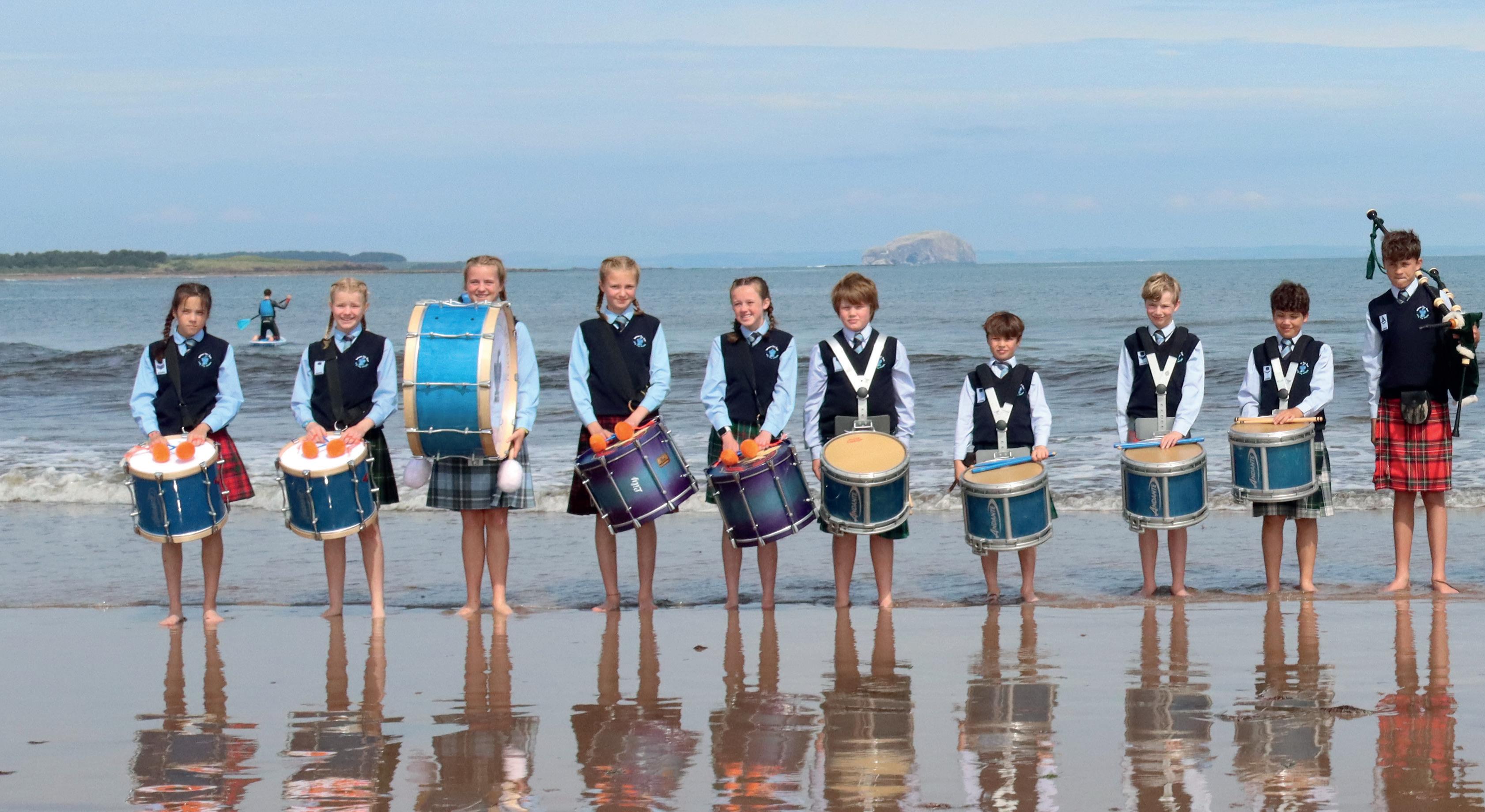
Developing life skills

Making sure that children are happy but also prepared for life in the outside world is a delicate balancing act. OLLY LANGTON, Headmaster at Belhaven Hill School, reports on how prep boarding schools help to develop life skills and resilience.
CHILDHOOD is a precious thing. Anything we can do to protect and extend it should be valued, as the wider grown-up world becomes more and more accessible to our children. Good mental health is predicated on an individual’s ability to stay in the moment, enjoy and appreciate every experience and have fun and play.
Constantly looking ahead to the next stage is likely only to increase anxiety, a precursor to poor mental health. Making sure that children are happy and at the same time prepared for life in the outside world is therefore a delicate balancing act.
A programme of activities allowing pupils to gain new and challenging experiences in a safe and nurturing environment helps boarding prep schools stand out. It means they offer children something increasingly rare – an extended and protected childhood that allows them to become confident in their own abilities.
Prep school boarding life provides time and space: time to focus on skills beyond the classroom, and space to explore potential and respond to physical and mental challenges. Being away from home and learning how to thrive at a boarding school provides daily opportunities for the gentle encouragement of key life skills and this builds children’s inner confidence and resilience. At Belhaven Hill School we have a bespoke life skills programme, The Belhaven Award. This programme gives pupils an opportunity to take on new challenges, developing practical skills that take them outside their comfort zone.
Life skills include learning to iron, sew or make a bed, serving the community, organising charity events, motivating their peer group, understanding finance, learning to program and experimenting with entrepreneurship. These are all key life skills that together can help to produce a child ready for the challenges of the world beyond.
BEING COURAGEOUS
Our life skills programme is built on the school’s core values: courage, creativity and courtesy. Activities that qualify for Being Courageous include completing a 10km to 25km walk, doing a 10km run, cycling 10km to 40km, doing a first aid course or public speaking.
Activities for Being Creative include writing a story, poem or book review, taking photos, reviewing an art gallery, concert or play, learning famous quotes or learning how to tie knots. Activities for Being Courteous include doing one to three hours of community service such as litter-picking, supporting staff and reading to younger pupils.
Also central to preparation for the next stage of schooling and for life in general is the ability to engage with everyone around you – the charitable element of the school’s Award is key for us at Belhaven.
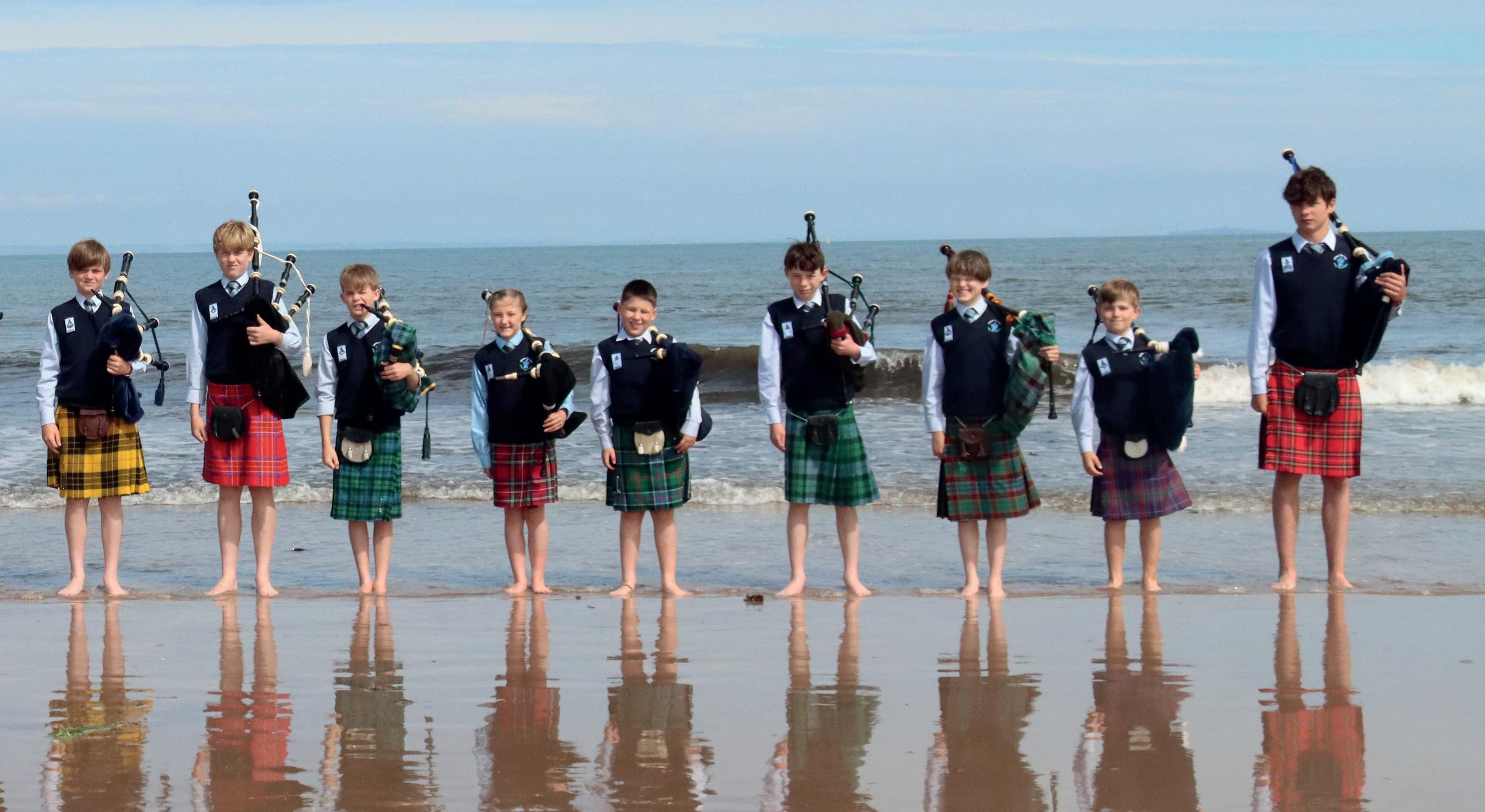
and resilience
HAPPY CHILDREN
All pastoral care in a boarding prep school is designed to help young boarders make good decisions more effectively. Having a clear set of school values provides the framework and the variety of experiences of everyone on the teaching staff in a small prep school ensures a broad range of life skills are transferred through the school’s co-curricular programme. Regular features of life in a boarding prep school include playing team sports or activities every day, practising a musical instrument, taking a role in a play or completing a project in art. Activities like these help to provide pupils with many important opportunities and challenges.
Happy children learn well. The more we enable pupils to experience real-life experiences, the more they will connect the sometimes abstract concepts taught in a classroom to real world problem-solving, so vital if they are to thrive in an increasingly unpredictable environment.
□ Olly Langton joined Belhaven Hill School as Headmaster in 2020 having taught at Ludgrove (2005-07) and Radley (2007-20). He is married to Rosie and together they ran a boarding house at Radley before moving to Belhaven. They have three young children, Alexander and Cleo (both at Belhaven) and Lettie, plus a dog called Nelson.
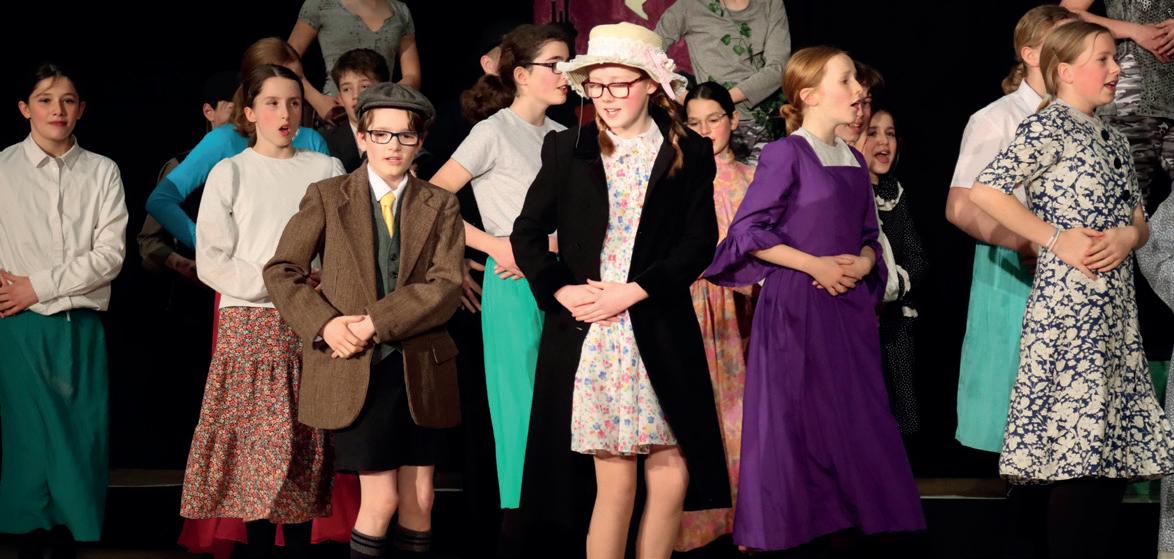

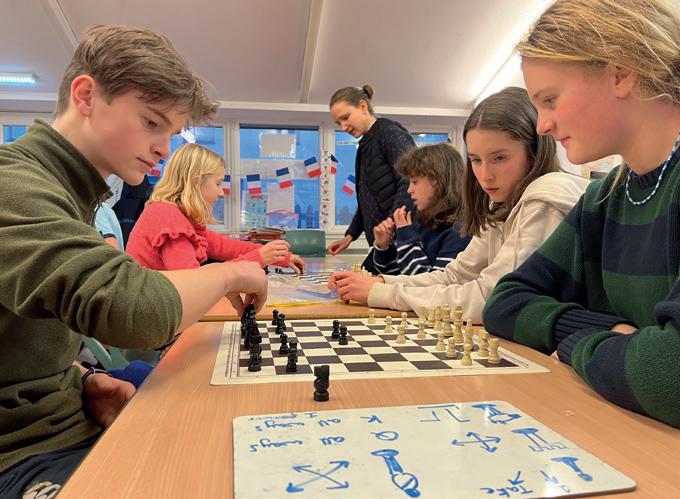
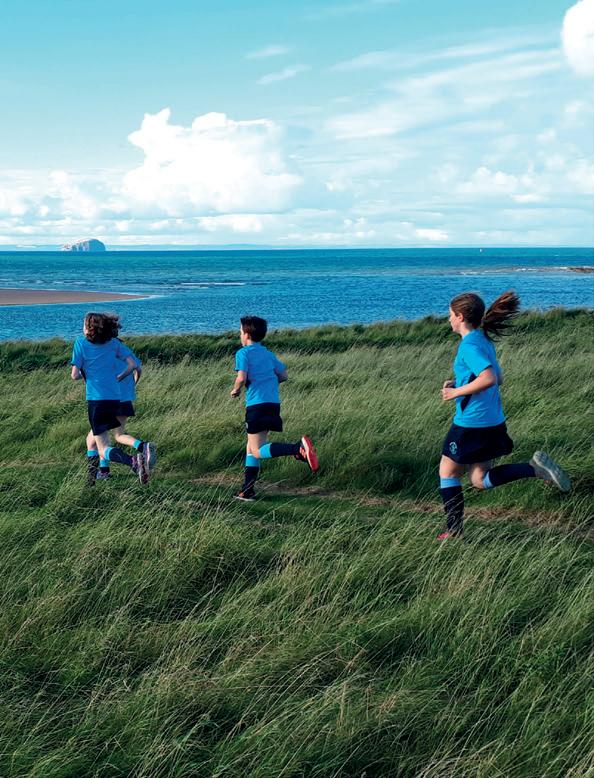
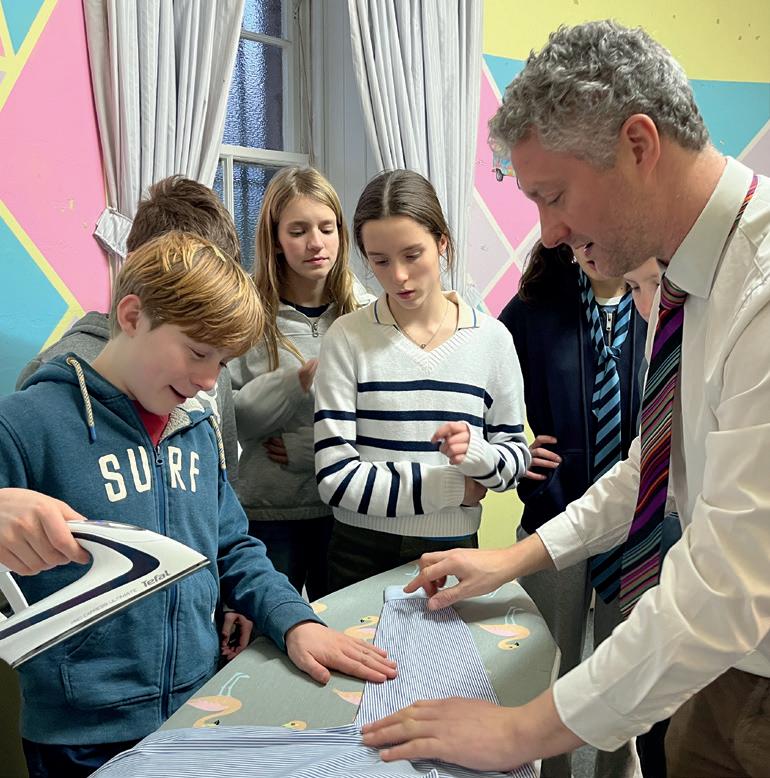
PREPARATORY SCHOOLS Spring 2024 | 75
Responsibility versus maturity
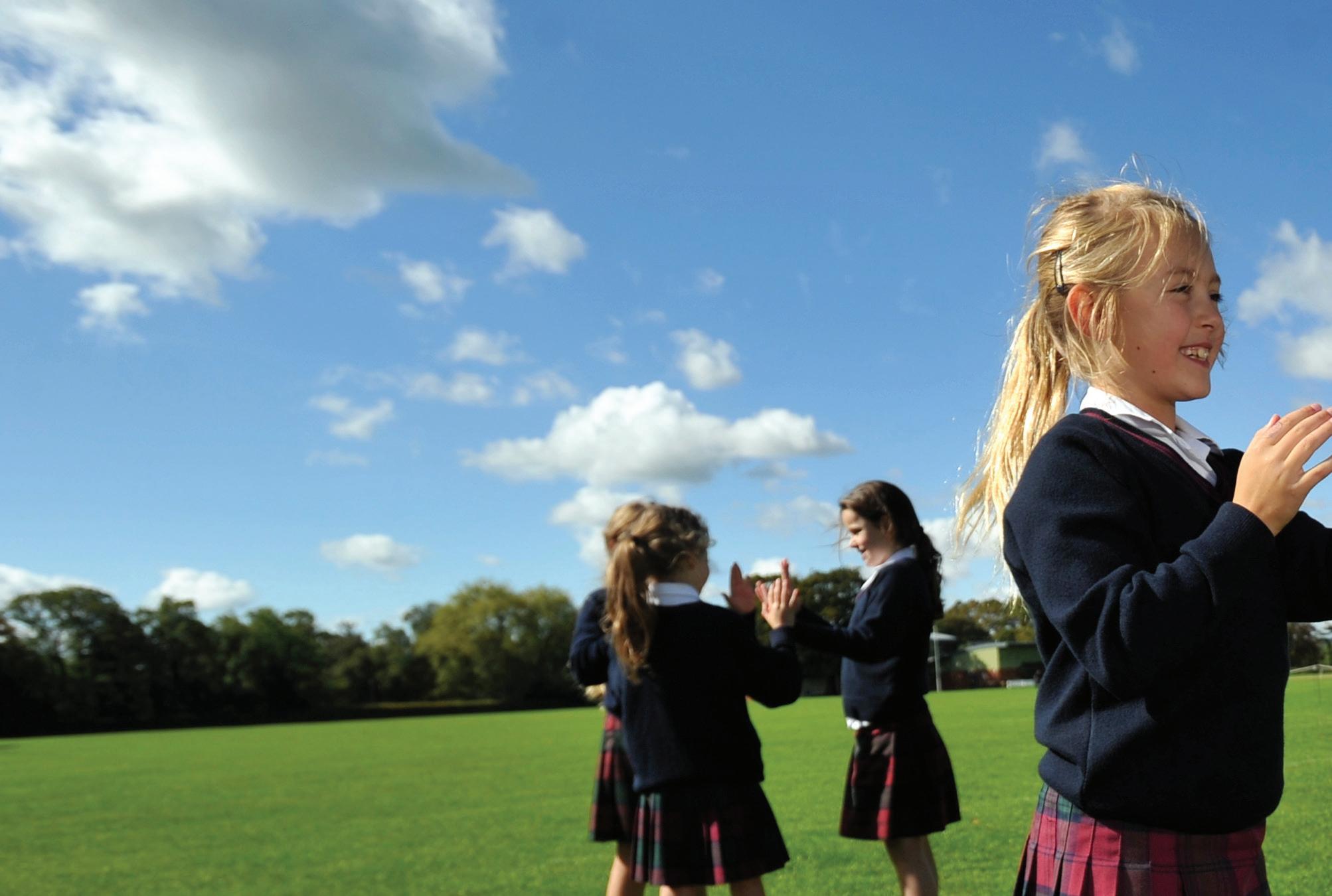
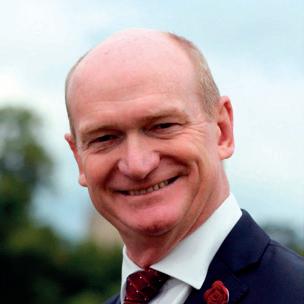
Carefully planning when to introduce more freedom to prep school boarders is a key development stage in junior education. PADDY MOSS, Headmaster of Dean Close Preparatory School, explains more.
EVERY parent hopes their child will grow up to be a success – a happy and fulfilled adult who makes considered choices and appreciates the value of being of service to others. Many schools promise to provide opportunities to achieve this through boarding provision. Boarding is no longer popular simply as a necessity for travelling or busy parents: it is a lifestyle choice for parents who recognise and value its benefits.
There are many values to be gained and lessons learnt from being educated away from home. These include teamwork through living with others, taking care of one’s own physical and emotional needs with support from staff, plus taking responsibility for
self-organisation of academic and co-curricular activities. A child can develop all these qualities at a nurturing boarding school.
Offering age-appropriate levels of independence is of great value. But how do schools manage to give enough freedom for those mature enough, while holding on a little more tightly to those who are not quite ready? The key is for houseparents and house tutors to really know each individual pupil well, and to work with parents to understand their different parenting styles.
Equally important is monitoring each child’s choices as they navigate their school journey, being there to celebrate successes, and offering compassion and guidance when they make mistakes.
‘HOUSE RULES’
A clear set of ‘house rules’ acts as an invaluable safety net. These give more freedom for older boarders, something younger boarders can aspire to, and create understandings on how levels of freedom are earned, based on houseparents’ judgement. Again, knowing the individual child is important to offer appropriate concessions. Giving responsibility to a young person, and offering opportunities to develop new skills, can have immense benefits.
The first question to consider is: “Are they ready?” Professionals who work in boarding schools are very experienced in knowing when to allow their charges to draw close and when to loosen up. Supervision levels are never relaxed, yet as a boarder gains greater maturity, so
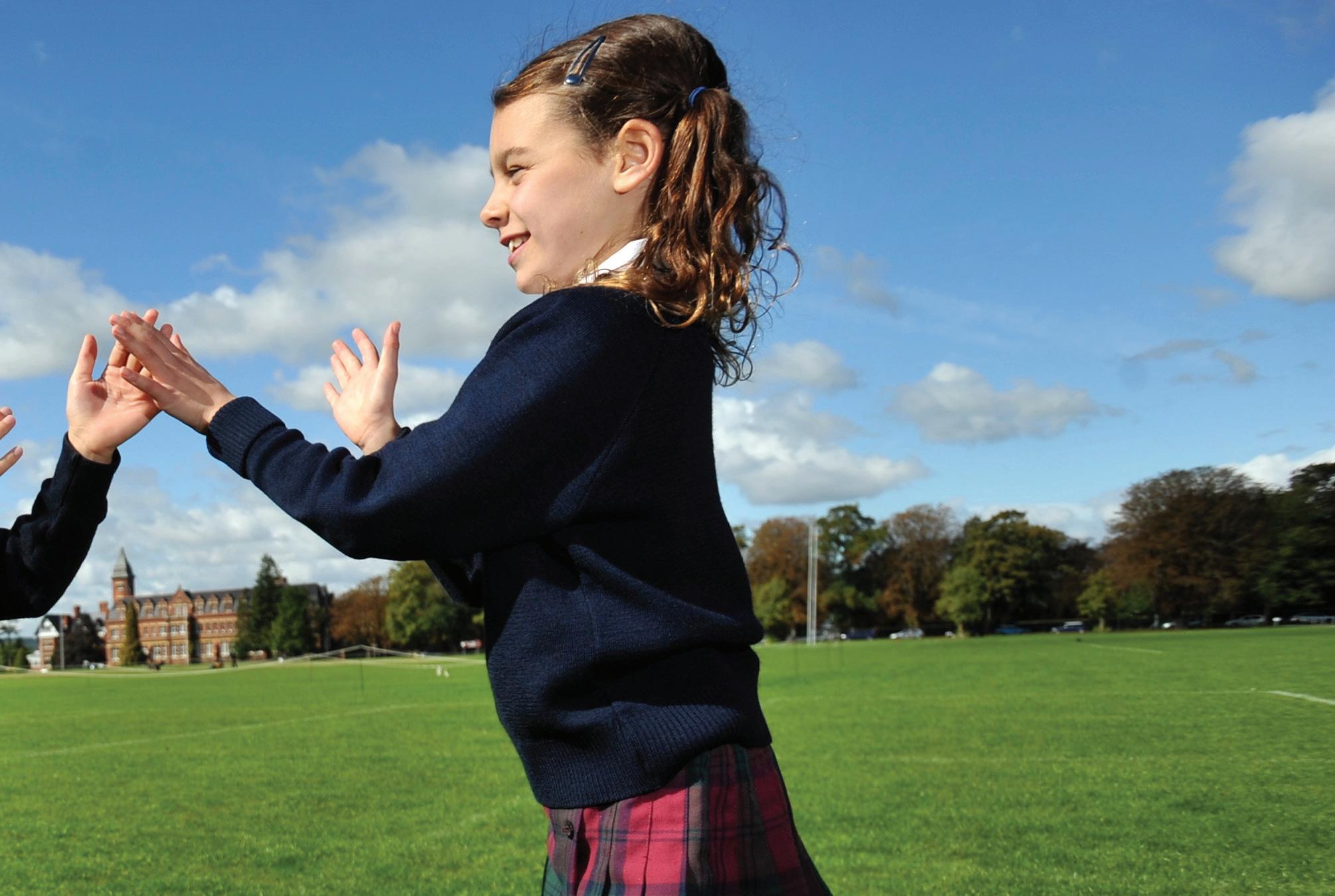
expectations of appropriate behaviour and responsibility increase.
Examples of increased freedoms in a school such as Dean Close can be found in downtime and during more routine school time. For example, before examinations, dedicated staff sit with younger boarders to guide them through revision homework. Older prep school pupils are expected to create their own revision timetable, preparing independently for the exam hall
OPPORTUNITIES AND CONSEQUENCES
During long summer evenings, older pupils at Dean Close enjoy playing traditional games in the woodland area, running off pent-up energy. But they are aware of the consequences if they stray too far from their team or return to the boarding house past curfew. These opportunities to be out of sight but close to ‘home’ provide invaluable lessons – creating fun, but being aware of time and looking out for others.
Boarding schools in close walking distance of a town can also allow pupils some supervised freedom off site. Older prep school pupils might be allowed to do
Christmas shopping in town in small groups, an annual treat they look forward to. Younger pupils can also visit their favourite haunts but remain under the watchful gaze of a gap-year student. Just as parents expect children to help more with household chores, so boarders benefit from responsibly organising their boarding house. Rotas for tidying or helping matron with nightly toasted sandwiches allow children to serve, and they gain great satisfaction from this.
While away from home, children have to make choices uncoached by parents, the results of which are always learning experiences. Whether it is a good choice that leads to a positive result or a less considered one which should never be repeated, a child learns through this process. They understand their ability and freedom to take responsibility and build up resilience if a situation does not go their way – the first steps to becoming well-rounded and happy individuals. The road can be rockier for some, but a good school will always recognise the value of the journey.
“Giving responsibility to a young person can have immense benefits for all involved and can offer opportunities to learn and develop new skills.”
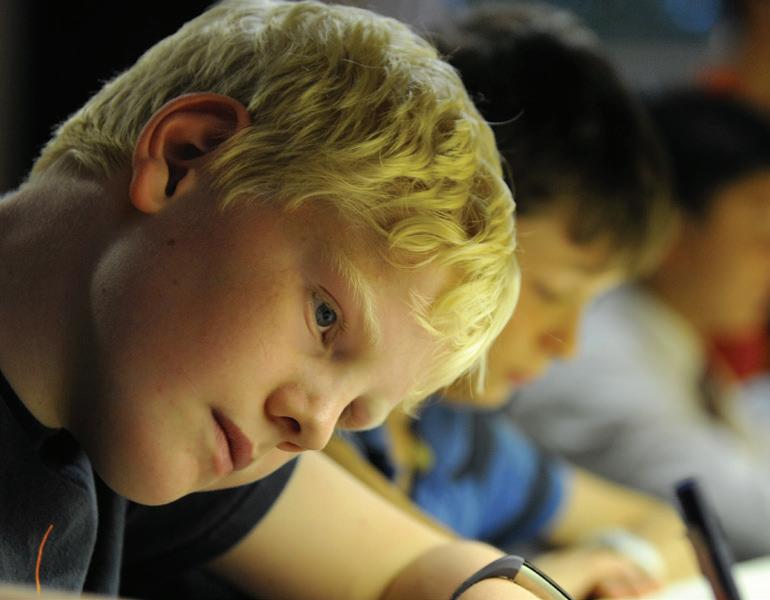
□ Paddy Moss joined Dean Close in 2015 from Kenya, after nine years as Headmaster of a premier Britishcurriculum preparatory boarding school. A Canadian by birth, Paddy grew up in the west of England and studied Geography and Economics (SOAS, London University). He has taught in several boarding and day prep schools, in the UK and abroad, and has been a member of many senior management teams. Paddy is a highly experienced sports coach with a passion for outdoor activities and scouting. He and his wife, a maths and PE teacher, have three daughters at Dean Close.
PREPARATORY SCHOOLS Spring 2024 | 77
SENIOR SCHOOLS
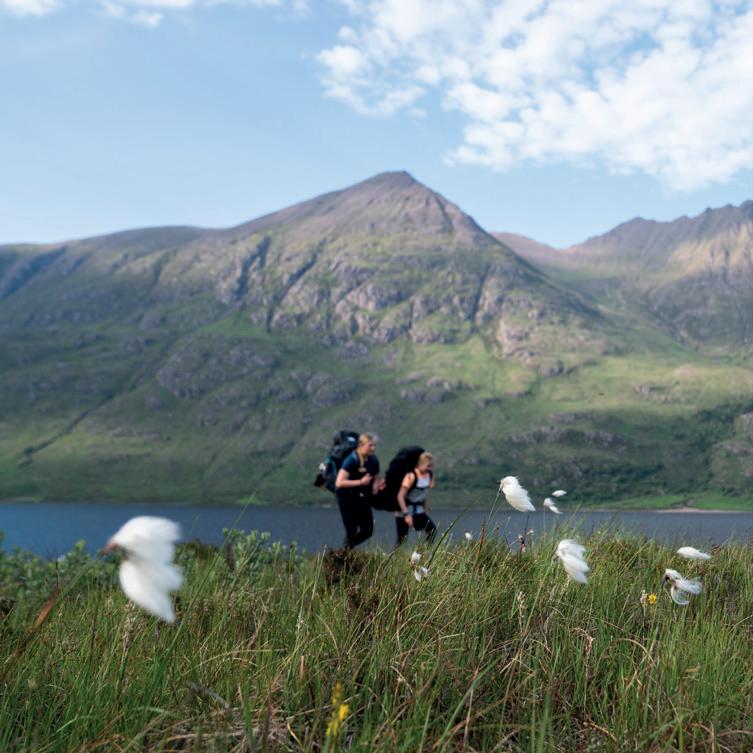
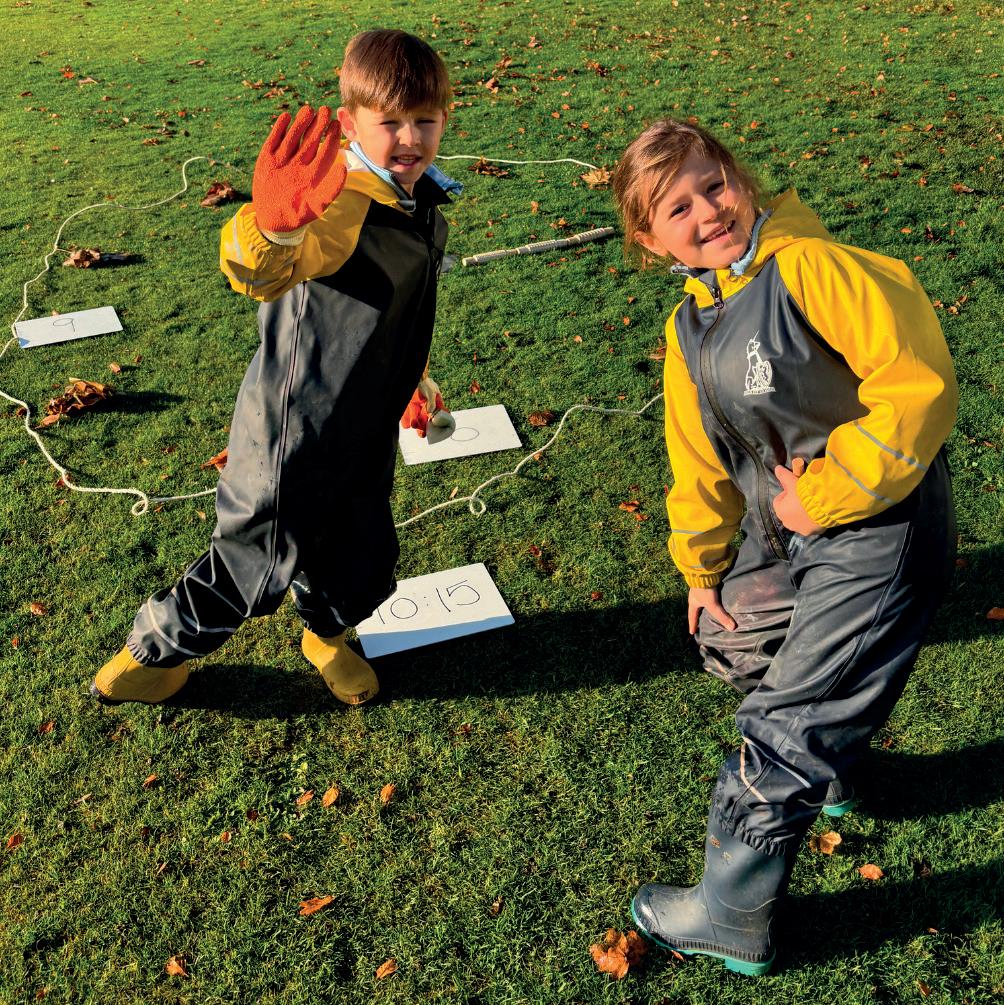
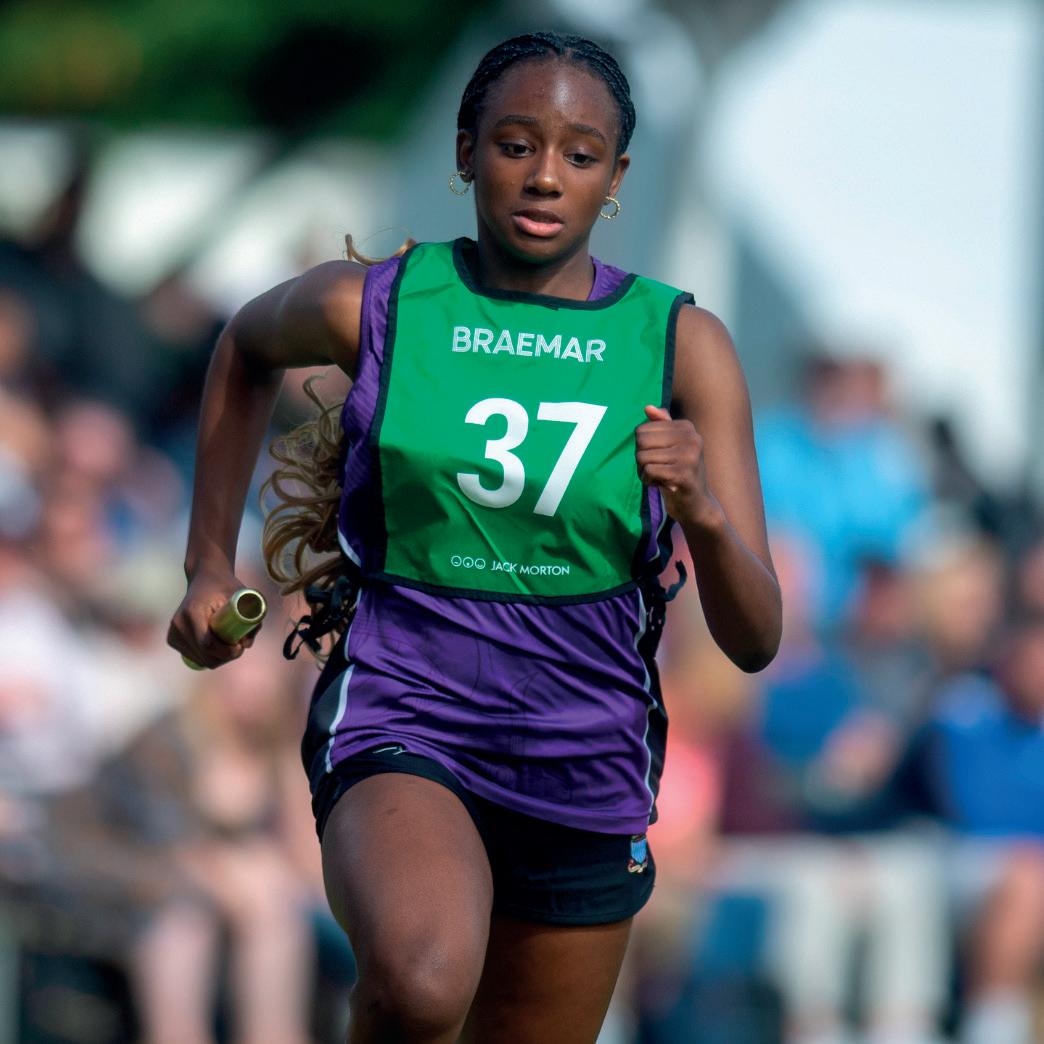
Preparing for 21st century life
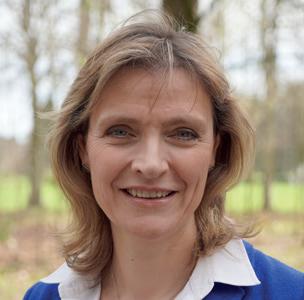
Boarding schools understand that a good all-round education pays dividends for the rest of someone’s life. LISA KERR, Principal at Gordonstoun, reports.
THE COVID-19 pandemic pushed us all to our limits. When you were desperately trying to keep your business afloat, your family safe and happy, or tearing your hair out at ever-changing social and travel restrictions, what skills did you call upon? Hopefully those days feel a little distant now, but this question remains a pertinent one. And I suspect your strength of character and resilience were just as important as your intellectual knowledge. We all had to dig deep.
UK boarding schools are renowned for the standard of education they provide, but the pandemic demonstrated the importance of ‘character education’, and Gordonstoun was the true pioneer. The school motto, ‘Plus est en vous’ or ‘There is more in you’, is as relevant today as when visionary educationalist Dr Kurt Hahn founded the school in 1934.
Hahn’s vision was for young people to be challenged to develop skills for life, such as resilience, responsibility and compassion. Some inaccurately depict this as a tough regime of cross-
country running and cold showers. But in reality, pupils learn teamwork on our ocean-going sail training vessel, develop resilience on Highlands expeditions and grow a strong sense of community service by volunteering as lifeguards or Coastguard members.
Boarding schools offer young people so many opportunities to develop skills that will help them face life’s ups and downs. Life is not plain sailing, but failing at one aspect does not make you a failure. Challenging young people helps them to learn that moments of weakness are

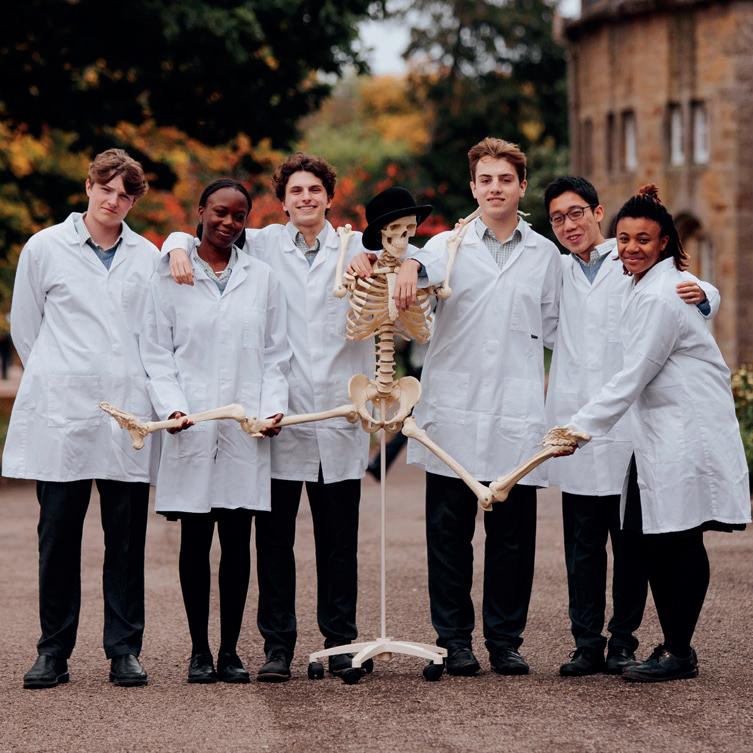

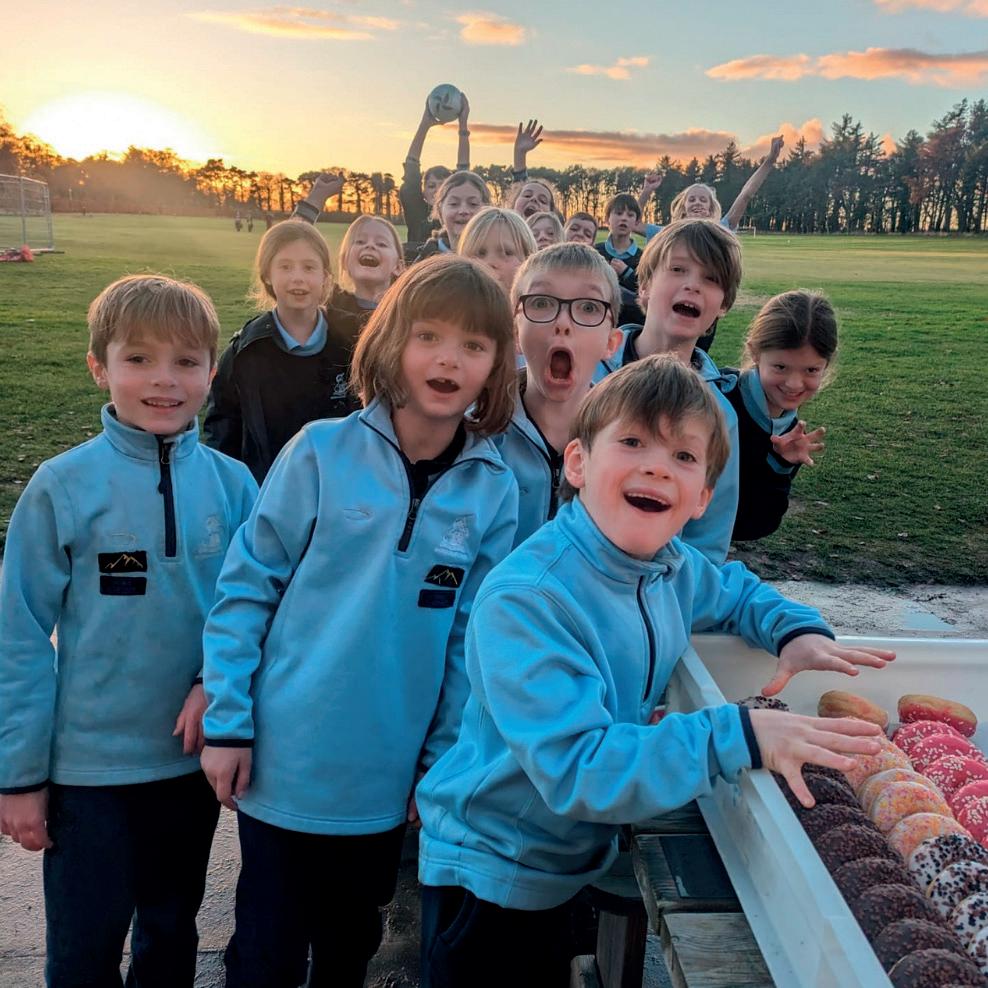


normal, and that they need to support each other to reach the best outcome.
Several members of staff in our volunteer Fire Service work alongside pupils on emergency calls. They will tell you how, on several occasions, pupils kept them going through a long night pumping flood water out of homes or fighting hill fires. Staff have experience but pupils have youthful energy – joint skills that make a winning combination.
Boarding schools also give young people the experience of living and learning beside each other, with students from different countries, cultures and socio-economic backgrounds. They learn compassion, understanding and grace, allowing themselves to care for, and be cared for, by their peers, being patient with younger pupils and respectful of older ones. They are compelled to a constructive level of independence and self-sufficiency, under the watchful eye of dedicated and trained staff. The added bonus is creating strong bonds and friendships that last a lifetime
IMPORTANT CHALLENGES
HRH The Duke of Edinburgh recognised the importance of challenge. In 1954, after
his time at Gordonstoun, Kurt Hahn asked him to consider the idea of a national programme to support young people’s development. The Gordonstoun School award was eventually developed into the Duke of Edinburgh’s (DofE) Award, giving millions of young people worldwide the opportunity to take on life-changing challenges.
The pandemic and of all that has happened globally since then shows us how we can take nothing for granted. Young people also need to navigate the positives and pitfalls of social media in an online world. Parents increasingly ask boarding schools for their children to escape such pressures to have a “real childhood”. As well as providing real rather than virtual experiences, boarding schools can show young people how to control their digital lives, and the great benefits of life away from screens. Gordonstoun’s new mobile phone policy has been embraced with surprising enthusiasm by the very people you might imagine would be most resistant to it!
I can tell you from personal experience that when you are on a sailing boat in the middle of a gale off the west coast of
Scotland, there is no time to update your profile, and little point worrying about your appearance! The deep and meaningful friendships made during these experiences last a lifetime, not just the duration of a few ‘likes’.
There will always be tests of character, both personal and professional. Society needs leaders who are not only confident but also resilient and compassionate. If a disproportionate number of tomorrow’s influential individuals come from boarding school backgrounds, it will be because we know how to bring out the best in every child, equipping them with skills to navigate an uncertain world.
□ Lisa became Gordonstoun’s first female Principal in 2017. She has a degree in music, a 20-year career in media and business, and ten years on the Gordonstoun Board of Governors. Lisa has three children, represents the county of Moray at events as one of its Deputy Lord Lieutenants, and was the founder conductor of Moray’s premier chamber choir, The Lantern Singers. In 2025 she will become the fifth Principal of George Watson’s College in Edinburgh.
SENIOR SCHOOLS Spring 2024 | 79


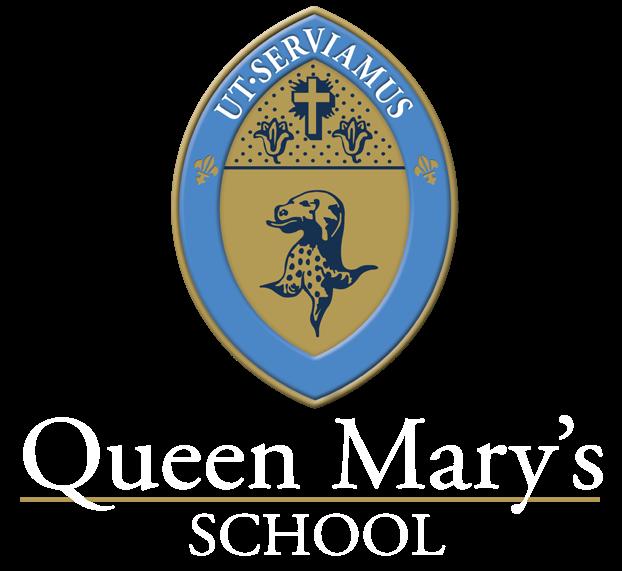
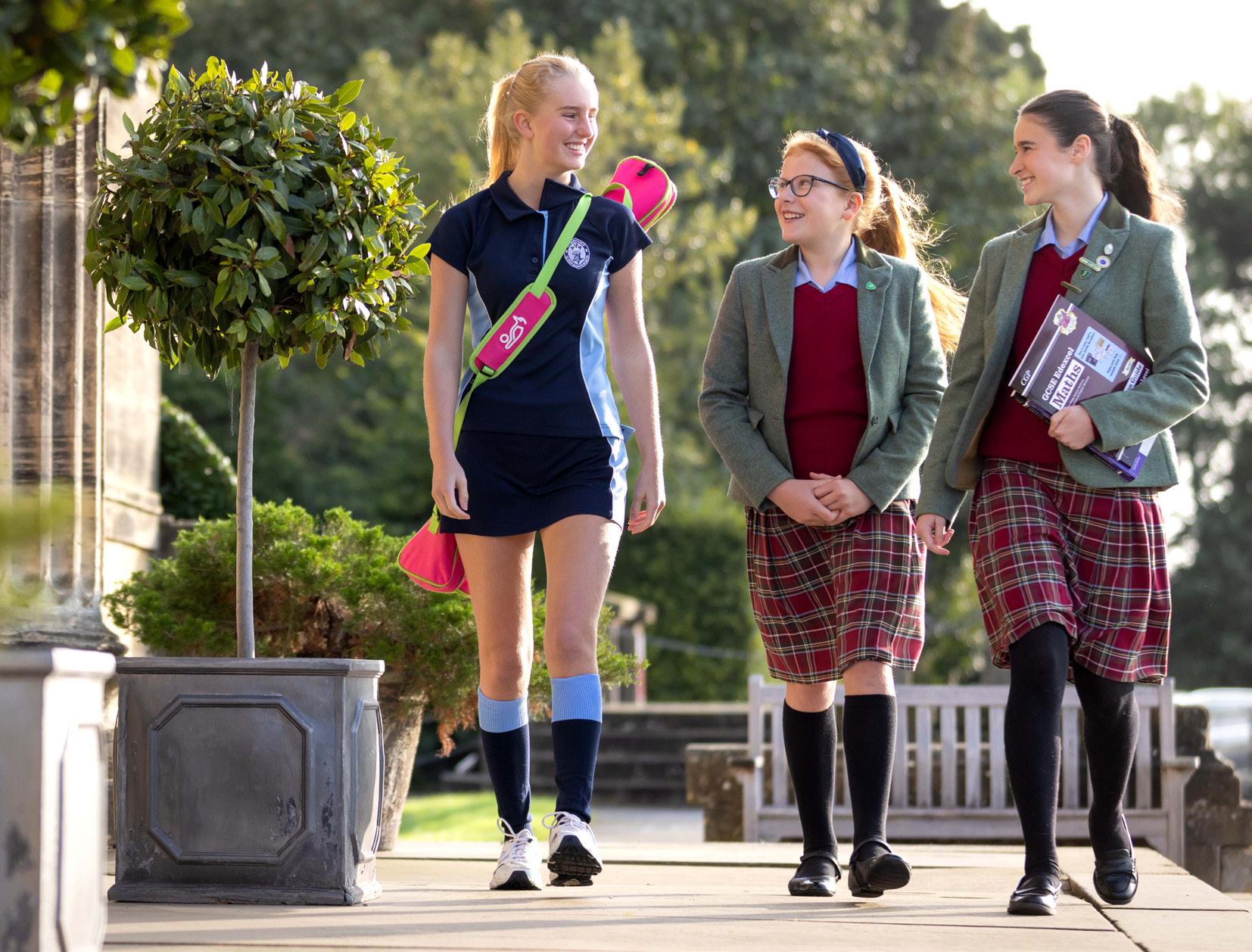
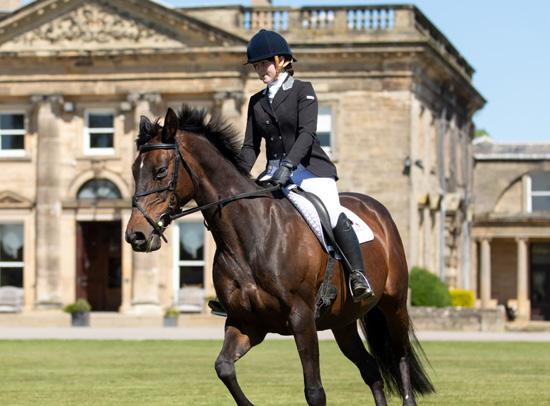
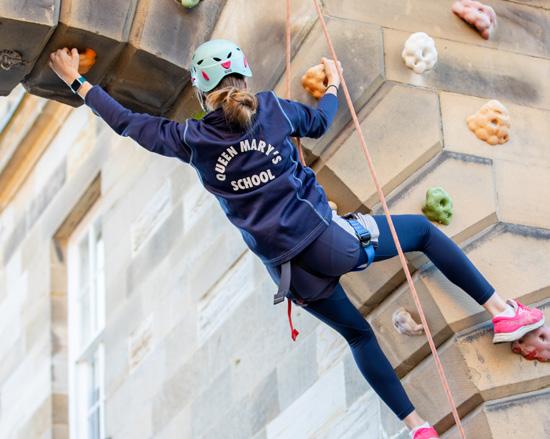
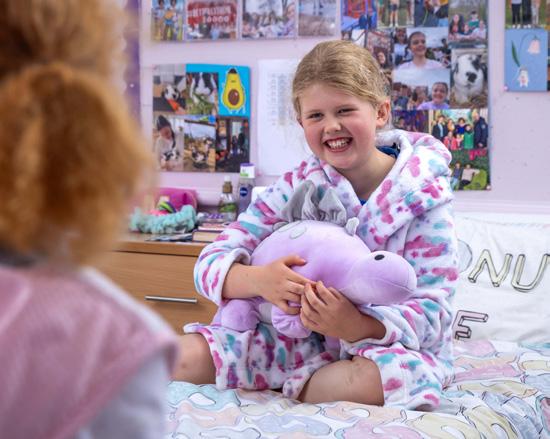
With continuous and outstanding education, the Haberdashers’ Advantage will enhance your child’s knowledge — offering mentoring, training and access to the Haberdashers’ network for life. Welcoming families who are eligible for CEA. Introducing the Haberdashers’ Advantage; with you for life Discover more about Forces Bursaries*; contact us today! Habsmonmouth.org/contact * This applies to Service Families who are eligible for the Continuity of Education Allowance, entering the School 2024/25. Additional means-tested support, subject to availability, may be offered to families not eligible for CEA. © 2023 Haberdashers’ Monmouth School | Registered Charity No.525616 Your child’s own adventure Day, flexi, weekly and full boarding available. Girls aged 3 – 16 and boys aged 3 – 8. CEA availableFunding and 10%DiscountMilitary Call 01845 575000 admissions@queenmarys.org Academic excellence and fantastic opportunities in a nurturing and stable environment minutes from the A1(M) 2024 January - Service Schools Advert.indd 1 01/02/2024 10:56
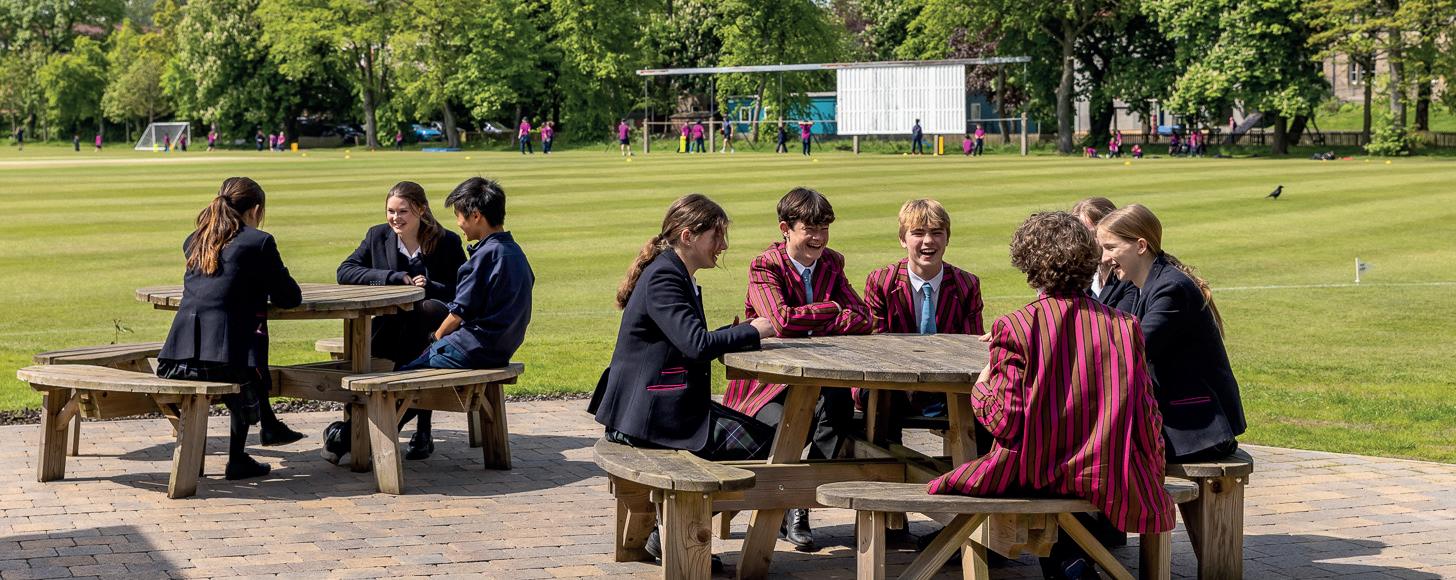
Individual nurturing and development
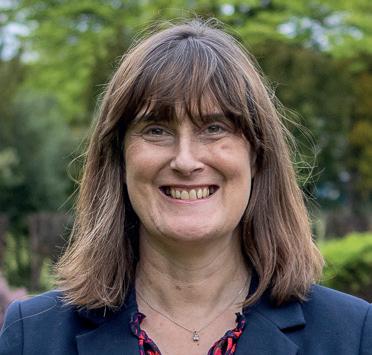
By choosing boarding, you add to your family, with key individuals helping to guide and nurture your child.
HELEN HARRISON, Head of Fettes College, explains more.
BOARDING schools provide pupils with the opportunity to develop important life skills in a supportive and nurturing environment. This enables them to leave school knowing themselves, looking out for others, thinking critically and aiming high. A boarding education also, of course, gives pupils the confidence to perform at their best academically.
As the Head of Fettes College, I see every day the benefits a boarding education can bring. For me, the key is that each pupil is truly known and therefore we can adapt and adjust our education and care to support each individual.
SECOND HOME
A boarding house is like a family – a closeknit group of staff and pupils looking after each other, helping, encouraging and simply being there when needed. All
teaching staff at Fettes do a duty night in a boarding house. This means everyone is involved in the boarding experience and strong relationships are built up. The resident house staff forge strong bonds with the students and will get to know your child as well as you do. By choosing boarding, you are adding to your family, with key individuals helping to guide and nurture your child alongside your own parenting. It is very much a team.
A full-boarding ethos nurtures and develops each pupil so they leave school with confidence, prepared for all the world has to offer and ready to make a positive mark. Full boarding offers pupils a chance to embrace new opportunities, making the most of their individual talents while surrounded by their friends. This is achieved in a supportive environment where pupils learn to be responsible for their own belongings and routines, build
independence, develop self-reliance and learn from their mistakes. Boarding houses are at the heart of school life and this is where pupils can make lifelong friendships and develop trust and loyalty.
A full-boarding ethos ensures weekends are vibrant and fun. For example, activities over one weekend at Fettes included a wide variety of sporting fixtures on the Saturday afternoon, followed by a wholeschool ceilidh (everyone at Fettes learns to Scottish country dance!) in the evening, a late Sunday morning brunch and then a walk up to Murrayfield to watch the Scotland v All Blacks rugby international. Some pupils went on that day’s outdoor pursuits event in the hills, some trained for the Fettes Scottish Islands Peaks Race team, while others accessed the beautiful city of Edinburgh in a safe and controlled way.
SENIOR SCHOOLS Spring 2024 | 81


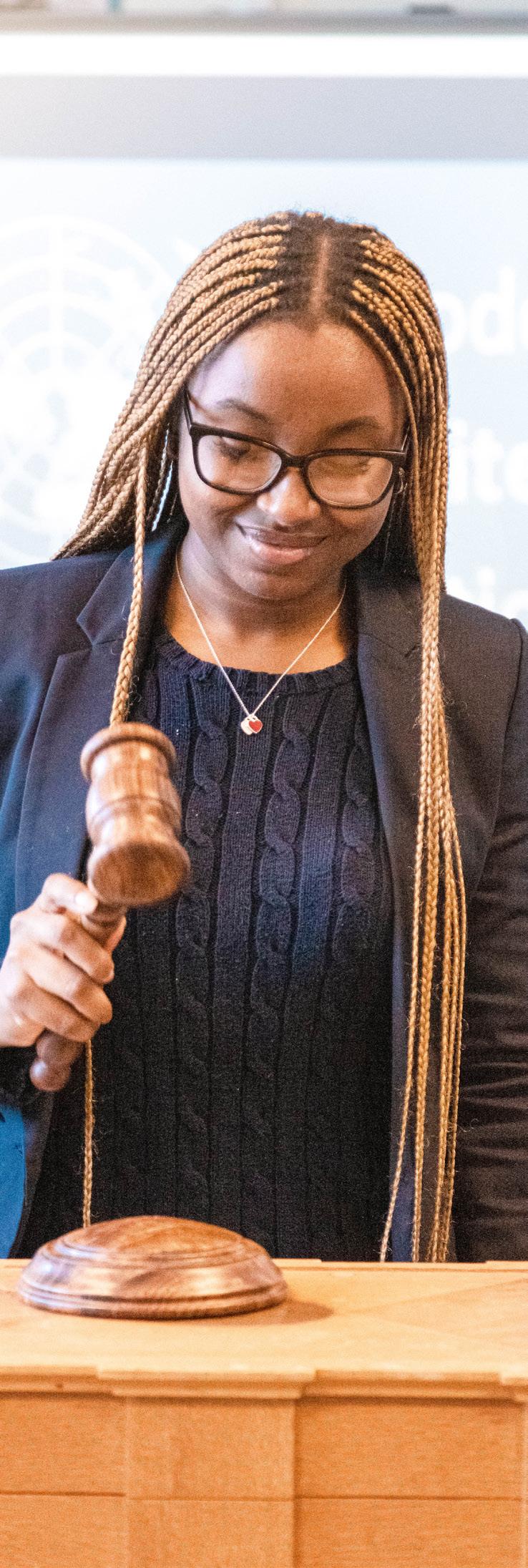
Whatever your background, whatever your story, we unearth potential in every child. Find your exceptional at Taunton School. Come to an open day to find out more.
LEFT- WINGER
LEAD- SINGER
YOUR EXCEPTIONAL
VOTE- WINNER
FIND
www.tauntonschool.co.uk /open-mornings
When considering boarding I would always ask a school these questions:
• What type of boarding is on offer? Flexi?
Weekly? Full?
What happens at weekends? This is clearly especially important if you are looking for the full-boarding experience.
How is boarding staffed? Is there a separate team or is everyone involved?
A secondary education should be exciting and full of opportunity. Boarding pupils are encouraged to stretch and challenge themselves. They learn not be afraid of failure, of trying new things or of forming their own opinions through informed choices. Pupils are encouraged to make the most of their talents and to discover talents they did not know they had.
At Fettes, a full sporting, music, drama, activity, and outdoor education programme means that opportunities abound.
Co-curricular activities available include a climbing wall, a 25-metre swimming pool, fives courts, an Olympic standard water-based hockey astro pitch, mountain-biking tracks, a robotics club, a ceramics club and Fettes Radio. Our new low ropes course provides a unique challenge in developing leadership skills, trust and the importance of working together as a team.
Wellbeing is at the forefront of everything we do – only happy and well-supported children truly flourish. We are proud of our proactive and forward-thinking PSE (Personal, Social and Emotional) programme. The core components of the programme are healthy relationships, pressures of the modern world, resourcefulness, decision-making and emotional resilience. The programme is developed in consultation with pupils. By making the most of external contacts, for example guest speakers from charities and alumni, and harnessing the enthusiasm of pupils themselves through our peer-to-peer mentoring programmes, we endeavour to provide pupils with the knowledge and support they need to flourish.
□ Helen grew up in Edinburgh where she was educated at St George’s School for Girls. She gained her Geography degree from Jesus College, Cambridge, and rowed for the university and her college. She taught English as a Foreign Language in Portugal before her first teaching post at Clifton College, Bristol. From 1996 she was a Geography teacher and Deputy Head at Fettes College, Edinburgh, becoming the first female Head in 2019. Her interests outside school include being Chair of the BSA/SCIS Boarding Forum. She loves spending time in her cottage in the Moffat Hills with her family and two dogs.



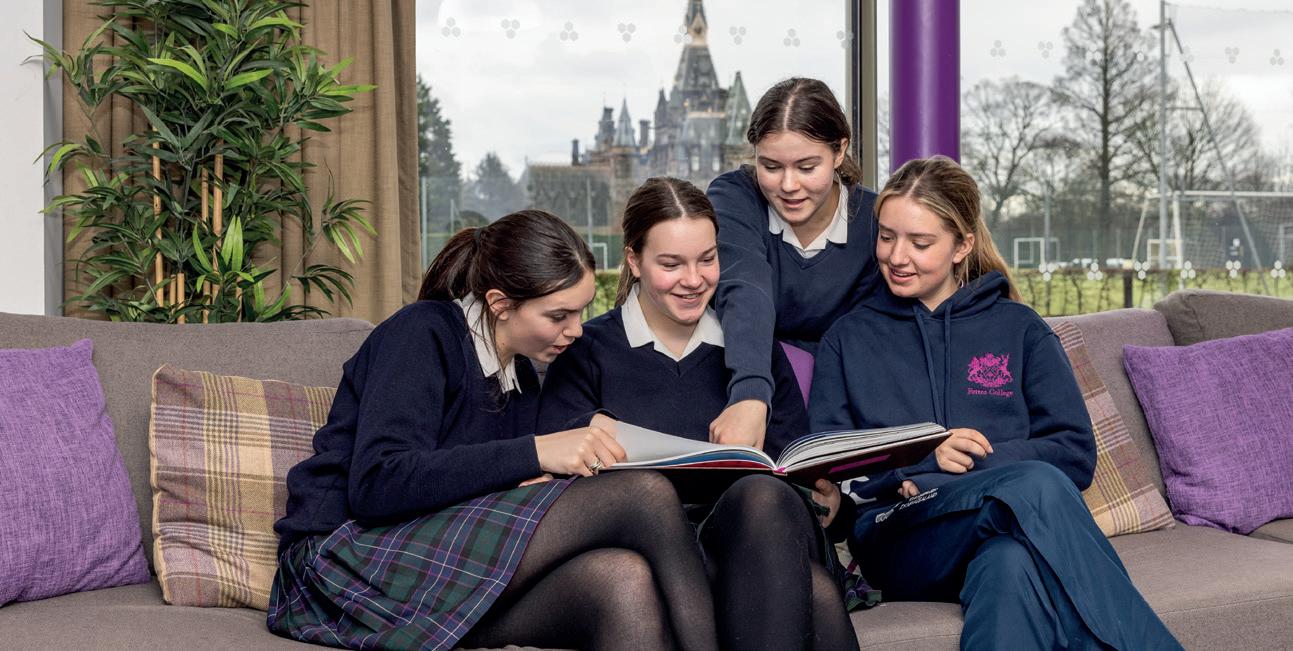

Spring 2024 | 83
SENIOR SCHOOLS
SPECIAL EDUCATIONAL NEEDS AND DISABILITIES
Providing for special educational needs
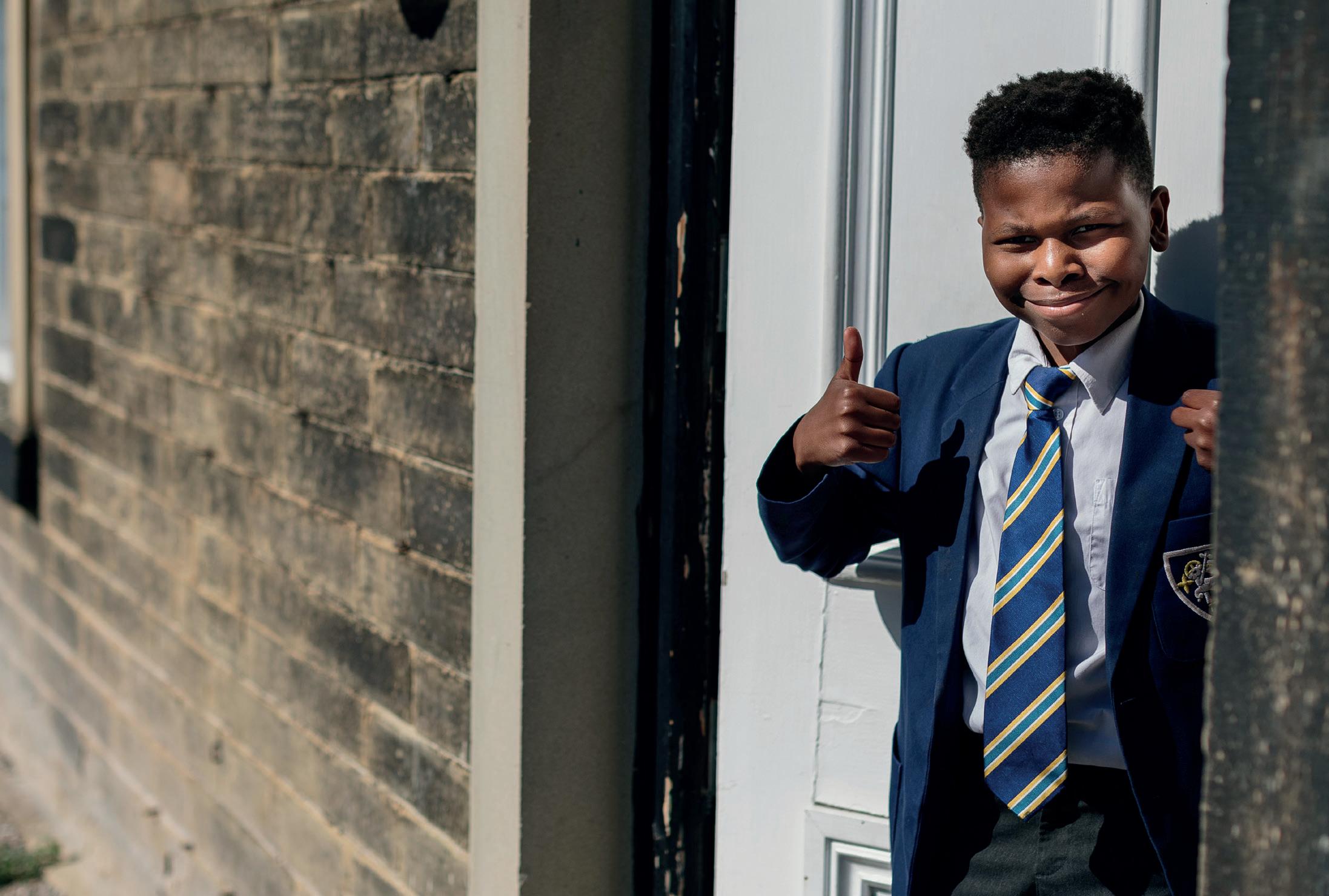
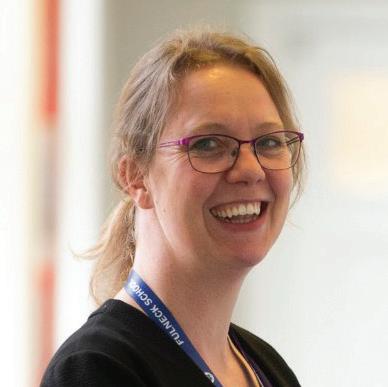
The right boarding school can work wonders for a child with additional needs.
SALLY MOORE, Head of Learning Support at Fulneck School, reports.
SCHOOLS across the UK have been inundated with increasing numbers of children with significant special educational needs (SEN) since Covid. Parents are increasingly exploring independent alternatives to state schools, where they feel their children cannot get the support they need. As a special educational needs coordinator at an independent school, I have seen requests for Education, Health and Care Plan (EHCP) placements rise exponentially.
WHY BOARDING?
The right boarding school can work wonders for a child with additional needs. For autistic young people, the transition from home to school can be very difficult, and they can often struggle with the demands of homework. By staying in a boarding house, young people can avoid the daily transition, the often lengthy commutes and keep school work very much at school. This means that key points of dysregulation can be avoided.
Young people with learning difficulties can benefit hugely from a boarding environment, including the dedicated
support available for each pupil, tailored to individual needs. There are opportunities for focused tuition and the support of trained staff for homework or study. The continuity of a school’s clear expectations into evening prep can support time management and help more vulnerable learners develop good study habits.
DEDICATED LEARNING
Fulneck School is an independent boarding and day school with a dedicated learning support unit (LSU). It has met the criteria of the Council for the Registration of Schools Teaching Dyslexic Pupils (CReSTeD) continually since 1996. Fulneck is approved under Category LSC (Learning Support Centre) as a school offering an LSU, with specialist tutors to accommodate pupils’ needs in the classroom.
The aim of Fulneck’s LSU is to identify individual special needs and to provide teaching programmes and strategies to allow every student access to the curriculum. Tuition is in small groups or delivered one-to-one by experienced and specialist teachers, with a range of multisensory teaching methods and technology. We focus on using assistive technology,
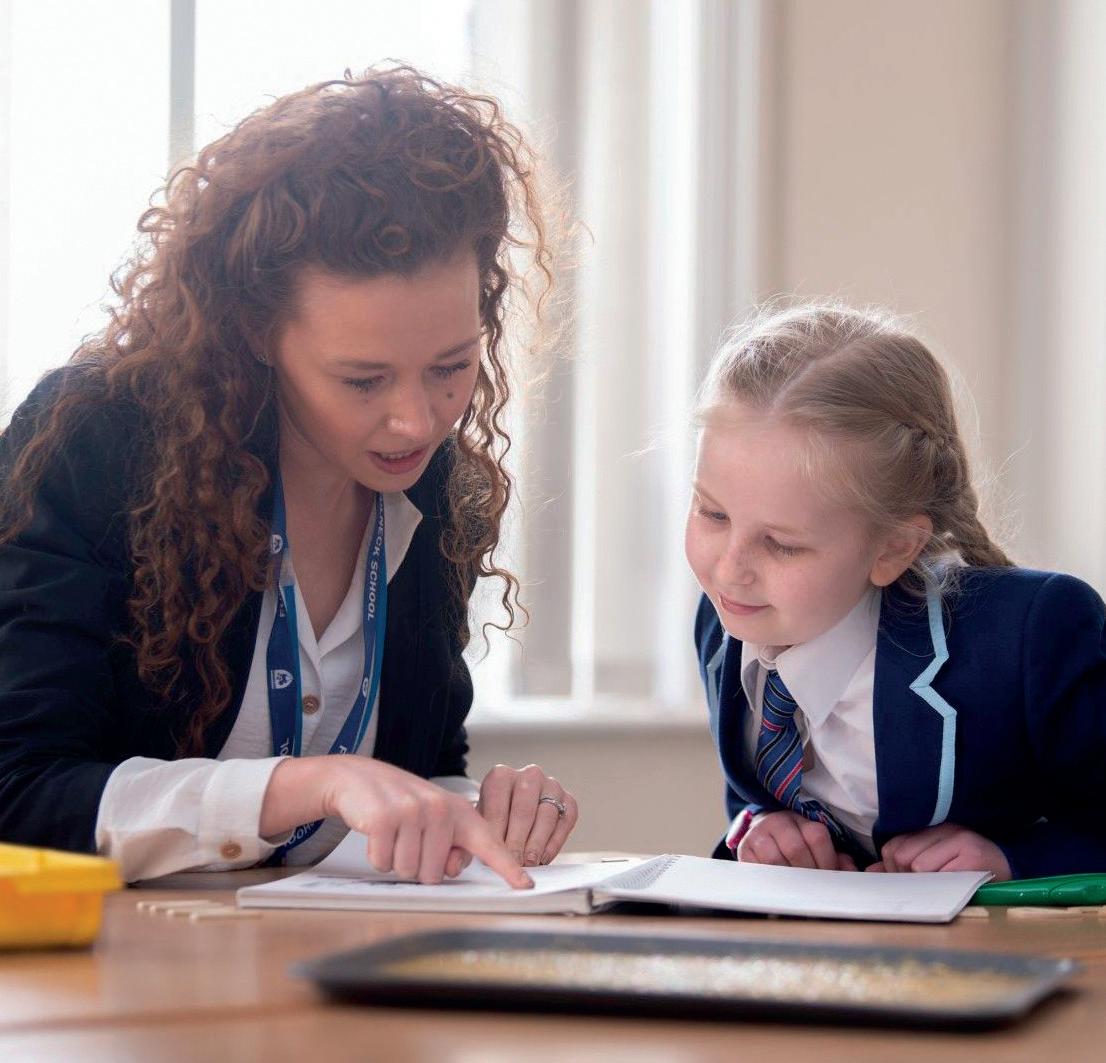
particularly the use of e-reader software to enable dyslexic students to independently access text, effectively checking and editing their own work.
In September 2022, Fulneck School opened our specialist autism provision, named Soteria after the Greek goddess of protection and safety from harm. Soteria aims to support autistic learners to access a rounded education, meet their potential and enter the world as resilient, independent young people who are proud of their achievements. Acting as a safe space and staffed by our specialist team, Soteria has teaching areas, sensory rooms and mentoring spaces.
It is the form room for our Soteria Scholars, who are academically ambitious autistic students needing a bit more support to manage the school’s social demands. With a little extra nurturing and the safe space to come back to, our Soteria Scholars are excelling academically, with friendships both in the unit and the wider school. They make the most of every opportunity and, importantly, they are proud of their identify as neurodivergent learners and
are great ambassadors for our school. In boarding schools, pupils with special educational needs and disabilities (SEND) can also be supported outside the classroom, leading to better social interaction and confidence.
The nature of a boarding school environment means staff get to know each child as a unique individual. Boarding schools also offer pupils a choice of co-curricular clubs and activities to help develop new interests and boost self-esteem.
Boarding in the right environment can provide young people with a taste of independence, the first step towards independent living for young people on the cusp of adulthood. We have found that a flexi-boarding approach has enabled some more vulnerable students to flourish, often surprising themselves with how much they can do when away from home.
Choosing the right school is a critical decision with far-reaching consequences, and it requires thorough research. Parents should carefully check a
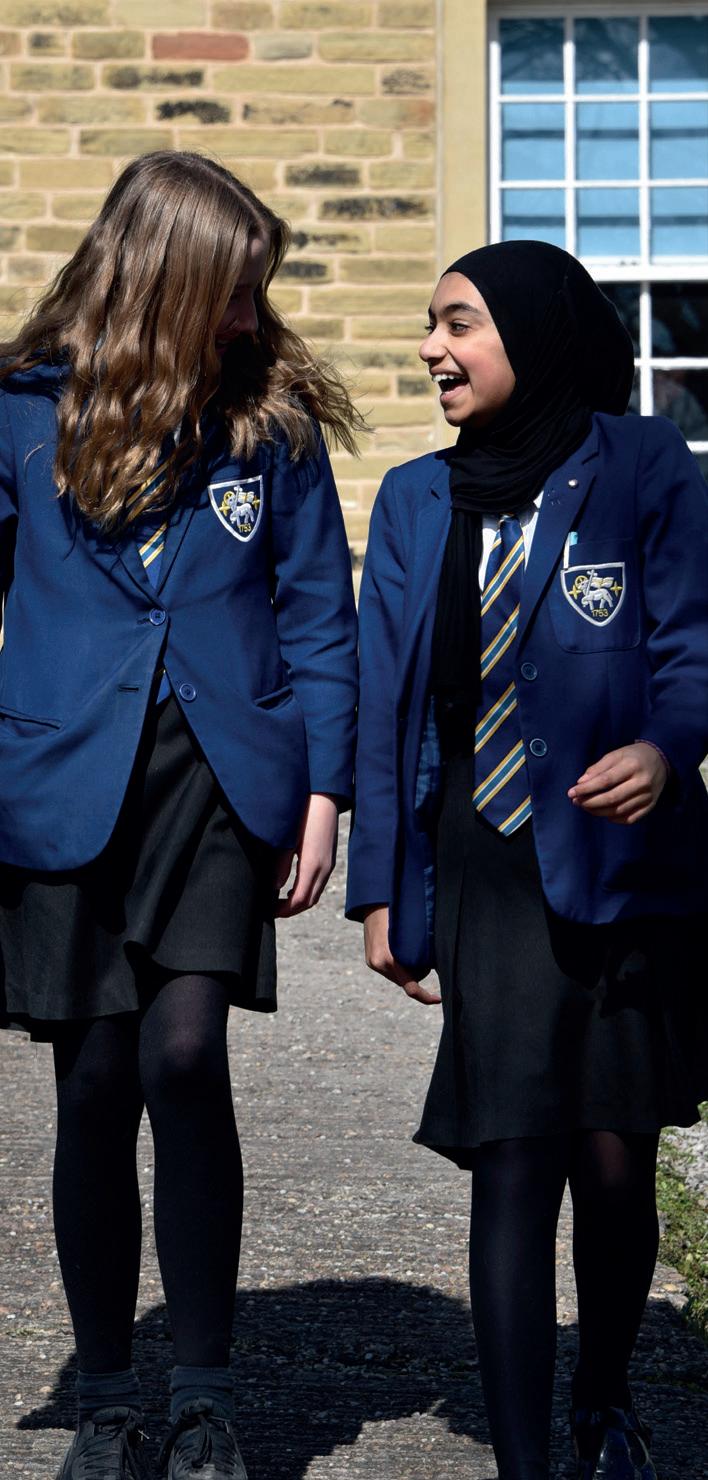
schools’ SEND provision and gain a clear understanding of conditions they specifically cater for, how they do this and how many students they have supported with similar needs. It is important to visit the school and meet the SEND and boarding team. This allows potential parents and pupils the opportunity to gain a true appreciation of the environment, teaching methods, ethos and attitudes to SEND. Making the correct choice and giving children access to a fulfilling boarding experience can be lifechanging for pupils with SEND and enable them to truly flourish.
□ Sally began her teaching career as a VSO volunteer teaching English in Kiribati. She has taught in many different countries and once spent a summer teaching flying trapeze at an American summer camp. Sally joined Fulneck School as Head of Learning Support in 2019. She loves the family feel of the school and the way the adults know the children so well. In the learning support unit she is able to implement learning in the best way to suit each individual pupil.
SPECIAL EDUCATIONAL NEEDS AND DISABILITIES
Spring 2024 | 85
How CReSTeD helps boarding families


CReSTeD is a valuable resource for parents, educational advisers and schools. BRENDAN WIGNALL, Headmaster at Ellesmere College and Chair of CReSTeD, reports.
THE Council for th e Registration of Schools Teaching Dyslexic pupils (CReSTeD) is a charity set up in 1989. It aims to help parents and those who advise them to choose schools for children with Specific Learning Difficulties (SpLD). It is a valuable resource for parents, educational advisers and schools, acting as a source of information f or parents.
The main SpLD is dyslexia, but dyslexia rarely exists in isolation. The latest research demonstrates a high level of co-occurrence with other difficulties including dyspraxia, dyscalculia,
attention deficit disorder (ADD), as well as pragmatic and semantic language difficulties.
The CReSTeD Council includes representatives from a wide area of SpLD provision including Dyslexia Action, the British Dyslexia Association, Helen Arkell Dyslexia Centre, the Dyslexia-SpLD Trust and schools.
THE REGISTER
CReSTeD publishes the Register, an annual list of both state and independent schools and centres accredited for their provision for pupils with one or more SpLD. The vast
majority of schools on the Register are mainstream, offering a wide range of teaching styles, environments and facilities. The Register is free of charge to parents. SpLD provision is divided into six broad categories. Of these, five are for schools:
• Dyslexia Specialist Provision (DSP) schools established primarily to teach pupils with Dyslexia.
• Learning Support Centre (LSC) schools with designated units providing specialist tuition on a small group or individual basis, according to need.
• Maintained Schools (MS), local authority schools able to demonstrate an effective system for identifying pupils with dyslexia.
• Specialist Provision (SPS) schools specifically established to teach pupils with dyslexia and other related SpLDs.
• Withdrawal System (WS) schools which help dyslexic pupils by withdrawing them from appropriate lessons for specialist tuition.
The remaining category is called Teaching Centre (TC), noting a designated centre providing specialist tuition on a small group or individual basis, according to need.
The categories give guidance on the type of provision offered by a school. One category should not be seen as ‘better’ than another. Children have different requirements and personalities and the categories help to match each child to the type of provision needed. A report from an educational psychologist or a specialist teacher who holds an Assessment Practising Certificate should offer parents guidance on the level of provision their child requires.
For example, a child at the severe end of the dyslexia spectrum may require a DSP school, whereas a child with only some slowness in spelling skills may be suitably provided for in a school from the WS category. The Register includes a checklist to help parents decide whether a school or centre can meet their child’s educational needs in relation to SpLD. It also provides a geographical index.
CRESTED CRITERIA
Every school and centre on the CReSTeD Register has been independently verified for SpLD provision by CReSTeD consultants, which is not the case for all other lists. Schools must complete the CReSTeD registration form and provide supporting documentation, such as dyslexia policies. This form covers staff development, admission policy, organisation of the school week, specific arrangements for SpLD pupils, and examination results for the whole school. For SpLD pupils in particular, the form cover resources and includes parents’ details so the consultant can gain feedback about the school or centre.
The criteria include the provision of relevant and high quality information technology resources, and Joint Council for Qualifications (JCQ)-approved training qualifications for teachers. Also included is the awareness of dyslexic pupils’ needs on the part of non-specialist staff, and arrangements to obtain and provide special provision for examinations.
During a visit to a school or centre, the consultant checks whether this information is accurate and ensures the school or centre meets the criteria set by CReSTeD Council. Schools and centres are visited on a three-year cycle, with possible earlier visits if there are substantial changes, which should always be swiftly communicated to CReSTeD. If the head of a CReSTeD school changes, the school must inform CReSTeD and the new head must confirm that the school intends to continue with the SpLD provision in accordance with the CReSTeD

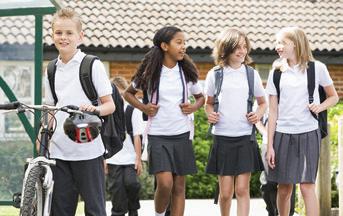
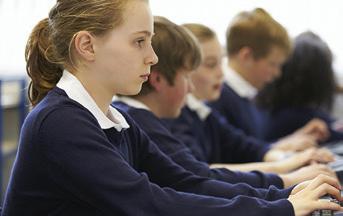

Council for the Registration of Schools Teaching Dyslexic Pupils
Our aim is to help parents, and also those who advise them, to choose an educational establishment for students with Specific Learning Difficulties (SpLD). Schools and centres listed in the CReSTeD Register are accredited for their SpLD provision.
We offer:
• For schools / teaching centres, a visit by a consultant to assess your provision against our specific criteria.
• For parents, a free Register of schools and teaching centres approved for their SpLD provision.
For further information regarding accreditation or for a free copy of our Register please contact CReSTeD via email: crested.admin@crested.org.uk
Registered charity no. 1052103
criteria. This enables CReSTeD to retain the school’s details in the Register without the need for an extra visit.
CReSTeD Council initiates ‘responsive’ visits if it has any cause for concern about a particular school.
ONLINE HELP
The CReSTeD website www.crested.org.uk contains all the information in the Register. It is updated when new information is received, or when new schools are approved. It also contains links to registered schools and centres’ websites, ands to other websites that may be helpful to parents of children with one or more SpLDs.
For further information email admin@crested.org.uk


□ Brendan sadly passed away just as this magazine was going to press. Our sincere condolences have been sent to his colleagues and family. Brendan was Headmaster of Ellesmere College from 1996 until his death, and was Chair of CReSTeD. After teaching English at Oakham and Christ’s Hospital, Brendan became Head of English and Registrar of Denstone College. His main interests were his family, Ellesmere, Liverpool FC, gardening and culture.
SPECIAL EDUCATIONAL NEEDS AND DISABILITIES Spring 2024 | 87
Provision in the independent sector for pupils with special educational needs and disabilities
Pupils with SEND continue to be very well educated within the independent sector and this is undoubtedly one of the sector’s strengths. Many parents of children with special educational needs and disabilities take them out of the maintained sector because the class sizes are too big and they feel there is not enough individual support. The independent sector offers a range of choice not available within the maintained sector. Specialist Provision Schools (SPS) are approved for specific learning difficulties, with associated language difficulties, such as dyspraxia and attention deficit hyperactivity disorder (ADHD).
Dyslexia Specialist Provision Schools (DSP) are established primarily to teach pupils with dyslexia. There are also mainstream boarding schools with designated units or centres providing specialist tuition on a small group or individual basis. In January 2015, 66,026 pupils (33,311 boarders) were identified as having SEND. The most common SEND is dyslexia (321,169) followed by information processing (9,053), dyspraxia (5,459), gross and fine motor skills (3,720) and Asperger’s syndrome (3,597). The table below lists independent boarding schools on the CReSTeD Register providing support for pupils with SEND.
Independent boarding schools on the CReSTeD Register providing support for pupils with SEND Specialist Provision Schools (SPS) are approved for specific learning difficulties, and associated language difficulties, dyspraxia and ADHD.
Category School Town Website
SPS Appleford School Salisbury www.applefordschool.org
SPS More House School Farnham www.morehouseschool.co.uk
Dyslexia Specialist Provision Schools (DSP) are established primarily to teach pupils with dyslexia.
Category School Town Website
DSP Bredon School Tewkesbury www.bredonschool.org
DSP Bruern Abbey School Chesterton, Oxfordshire www.bruernabbey.org
DSP Frewen College Rye www.frewencollege.co.uk
DSP St David’s College Llandudno www.stdavidscollege.co.uk
Some mainstream boarding schools have a designated unit or centre providing specialist tuition.
School Town Website
Barnardiston Hall Preparatory School Barnardiston, Suffolk www.barnardiston.com
Bedstone College Bucknell, Shropshire www.bedstone.org
Bethany School Cranbrook, Kent www.bethanyschool.org.uk
Brockhurst & Marlston House Schools Newbury, Berkshire www.brockmarl.org.uk
Clayesmore Preparatory School Blandford Forum, Dorset www.clayesmore.com
Clayesmore School Blandford Forum, Dorset www.clayesmore.com
Cobham Hall School Cobham, Kent www.cobhamhall.com
Ellesmere College Ellesmere, Shropshire www.ellesmere.com
Finborough School Stowmarket, Suffolk www.finboroughschool.co.uk
Fulneck School Leeds, West Yorkshire www.fulneckschool.co.uk
Kingham Hill School Chipping Norton, Oxfordshire www.kinghamhill.org.uk
King’s School Bruton, Somerset www.kingsbruton.com
Kingsley School Bideford, Devon www.kingsleyschoolbideford.co.uk
Kingswood House School Epsom, Surrey www.kingswoodhouse.org
Lime House School Carlisle, Cumbria www.limehouseschool.co.uk
Millfield School Street, Somerset www.millfieldschool.com
Millfield Preparatory School Glastonbury, Somerset www.millfieldprep.com
Slindon College Arundel, Sussex www.slindoncollege.co.uk
Tettenhall College Wolverhampton, West Midlands www.tettenhallcollege.co.uk
Walhampton School Lymington, Hampshire www.walhampton.com
Wycliffe College Preparatory School Stonehouse, Gloucestershire www.wycliffe.co.uk
Wycliffe College Stonehouse, Gloucestershire www.wycliffe.co.uk
Special educational needs

Pupils with disabilities and special educational needs benefit from two distinct, and at times overlapping, protections.
DAVID SMELLIE,
WHEN pupils have disabilities and special educational needs, they may qualify for support from their local authority where they live via an Education Health and Care Plan (EHCP), formerly known as a ‘statement’.
Parents should discuss possible application for such a plan with their child’s school or prospective school. But they should bear in mind that securing additional resources through such a plan frequently requires a struggle, and sometimes a legal battle, with cash-strapped local authorities seeking to protect their funds. Failing an EHCP, parents may be able to secure reasonable adjustments, additional support and auxiliary aids and services from the school itself, whether maintained or independent.
There is a limit to how far individual schools have to go, and to start with it is worth pointing out the exceptions. Schools are not required to alter physical features of buildings. Nor are schools prevented from applying selective entry tests (known as a permitted form of selection), although they may have to make reasonable adjustments to cater for disabilities, such as extra time or use of laptop.
It is also the case that whilst the definition of disability tends to be interpreted quite broadly in pupil cases,
Partner at Farrer & Co, reports.
certain conditions such as substance dependency, seasonal allergies, tendencies to steal, start fires, physically or sexually abuse, exhibitionism and voyeurism were originally excluded from the definition of disability in the Equality Act. However, a recent case has determined that some or all of these exclusions may be incompatible with the European Convention on Human Rights and should therefore not be applied by the court.
Assuming, however, that none of the exclusions are found to apply, the critical question to ask is whether the disability places the pupil at a “substantial disadvantage”. If it does, then the reasonable adjustment duty is triggered, the purpose of which would be to eliminate or reduce the substantial disadvantage suffered. Reasonableness in these cases can take in various considerations from the cost and practicability of the adjustment to the interests of other pupils, and the need to maintain academic, behavioural or other standards. Ultimately, the school will need to demonstrate that whatever decision it reaches is a proportionate one in all the circumstances.
In the recent case of Ashdown House School v JKL, the court held that exclusion of a child with ADHD who had been violent towards some of his peers was not proportionate. In other
words, the school could have realised its objectives by adopting a less severe disciplinary action.
Parents who believe that their children are not receiving the support they justify, whether from their local authority or from their school, can seek legal redress via the First Tier Tribunal. The law and procedure is different depending on whether the claim is against the local authority or the school. In both cases, the Tribunal is able to order that additional support be provided – either via an EHCP or through reasonable adjustments to the educational provision.
The Ashdown House case referred to above also established the capability of the First Tier Tribunal to order reinstatement in the case of a child expelled from an independent school where disability discrimination is made out.
For more information, visit www. gov.uk/children-with-specialeducational-needs
□ David has an extensive schools practice and is widely acknowledged as one of the leading schools lawyers in the UK. He specialises in child protection, safeguarding, pupil disciplinary matters, SEND and schoolsrelated employment issues for a client base that includes many of the UK’s best-known schools.
SPECIAL EDUCATIONAL NEEDS AND DISABILITIES Spring 2024 | 89
CURRICULUM CHOICES
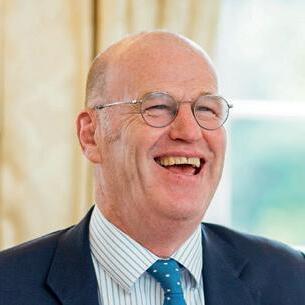
Children and parents face multiple acronyms and jargon when choosing exam subjects at school. ANDREW HOBBS, Head at Downside School, explains the detail and provides top tips on choosing what to study.
Studying for GCSEs and IGCSEs
THE UK education system includes studying a broad range of usually between seven and 11 subjects for examination in Year 11, at the aged of 16. This remains a highly valued way of assessing children’s education and a uniform platform for assessment, while at the same time preparing pupils for the world of work or higher education. GCSEs are recognised across the world as rigorous examinations which indicate pupils’ abilities across a range of subjects and skillsets fundamental to life beyond school.
The classic boarding school education, including studying for GCSEs, is much valued internationally, and is one of the reasons for the continued popularity of UK boarding schools with pupils and parents from the UK and all over the world. GCSEs are seen as academically rigorous across the world and they stand
up well internationally. The US High School Diploma roughly equates to five GCSE passes (at grade 5) and GCSEs are similar to the Chinese High School Entrance Exam (HSEE or Zhongkao), although the UK continues to offer a wider range of optional subjects.
Compulsory subjects for GCSEs and IGCSEs are English, Mathematics and the Sciences (either taken as three separate GCSEs, Biology, Chemistry and Physics, or as two GCSEs called Combined Science). There is a huge range of optional subjects on offer. At Downside, most pupils take nine or ten GCSEs with Modern Foreign Languages being popular, as well as Humanities, Music, PE, Computer Science, Art and Design. Downside is a Roman Catholic school and, as such, all pupils take Religious Studies. Other subjects taken include Russian and First Language Chinese. IGCSEs traditionally cater for international pupils and so there are a
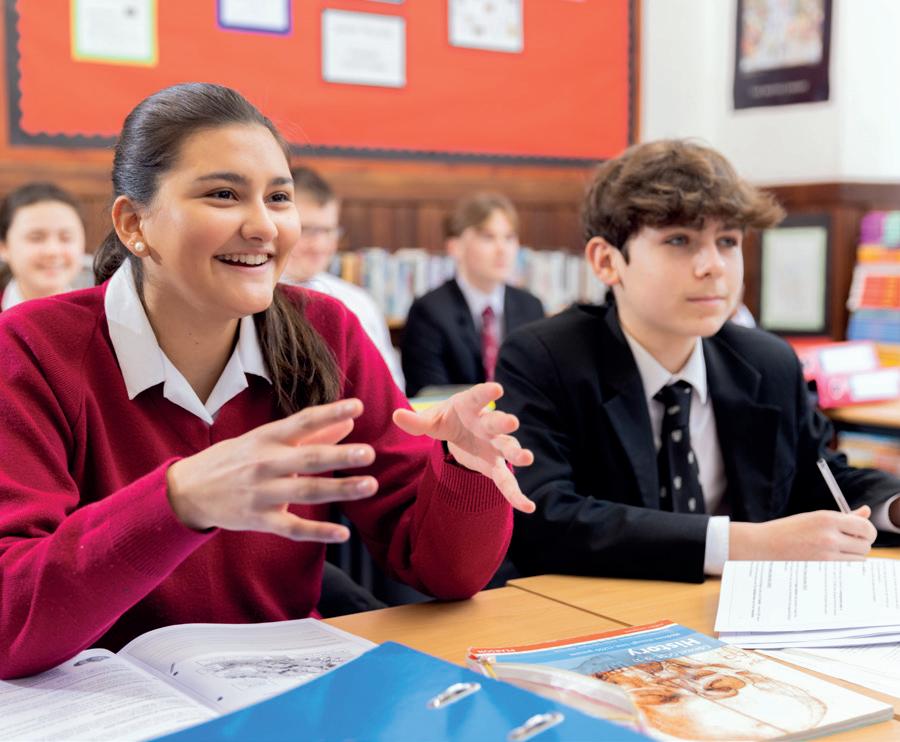
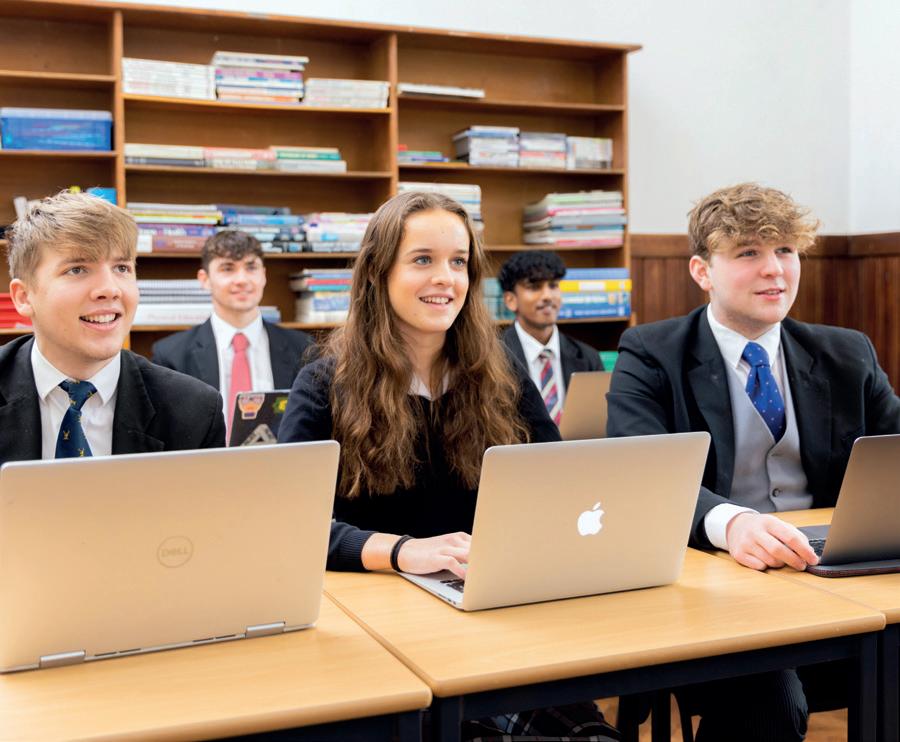
wider range of subjects globally, offering everything from Accounting to Swahili.
EXPLAINING JARGON
Terminology and acronyms surrounding education are ever-increasing, and GCSEs and IGCSEs have not escaped this. The Department for Education sets the content to be studied at GCSE. The Office of Qualifications and Examinations Regulation (Ofqual) regulates qualifications and examinations across England and aims to maintain confidence in GCSE qualifications. It is a non-ministerial department and is independent of government, reporting to parliament. There are four different awarding bodies or examination boards: AQA, OCR, Pearson and WJEC/ Eduqas. These awarding bodies provide specifications for subjects offered at GCSE, and they are all members of the Joint Council for Qualifications (JCQ). JCQ helps to ensure parity between the different awarding bodies and aims to allow for
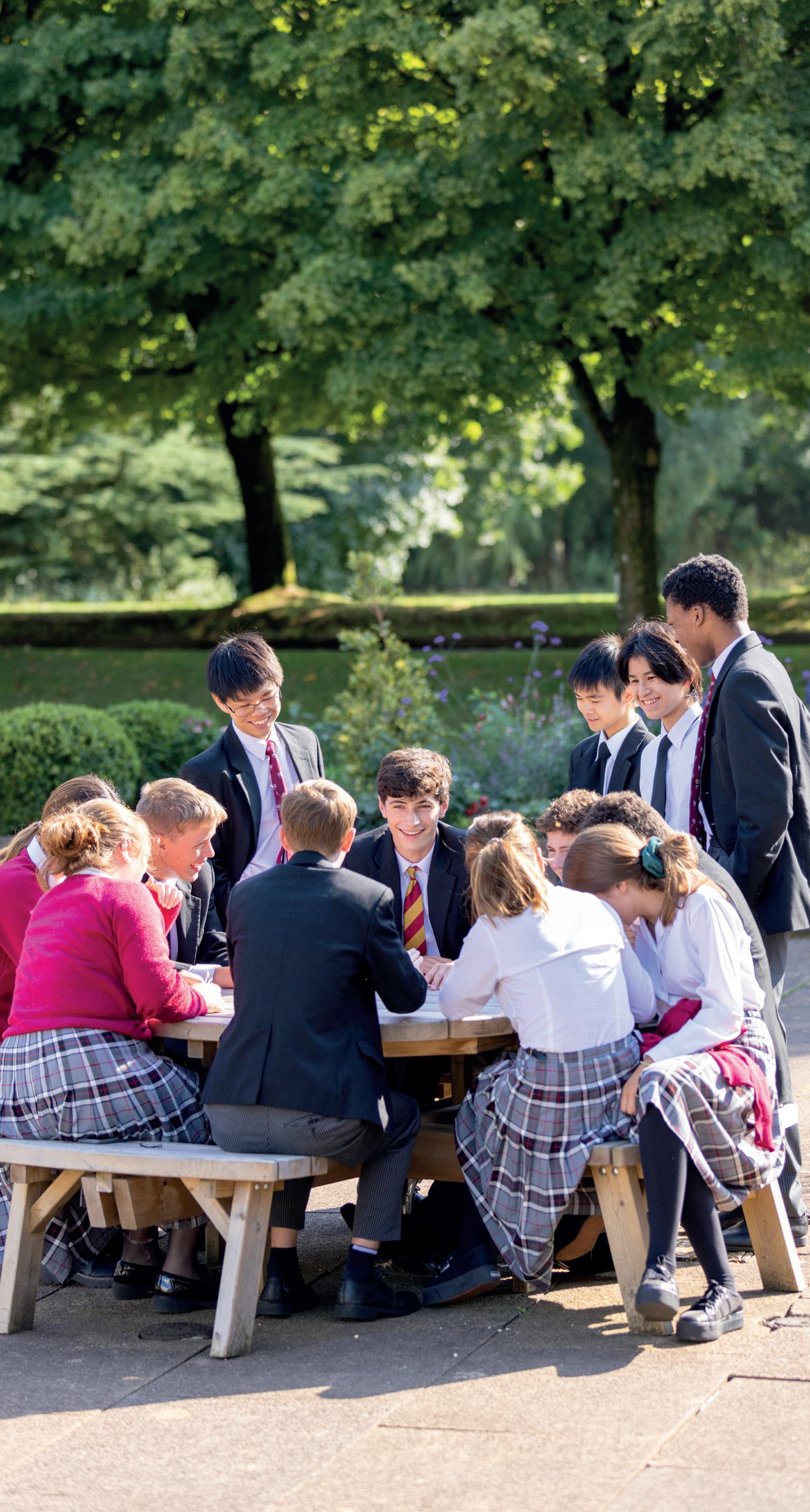
common administrative arrangements for schools.
Because of the international nature of the IGCSEs, the awarding bodies set their own content and methods of assessment. The qualifications are mostly taken in independent schools or countries across the world, but the JCQ rules broadly apply.
CHOOSING SUBJECTS
As always, pupils choosing GCSE optional subjects should select the subjects they are good at, but that they also enjoy. It is also worth remembering some higher tariff universities require higher grades in Mathematics and English than the nationally accepted Grade 4 pass. GCSEs offer a wonderful chance for pupils to gain a really broad education, but this is not without significant challenge for pupils.
We now wait with anticipation, or trepidation, to see how the GCSE and IGCSE will evolve given the growth of artificial intelligence (AI) and ChatGPT, the language processing tool. Will these render the setting of independent work redundant? Will the rise of AI make coursework obsolete? These questions will demand much attention over the next few months and years.
But in the meantime the GCSEs and IGCSEs remain robust, academically rigorous, highly valued and are, in part, one of the reasons for the UK’s rise up the Organization for Economic Cooperation and Development (OECD)’s Programme for International Student Assessment (PIZA) rankings.
□ Andrew became Head of Downside School in 2018, after ten years as Deputy Head. He was educated at Worth School and studied Classics at Magdalene College, Cambridge. He has taught in boarding schools since 1989, including Canford, where he was Head of Classics and subsequently a Housemaster. He believes that education happens most successfully when schools engage in a partnership with families built on trust and shared values. Married to Damaris, an NHS physiotherapist, they have four grown-up children.
Spring 2024 | 91 CURRICULUM CHOICES
Sixth form – future ready, set, go!
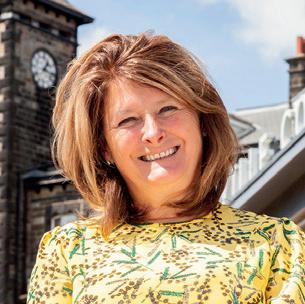
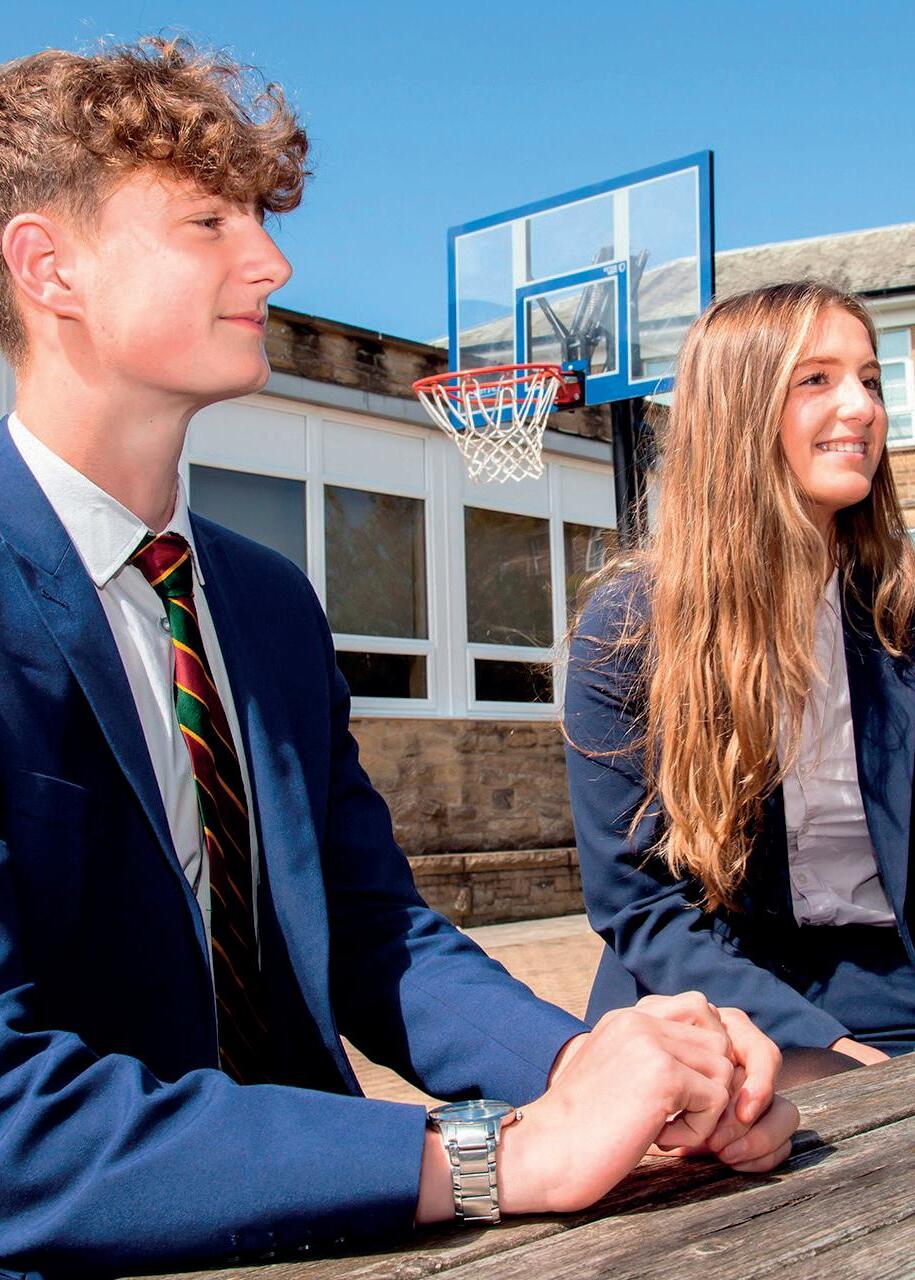
It is great fun being a sixth-former, but these years at school are also of crucial importance. RHIANNON WILKINSON, Head at Ashville College, explains how to get pupils ‘future ready’.
THE sixth-form years are all about getting pupils exam ready, university ready and career ready. In short, they help to get pupils ‘future ready’ – building strong academic foundations and developing personal characteristics and social skills for success and fulfilment, no matter what lies ahead.
The current big questions tell us why good results are not the only goals of post-16 education:
• Will we have discovered and implemented ways to stop or even reverse the effects of climate change?
• Will the phenomenal pace of technology improve our lives for the better, or present new moral and societal challenges?
• Will we be prepared for future pandemics?
Sixth forms should not just be an ‘exam factory’. They should provide a happy, purposeful environment where young people move from adolescence to adulthood, emerging with confidence to face the world. They can only do this if their sixth form offers enough choice of courses for academic enrichment, co-curricular activities, leadership
opportunities and career advice. Sixth form should provide the tools for young people to flourish, no matter where their passions lie.
I believe high quality English boarding education is the best in the world, and parents are fortunate to have their pick of so many exceptional schools. But choosing one, particularly for families not in the UK, can be challenging. What, therefore, should you look for in a boarding sixth form?
AMBITION AND CHALLENGE
It is important to choose a school with a strong academic culture, never
standing still but focused on driving up standards and results. The proportion of pupils gaining admission to Russell Group universities should be high. Look for a good and varied range of courses, particularly A levels, including traditional subjects and intended degree subjects, plus BTECs. Some schools offer complementary qualifications that help children stand out from the crowd.
At Ashville, for example, we offer the highly flexible Cambridge Technical in Performing Arts. For pupils looking at the USA, we are accredited by the New England Association of Schools and Colleges to support pupils gaining the High School Diploma. We have also added Law, Classical Civilisation, Politics and Film Studies to A-level courses we offer.
OXBRIDGE AND ABROAD
Sixth form is a time to aim high. If your child is set on Oxbridge, studying medicine or going to university overseas, a sixth form should demonstrate how it can help them on that trajectory. The rest, of course, is up to the individual child and their commitment. At Ashville, we offer bespoke programmes for pupils aspiring to Oxford or Cambridge, and for medicine, veterinary science or dentistry courses. We often involve our alumni and other community members in mock interviews.
ACADEMIC ENRICHMENT
Increasingly, sixth forms offer engaging and meaningful programmes of academic enrichment. At Ashville, lower sixthform pupils undertake a ‘Future Ready’ course designed to support their skills development. This includes the Extended Project Qualification (EPQ), created by exam boards with leading UK universities. This is an AS-level qualification, with A* grades possible. Cambridge University says: “We welcome the EPQ and encourage applicants to take one to help develop independent study and research skills.”
The Archbishops’ Young Leaders Award is another qualification geared to individuals’ interests, skills and aspirations, and is highly regarded by leading UK universities. These pupil-led qualifications can be taken alongside A levels, earn UCAS points and help pupils to make their voices heard
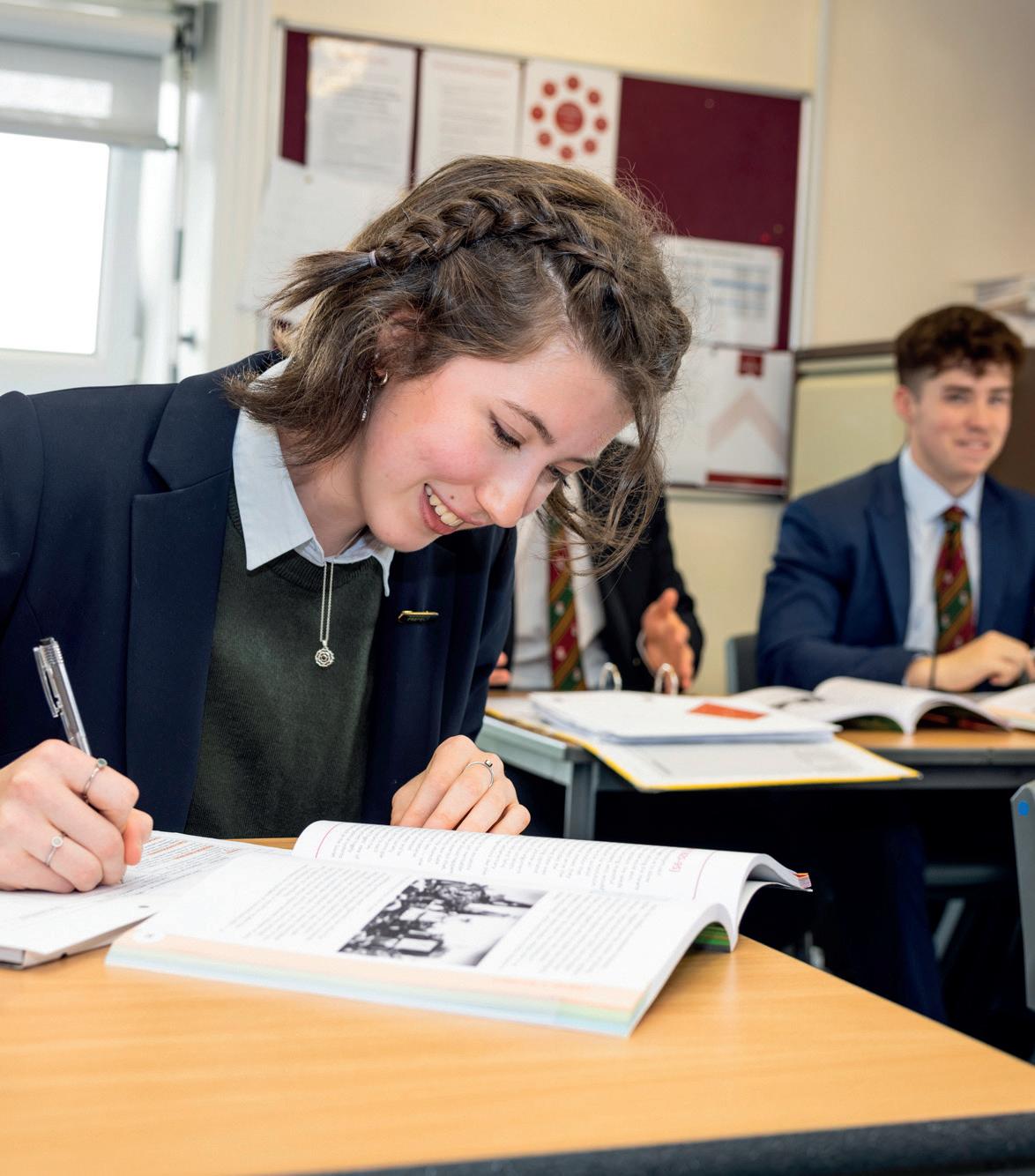
LEADERSHIP AND RESPONSIBILITY
Many ambitious pupils take on extra challenges to broaden their horizons. Good sixth forms offer a wide range of opportunities, from prefect and house captain positions to more informal roles, all enabling pupils to develop skills such as public speaking. More formal leadership roles, such as the Red Tie Prefects at Ashville, involve formal applications and interviews, emulating universities and apprenticeships.
HAPPY AND HEALTHY
Pupils learn best when happy, and good schools recognise the benefits of co-curricular activities for health and attainment. The activities sixth-formers pursue should also be relevant to their future, to technology advancements and how this transforms jobs. At Ashville, we are developing co-curricular experiences to reflect the World Economic Forum’s ‘top
10 job skills of tomorrow’, with activities such as coding, leadership and enterprise. Being ‘future ready’ will ensure sixthformers leave with the right qualifications and in-demand skills needed in a rapidly changing global marketplace.
□ Rhiannon is the eleventh and first female Head of Ashville College. Her career includes a Headship at Wycombe Abbey and teaching and senior positions in schools in the UK, Hong Kong and Brunei. Most recently, Rhiannon was the founding Head of Whittle School Shenzhen which opened simultaneously alongside its sister school Whittle School Washington DC. Between 2009 and 2013, she was the Principal of Harrogate Ladies’ College. She studied Modern History at St Hugh’s College, Oxford, before undertaking a Postgraduate Certificate of Education (PGCE) at Bath University.
Spring 2024 | 93 CURRICULUM CHOICES
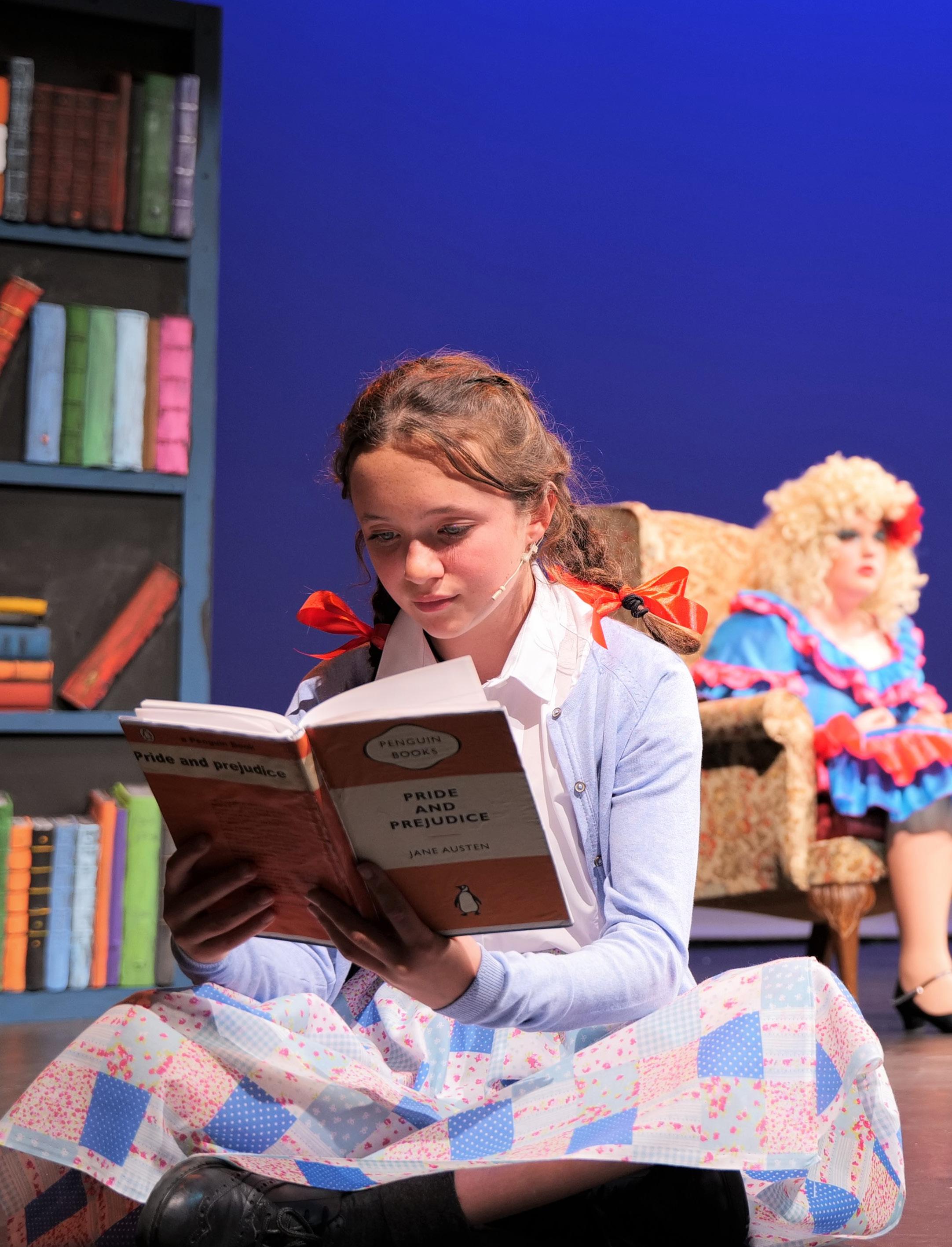
I found my character at The Leys
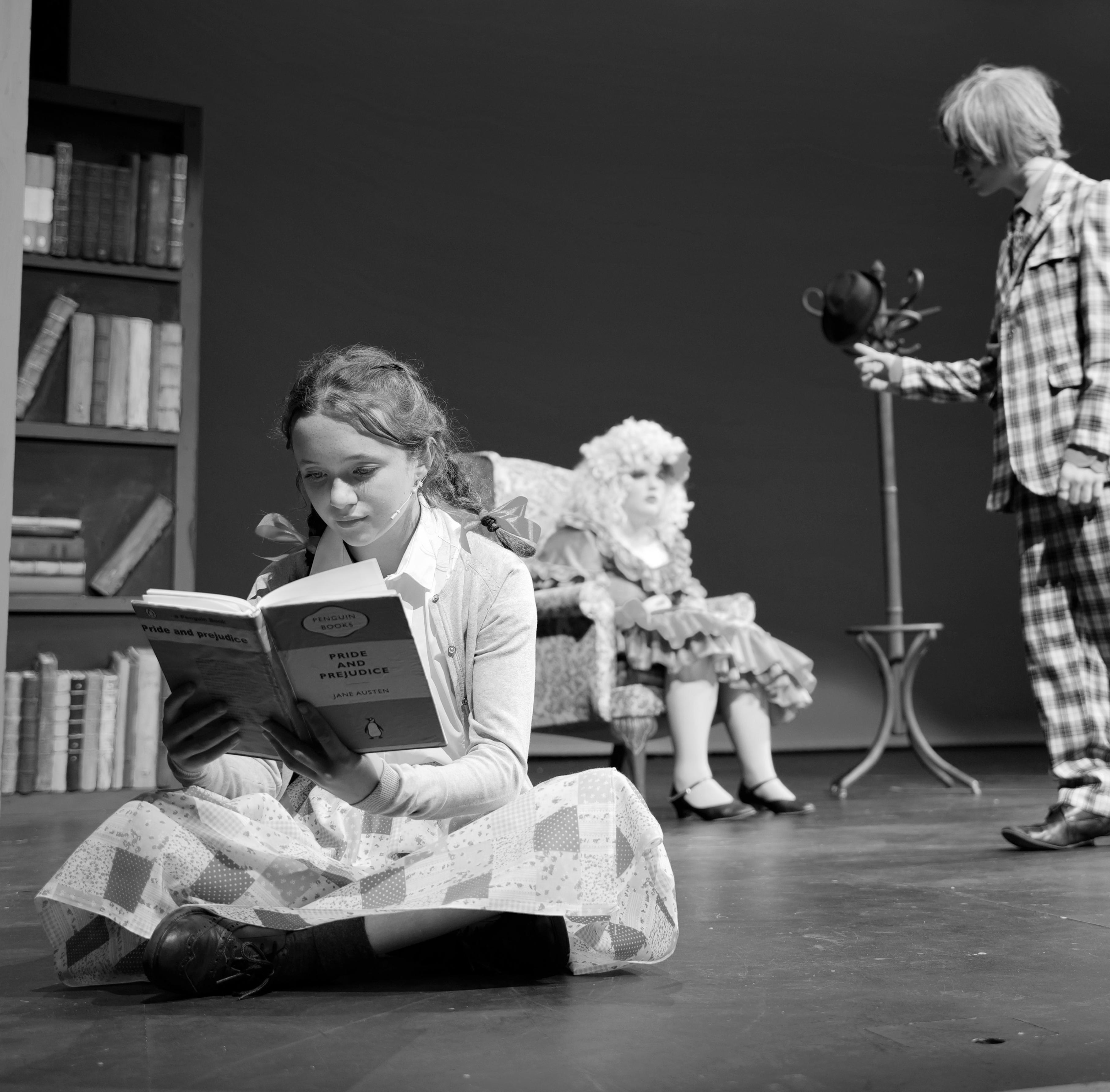
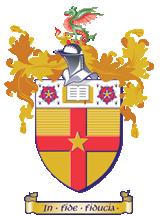
Achieve the exceptional at Cambridge’s leading co-educational boarding and day school for ages 11-18
www.theleys.net
Scholarships
Academic Music
Choral
Sport Art STEM
Drama

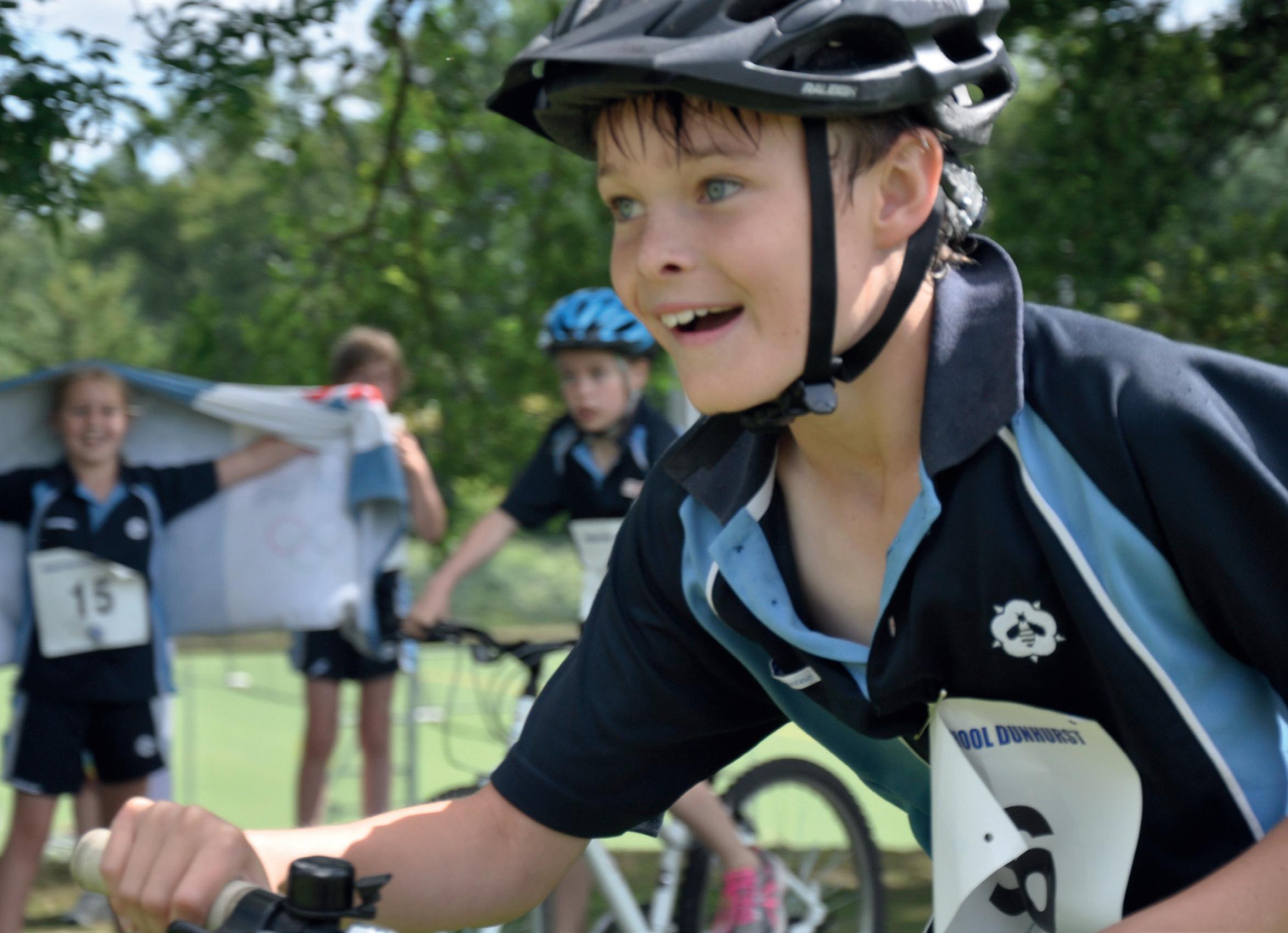
School
fee planning

There are many things to consider when sending your child to boarding school, and a big subject is finance. ANDREW ASHTON, the Bursar at Radley College, highlights the various helps that is available.
DECIDING to invest in education can be the most important decision a parent makes. But operating a school is expensive. Almost two-thirds of the cost is in staff, the most valuable resource a school has. Money is also needed to pay for facilities, utilities, food and teaching resources.
There can be a wide range in fees to cover this cost according to age group, the school and what it offers. Extras add to the bill and schools have different approaches to this, so it is worth checking.
PLANNING FEES
Fees for a boarding education from 13 to 18 vary from around £60,000 (in a state boarding school where tuition is paid by the state) to more than £200,000. In 2022 to 23, the Independent Schools Council census reported that the average termly
boarding fee was £13,002. It is therefore important to prepare for paying fees. Financial planning can help reduce the burden, so do take professional advice. Planning should consider the following.
SPREADING THE COST
Schemes can help spread fee payments over a longer period to make them more affordable. One way of doing this is against the equity in the family house to spread fees over the term of the mortgage.
LUMP SUMS
Early investment reduces the need to use earnings for fees in later years. This approach can be tailored to individual requirements. Some schools offer schemes for advance fee payment. If you have a lump sum available, this is worth exploring, especially given recent volatility in interest rates.
FINANCE
Spring 2024 | 95
Photo with kind permission of Bedales School
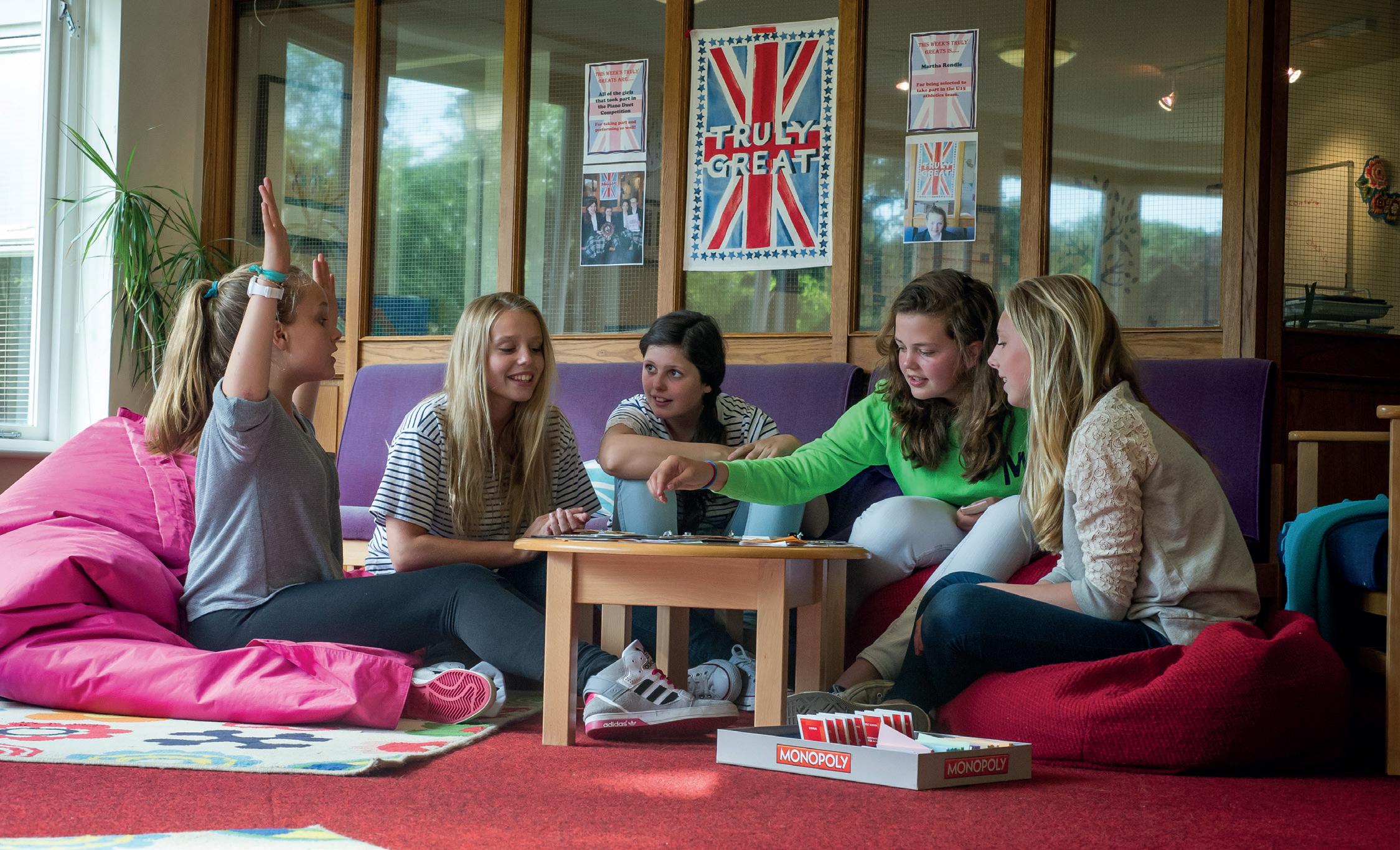
REGULAR SAVING
Regular saving should start as soon as possible. The longer you save, the less the reliance on earnings when fees fall due.
PAYMENT PROTECTION
It is important to ensure the payment of fees can continue in the event of a change in circumstances. A lump sum can be provided by life insurance. Income protection plans can provide income in the event of specified illnesses or accidents. Fees refund schemes can provide cover in the event of absence through illness or accident.
TRUST PLANNING
Trust planning can be useful to make provisions for school fees and achieve inheritance tax benefits. Financial advice should be sought when establishing trusts.
FINANCIAL ASSISTANCE
• Bursaries: many schools offer bursaries to help parents pay fees. These are awarded after a ‘means test’ of family income. Bursaries may be awarded in addition to a scholarship where financial need is demonstrated, and the child would otherwise be unable to enter the school. Parents will usually be asked to complete an application, providing
details of their financial circumstances with supporting evidence.
• Grants: charitable trusts can help in cases of need. For example, the Royal National Children’s SpringBoard Foundation (RNCSF) supports children in the UK who are from challenging circumstances. The charity helps by providing grants and boarding school places for children who have suffered trauma, tragedy or neglect in their young lives. Details can be found at www.royalspringboard.org.uk or through the Directory of Grant Making Trusts at www.dsc.org.uk
• Scholarships: many schools offer scholarships to attract talented pupils. A scholarship is awarded for academic promise or based on ability in music, art or another specialism or all-round merit. They are usually awarded after a competitive examination and interview and take no account of financial need. Scholarships vary in value – they may be honorary accolades that come with no fee discount. In general, schools limit the value of scholarships, such that any extra funding being awarded is strictly subject to financial need.
• Other educational awards: many schools offer awards to children of members of the Armed Services, clergy, teachers or other professions. Some support children of former pupils, single-parent families and orphans, or offer concessions for siblings.
There is much to consider and a great deal of financial help available. Read this guide thoroughly and explore schools’ websites. Above all, do not be afraid to ask schools how they can support your family. It can be a lengthy task, but potentially very worthwhile. Plan early and seek advice.
FURTHER INFORMATION
SFIA School Fees Planning
Tel: 0845 4583690
webenquiry@sfia.co.uk
www.schoolfeesadvice.org
□ Andrew Ashton was educated at Newcastle Royal Grammar School and Oxford University. After a career at Barclays and in consulting, Andrew has been Bursar at Radley College since 2008. Andrew has also served as a governor at a number of schools.
Photo with kind permission of Oakham School
A league-topping, Church of England, non-selective state day and boarding school for boys and girls aged 11-18
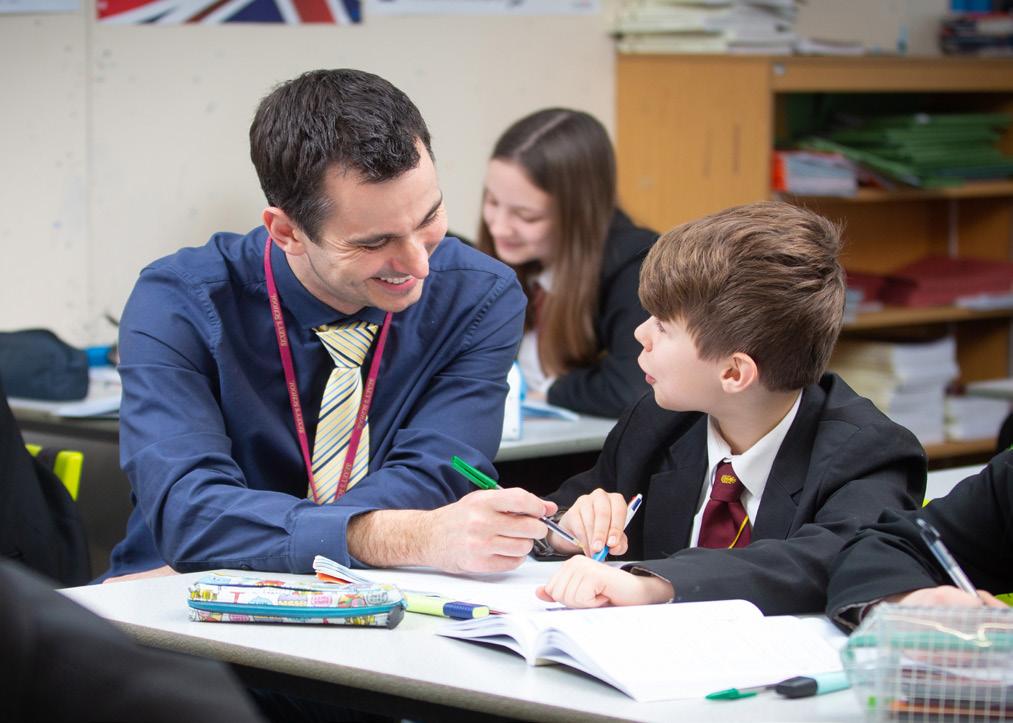
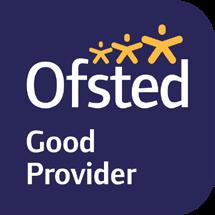
Affordable boarding from £4,371 per term Located in the rural yet vibrant town of Bruton, Somerset - under 2 hours from London Please come and visit to find out more
www.sexeys.somerset.sch.uk admissions@sexeys.somerset.sch.uk
Useful contacts
GENERAL INFORMATION
Boarding Schools’ Association (BSA) www.boarding.org.uk
BSA State Boarding Forum (SBF) www.boarding.org.uk/for-parents-pupils/typesof-boarding-school/
Independent Schools Council (ISC) www.isc.co.uk
Department for Education (DfE) www.education.gov.uk
Independent Schools Show www.schoolsshow.co.uk
OVERSEAS PARENTS AND BOARDERS
BSA Certified Guardians www.boarding.org.uk/bsa-initiatives/bsa-certifiedguardian-scheme/
BSA Certified Agents www.boarding.org.uk/bsa-initiatives/bsa-certifiedagent-scheme/
British Council www.britishcouncil.org
Children’s Education Advisory Service (CEAS) Email: RC-DCS-HQ-CEAS@mod.gov.uk
UK Council for International Student Affairs (UKCISA) www.ukcisa.org.uk
UK National Information Centre for international qualifications and skills (UK ENIC) www.enic.org.uk
SPECIALIST SCHOOLS
Choir Schools’ Association (CSA) www.choirschools.org.uk
Music and Dance Scheme www.gov.uk/music-dance-scheme

The Royal School Wolverhampton
Excellent GCSE & A Level results Outstanding pastoral care Affordable state boarding for 11-18 year olds

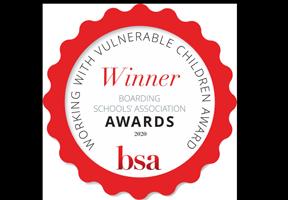

Tel: 01902 341230
admissions@theroyal.school www.theroyalschool.co.uk
SPECIAL EDUCATIONAL NEEDS AND DISABILITIES (SEND)
British Dyslexia Association (BDA) www.bdadyslexia.org.uk
Council for the Registration of Schools Teaching Dyslexic Pupils (CReSTeD) www.crested.org.uk
Dyslexia Action www.dyslexiaaction.org.uk
Disability Rights UK www.disabilityrightsuk.org
SSAFA www.ssafa.org.uk
OTHER USEFUL CONTACTS
Welsh Independent Schools Council (WISC) www.welshisc.co.uk
Scottish Council of Independent Schools (SCIS) www.scis.org.uk
Independent Schools Examinations Board (ISEB) www.iseb.co.uk
Independent Schools Inspectorate (ISI) www.isi.net
International Baccalaureate Organization (IBO) www.ibo.org
Universities and Colleges Admissions Service (UCAS) www.ucas.com
Educational Trusts’ Forum www.educational-grants.org
Royal National Children’s SpringBoard Foundation (Royal SpringBoard) www.royalspringboard.org.uk
ISC CONSTITUENT MEMBER ASSOCIATIONS
Association of Governing Bodies of Independent Schools (AGBIS) www.agbis.org.uk
Council of British International Schools (COBIS) www.cobis.org.uk
Girls’ Schools Association (GSA) www.gsa.uk.com
Headmasters’ and Headmistresses’ Conference (HMC) www.hmc.org.uk
Independent Association of Prep Schools (IAPS) www.iaps.uk
Independent Schools Association (ISA) www.isaschools.org.uk
Independent Schools’ Bursars Association (ISBA) www.theisba.org.uk
Society of Heads www.thesocietyofheads.org.uk
RELIGIOUS SCHOOLS
Methodist Independent Schools Trust www.methodistschools.org.uk
Catholic Independent Schools’ Conference (CISC) www.catholicindependentschools.com
AFFILIATED ASSOCIATIONS
Naval Families Federation (NFF) www.nff.org.uk
Army Families Federation (AFF) www.aff.org.uk
RAF Families Federation www.raf-ff.org.uk
Spring 2024 | 97 APPENDIX
BSA member schools
UK MEMBERS
Abbey College, Cambridge
Abbey College, Manchester
Abbotsholme School
Abingdon School
Abrar Academy
Ackworth School
ACS International School Cobham
Adcote School
Aldenham School
Aldro School
Aldwickbury School
All Hallows School
Alliance Francaise
Ampleforth College
Amesbury School
Appleford School
Ardingly College
Ardvreck School
Ashfold School
Ashford School
Ashville College
Atlantic College
Aysgarth School
Badminton School
Barnard Castle School
Barnardiston Hall Preparatory School
Bath Academy
Battle Abbey School
Beachborough School
Beaudesert Park School
Bedales (incl Prep)
Bede’s Preparatory School
Bede’s Senior School
Bedford School
Bedstone College
Beech Grove School and Academy
Beechen Cliff School
Beechwood Park School
Beechwood Sacred Heart School
Beeston Hall School
Belhaven Hill School
Belmont School
Benenden School
Berkhamsted School
Bethany School
Bilton Grange School
Bishop’s Stortford College (incl Prep)
Bishopstrow College
Bloxham School
Blundell’s School
Bootham School
Bosworth Independent College
Boundary Oak School
Bournemouth Collegiate School
Box Hill School
Bradfield College
Brambletye School
Bredon School
Brentwood School
Brighton College
Bristol International College
Brockhurst And Marlston House Schools
Brockwood Park School
Bromsgrove School (incl Prep)
Brooke House College
Brookes United Kingdom
Bruern Abbey School
Bryanston School
Brymore Academy
Buckswood School
Burford School
Burgess Hill Girls
Caldicott Preparatory School
Cambridge Tutors College
Campbell College
Canford School
Cardiff Academy Sixth Form College
Cardiff Sixth Form College
Cargilfield Preparatory School
Casterton Sedbergh Preparatory School
Caterham School
CATS College, Cambridge
CATS College, Canterbury
CATS College, London (Guildhouse School)
Chafyn Grove School
Charterhouse School
Chase Grammar School
Cheam School
Cheltenham College (incl Prep)
Cheltenham Ladies’ College
Cherwell College Oxford
Chetham’s School of Music
Chigwell School
Christ Church Cathedral School
Christ College, Brecon
Christ’s Hospital School
City of London Freemen’s School
Claremont School
Clayesmore Preparatory School
Clayesmore School
Clifton College
Clifton College Preparatory School
Cobham Hall School
Colchester Royal Grammar School
Concord College
Copthorne Preparatory School
Cothill House School
Cotswold Chine School
Cottesmore School
Cranbrook School
Cranleigh School (Incl Prep)
Culford School (Incl Prep)
Cumnor House School
Cundall Manor School
Dallam School
Darul Uloom Dawatul Imaan
Darul Uloom London School
Dauntsey’s School
David Game College
Dean Close Preparatory School
Dean Close School
Dean Close St John’s
Denstone College
DLD College, London
Dollar Academy
Dorset House School
Dover College
d’Overbroeck’s
Downe House School
Downside School
Dragon School
Dulwich College
Dulwich Preparatory School, Cranbrook
Durham School
Eagle House School
Earlscliffe
Eastbourne College
Edgeborough School
Ellesmere College
Elmfield Rudolf Steiner School
Elmhurst Ballet School, Birmingham
Elstree School
Embley
Epsom College
Eton College
Exeter Cathedral School
Exeter College
Fairview International School
Farleigh School
Farlington School
Farringtons School
Felsted School (incl Prep)
Feltonfleet School
Fettes College (incl Prep)
Five Islands Academy
Foremarke Hall, Repton Preparatory School
Forres Sandle Manor School
Framlingham College
Frensham Heights School (Incl Junior)
Frewen College
Fulneck School
Fyling Hall School Trust LTD
George Watson’s College
Giggleswick School
Glenalmond College
Godolphin School
Godstowe Preparatory School
Gordon’s School
Gordonstoun (Incl Junior)
Gresham’s School (incl Prep)
Haberdashers’ Adams
Haileybury
Hall Grove School
Handcross Park School
Hanford School
Harrogate Ladies’ College
Harrow School
Hatherop Castle Prep School
Hazlegrove Preparatory School
Headington School
Heath Mount School
Heathfield School
Hereford Cathedral School
Highfield School
Hockerill Anglo-European College
Holmewood House School
Holmwood House School (incl Prep)
Holyport College
Horris Hill School
Hurstpierpoint College
Hurtwood House School
International School of Creative Arts
Ipswich High School
Ipswich School
Jamea Al Kauthar
Jamia Al - Hudaa
Jersey College for Girls
Junior King’s School, Canterbury
Kensington Park School
Kent College Nursery, Infant and Junior School
Kent College, Canterbury
Kent College, Pembury (Incl Prep)
Keswick School
Kilgraston School
Kimbolton School
King Edward’s School, Witley
King William’s College, Isle of Man
Kingham Hill School
Kings Bournemouth
King’s College School, Cambridge
King’s College, Taunton
King’s Hall School
King’s School , Rochester (Incl Prep)
King’s School, Bruton
King’s School, Ely (Incl Junior)
Kingsley School
Kingswood Preparatory School
Kingswood School
Kirkham Grammar School
Kitebrook Prep School
Lambrook School
Lancaster Royal Grammar School
Lancing College
Langley School
Lathallan School
Leighton Park School
Leweston School (Incl Prep)
Lime House School
Lincoln Minster School
Liverpool College
Llandovery College
Lockers Park School
Lomond School
Longridge Towers School
Lord Wandsworth College
Loretto School (Incl Junior)
Loughborough Grammar School
Luckley House School
Lucton School (incl Prep)
Ludgrove School
LVS Ascot
Maidwell Hall School
Malvern College
Malvern St James
Manchester City Football Club
Marlborough College
Marlborough House School
Marymount London
Mayfield School
Merchiston Castle School
Mill Hill School Foundation
Millfield Preparatory School
A B C D E F G H I J K L M
Millfield School
Milton Abbey School
Monkton Combe Preparatory School
Monkton Combe Senior School
Monmouth School for Boys
Monmouth School for Girls
Moor Park School
Moorland School
More House School
Moreton Hall School
Moulsford Preparatory School
Mount Kelly School (Incl Prep)
Mount St Mary’s College
Mowden Hall School
Moyles Court School
MPW London
Myddelton College
New Hall School
North London Grammar School
Northbourne Park School
Oakham School
Old Buckenham Hall School
Old Swinford Hospital
Orwell Park School
Oswestry School
Oundle School
Oxford International College Brighton
Oxford Sixth Form College
Packwood Haugh School
Padworth College
Pangbourne College
Papplewick School
Perrott Hill School
Peter Symonds College
Pinewood School
Plymouth College
Pocklington School (Incl Prep)
Polwhele House
Port Regis Preparatory School
Prestfelde School
Prior Park College
Prior’s Field School
Queen Anne’s School
Queen Ethelburga’s Collegiate
Queen Margaret’s School
Queen Mary’s School
Queen’s College, Taunton (Incl Prep)
Queenswood School
Radley College
Ratcliffe College (Incl Prep)
Reading School
Reddam House Berkshire
Reed’s School
Rendcomb College
Repton School
Richard Huish College
Rikkyo School in England
Ripon Grammar School
Rishworth School
Rochester Independent College
Rockport School
Roedean School
Rookwood School
Rossall School
Royal Alexandra & Albert School
Royal High School, Bath
Royal Hospital School
Royal Russell School
Rugby School
Ruthin School
Ryde School with Upper Chine
Rye St Antony School (Incl Prep)
S.Anselm’s Preparatory School
Saint Felix School
Saint Ronan’s School
Salisbury Cathedral School
Sandroyd School
Scarborough College
Scarisbrick Hall School
Seaford College (Incl Prep)
Sedbergh School
Sevenoaks School
Sexey’s School
Shaftesbury School
Shebbear College
Sherborne Girls
Sherborne Preparatory School
Sherborne School
Sherfield School
Shiplake College
Shrewsbury School
Sibford School
Sidcot School
Slindon College
St Andrew’s College, Cambridge
St Andrew’s Preparatory School, Eastbourne
St Andrew’s School, Pangbourne
St Bees School
St Catherine’s, Bramley
St Christopher School
St Clare’s, Oxford
St David’s College, Llandudno
St Edmund’s School, Surrey
St Edmund’s College & Prep School, Hertfordshire
St Edmund’s School, Canterbury (Incl Junior)
St Edward’s Oxford
St Francis’ College
St George’s School, Ascot
St George’s School, Harpenden
St George’s School, Windsor
St George’s, Edinburgh
St Hugh’s Prep School, Lincolnshire
St Hugh’s Prep School, Oxfordshire
St John’s College School, Cambridge
St John’s College, Southsea
St John’s Beaumont Preparatory School
St John’s School, Leatherhead
St John’s School, Sidmouth
St Joseph’s College (Incl Prep)
St Lawrence College (Incl Junior)
St Leonards School, Fife
St Margaret’s School, Bushey
St Mary’s Calne
St Mary’s Music School
St Mary’s School, Ascot
St Mary’s School, Cambridge
St Michael’s School
St Paul’s Cathedral School
St Paul’s School, London
St Peter’s Prep School
St Peter’s School, York (incl St Olave’s)
St Swithun’s School
St Teresa’s School
Stamford Endowed Schools
Stamford Junior School
Stanborough Secondary School
Stephen Perse Foundation
Stewart’s Melville College
Steyning Grammar School
Stoke College
Stonar School
Stonyhurst College
Stonyhurst St Mary’s Hall
Stover School (Incl Prep)
Strathallan School (Incl Prep)
Summer Fields School
Sunningdale School
Sutton Valence School (incl Prep)
Swanbourne House School
Talbot Heath School (Incl Junior)
TASIS, The American School in England
Taunton Preparatory School
Taunton School
Teikyo Foundation School
Terra Nova School
Terrington Hall School
Tettenhall College
The Chorister School
The Downs Malvern
The Duke of York’s Royal Military School
The Elms School
The Hammond School
The King’s School, Canterbury
The Leys School
The Mary Erskine School
The Montessori Place, Hove
The Mount School
The National Mathematics and Science College
The New Beacon School
The Oratory Preparatory School
The Oratory School
The Pilgrims’ School
The Prebendal School
The Purcell School for Young Musicians
The Read School
The Royal Ballet School
The Royal Grammar School, High Wycombe
The Royal Masonic School for Girls
The Royal School, Armagh
The Royal School, Dungannon
The Royal School, Surrey
The Royal School, Wolverhampton
The Thomas Adams School
The Wellington Academy
Thetford Grammar School
Thornton College
Tonbridge School
Trent College
Tring Park School for the Performing Arts
Trinity School
Truro High School for Girls (Incl Prep)
Truro School
Tudor Hall School
Twyford School
Uppingham School
Vinehall School
Walhampton School
Warminster School (Incl Prep)
Warwick School
Wellesley House School
Wellington College
Wellington School
Wells Cathedral School (Incl Prep)
West Buckland School
West Hill Park School
Westbourne House School
Westbourne School
Westminster Abbey Choir School
Westminster Cathedral Choir School
Westminster School, Westminster
Westonbirt School (Incl Prep)
Whitgift School
Winchester College
Winchester House School
Windermere School
Windlesham House School
Wisbech Grammar School
Witham Hall School
Woldingham School
Woodbridge School
Woodcote House School
Woodhouse Grove School
Worksop College (Incl Prep)
Worth School
Wrekin College
Wychwood School (Oxford) Ltd
Wycliffe College (incl Prep)
Wycombe Abbey
Wymondham College
Wymondham College Prep School
Yehudi Menuhin School
Spring 2024 | 99
N O P Q R S T U V W Y
EUROPEAN MEMBERS
A+ World Academy, Switzerland
Aiglon College, Switzerland
Alexandra College, Ireland
Amadeus International School, Austria
American Collegiate Institute, Turkey
Apex 2100, France
Bandon Grammar School
Berlin Brandenburg International School, Germany
Blackrock College, Ireland
Brillantmont International School, Switzerland
Cabella International Sahaja School, Italy
Ciscercian College
Clongowes Wood College, Ireland
College Alpin Beau Soleil, Switzerland
College Champittet, Switzerland
College du Leman International School, Switzerland
Complejo Educativo Mas Camarena, Spain
Ecole Jeannine Manuel, France
Exupery International School, Latvia
Glenstal Abbey School, Ireland
Institut Montana Zugerberg, Switzerland
International School Eerde, Netherlands
International School of Milan
International School San Patricio Toledo
John F Kennedy International School, Switzerland
Kilkenny College, Ireland
King’s College, The British School of Madrid, Spain
The Koc School, Turkey
La Garenne, Switzerland
Laude Lady Elizabeth School, Spain
Leysin American School, Switzerland
Lundsbergs Skola, Sweden
Lyceum Alpinum Zuoz, Switzerland
Midleton College, Ireland
Open Gate Boarding School, Czech Republic
Préfleuri International Alpine School
Rathdown School, Ireland
Rockwell College, Ireland
Saint Charles, Switzerland
SEK International School El Castillo
Sigtunaskolan Humanistiska Läroverket, Sweden
Sotogrande International School, Spain
St Columba’s College, Ireland
St George’s International School, Switzerland
St Gilgen International School GmbH, Austria
St John’s International School, Belgium
St Louis School Milan
St Peter’s International School, Portugal
Surval Montreux, Switzerland
The Kings Hospital, Ireland
Villiers School, Ireland
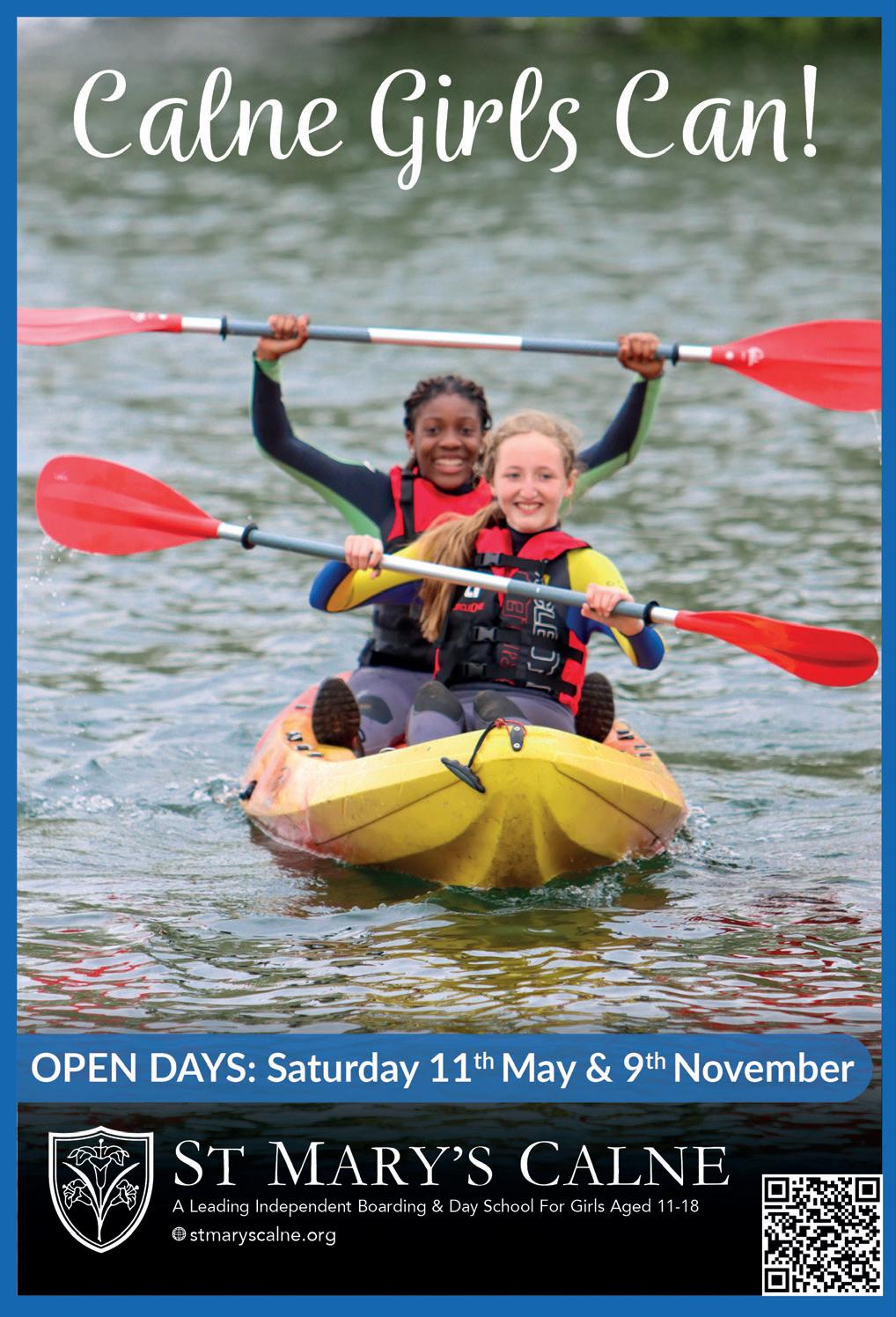
WORLDWIDE MEMBERS
Assam Valley School, India
Benenden Bilingual School Guangzhou
Braeburn Garden Estate School
British International School Lagos
Bromsgrove International School, Thailand
Episcopal High School, USA
Epsom College in Malaysia
Fettes Guangzshou
Frensham, Australia
Greensteds International School, Kenya
H Farm International School
Haileybury Bhaluka
Hangzhou Greentown Yuhua School, China
Harrow Innovation Leadership Academy Chongqing
Harrow Innovation Leadership Academy Nanning
Harrow International School Shenzhen Qianhai
Harrow Innovation Leadership Academy Zhuhai
Harrow International School Bangkok, Thailand
Harrow International School Bengaluru
Harrow International School Haikou
Harrow International School, Hong Kong
Harrow Appi Japan
Heritage Girls School
Huawei-Tongman Foreign Language School
Hulli School Nantong
Idyllwild Arts Academy, USA
Jerudong International School, Brunei
Kincoppal-Rose Bay, Australia
King Henry VIII College, Malaysia
Kolej Tuanku Ja’afar, Malaysia
Lady Eleanor Holles International School Foshan, China
The Lawrence School, Lovedale, India
The Lawrence School, Sanawar, India
Marlborough College, Malaysia
Merchiston International School, China
Michaelhouse, South Africa
New School Georgia
North London Collegiate School, Jeju, Korea
NUCB International College, Japan
Peponi School, Kenya
Pinegrove School, India
Prem Tinsulanonda International School, Thailand
Pymble Ladies’ College, Australia
Regents International School Pattaya, Thailand
Rong Qiao Sedbergh School
School of Leadership, Afghanistan (SOLA)
The Scindia School, Gwalior, India
Sela Qui International School, India
Selborne College
SEK International School El Castillo
Shenzhen International Foundation College
St Andrew’s College, South Africa
St Andrew’s Prep School Turi, Kenya
St Andrew’s Senior School Turi, Kenya
St Christopher Schools, Kenya
St George’s College, Argentina
Swiss International Scientific School Dubai, UAE
Thailand KIS Reignwood Park School
The British School of Lome’, Togo
The Doon School, India
The Forman School, USA
The Hun School of Princeton, USA
The International School of Penang (Uplands), Malaysia
The International School, Bangalore, India
The King’s School, Australia
The Mayo College, India
The Regent Secondary School, Nigeria
Toowoomba Anglican School, Australia
United World College South East Asia, Singapore
Wellington College International Tianjin, China
Wellington College International Pune
Wellington College International Hangzhou
Welham Boys’ School, India
Welham Girls’ School, India
Westlake International School, Malaysia
Woodstock School, India
Whanganui Collegiate School, New Zealand
Wycombe Abbey School Changzhou, China
Wycombe Abbey School, Hangzhou, China
Wycombe Abbey School, Hong Kong
Wycombe Abbey School Nanjing, China
Y K Pao School
Yew Chung International School of Qingdao (YCIS -QD), China
Yew Wah International Education School of Guangzhou (YWIES-GZ) , China
Yew Wah International Education School, Zhejiang Tongxiang Campus, (YWIES-TX), China
Yew Wah School of Shanghai Changning. (YWIES - GB), China
Yew Wah International Education School of Shanghai Lingang (YWIES - SHLG), China
All highlighted schools have advertised in this issue of the Guide. A B C E G I J K L M O P R S T V A B E F G H I J K L M N P R S T U W Y
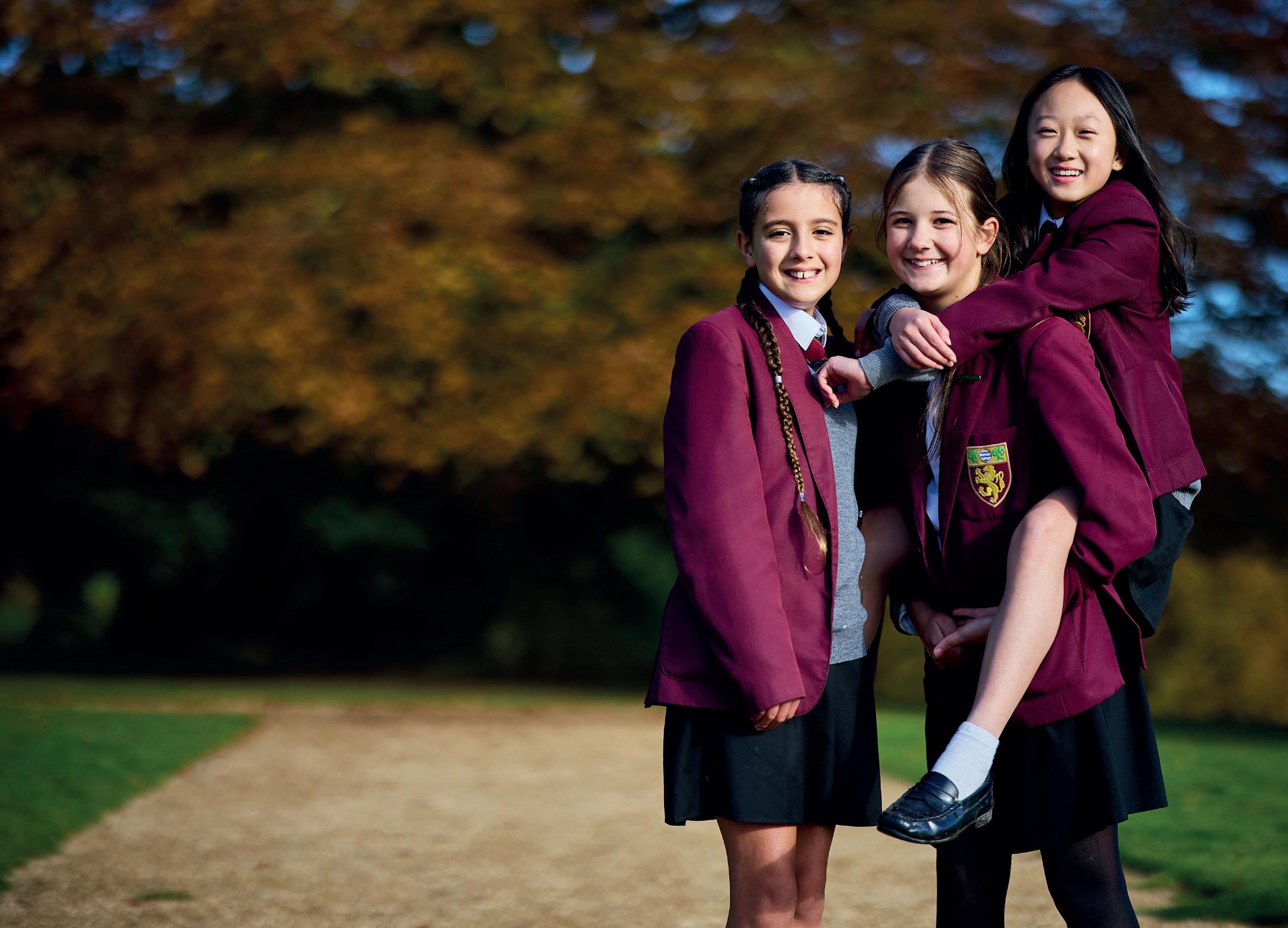


CEA families will pay no more than 10% of fees Co-ed 3-18 | Boarding & Day | Jesuit, Catholic School www.stonyhurst.ac.uk/privatevisits Scan the QR code to book a private visit Creating men & women for others

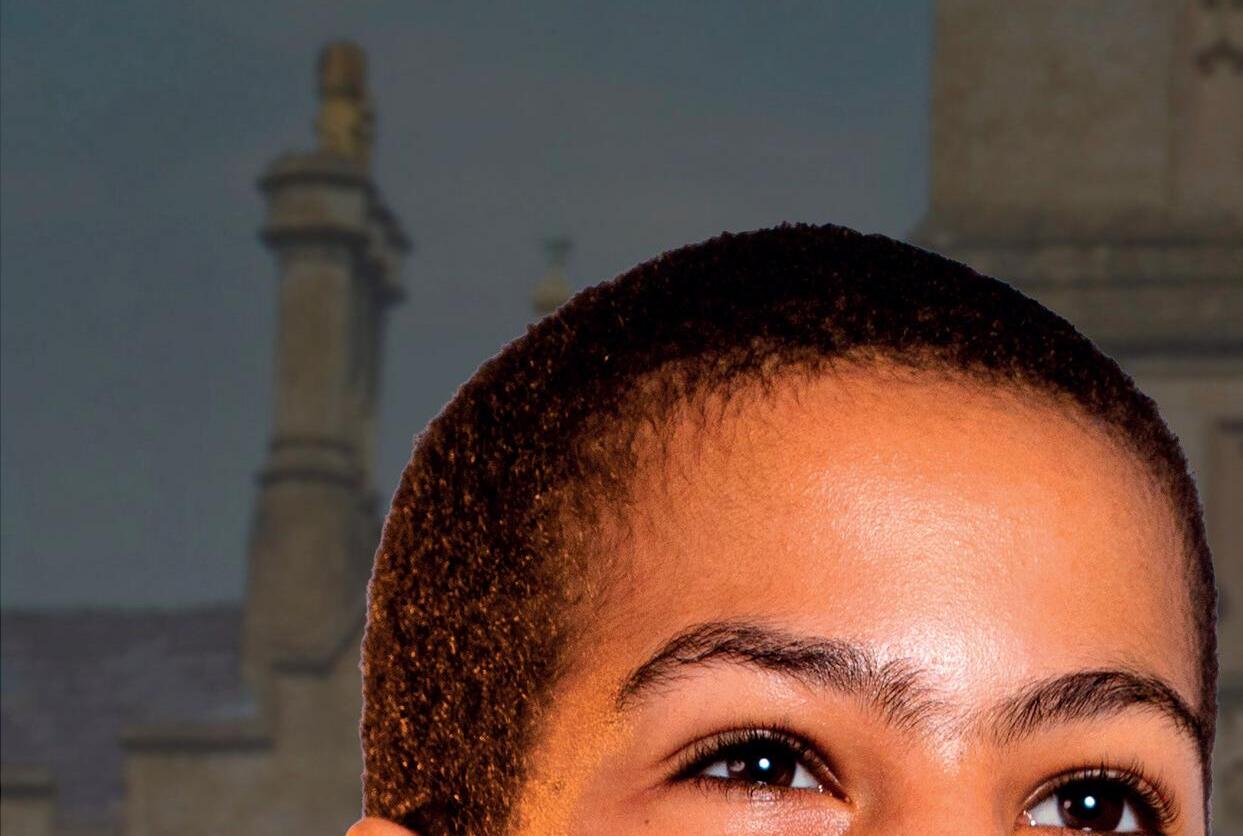
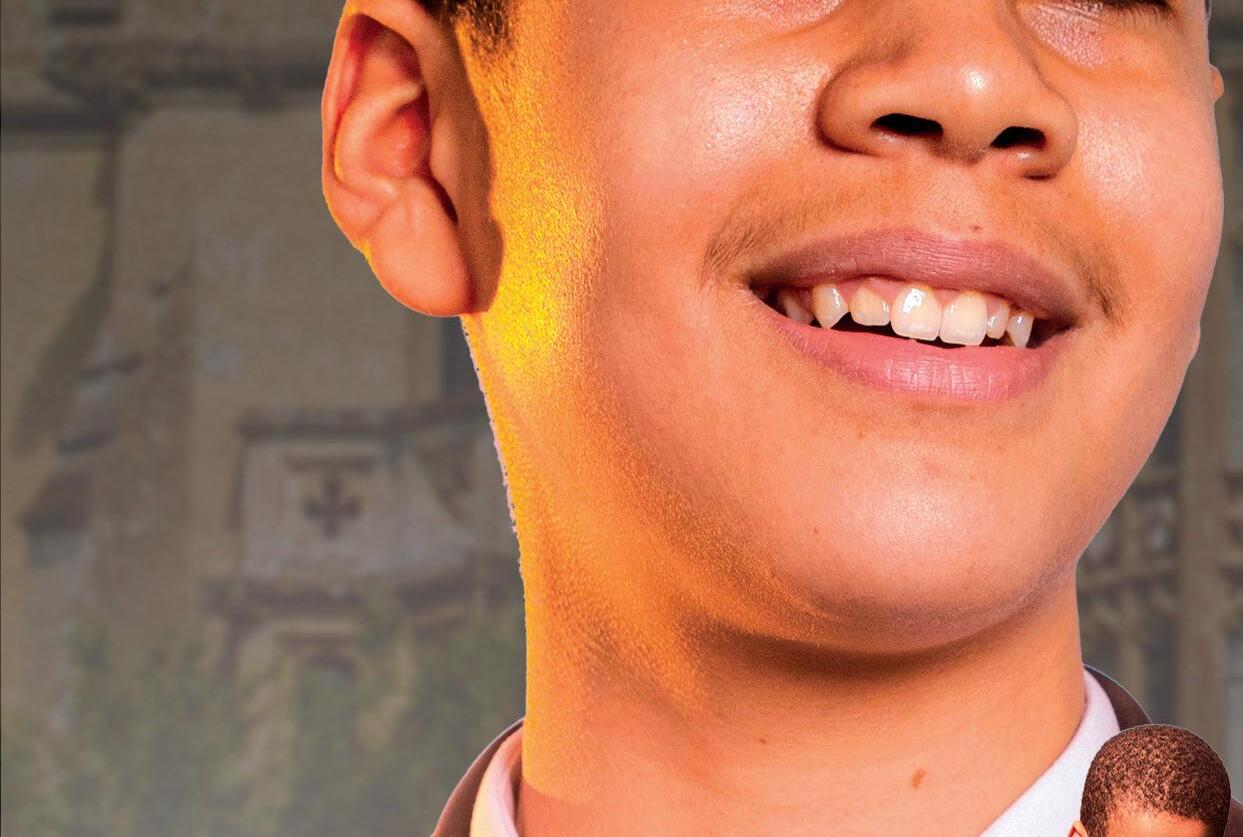

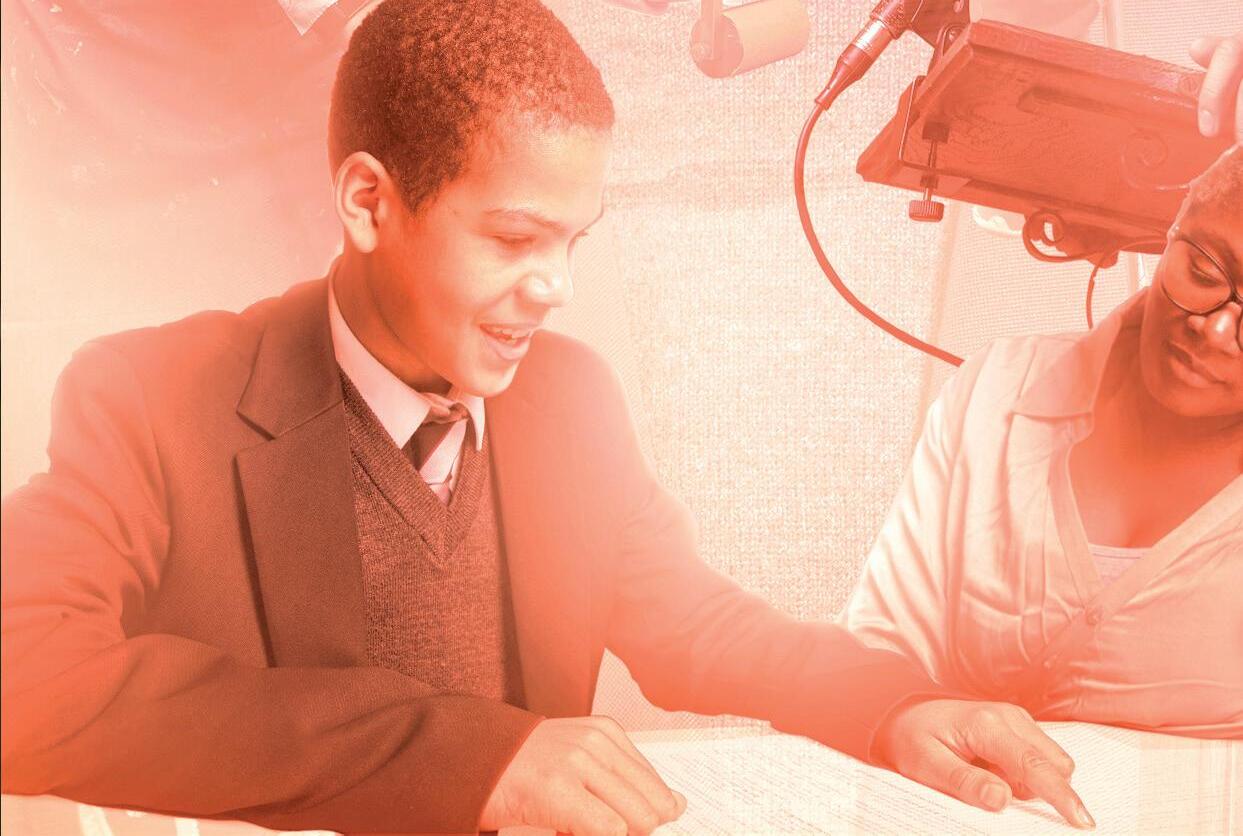
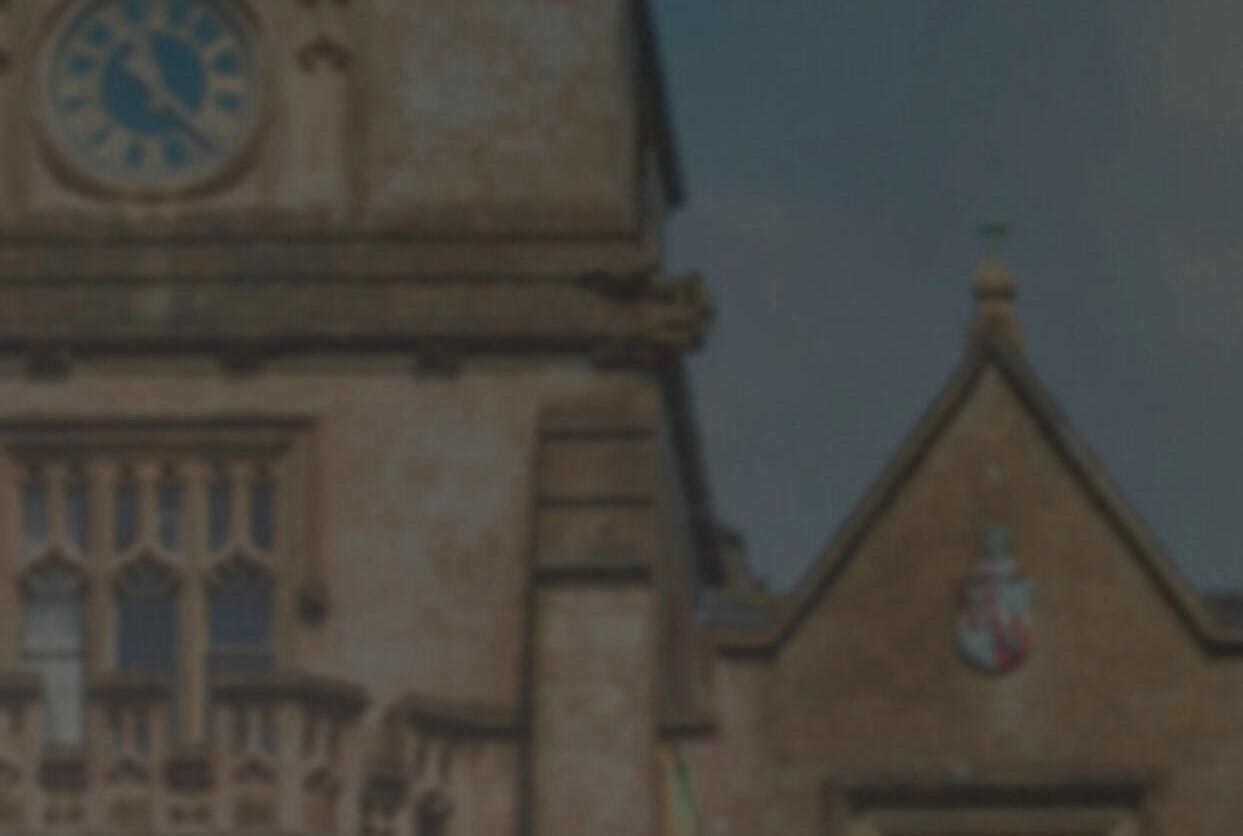
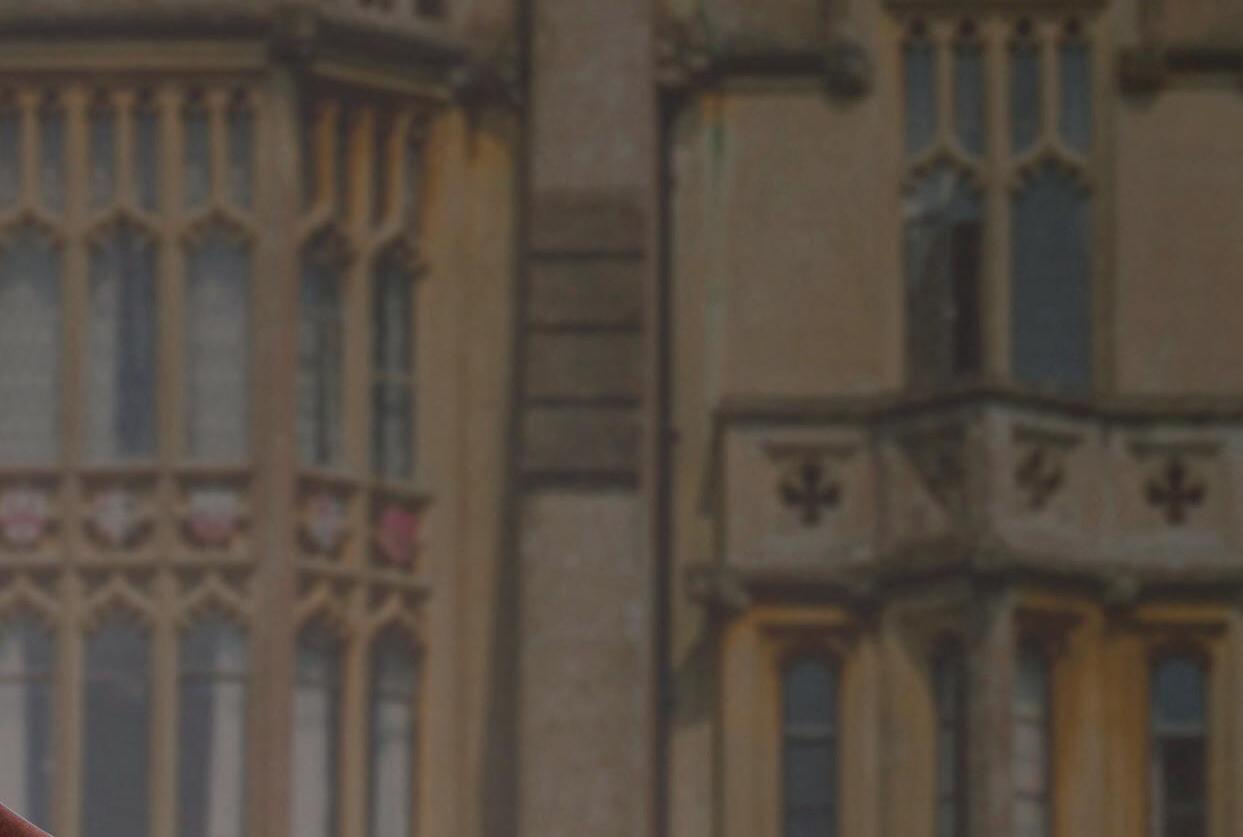
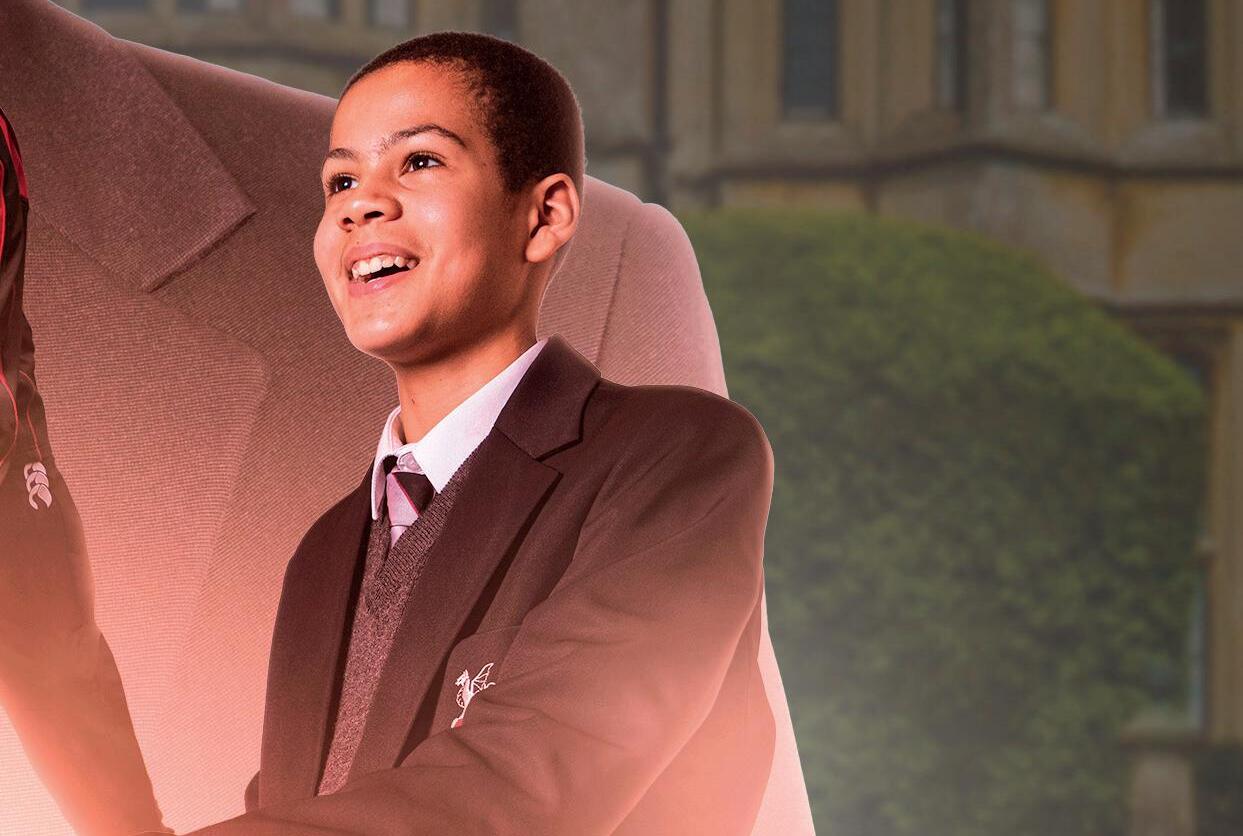



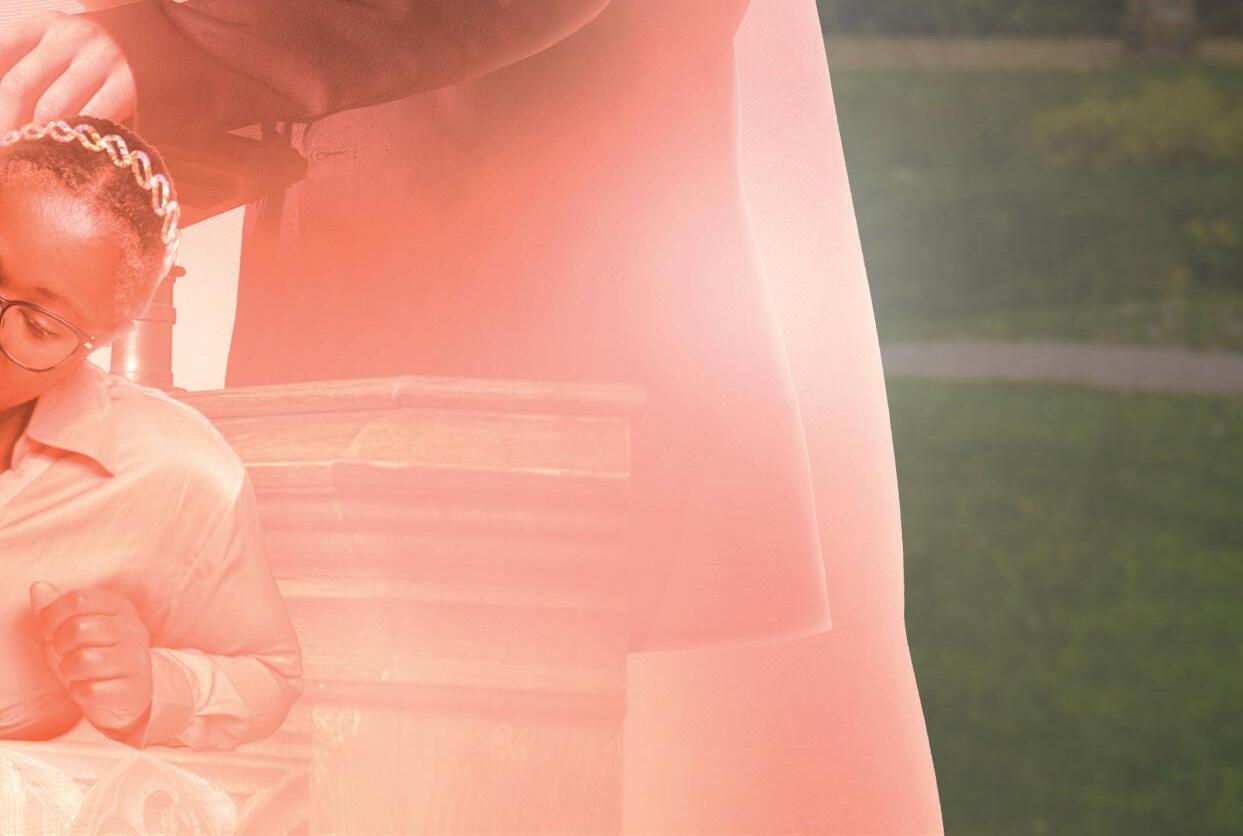

Renowned for our warm and welcoming home-from-home community, Kingswood offers full, weekly and flexi boarding opportunities, with our houseparent teams providing a safe, nurturing an engaging experience for pupils. Our broad and balanced curriculum is supported by outstanding pastoral care, so that every pupil can find and ignite their potential.
We are proud to provide an outstanding education for children of serving members of HM Forces and the FCDO.
To discover more and book a visit, head to our website.


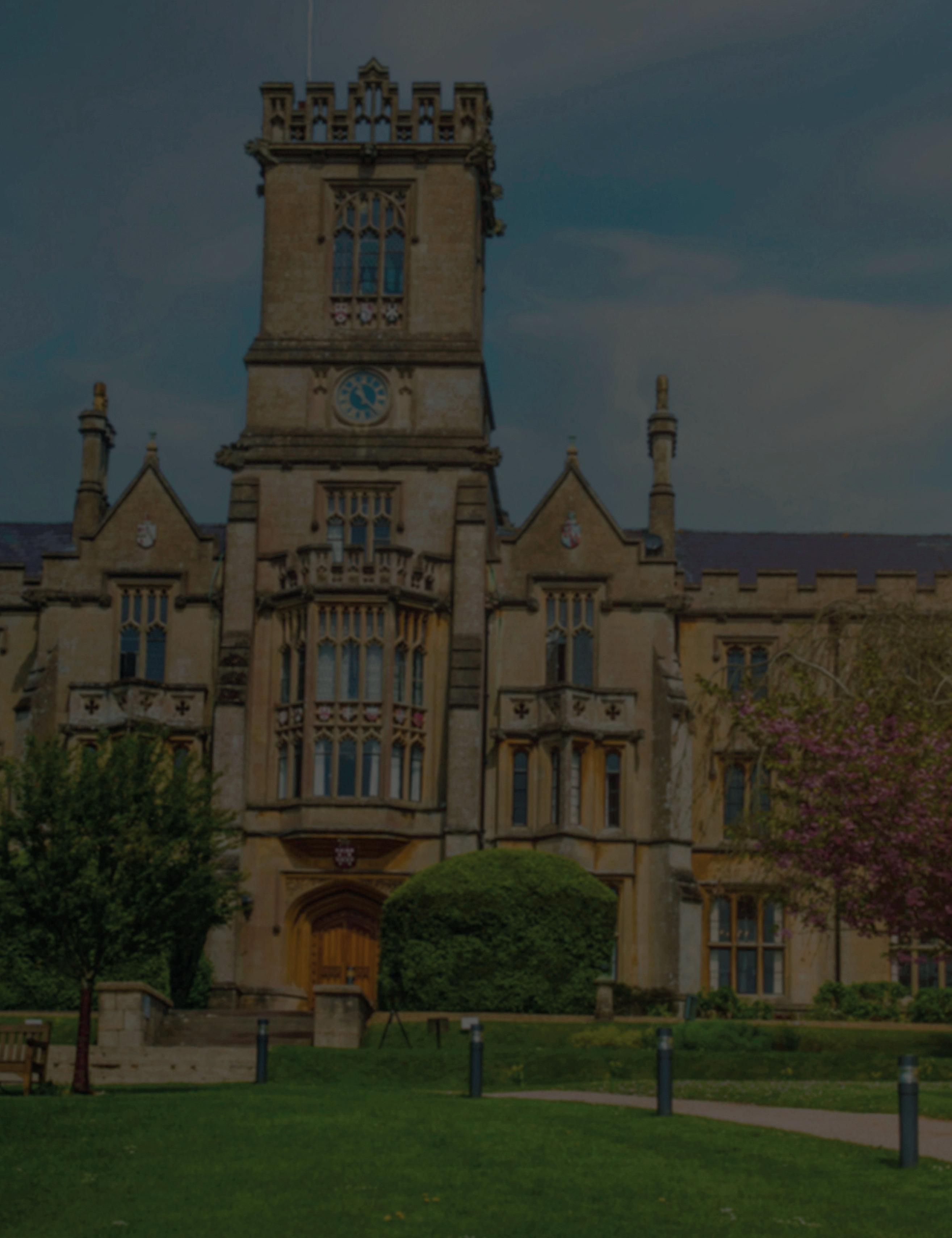
A co-educational independent school for pupils aged nine months to 18 years www.kingswood.bath.sch.uk








































































































 By RICK CROSS, Principal at Reddam House in Berkshire.
By RICK CROSS, Principal at Reddam House in Berkshire.

























 □ Andrew Moss has been Headmaster of Gordon’s School since 2010. He started teaching in 1992 and has worked in a variety of boarding and day schools, including most recently a headship in a Cognita independent school. Before that he was a Deputy Head in Hampshire and Director of Studies and Housemaster at Wymondham College, also a state boarding school.
□ Andrew Moss has been Headmaster of Gordon’s School since 2010. He started teaching in 1992 and has worked in a variety of boarding and day schools, including most recently a headship in a Cognita independent school. Before that he was a Deputy Head in Hampshire and Director of Studies and Housemaster at Wymondham College, also a state boarding school.



























 Photo with kind permission of Sherborne School
Photo with kind permission of Sherborne School






























































































































































































